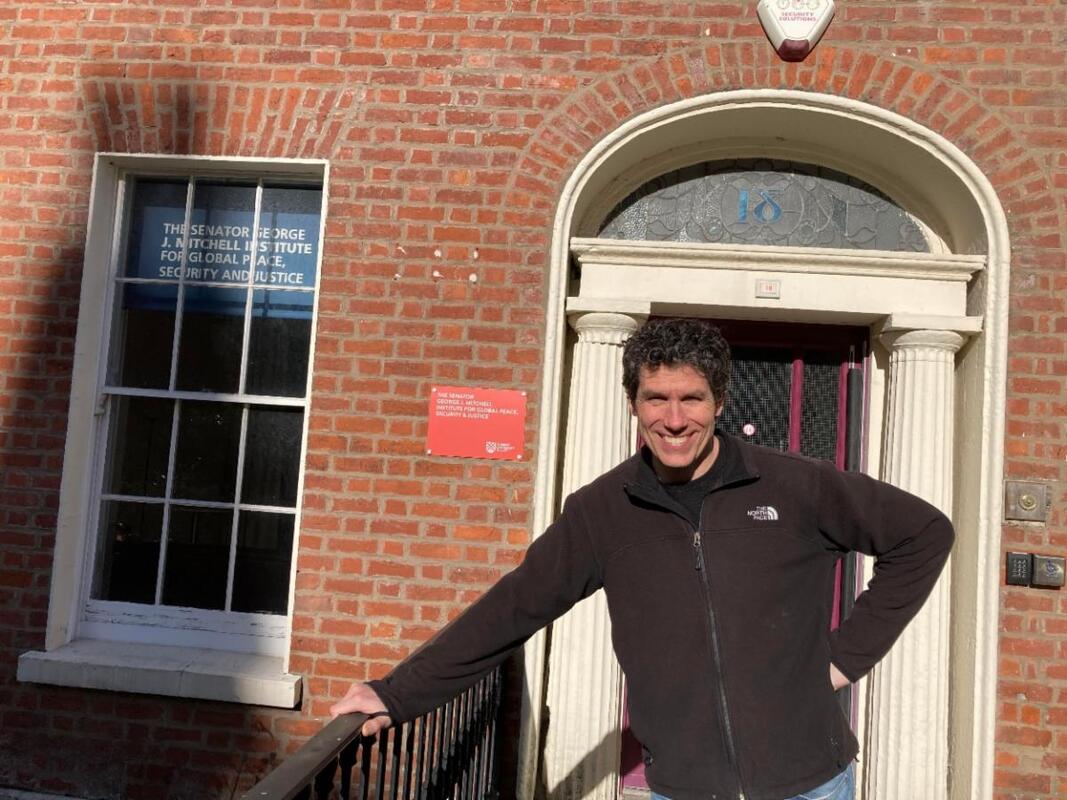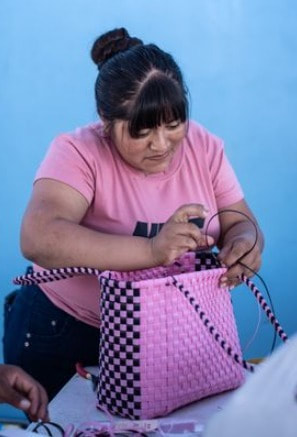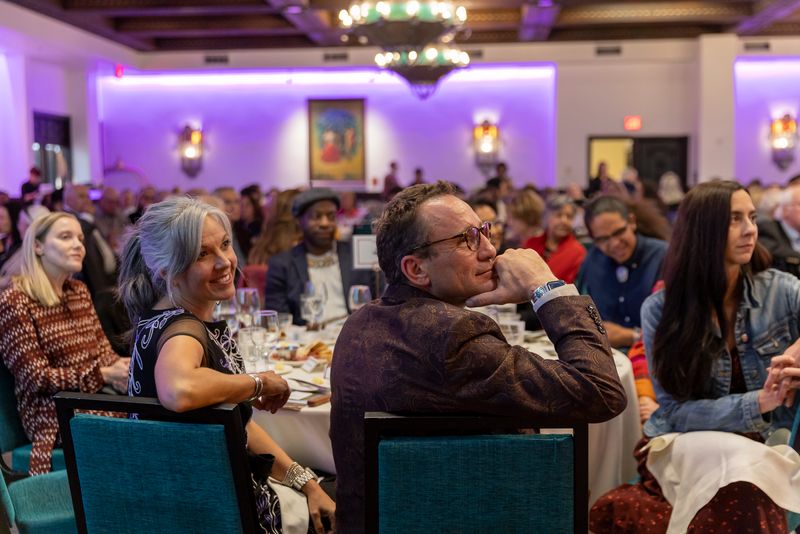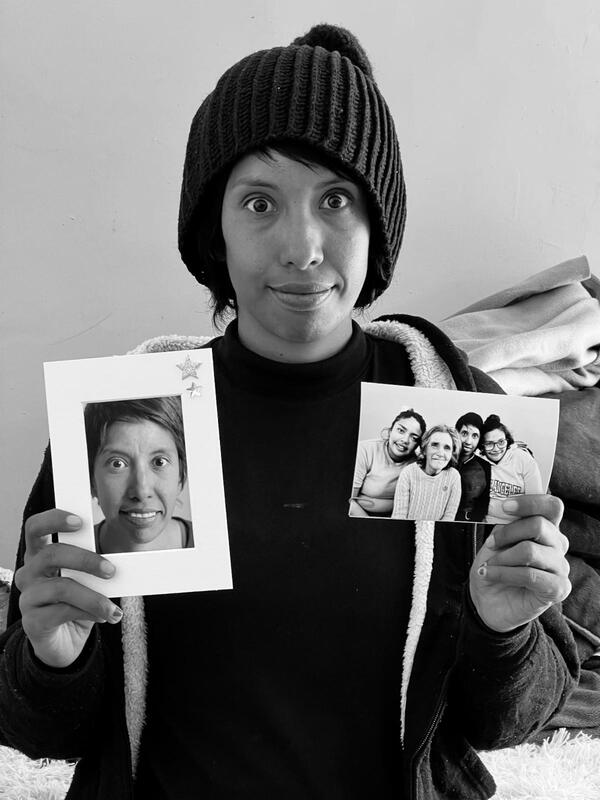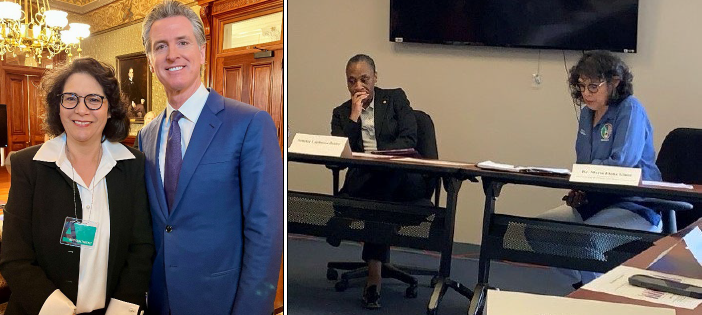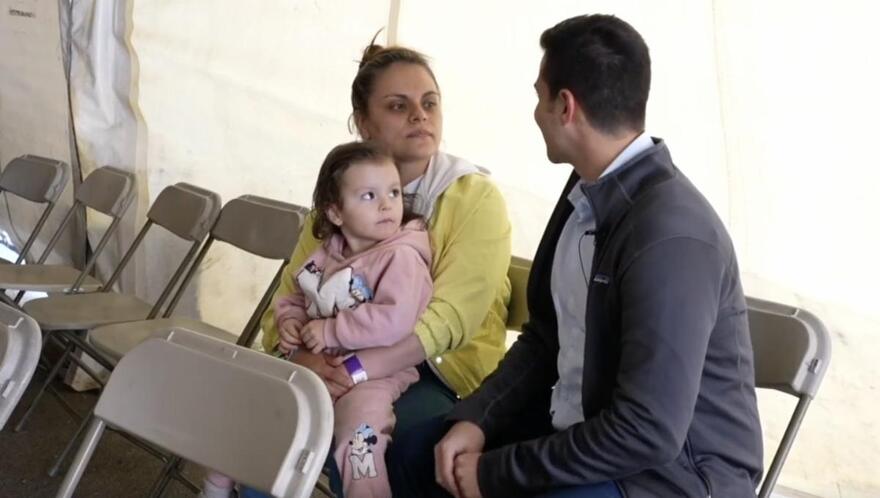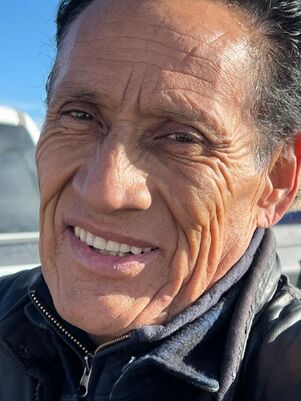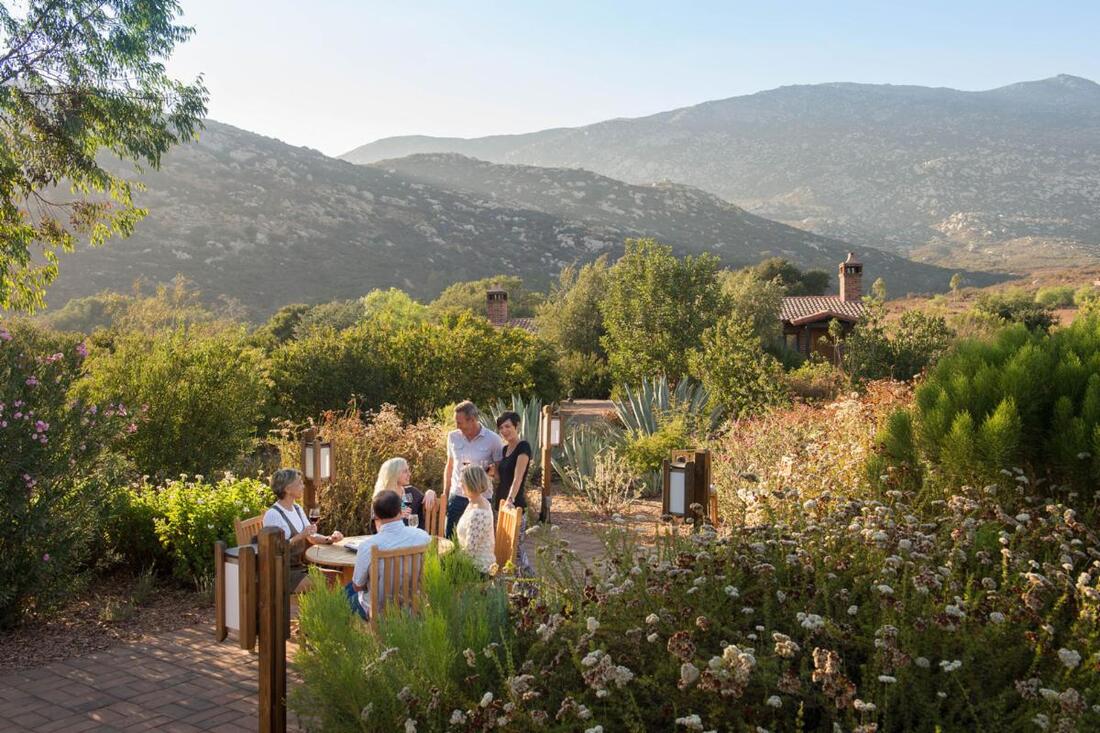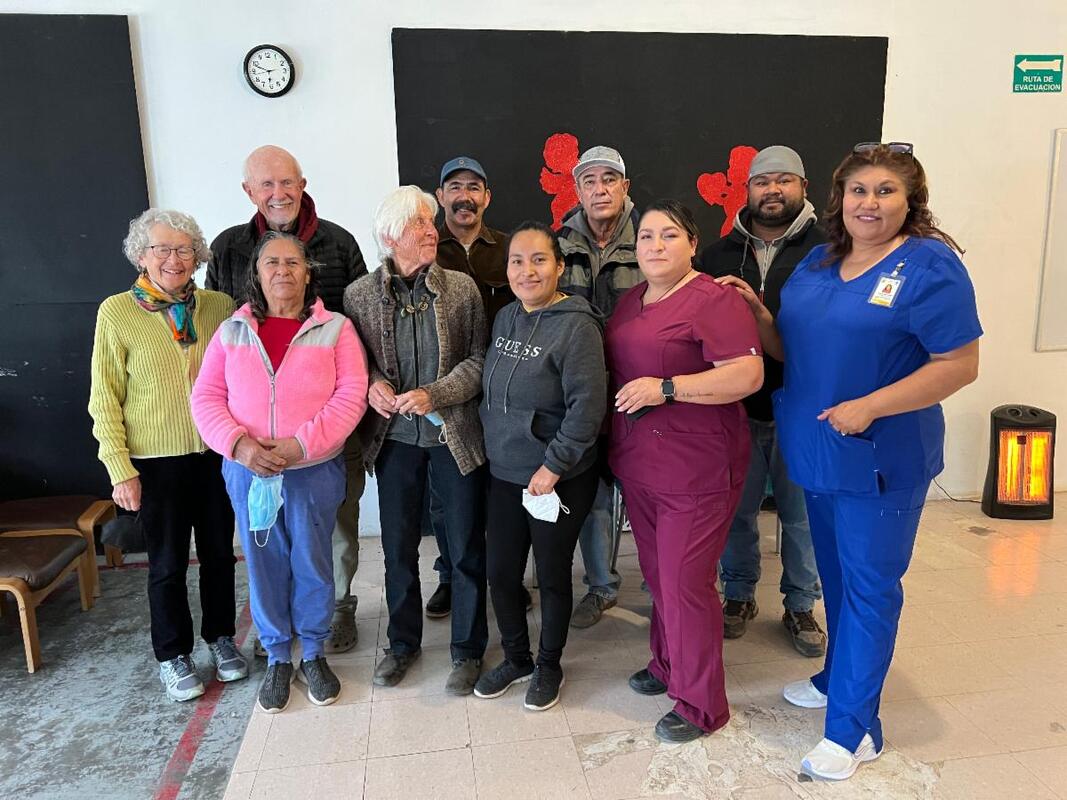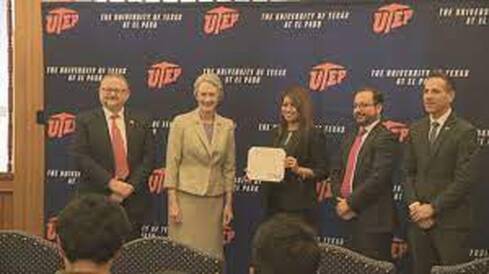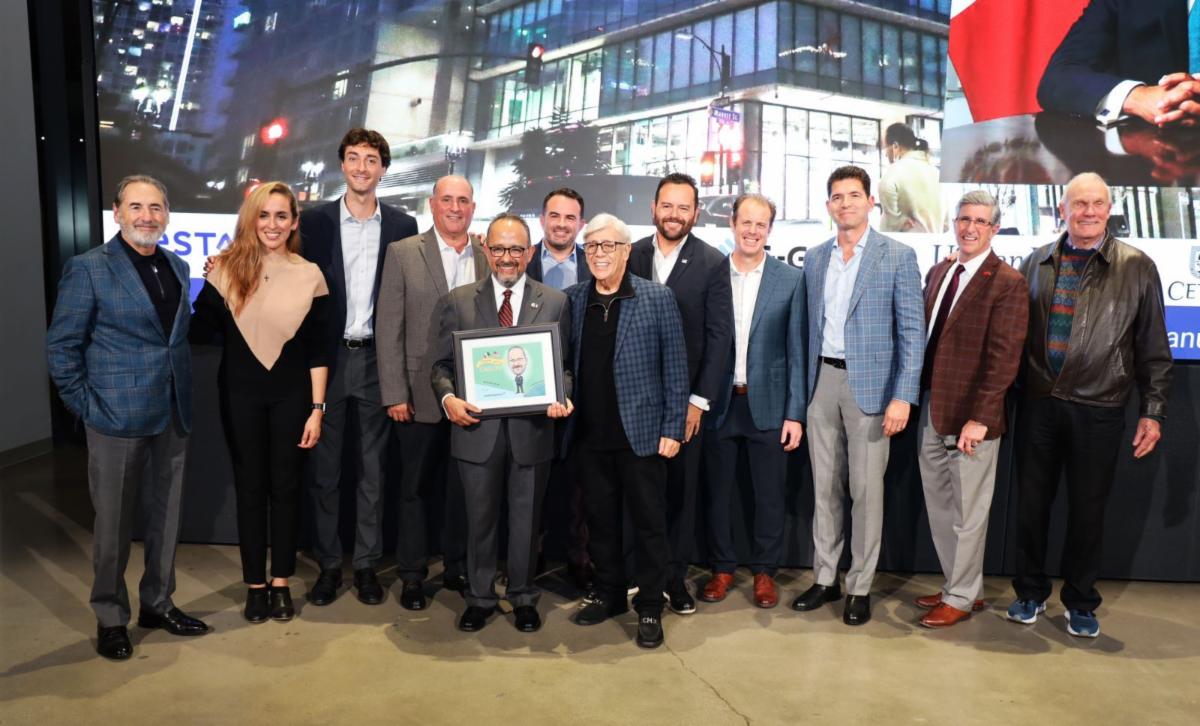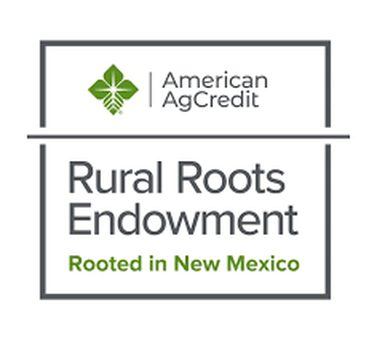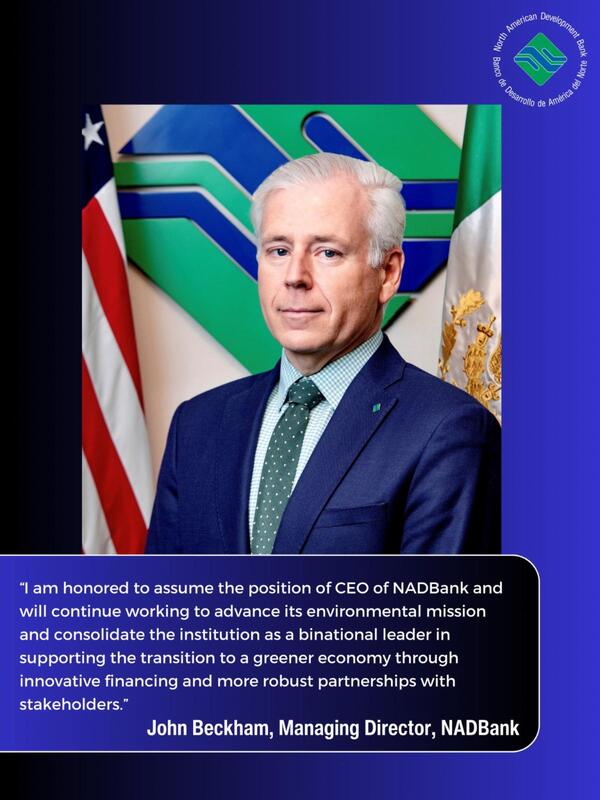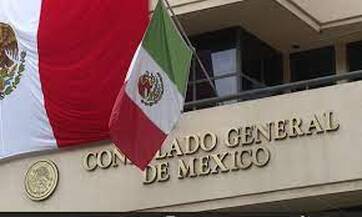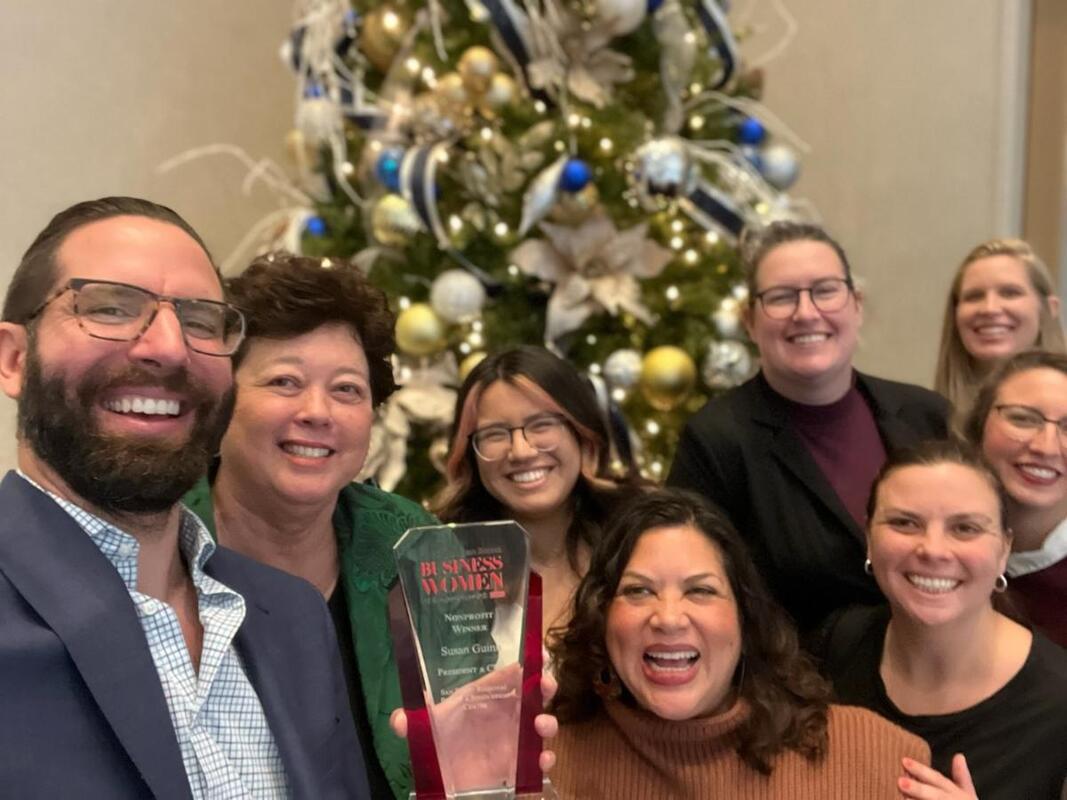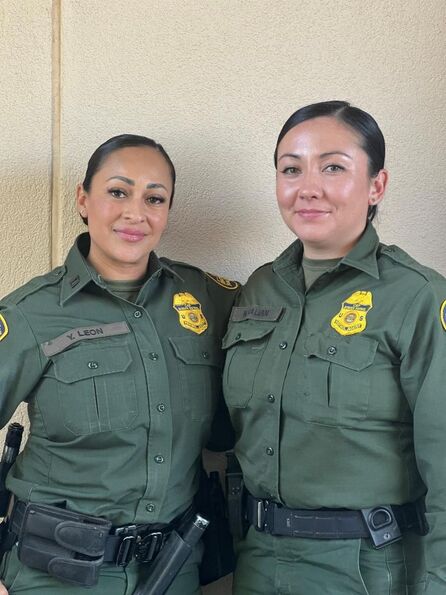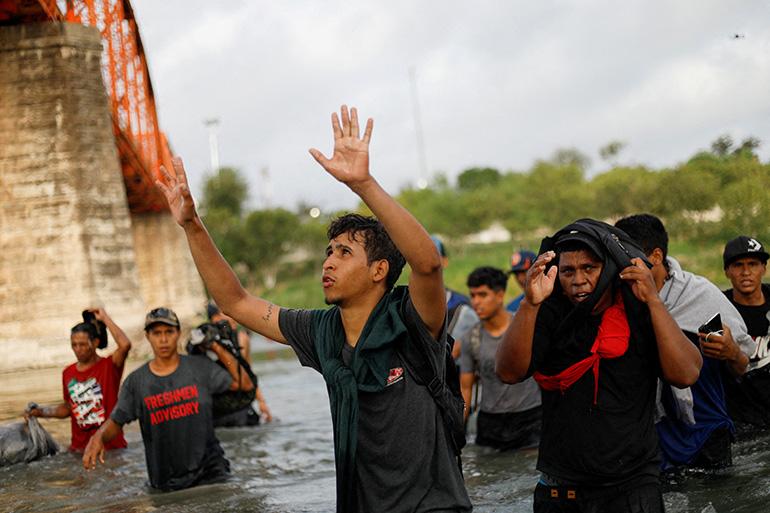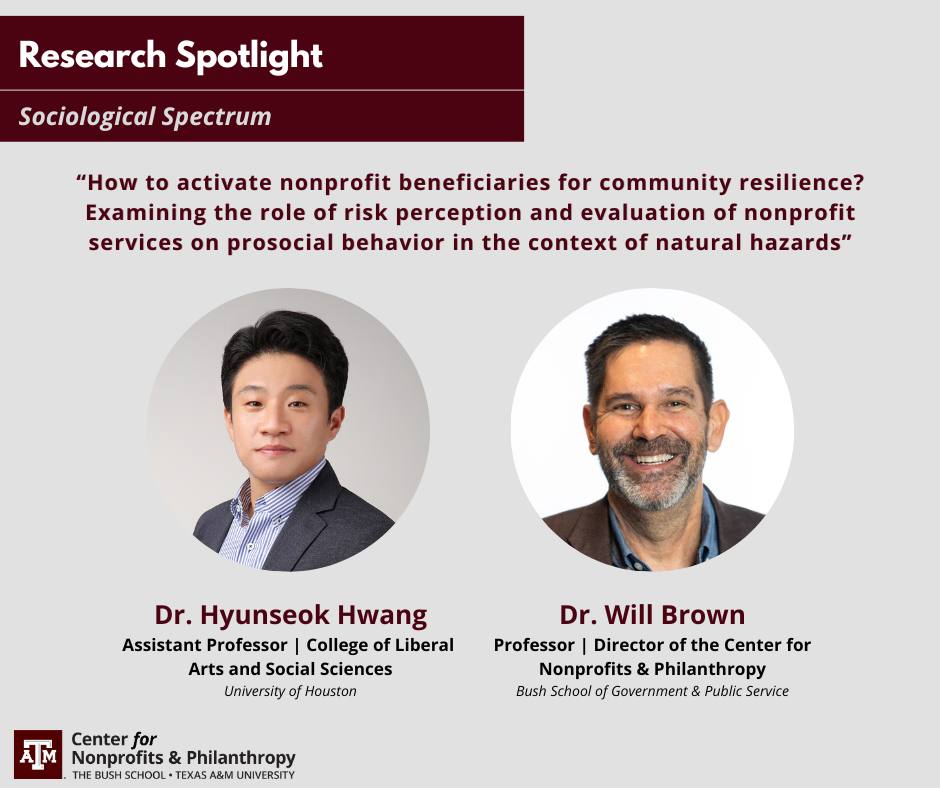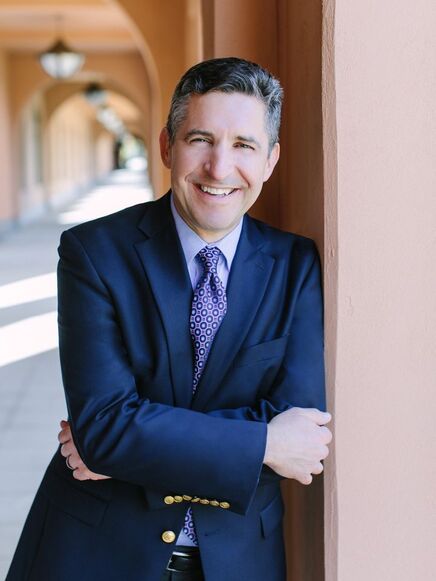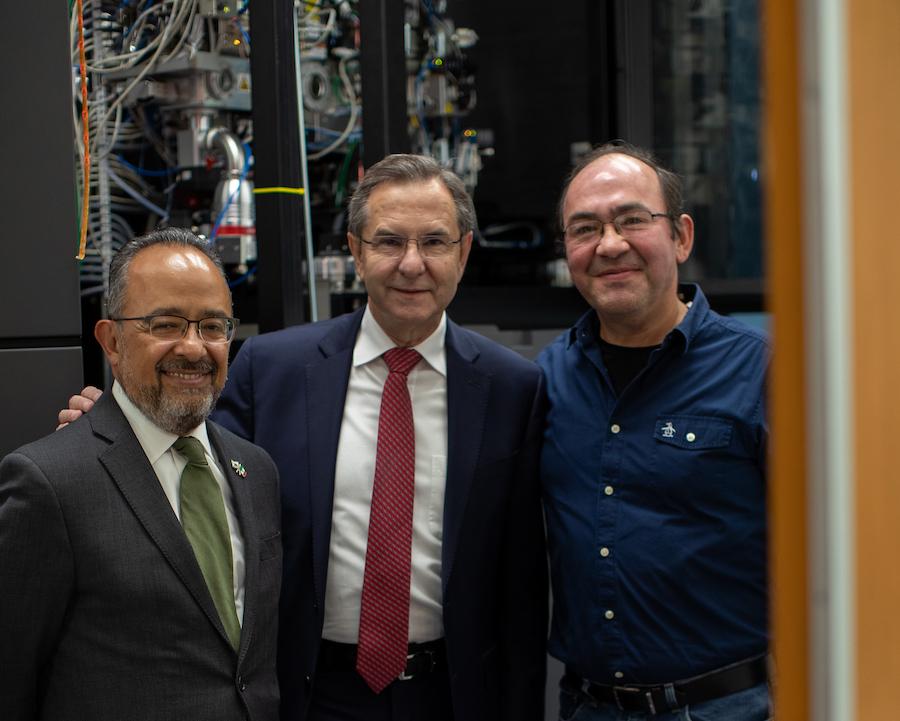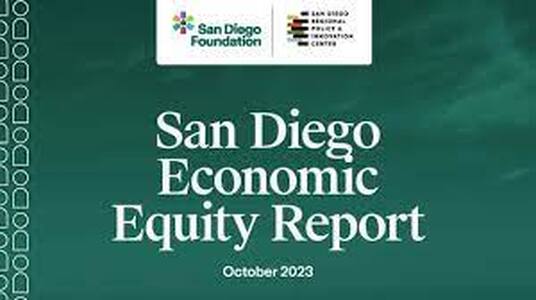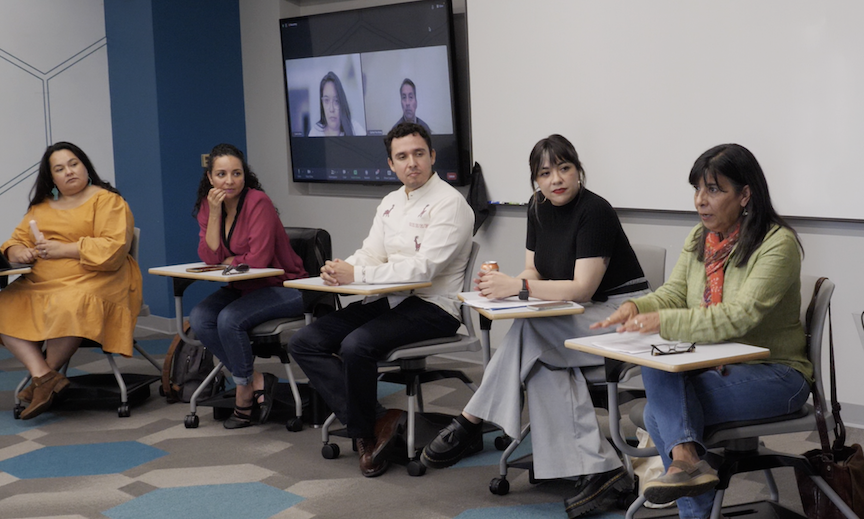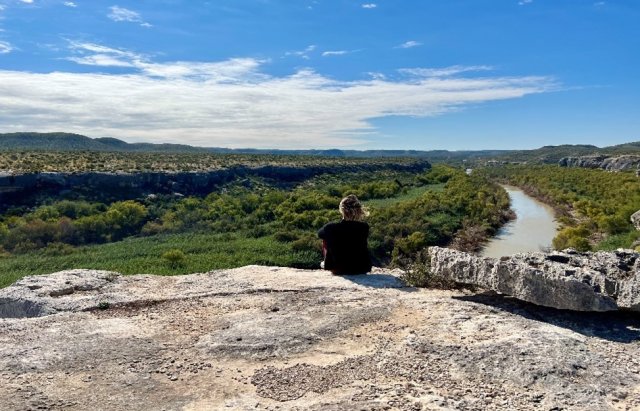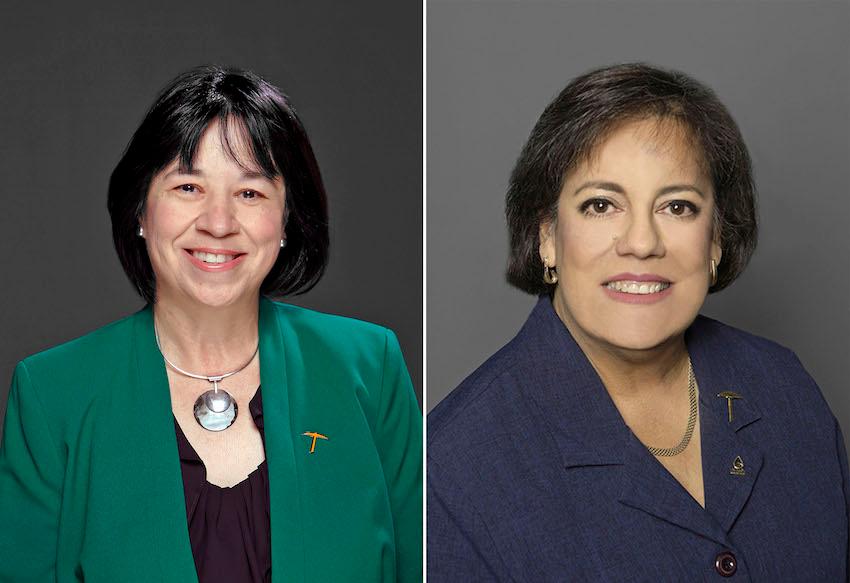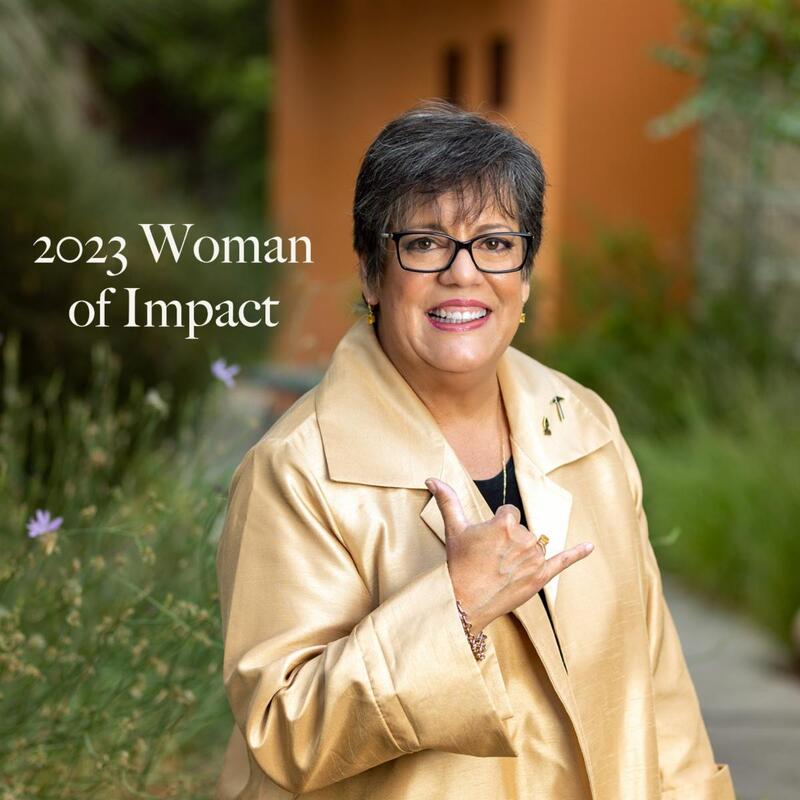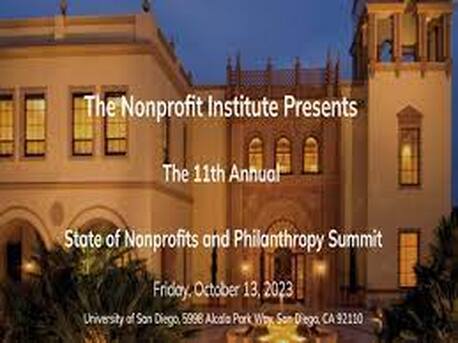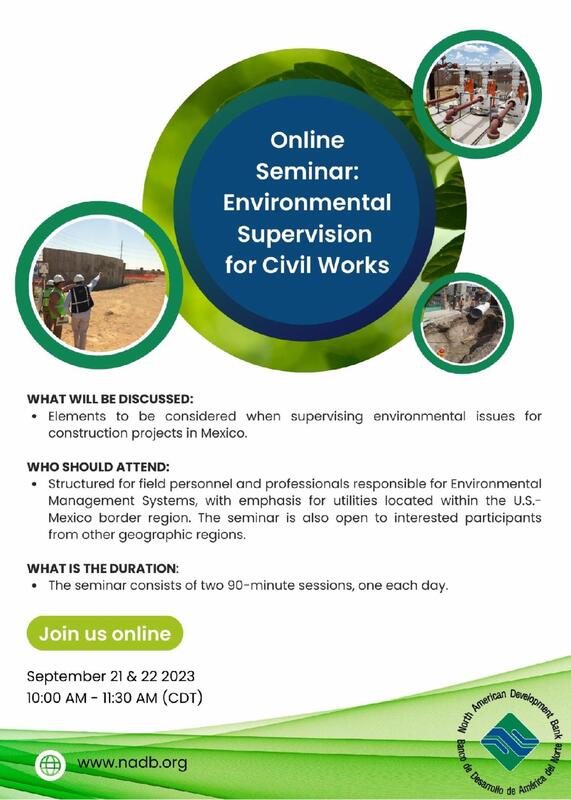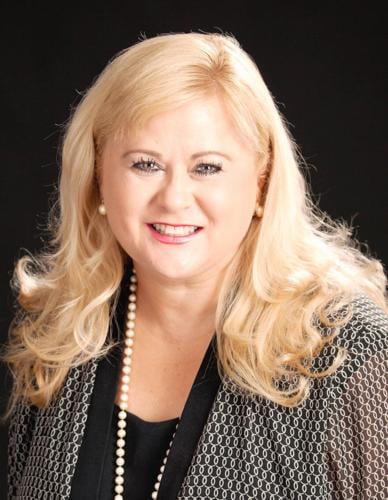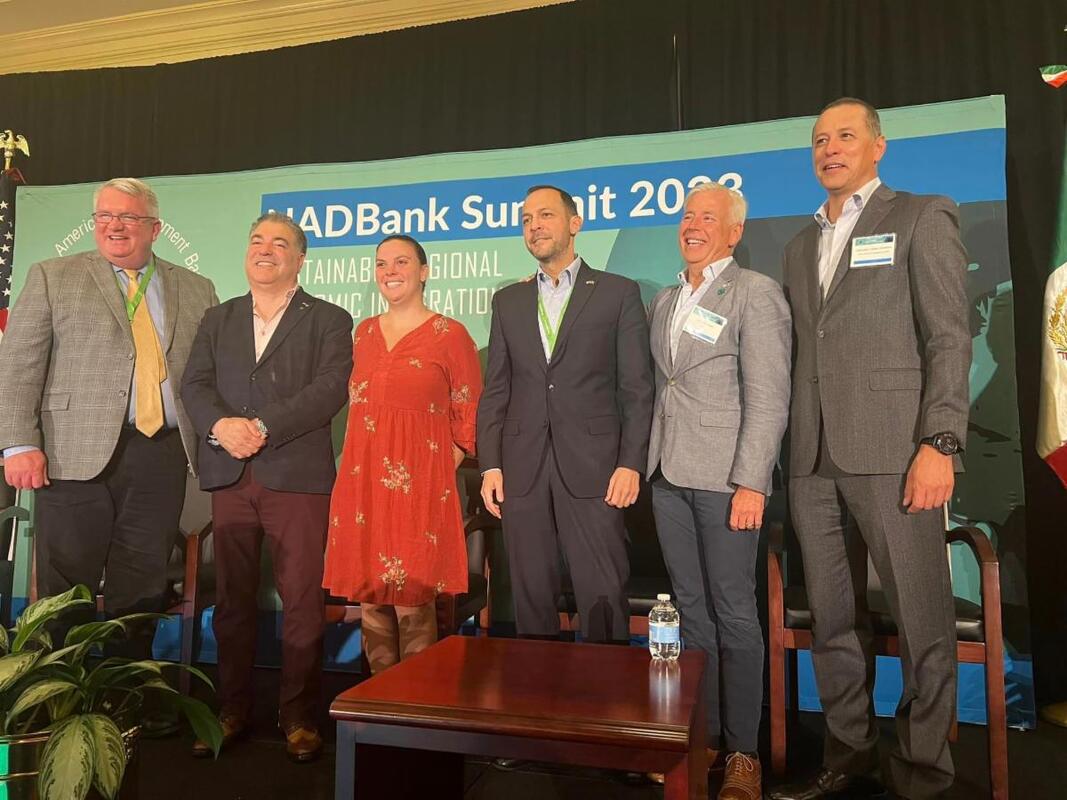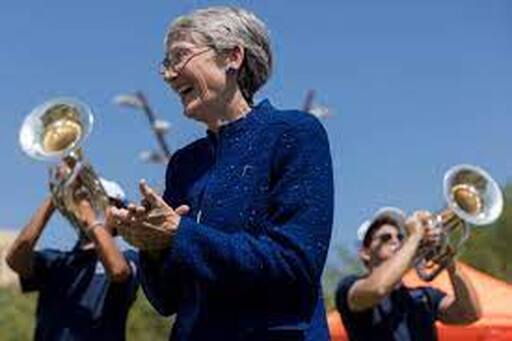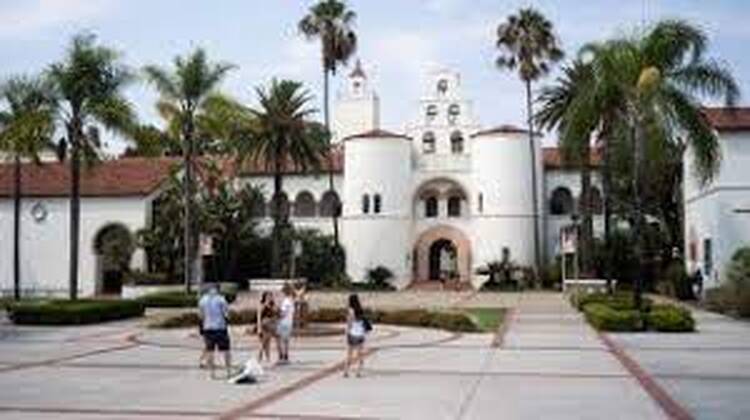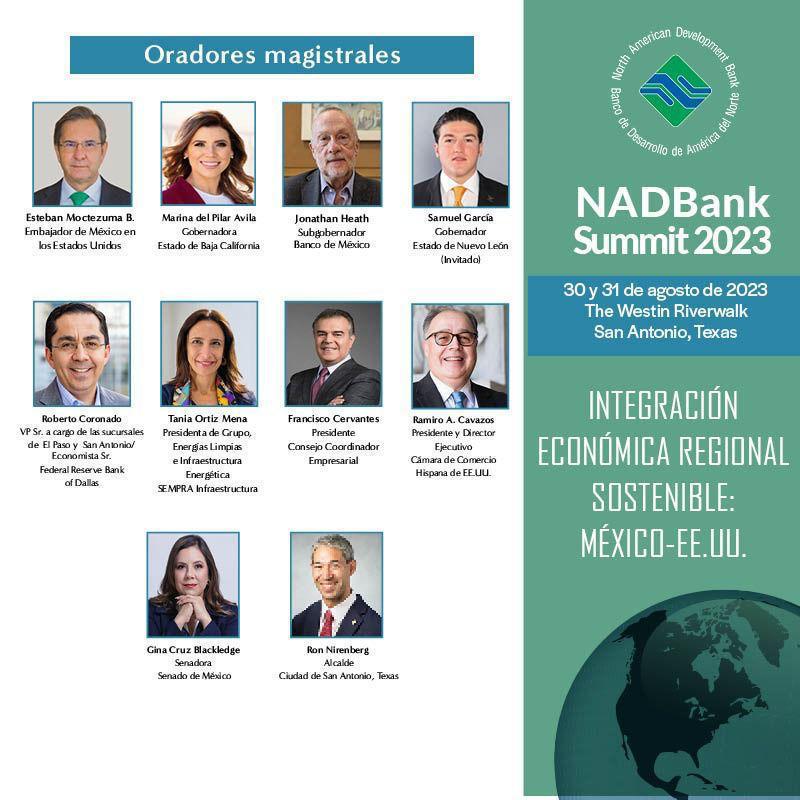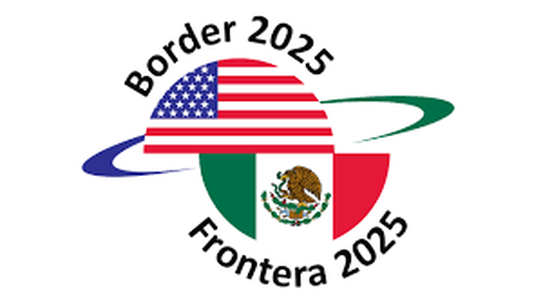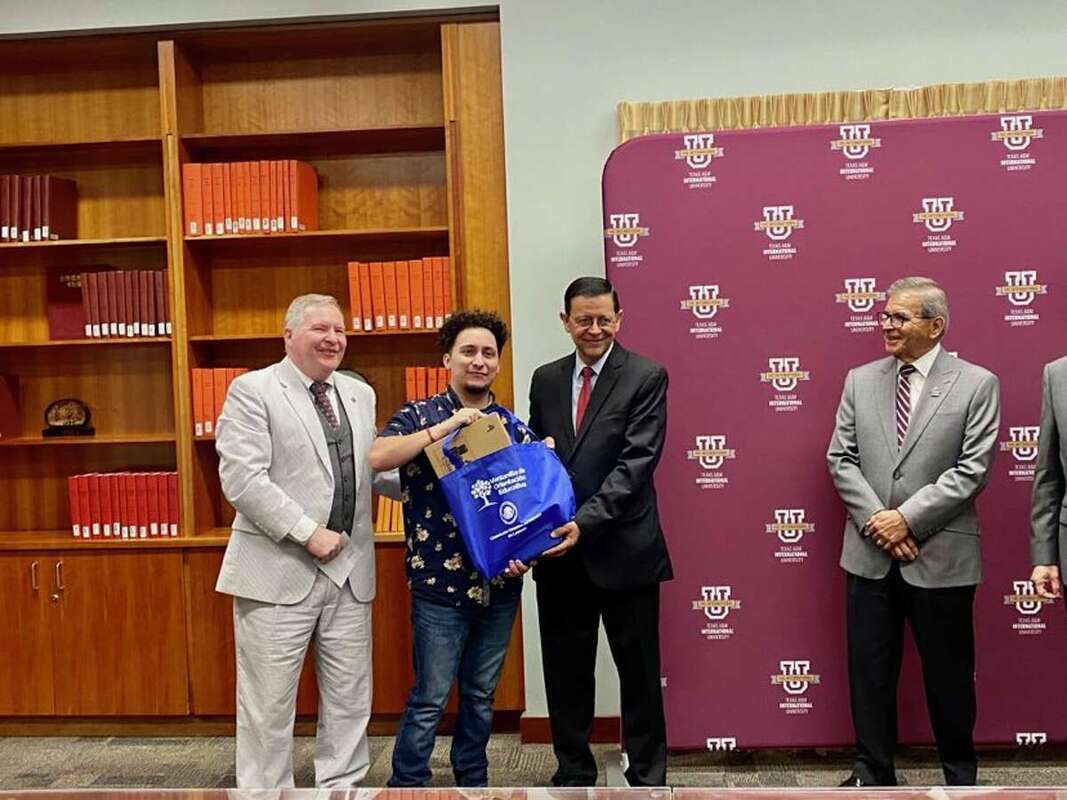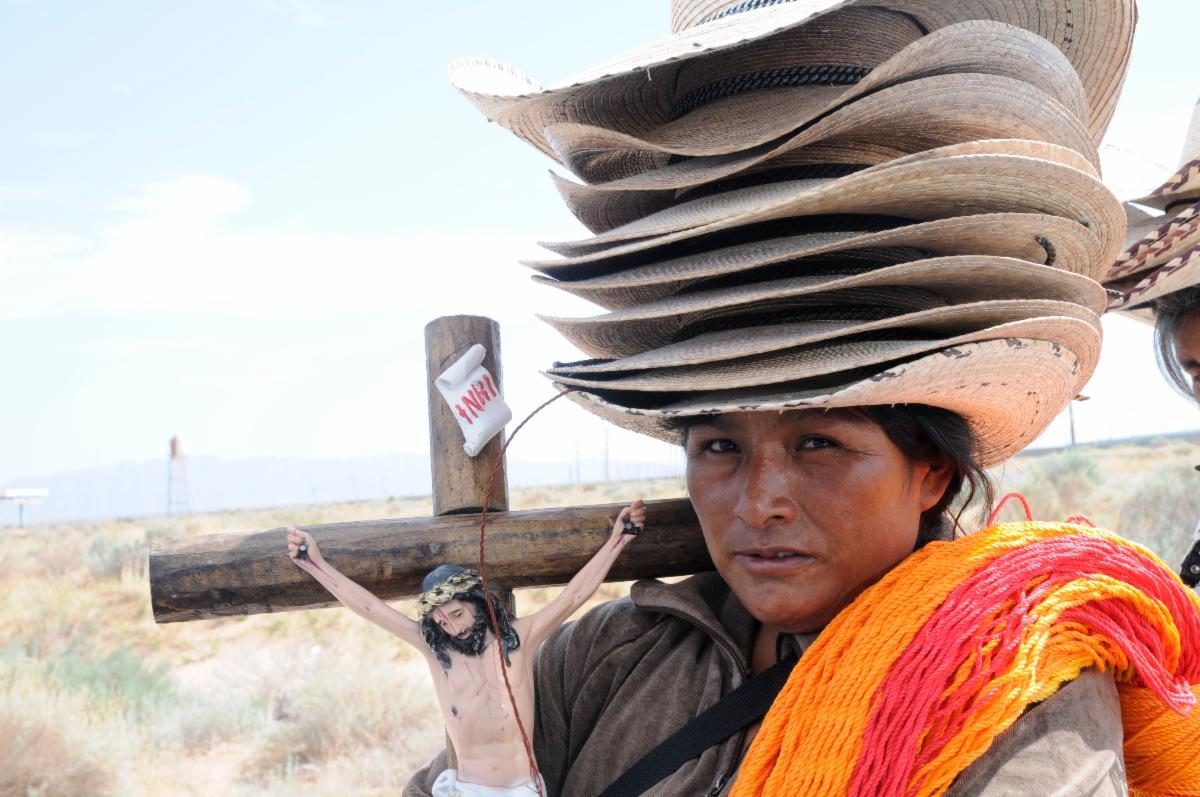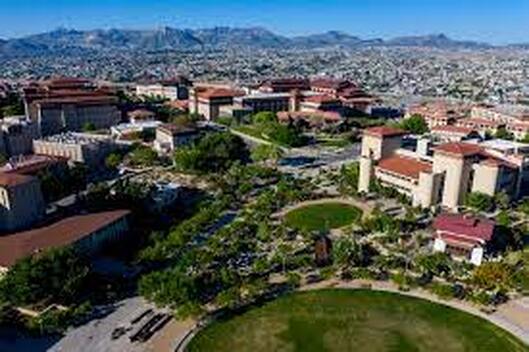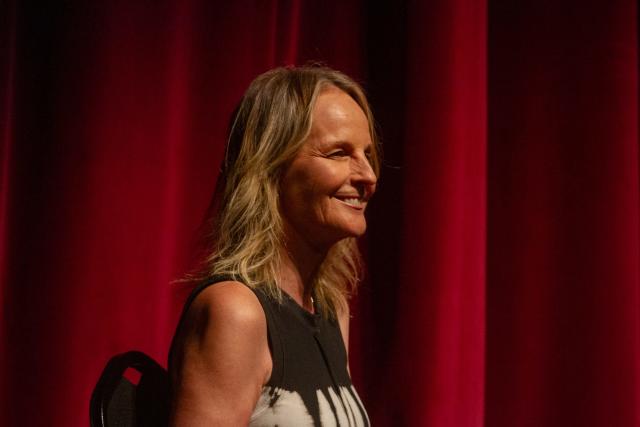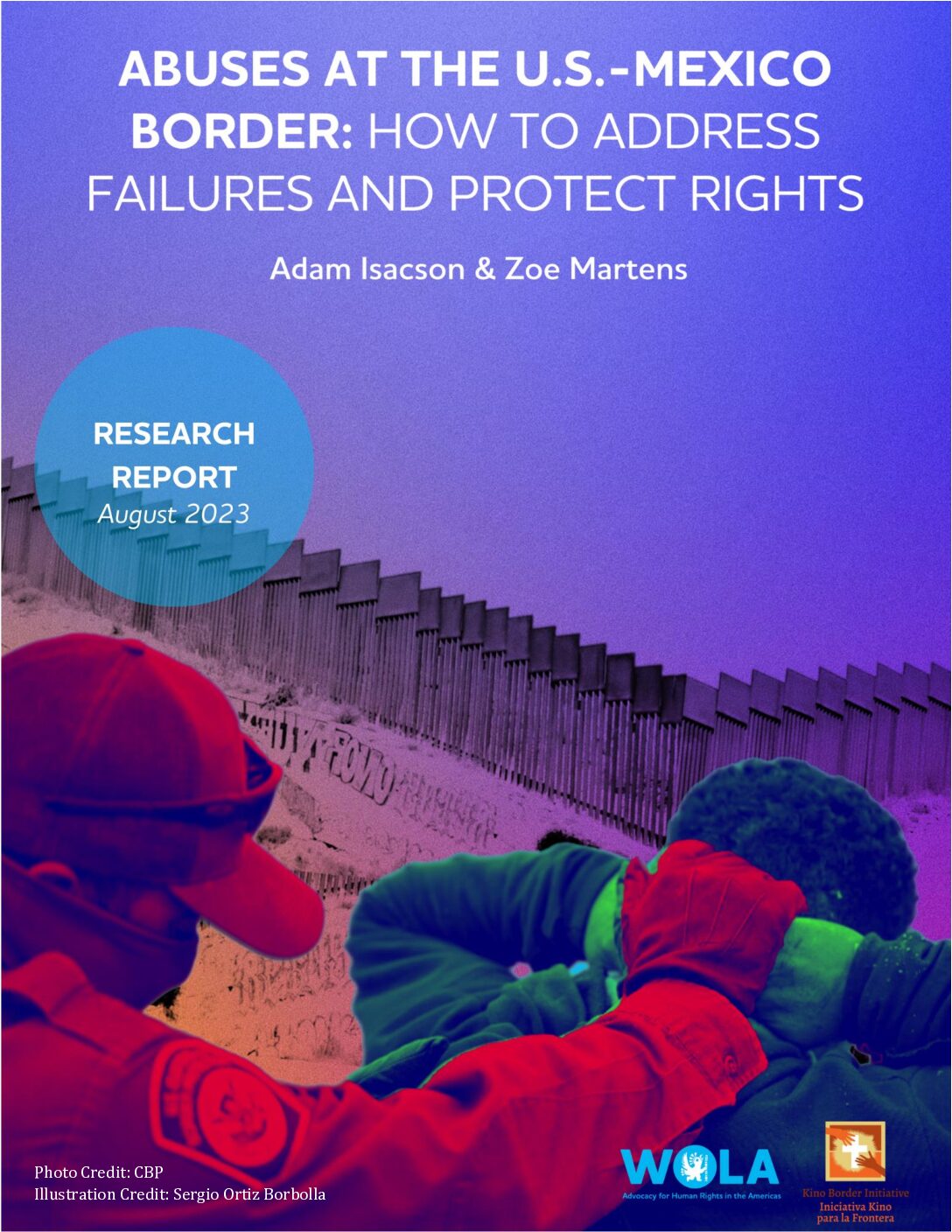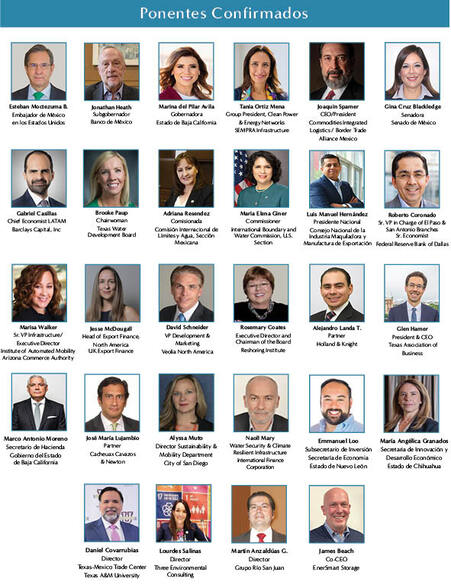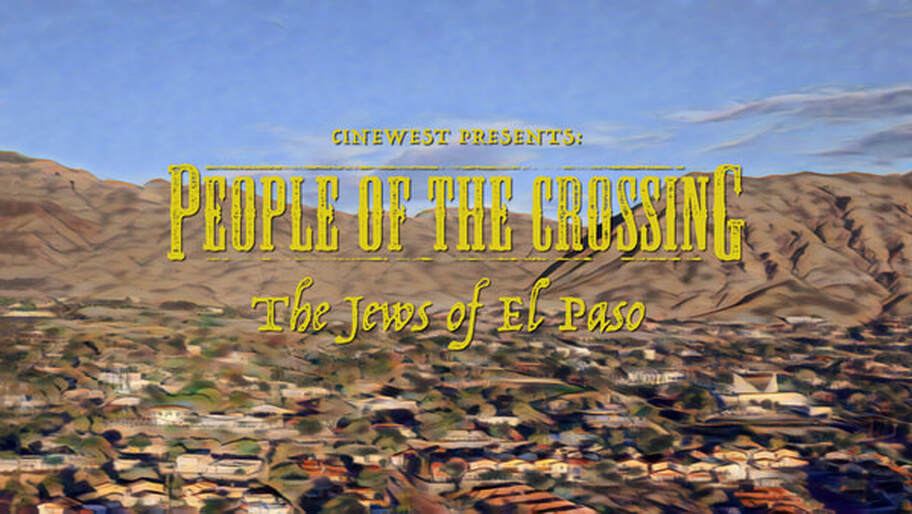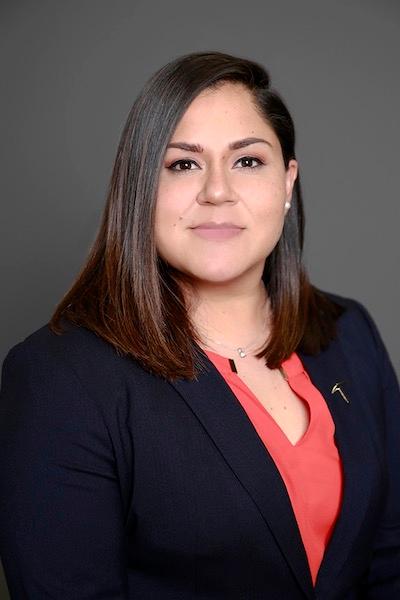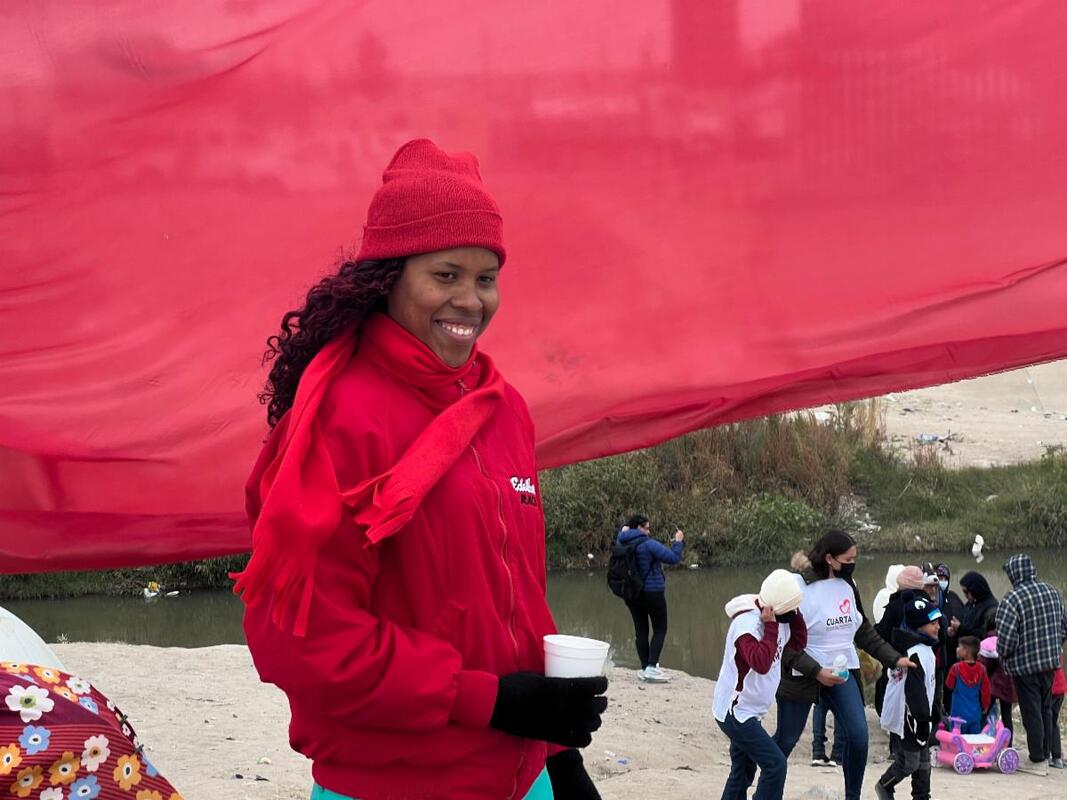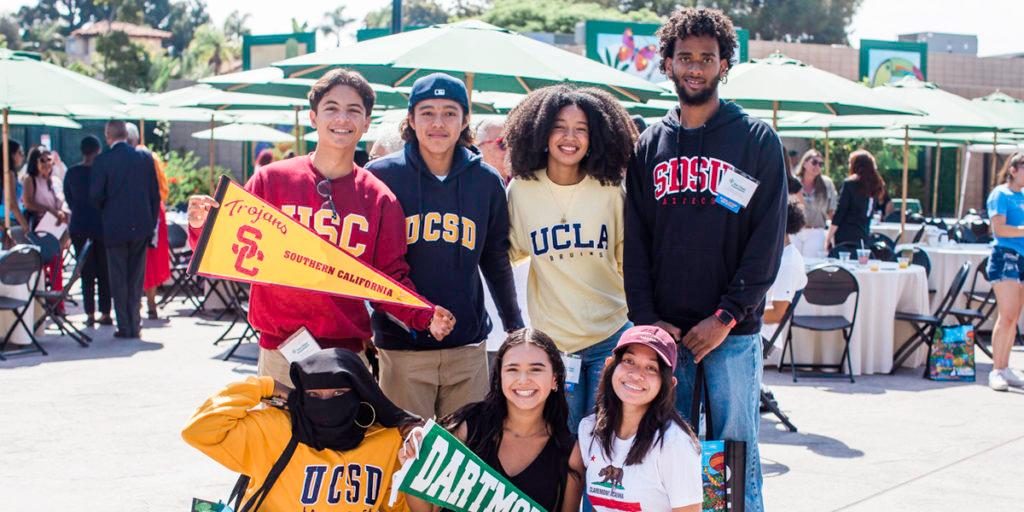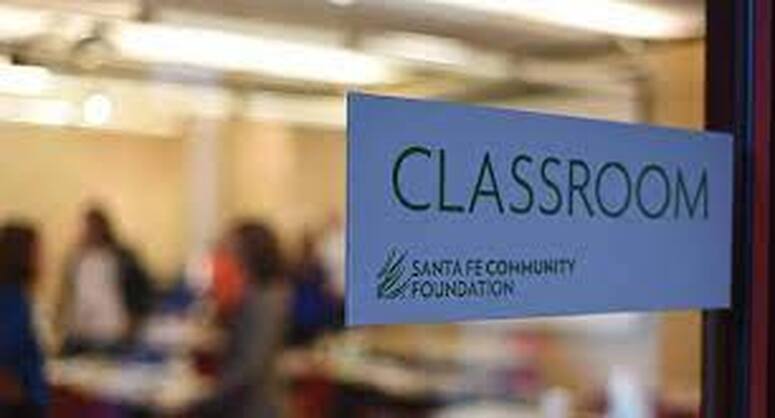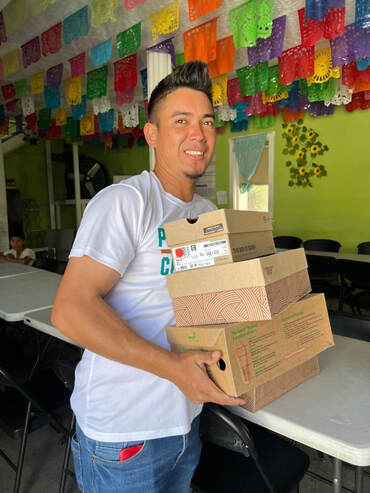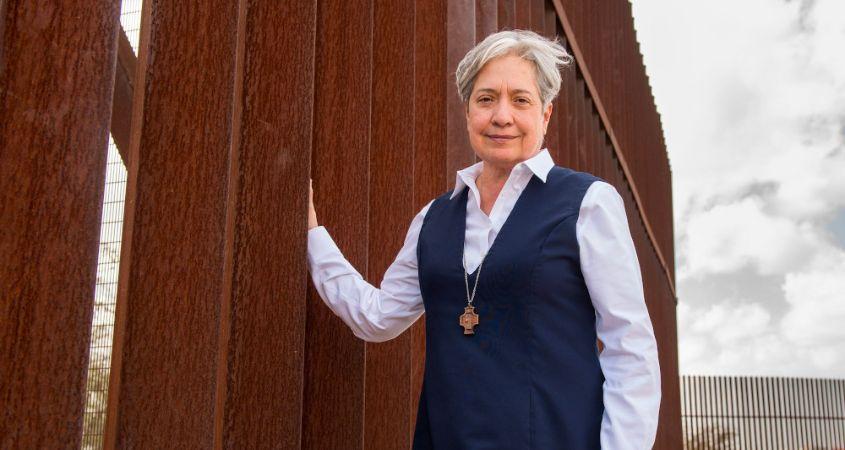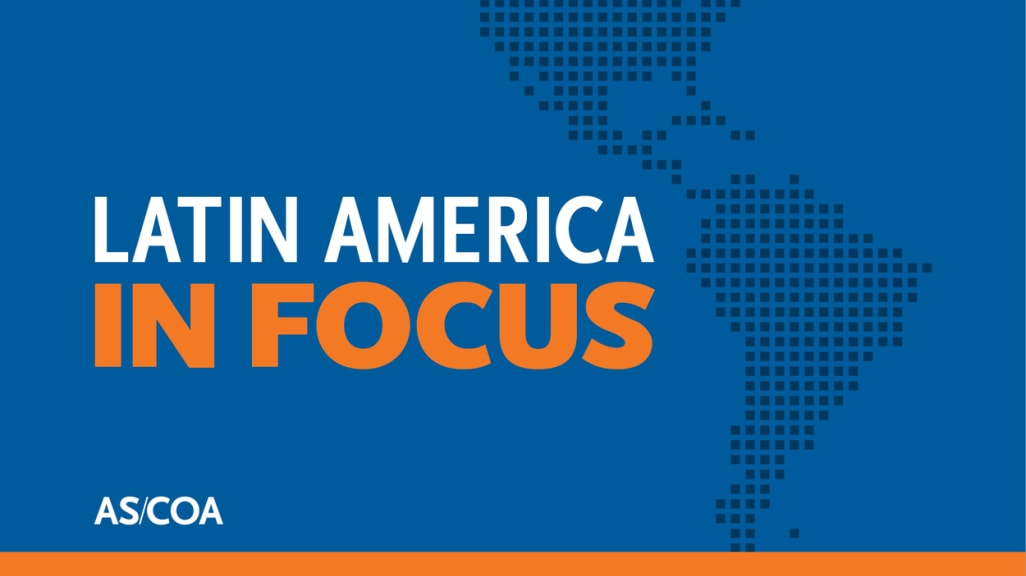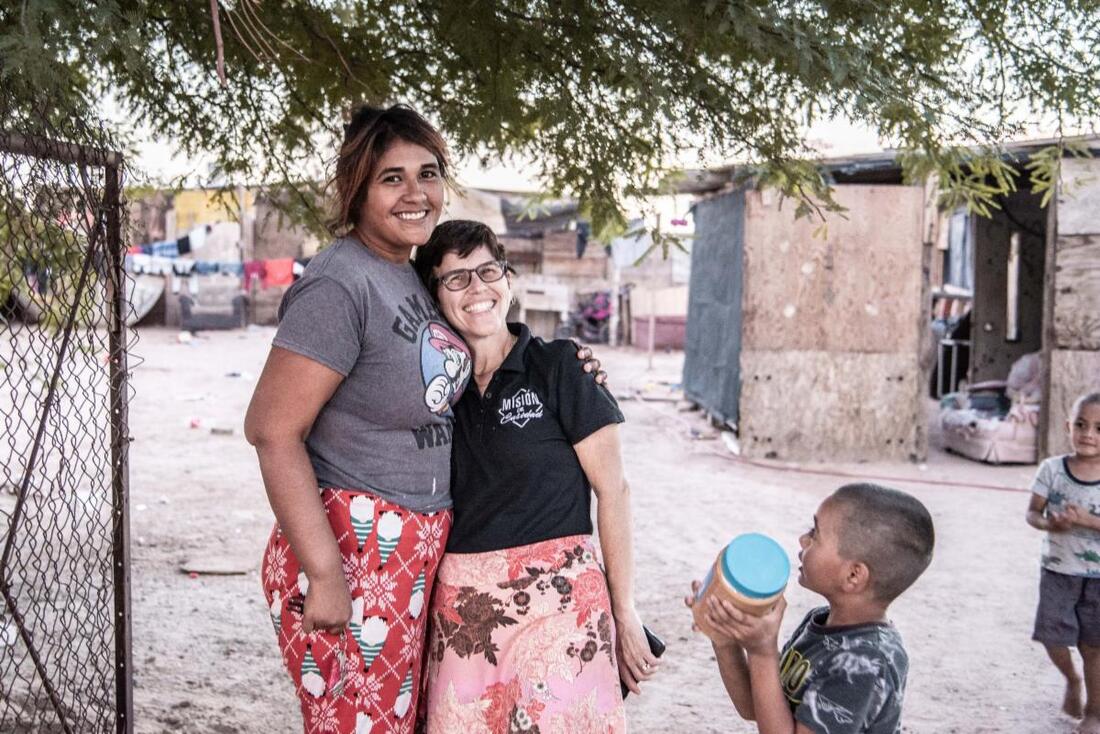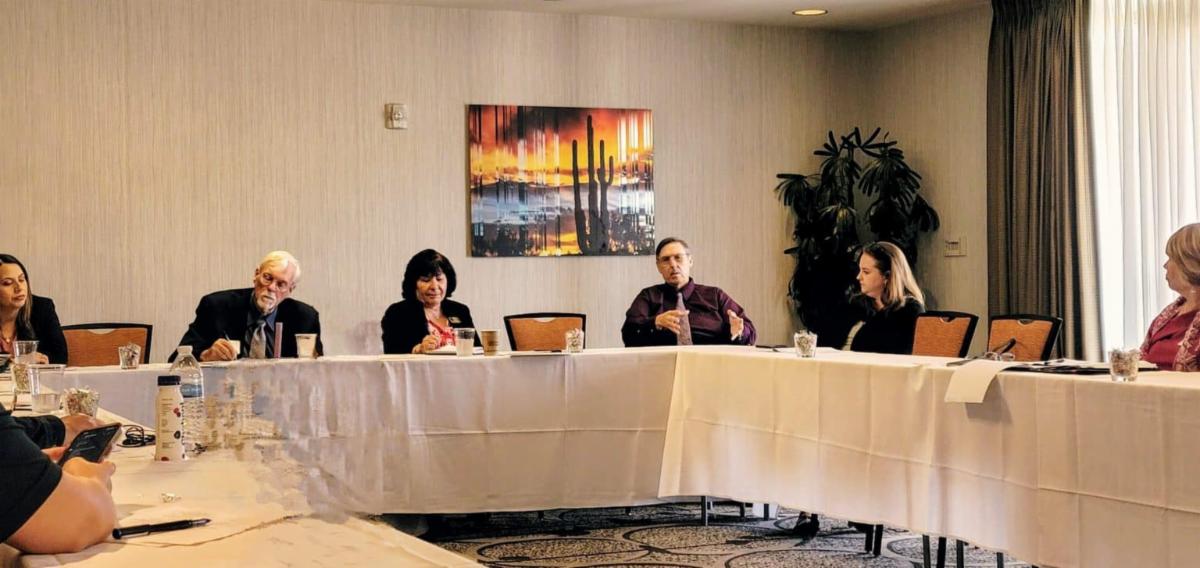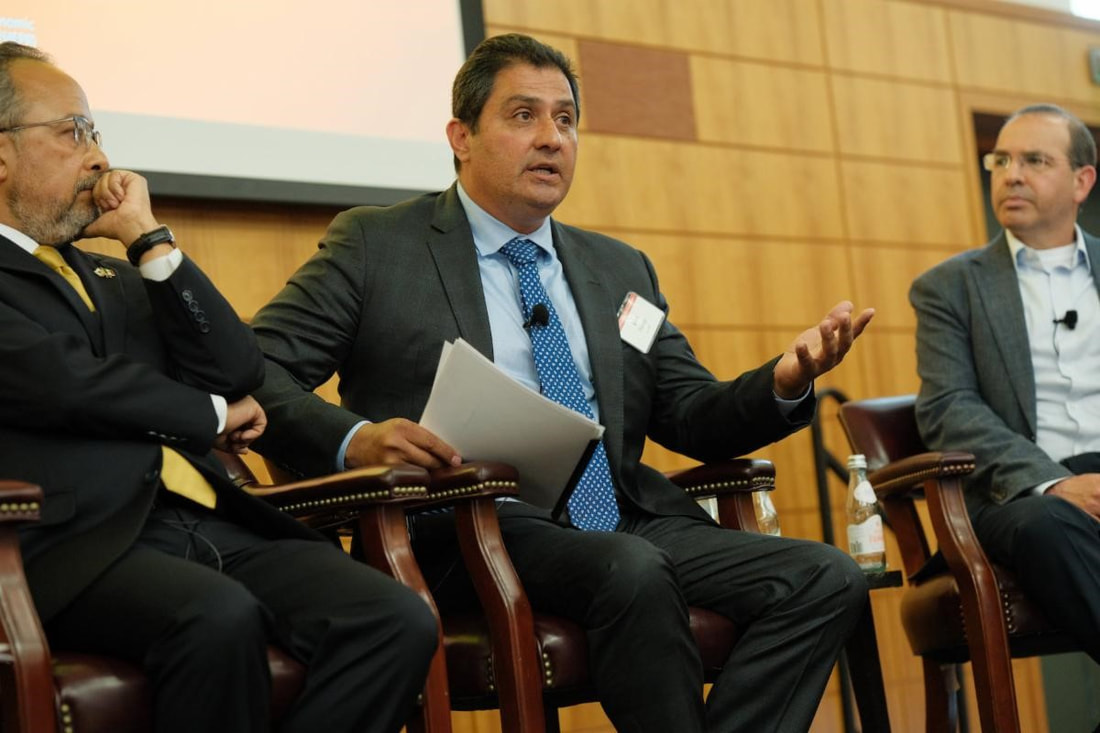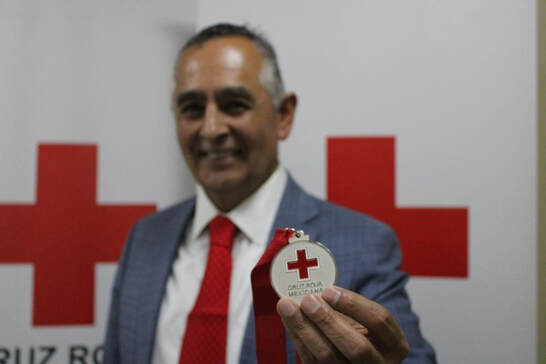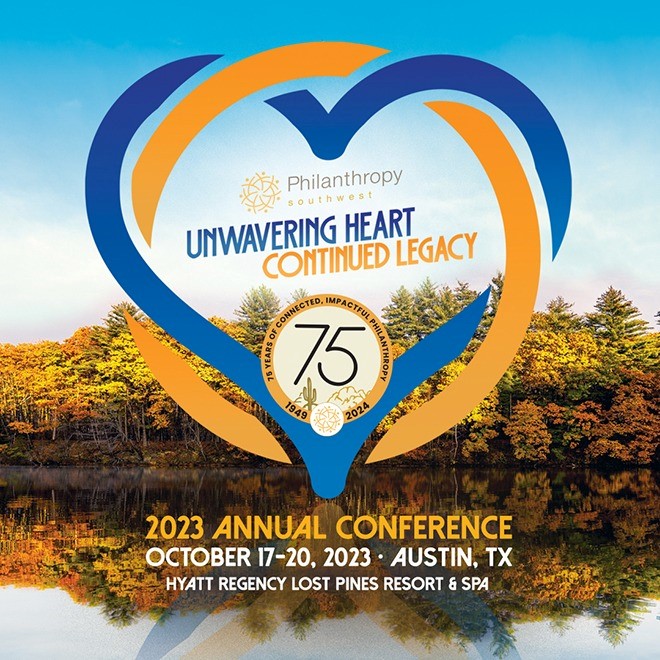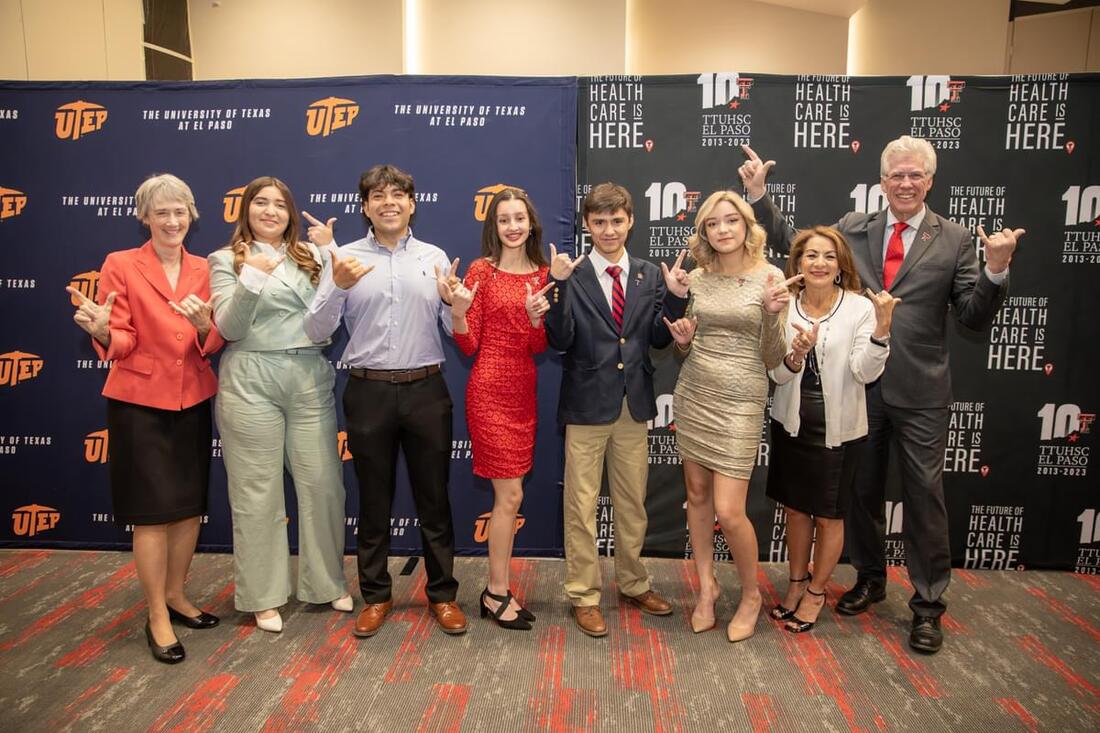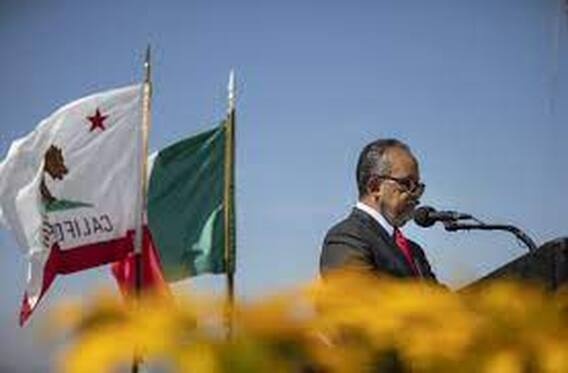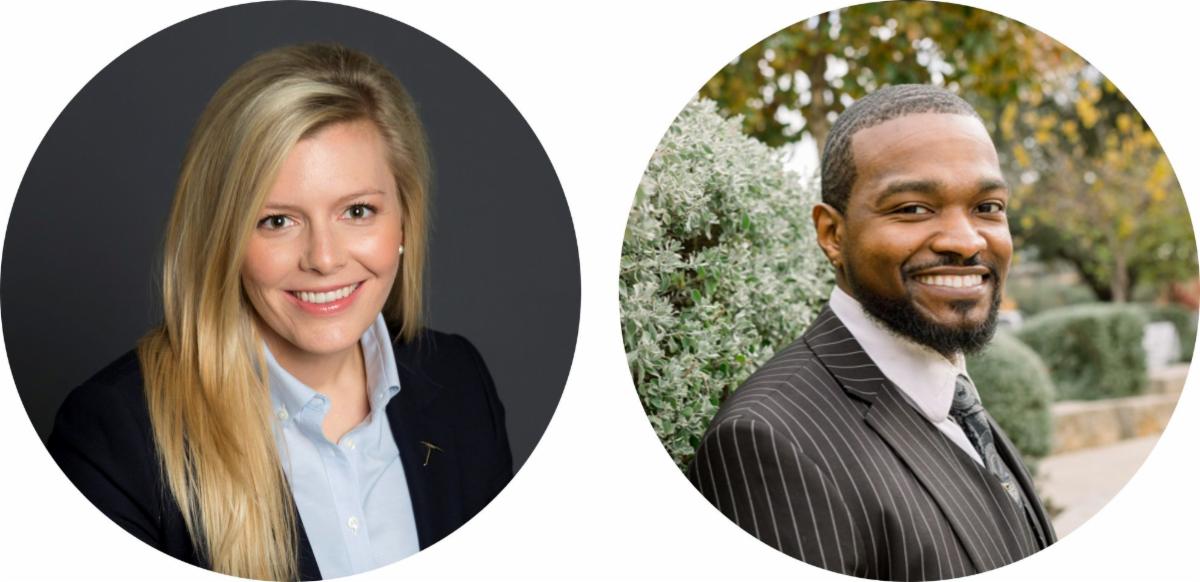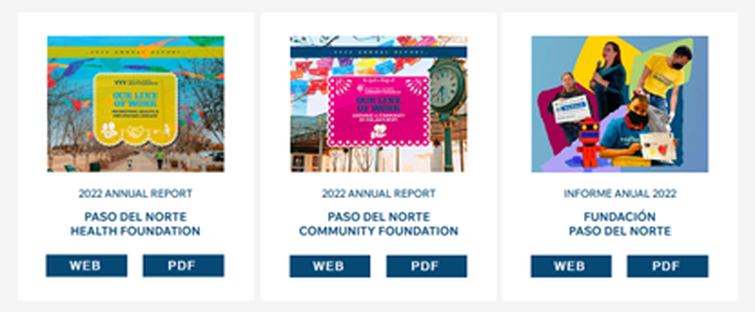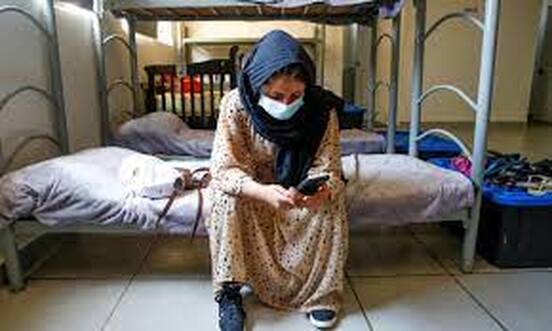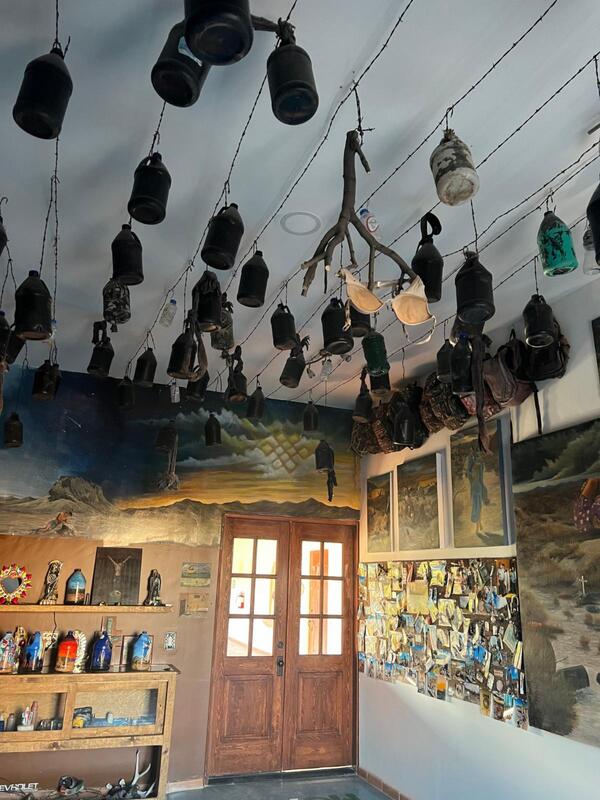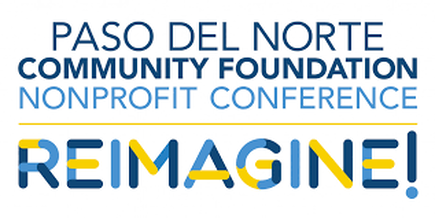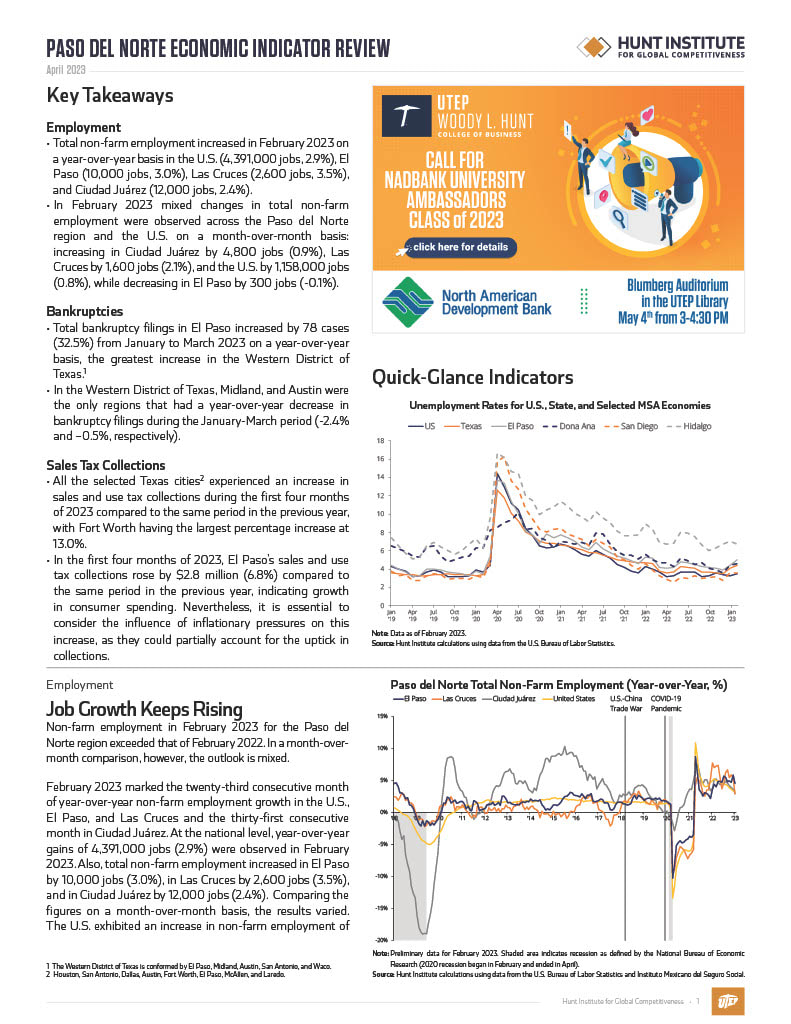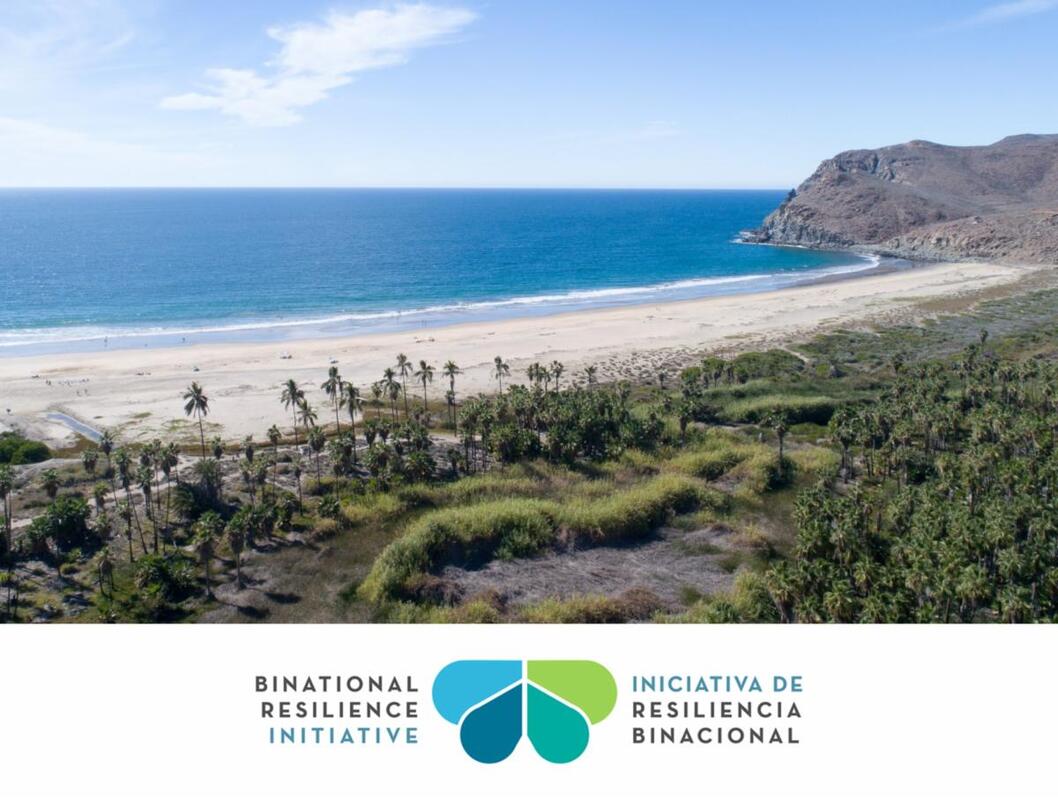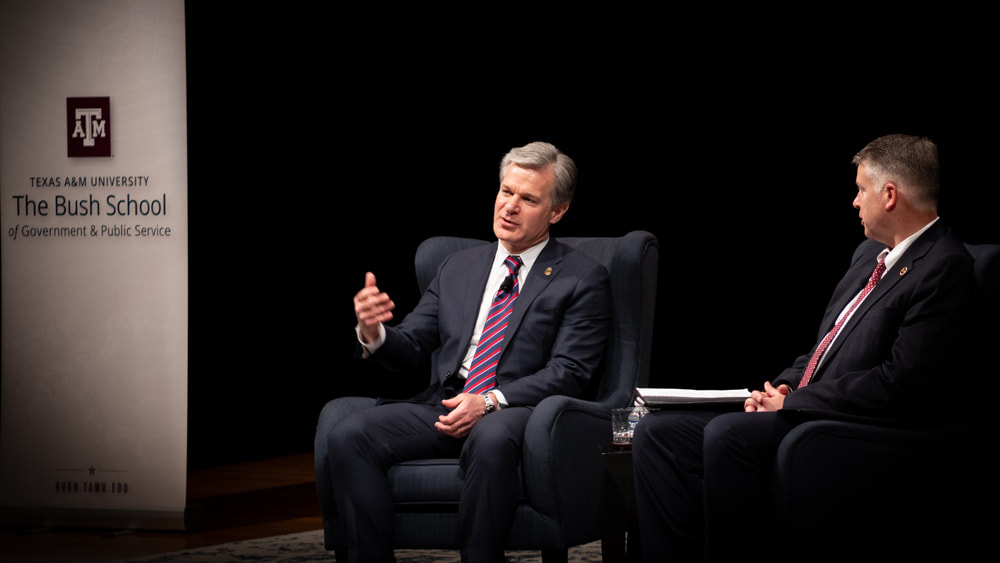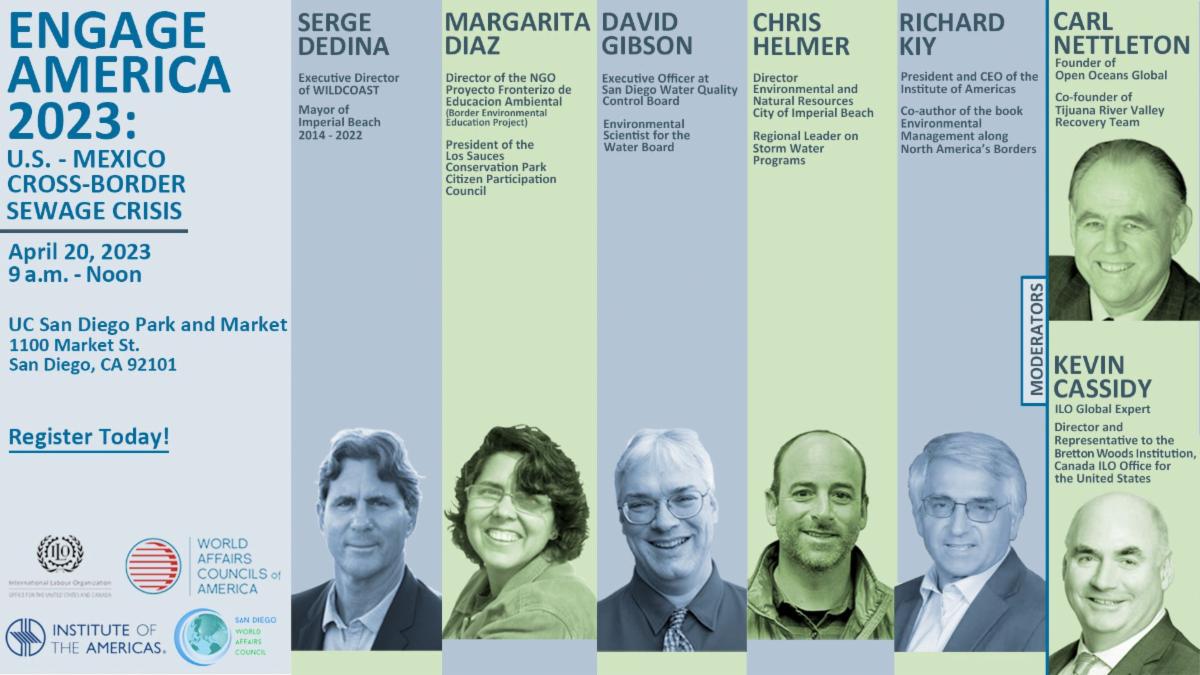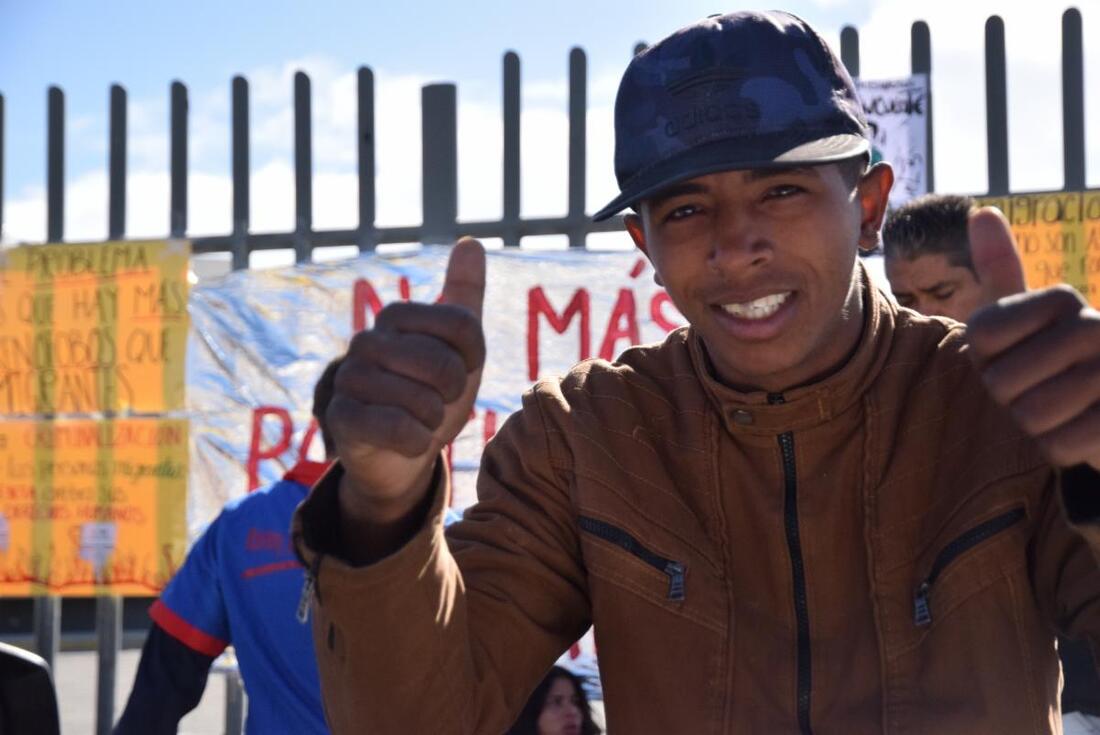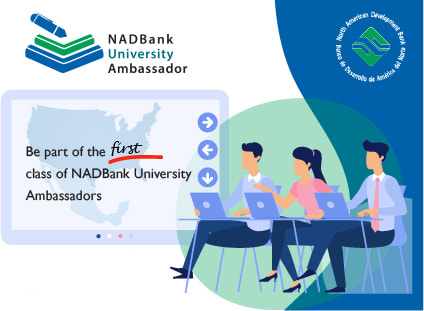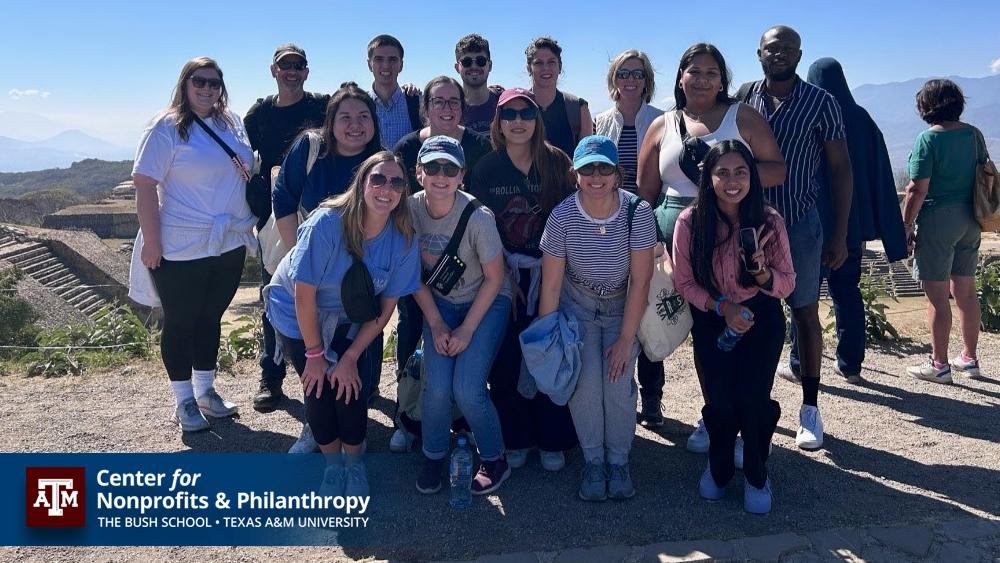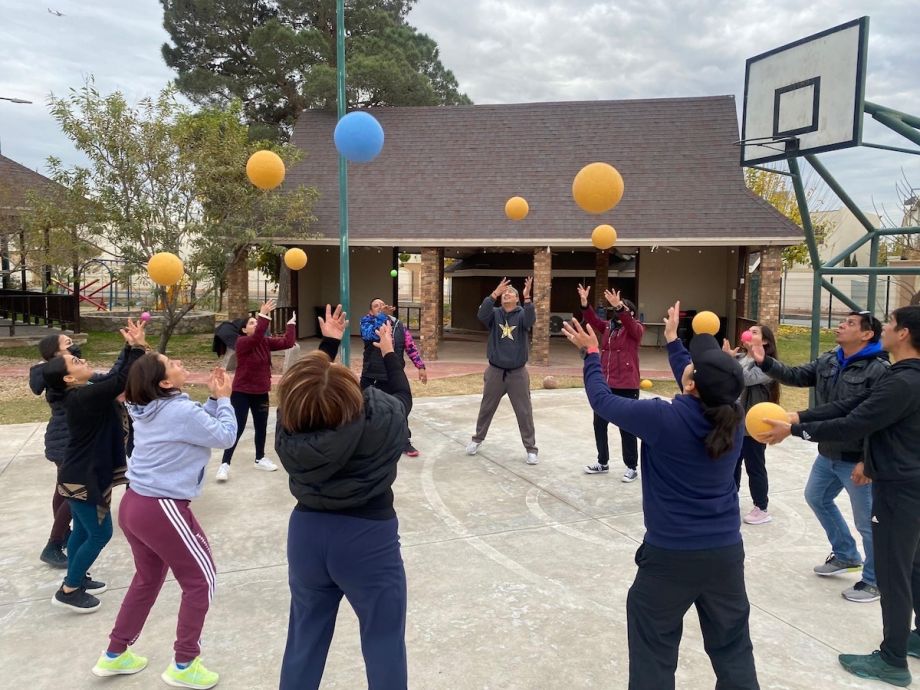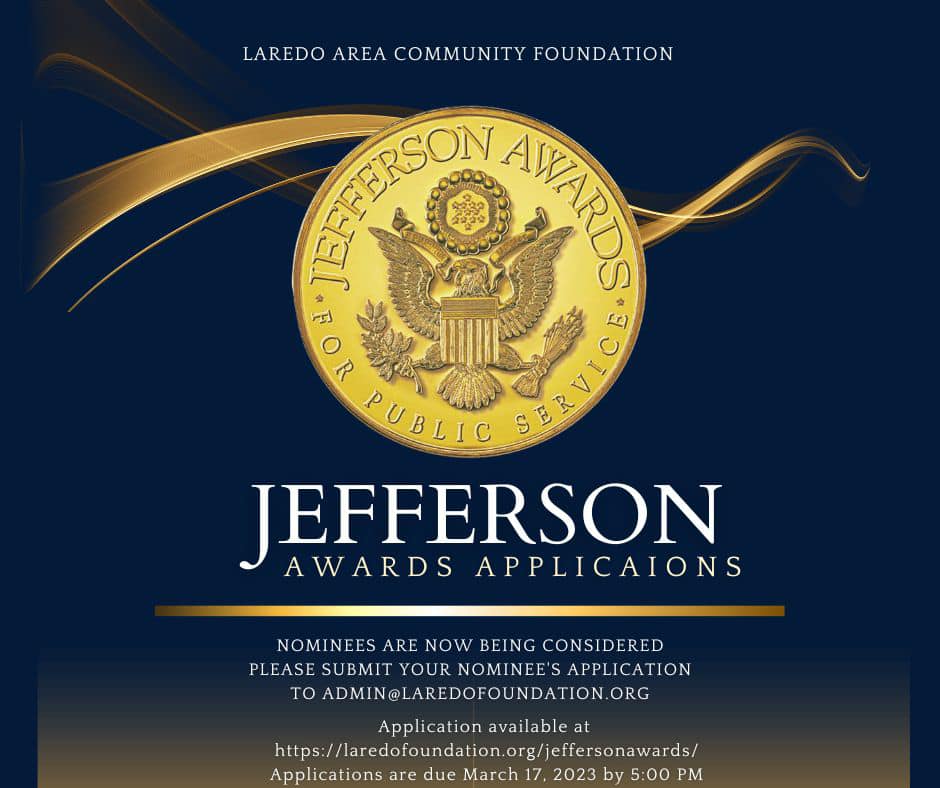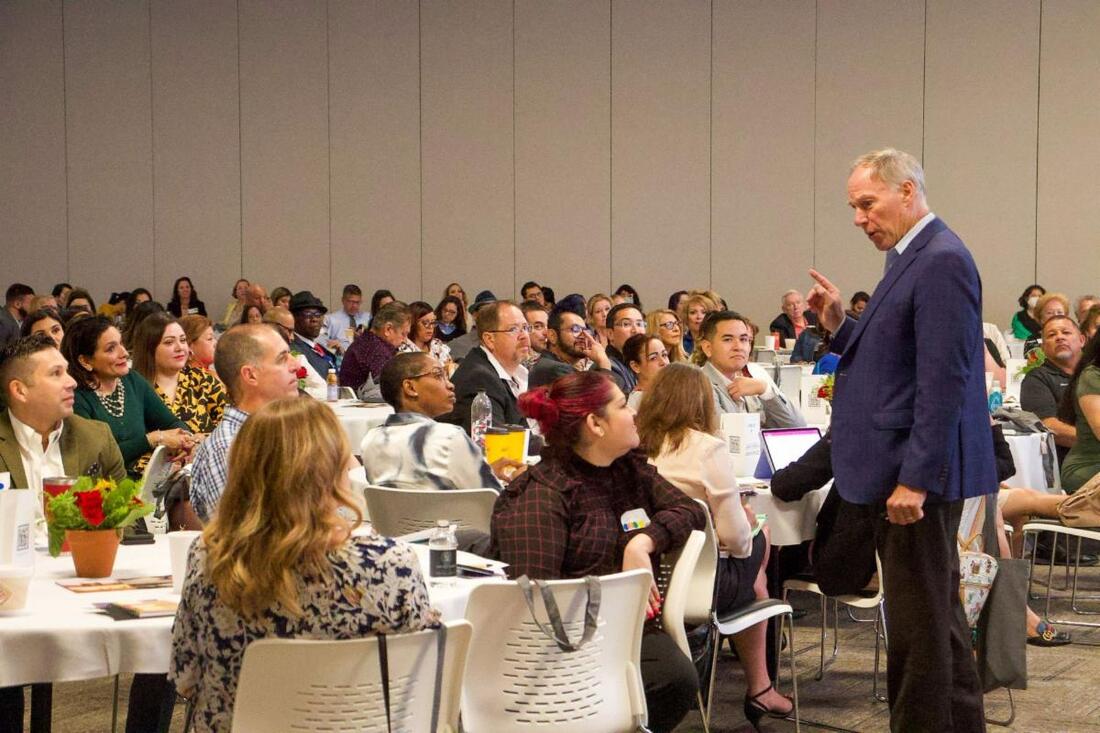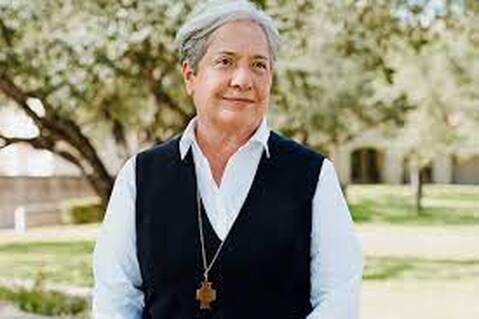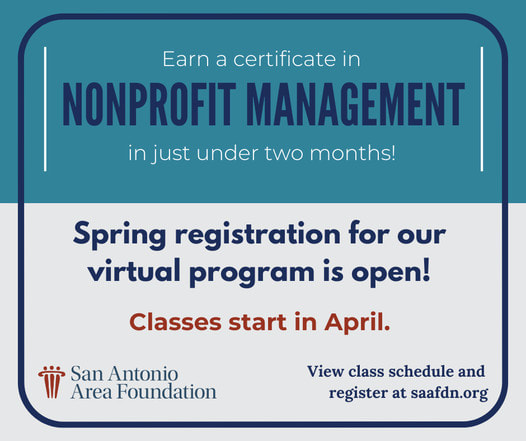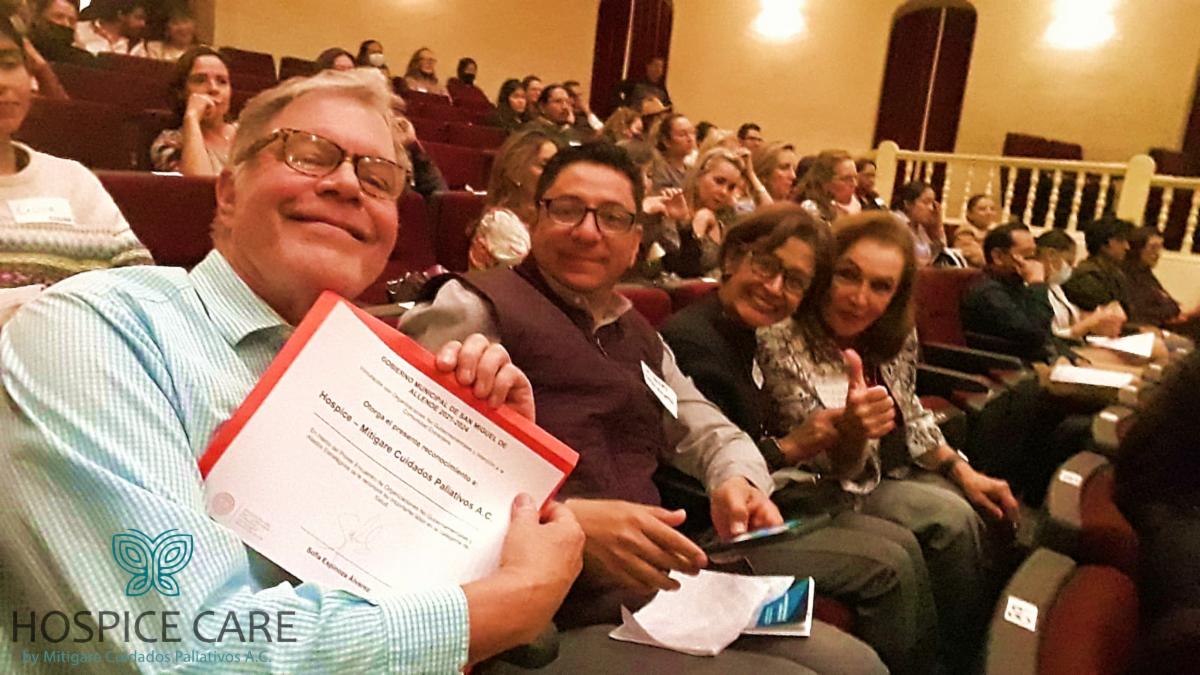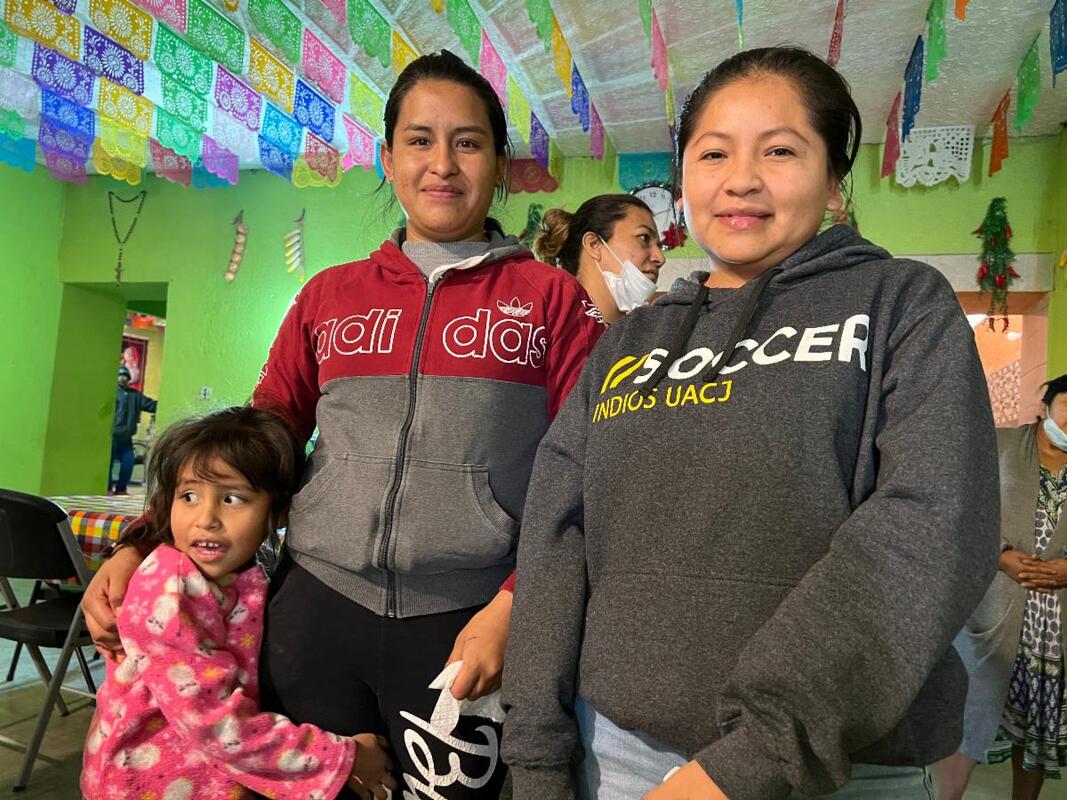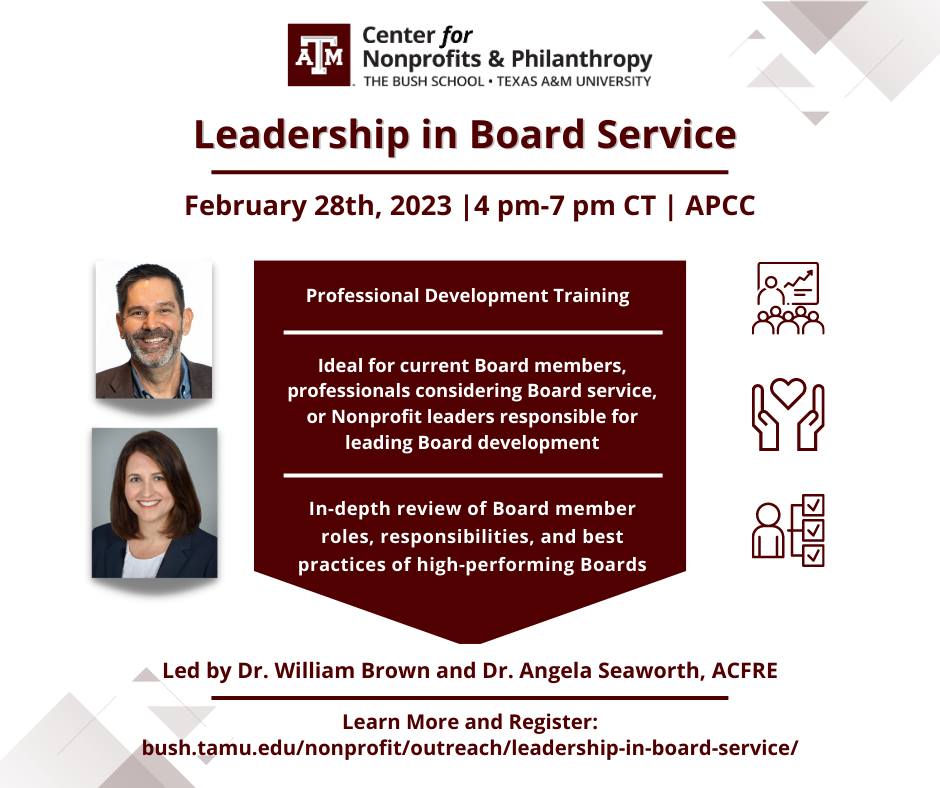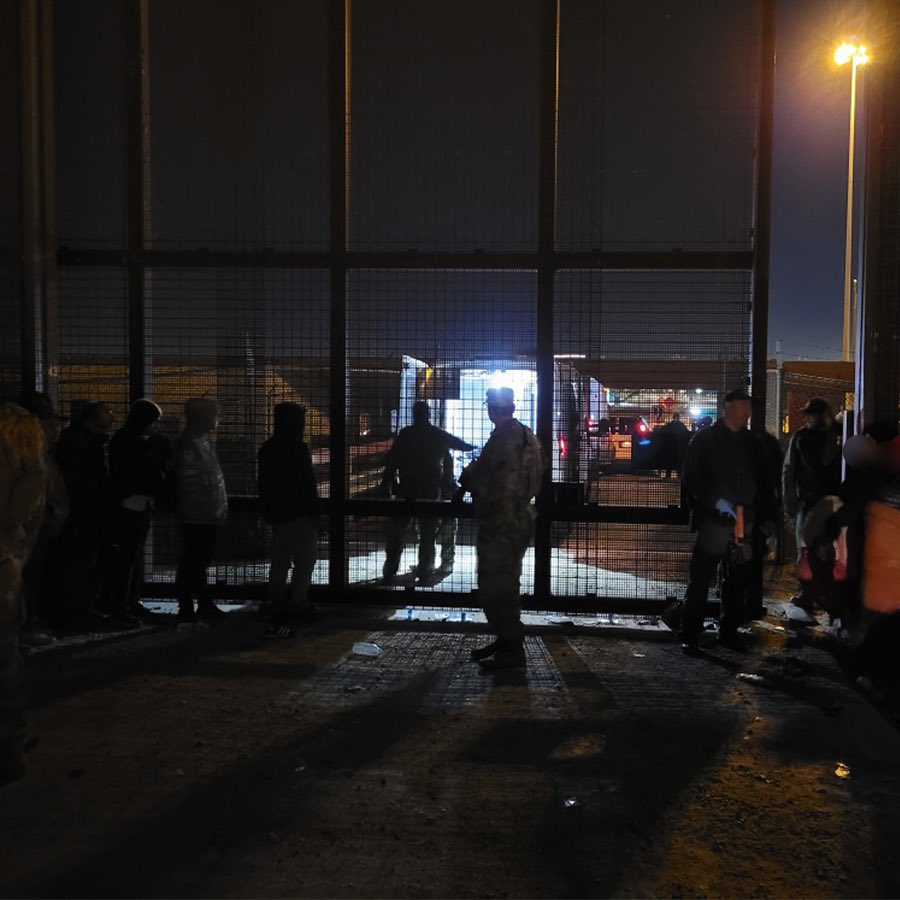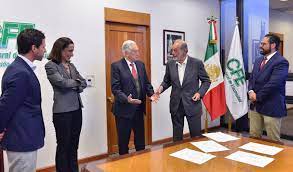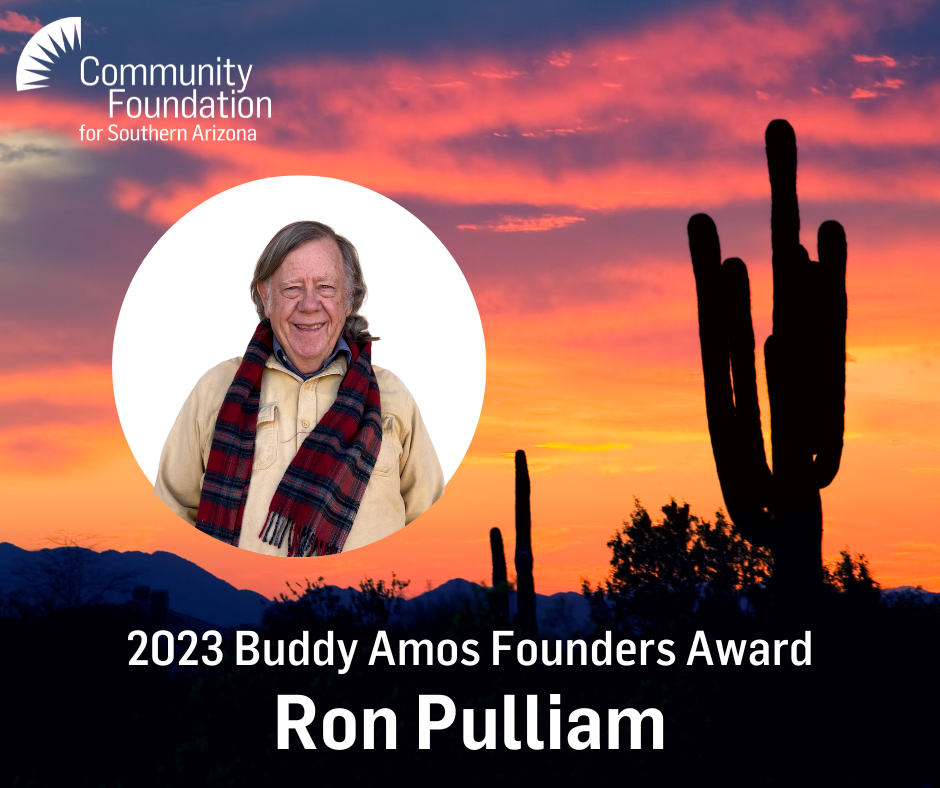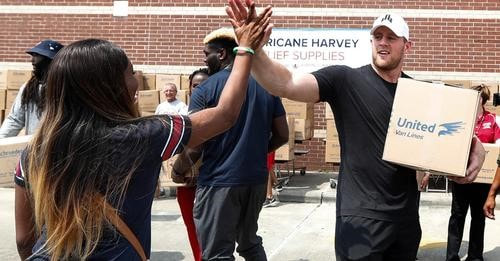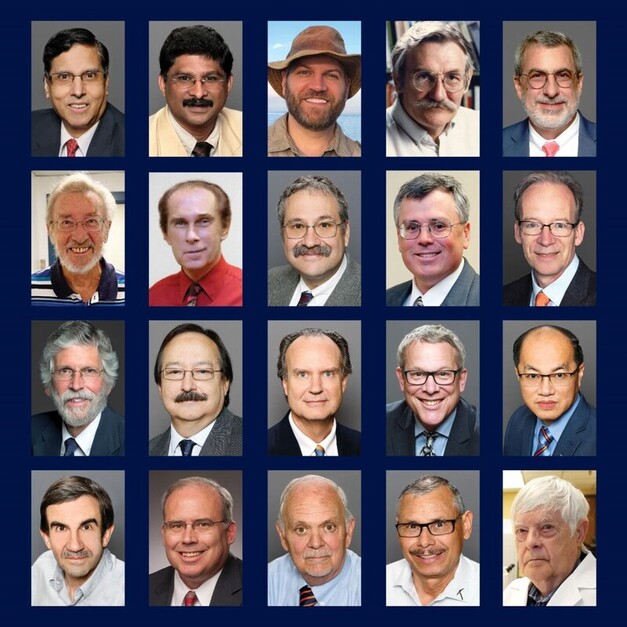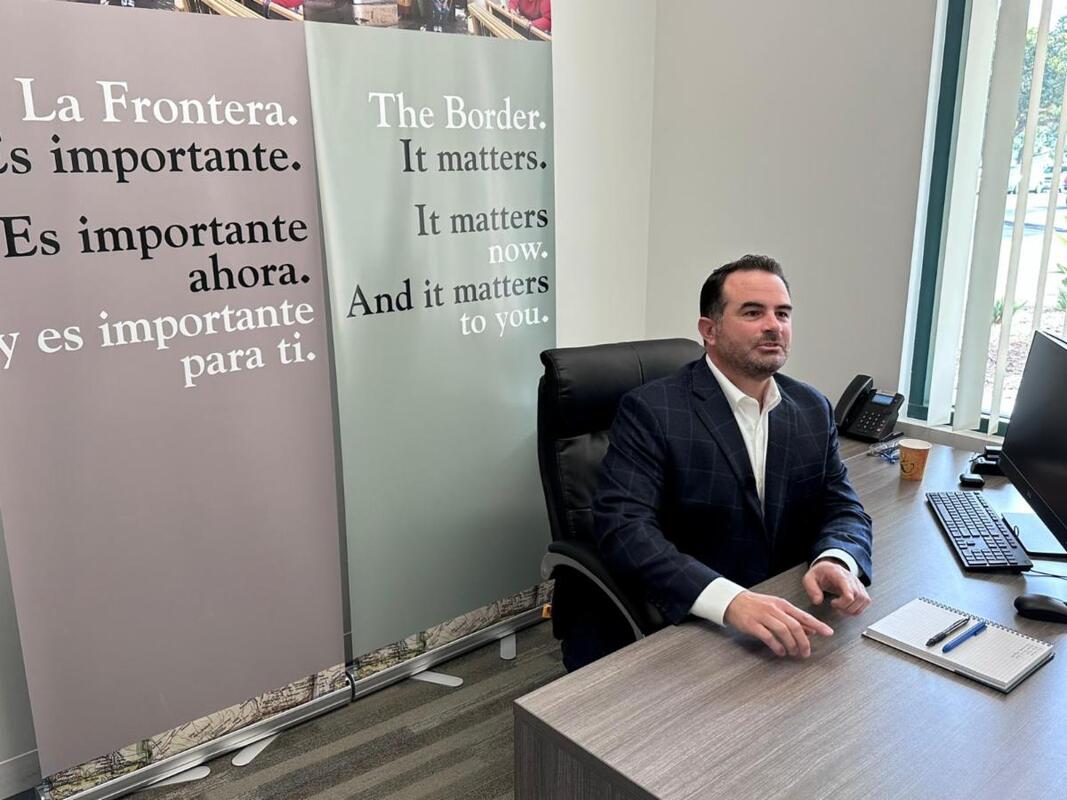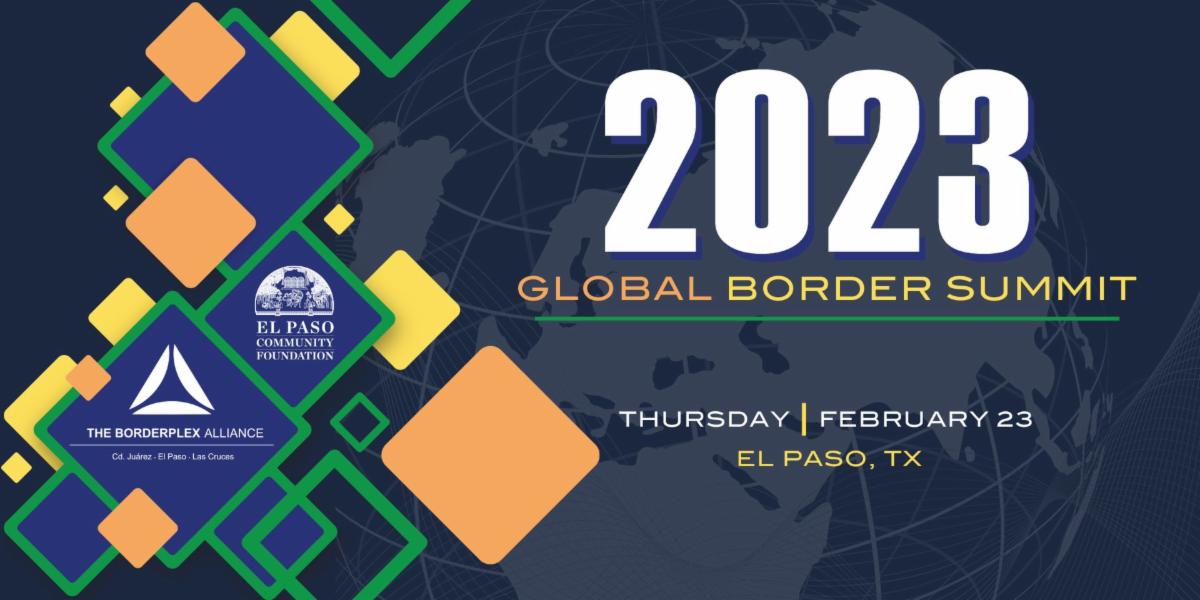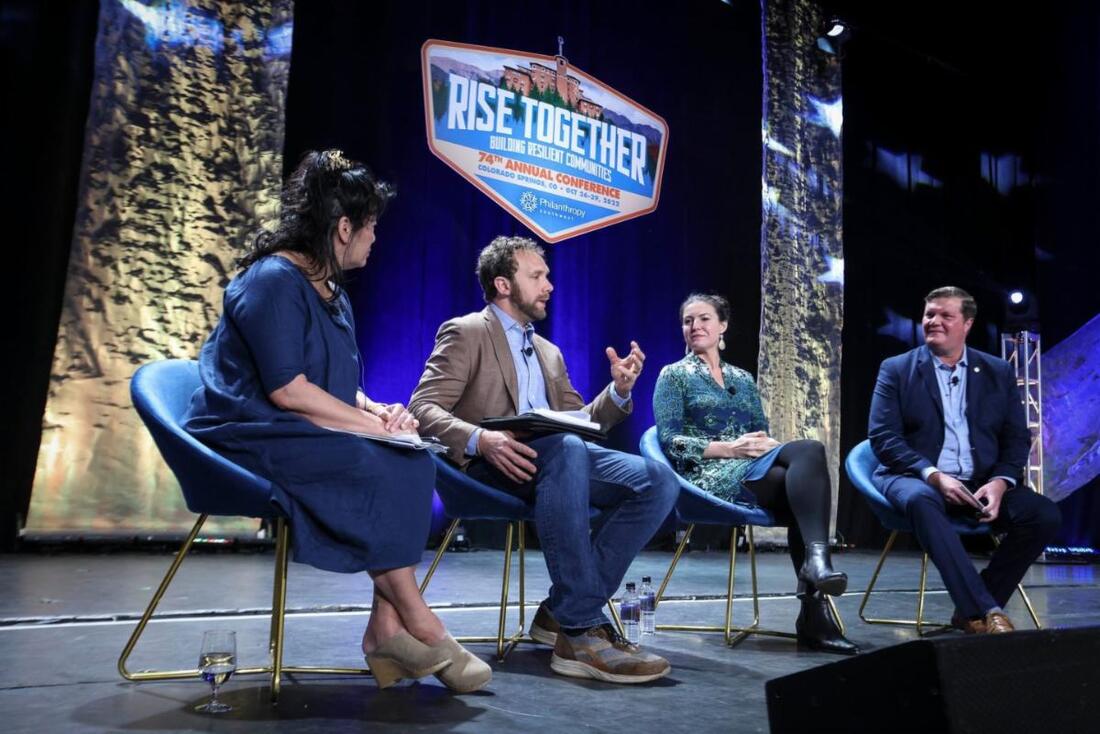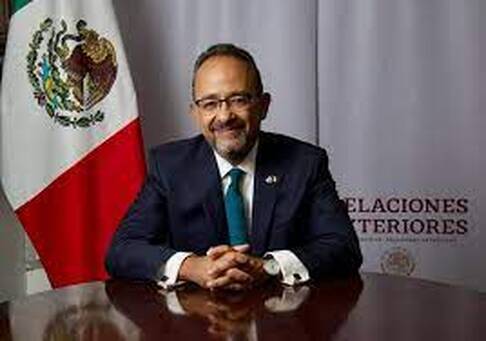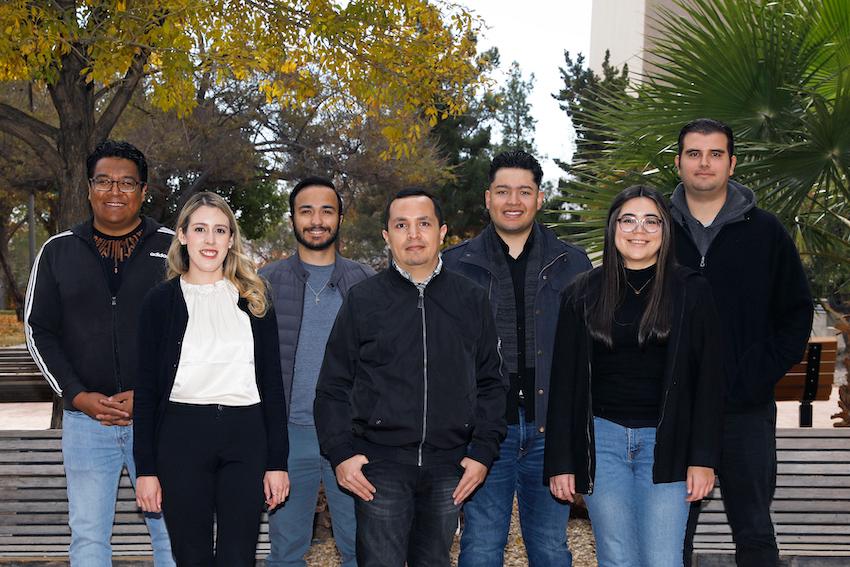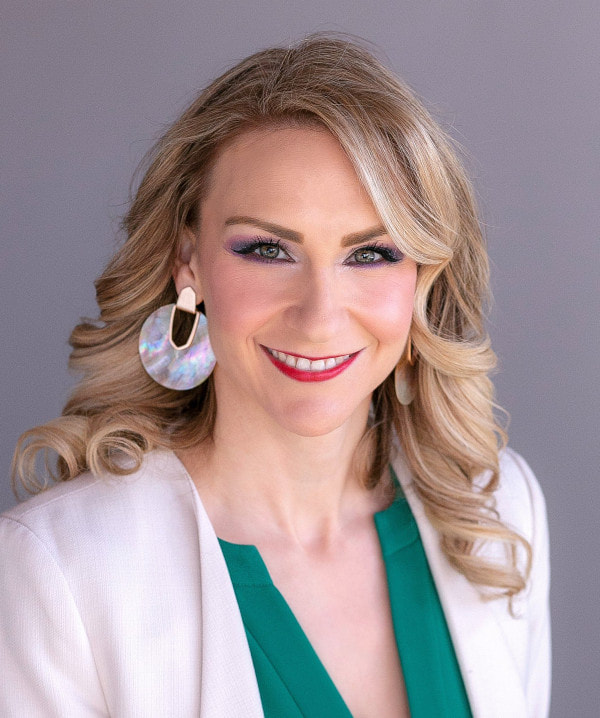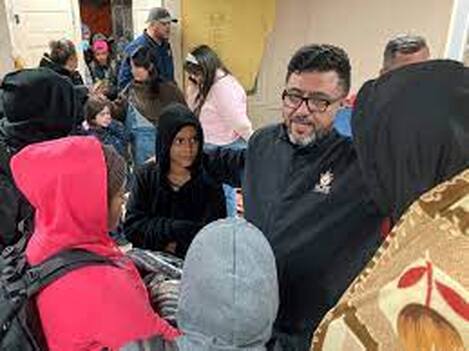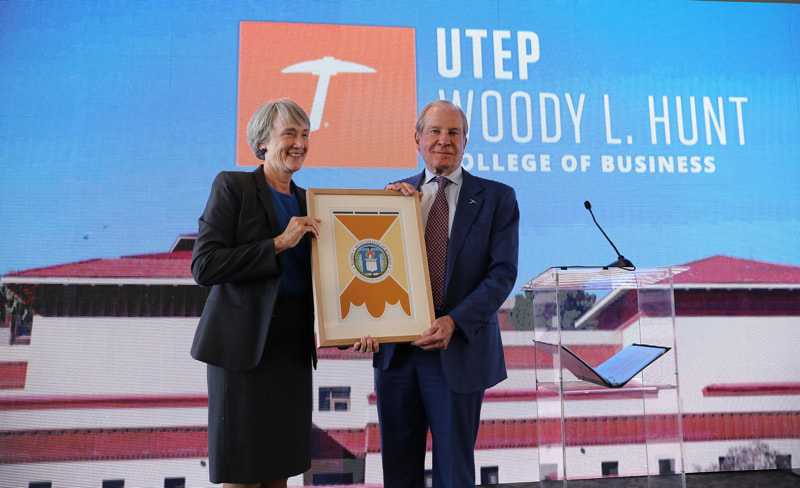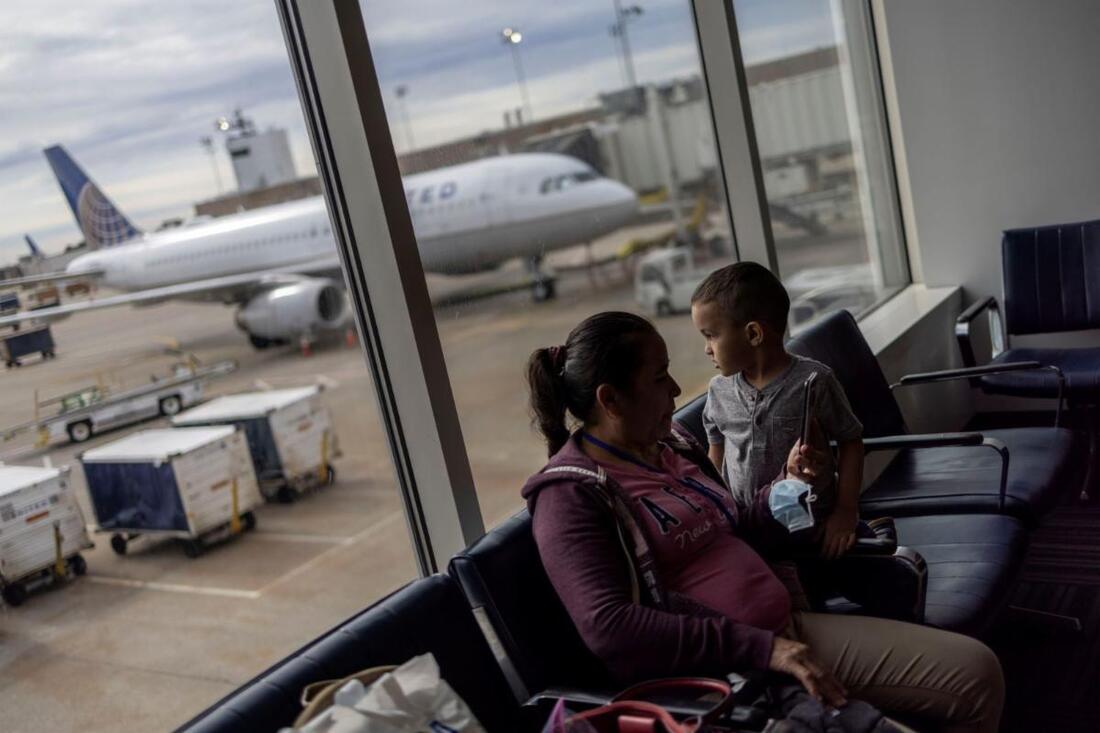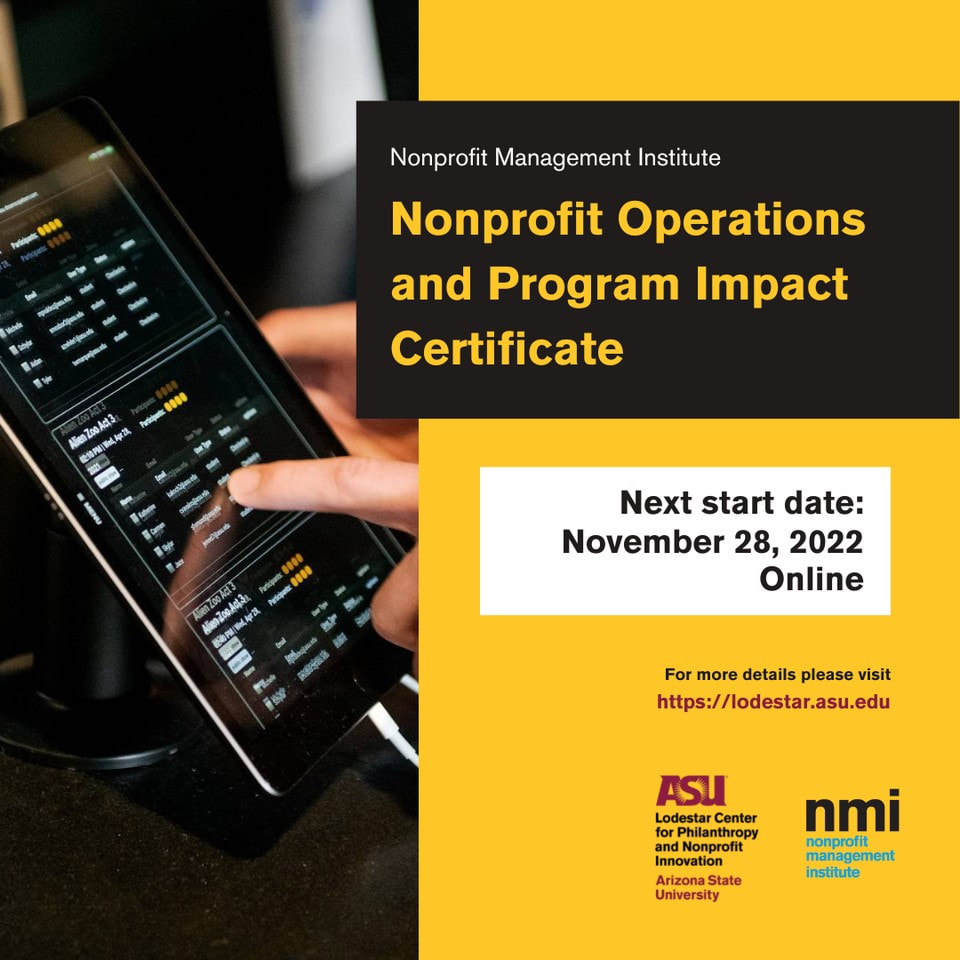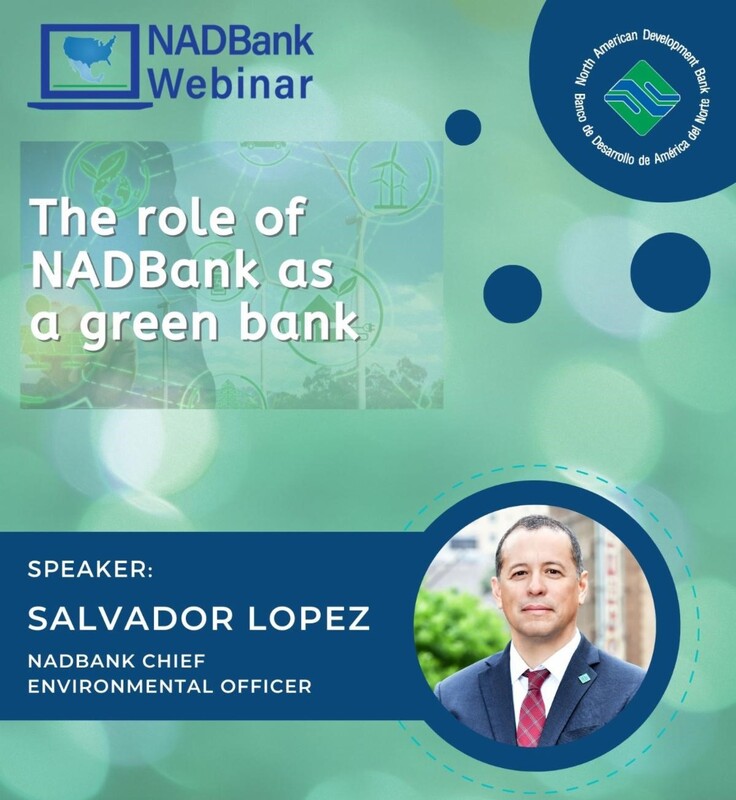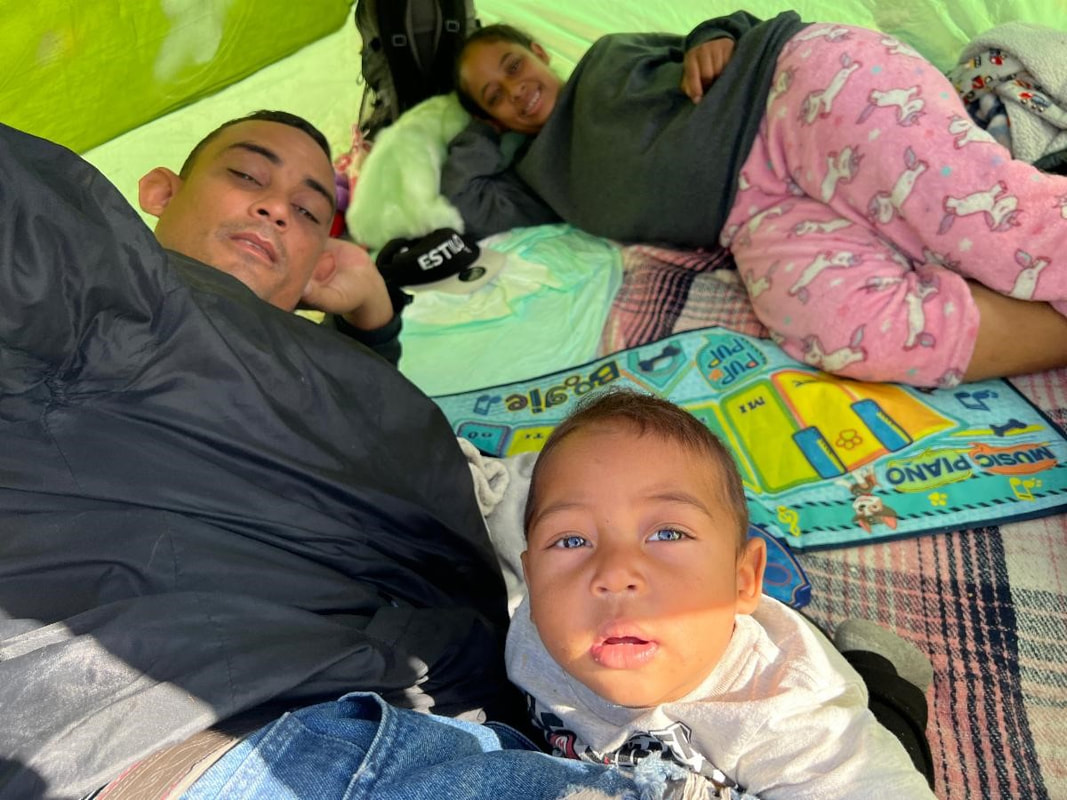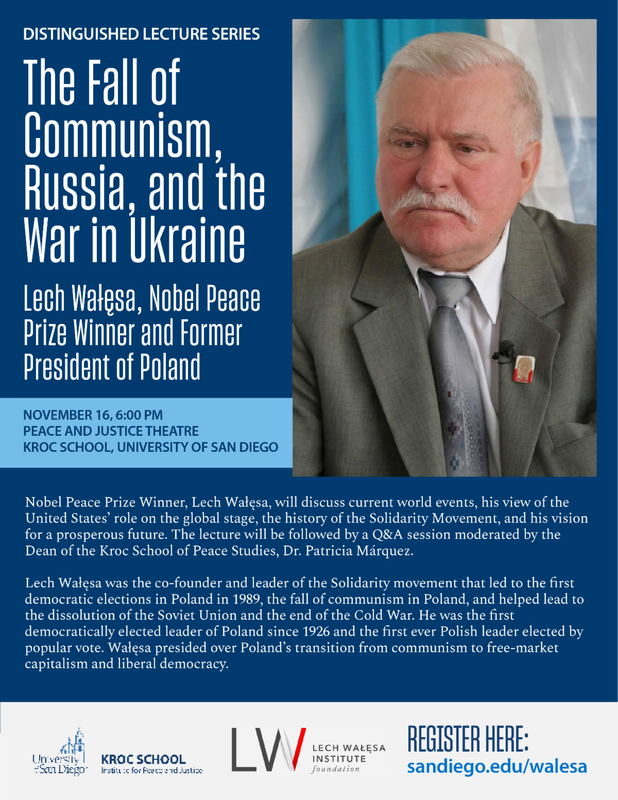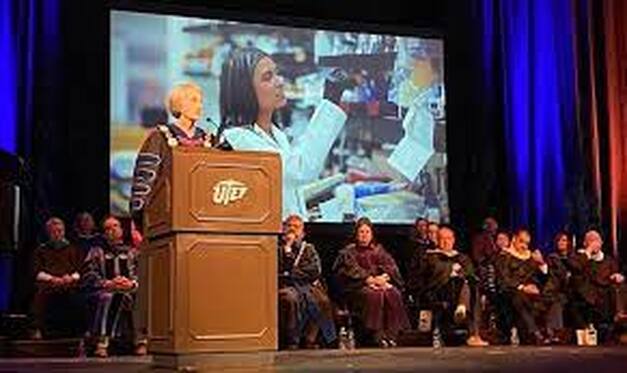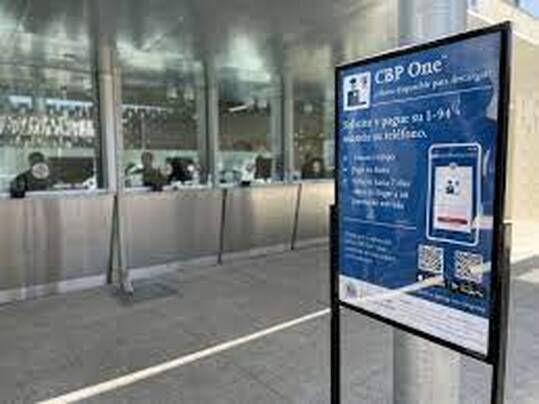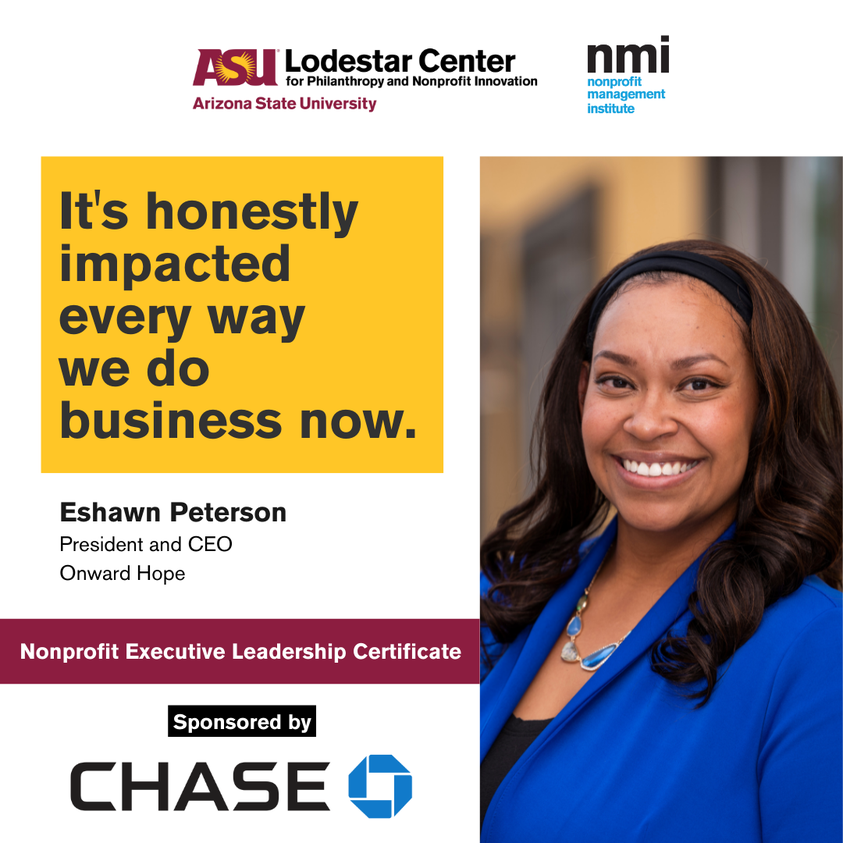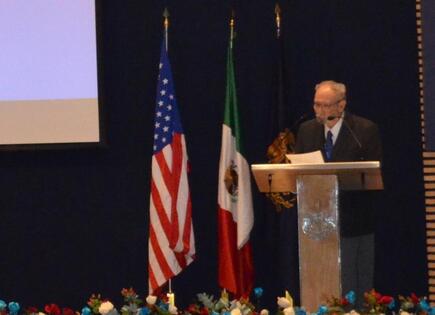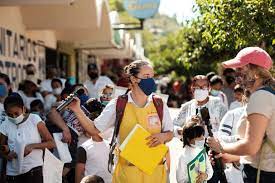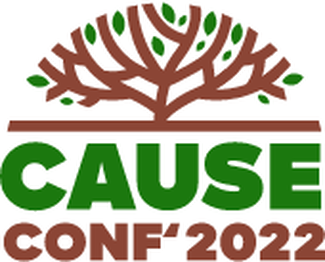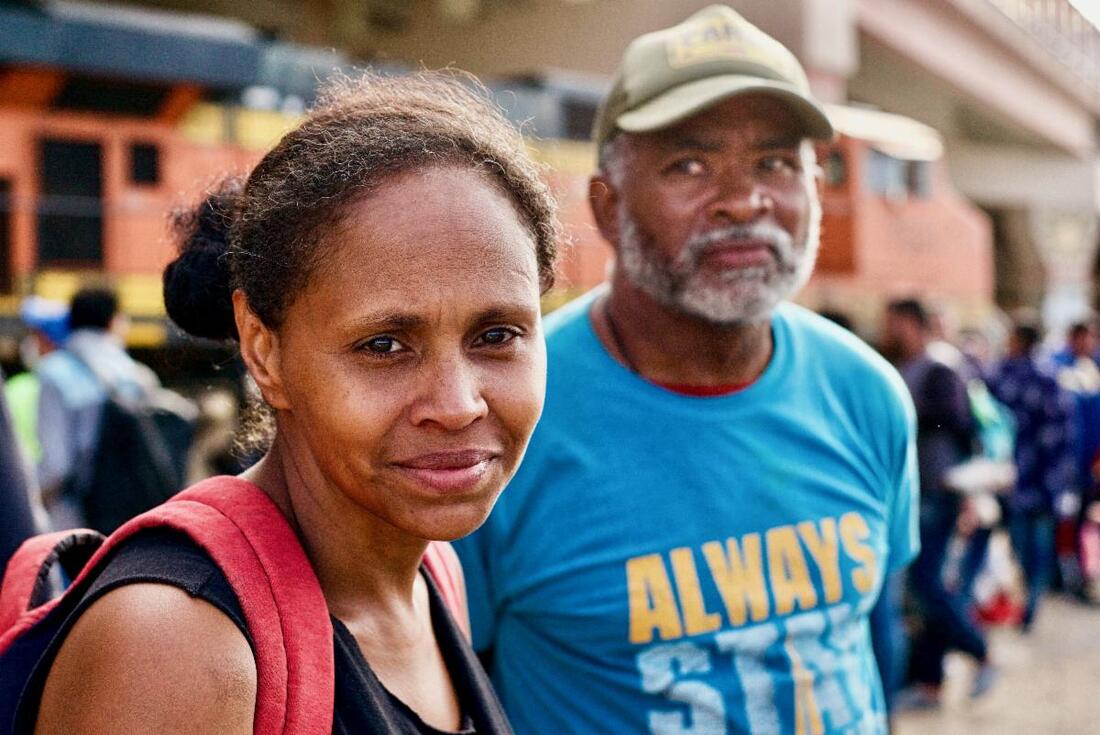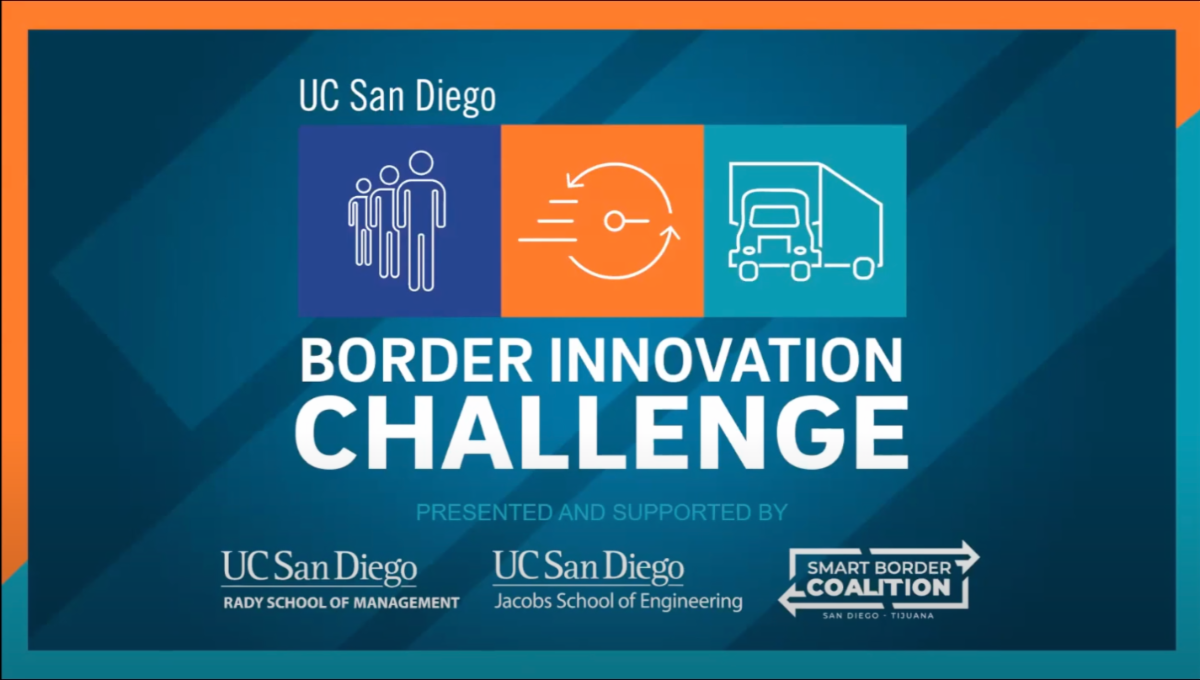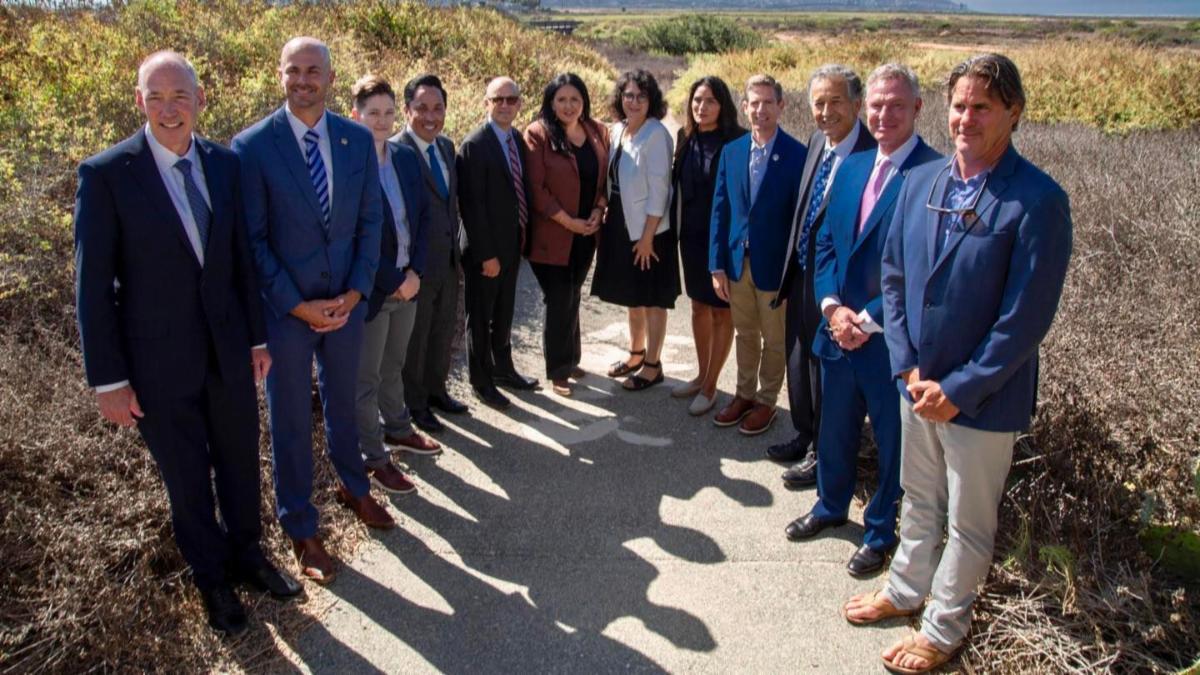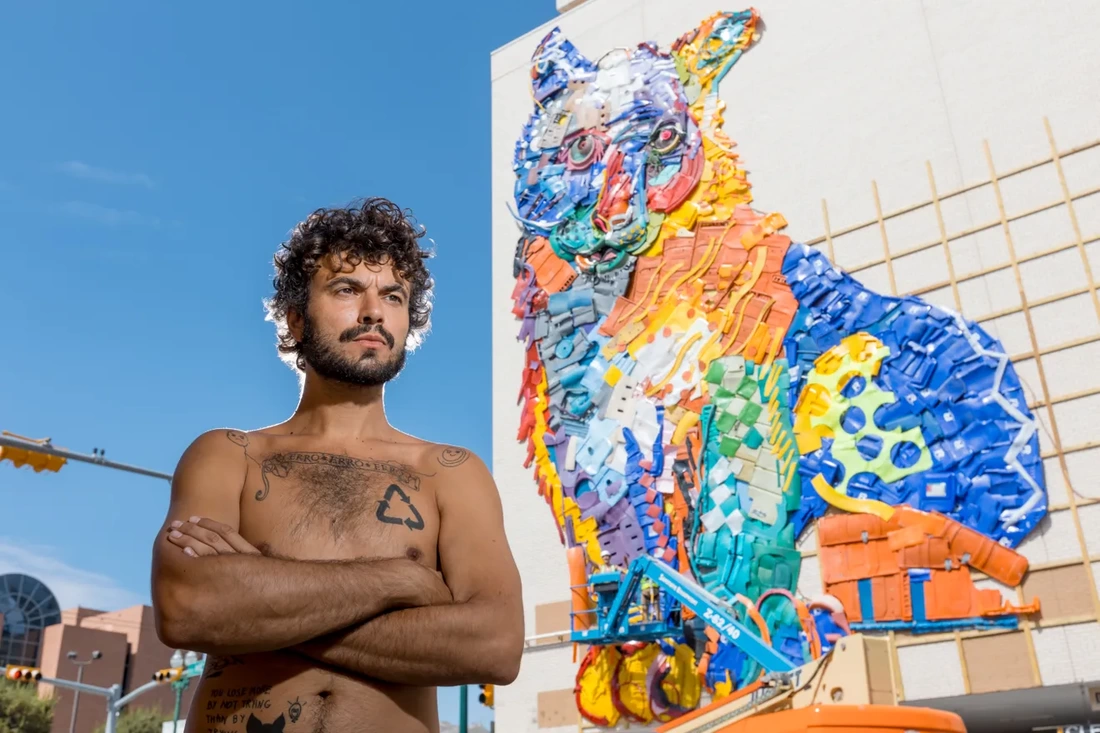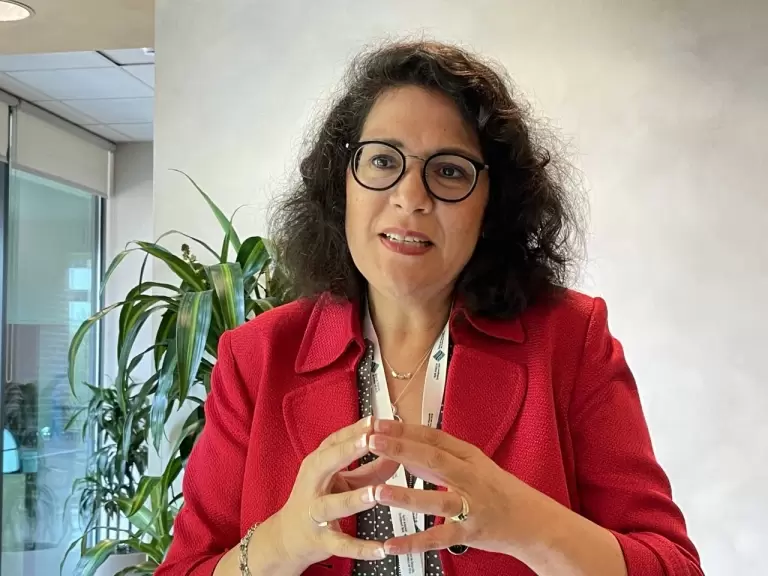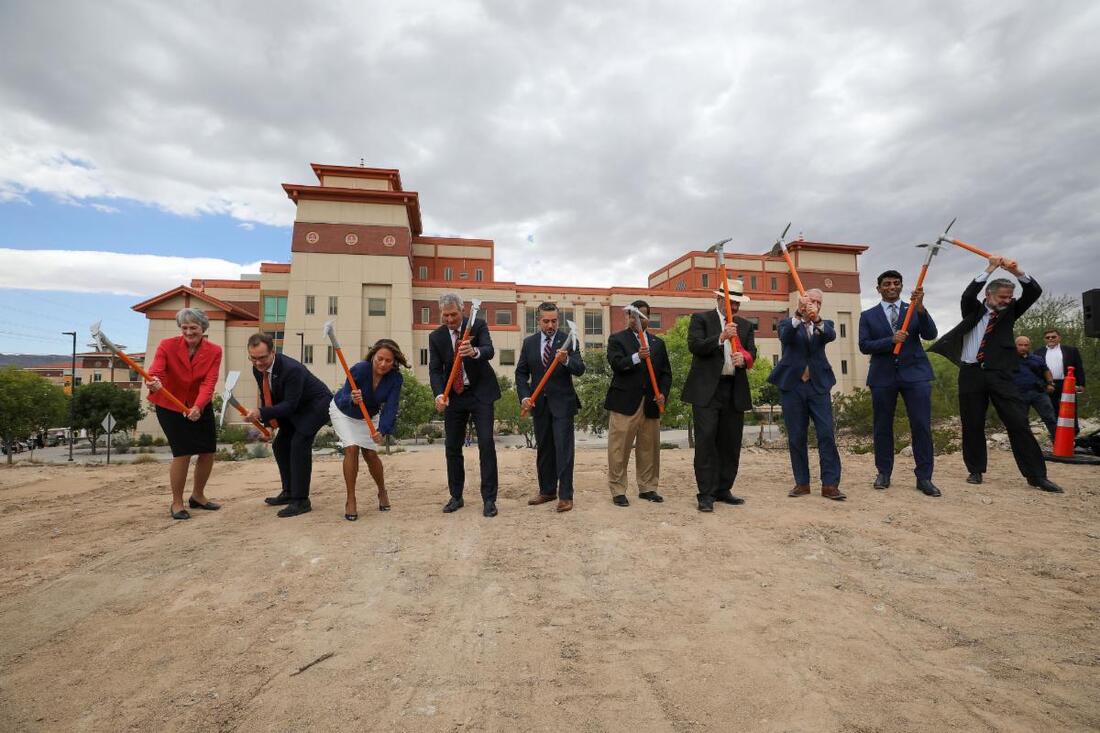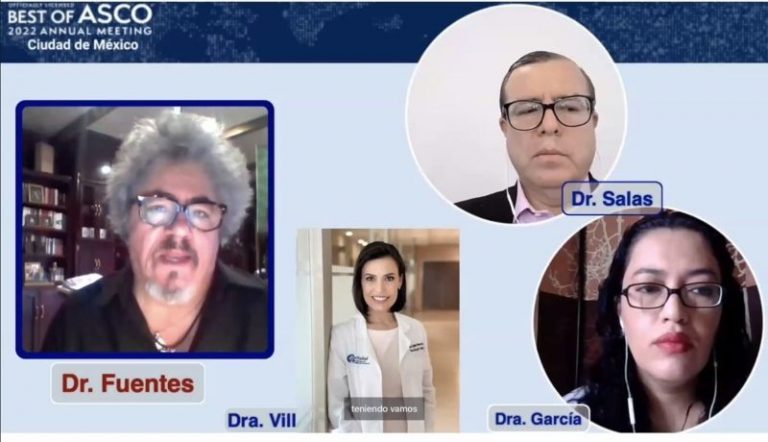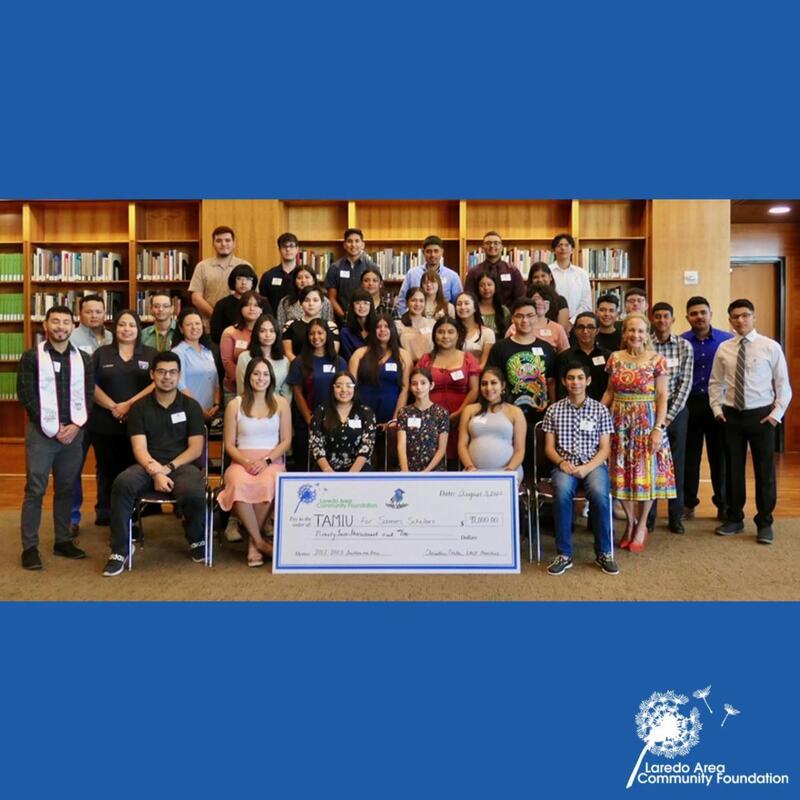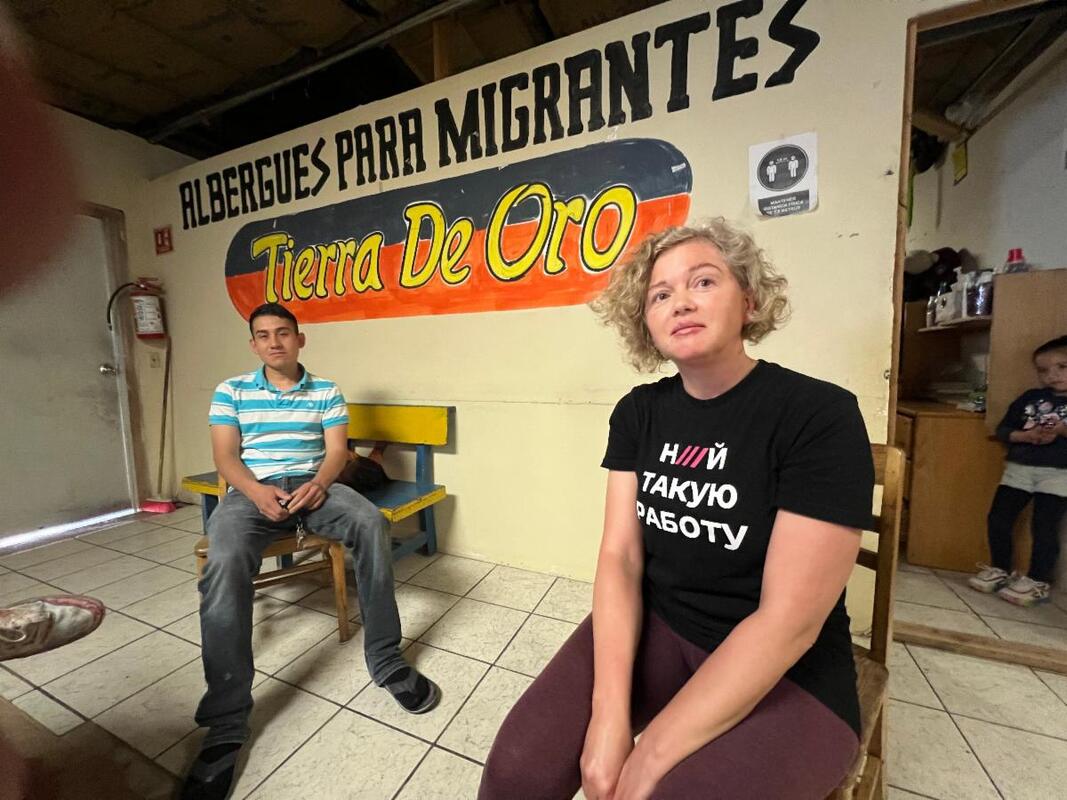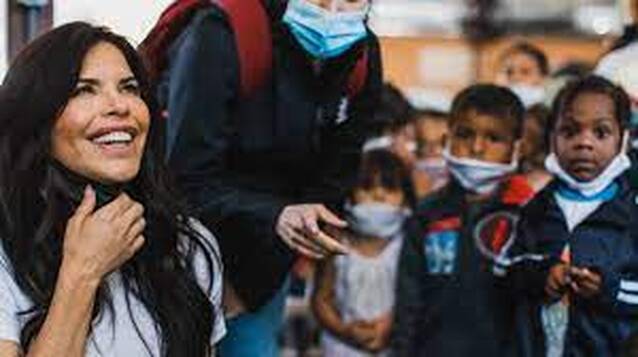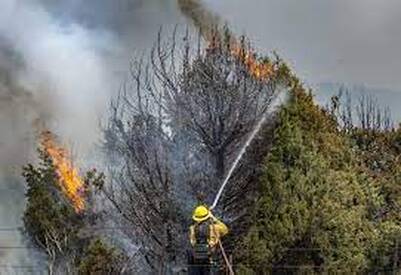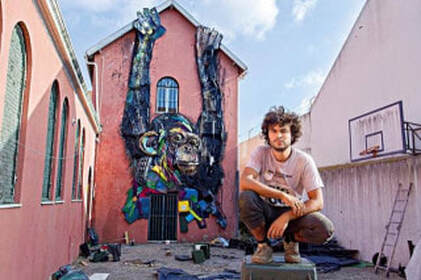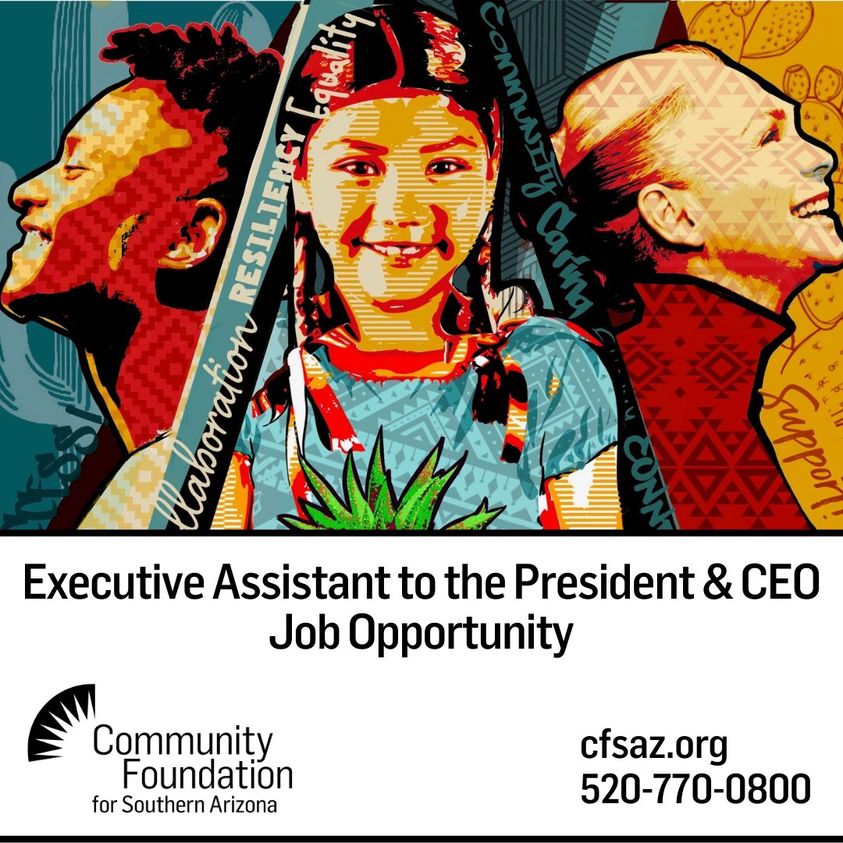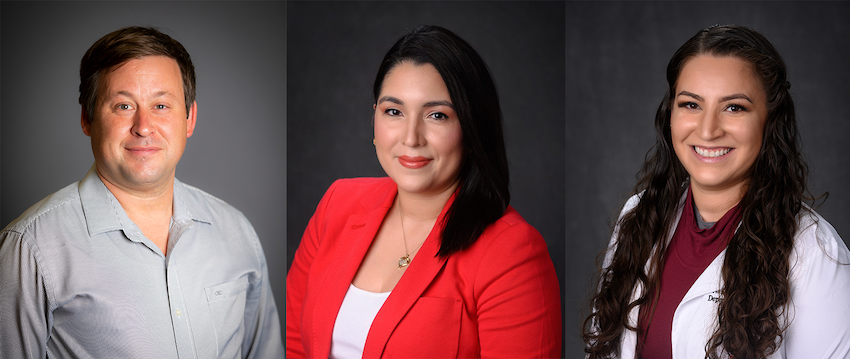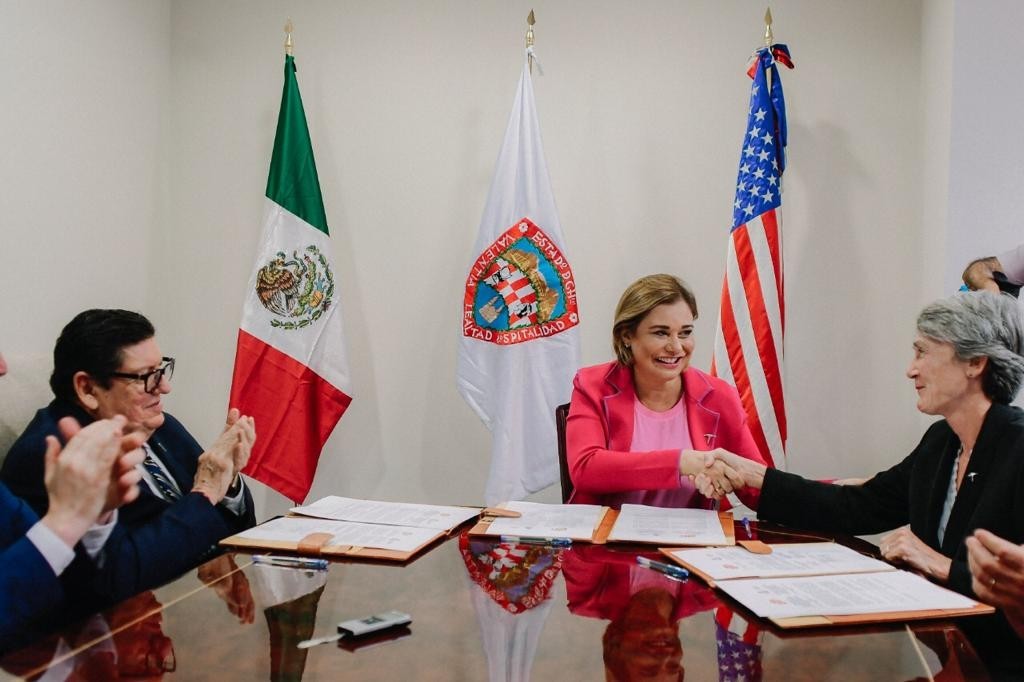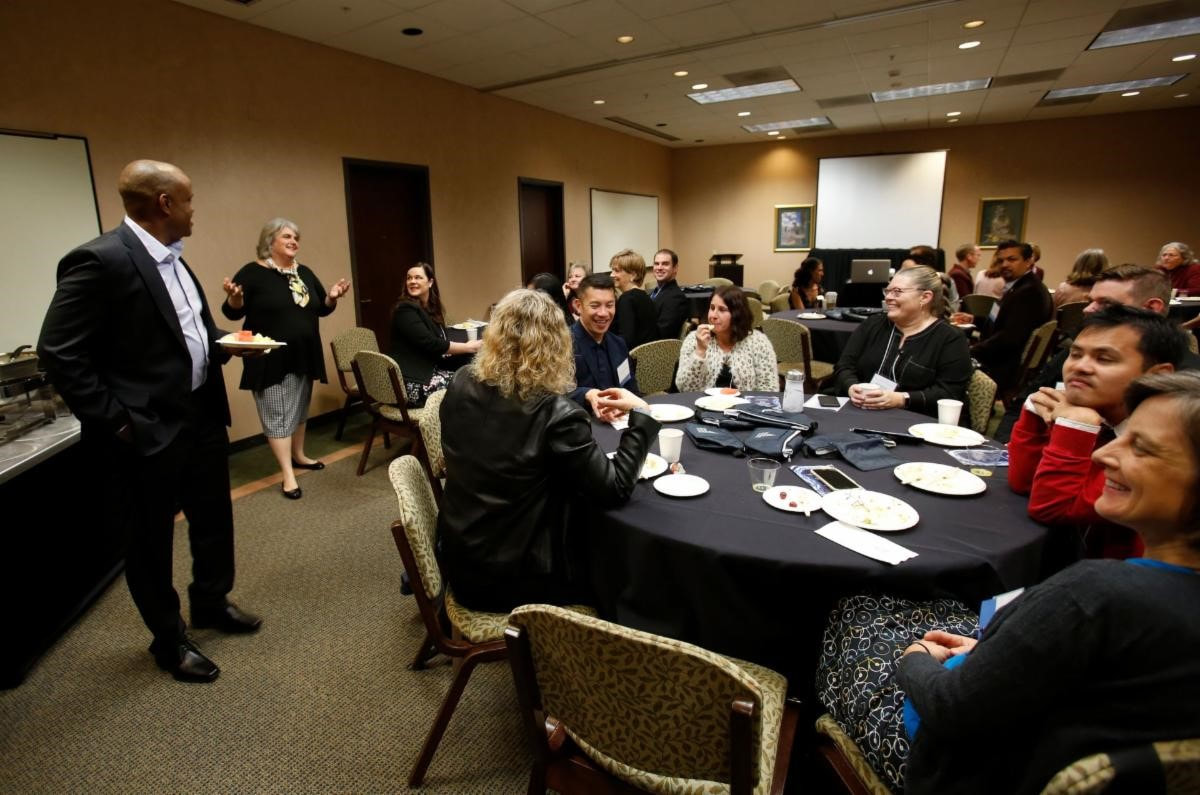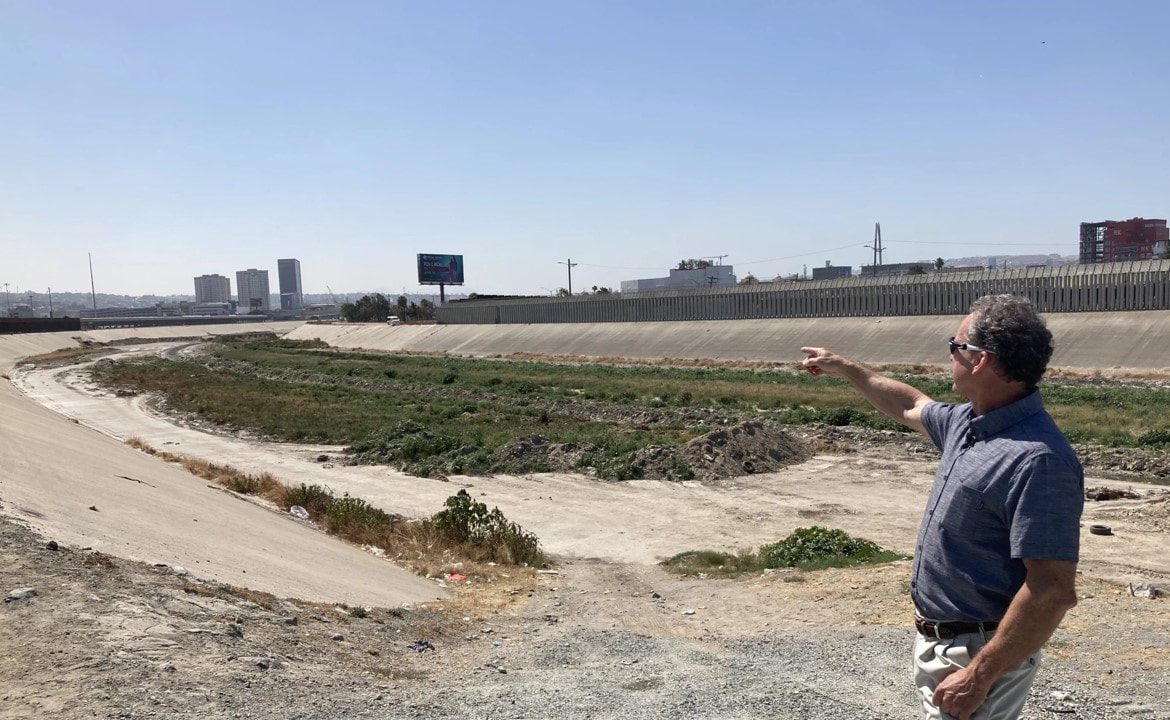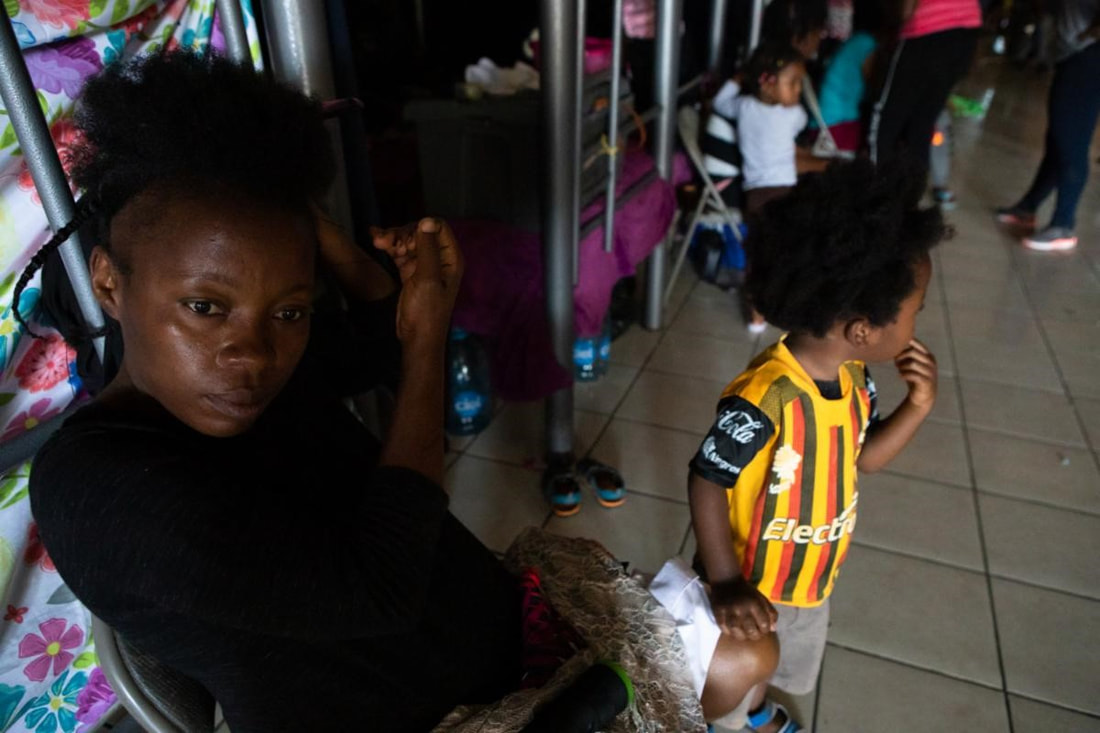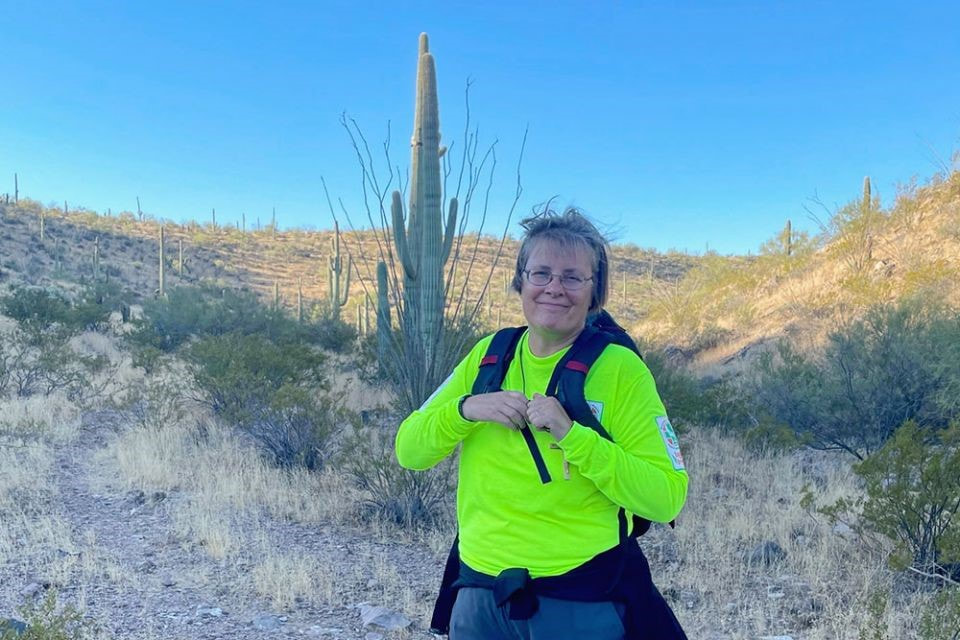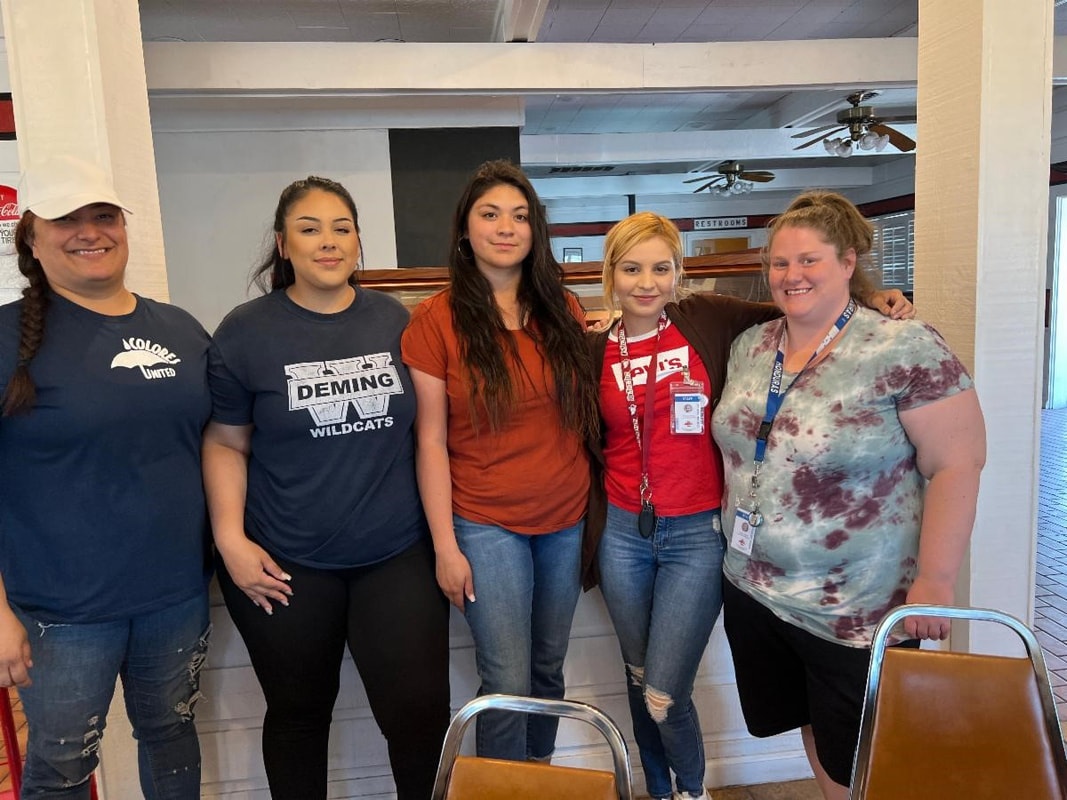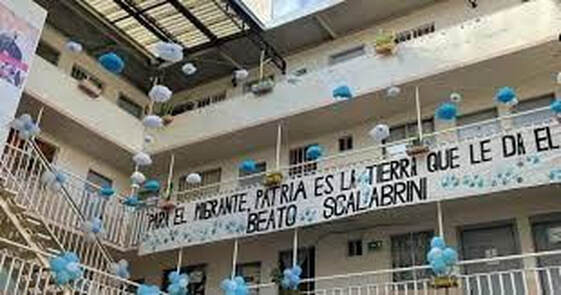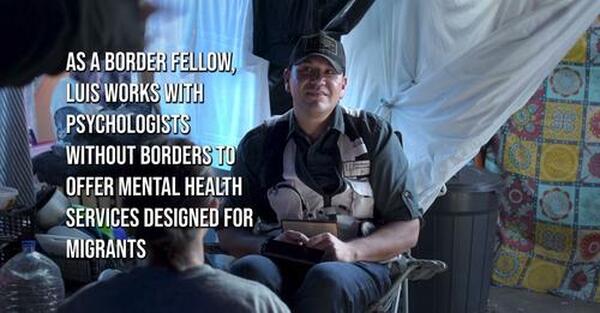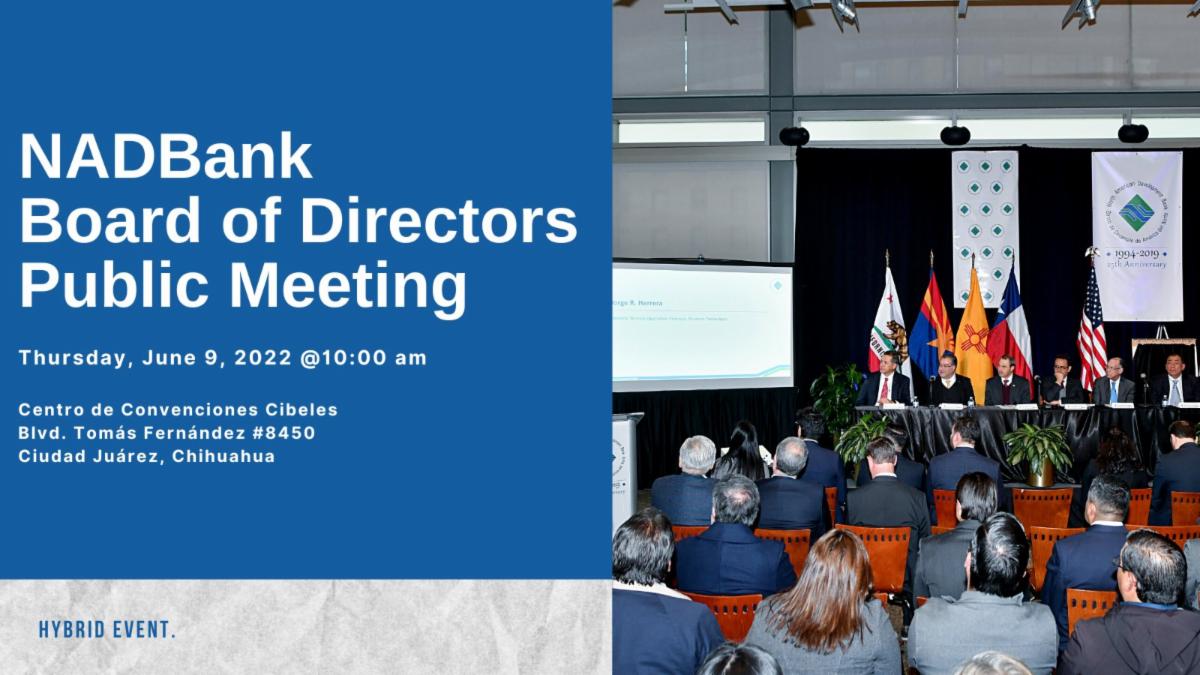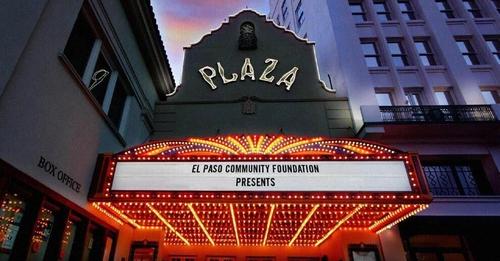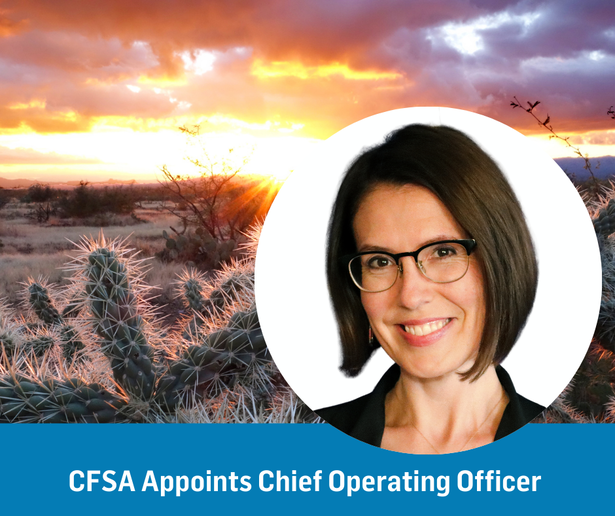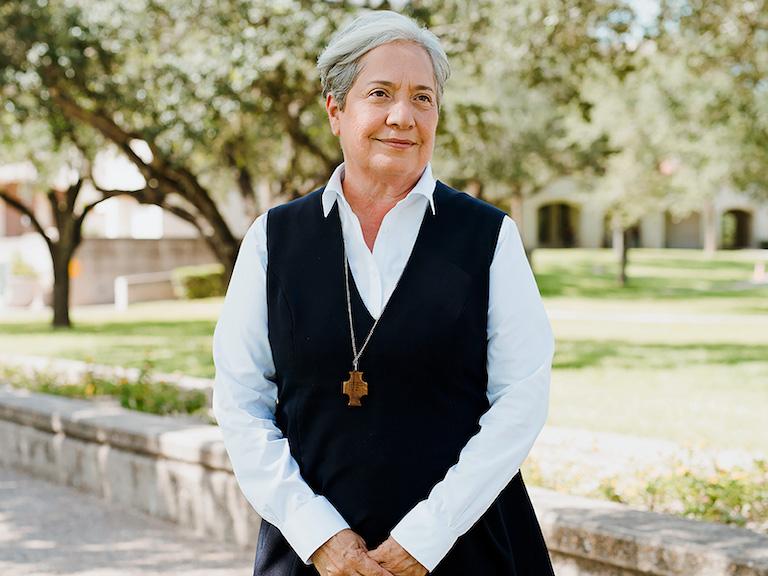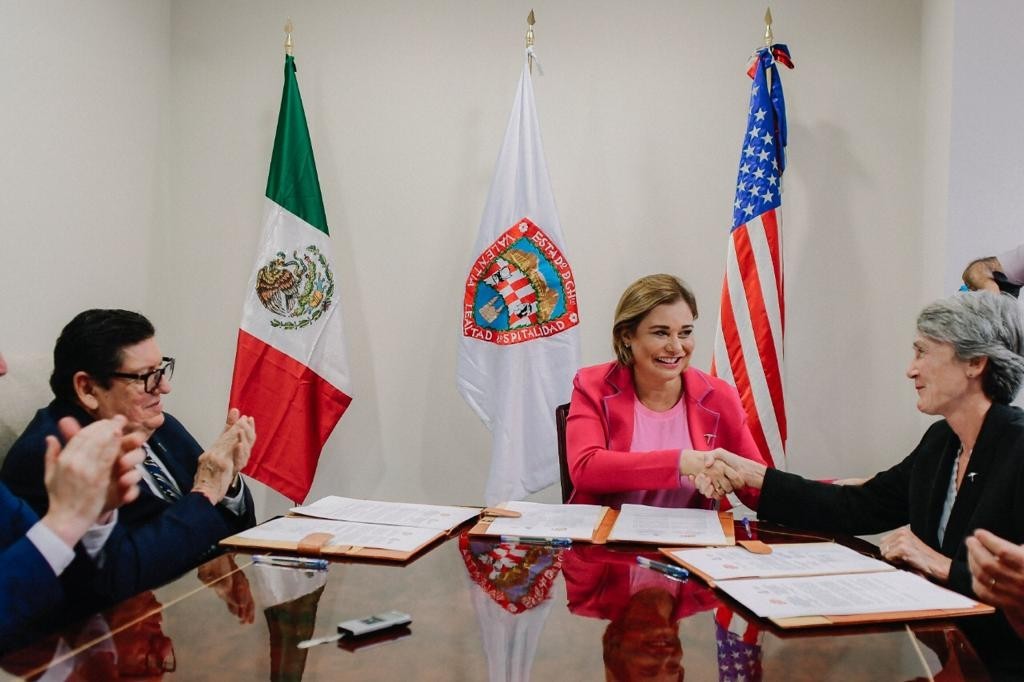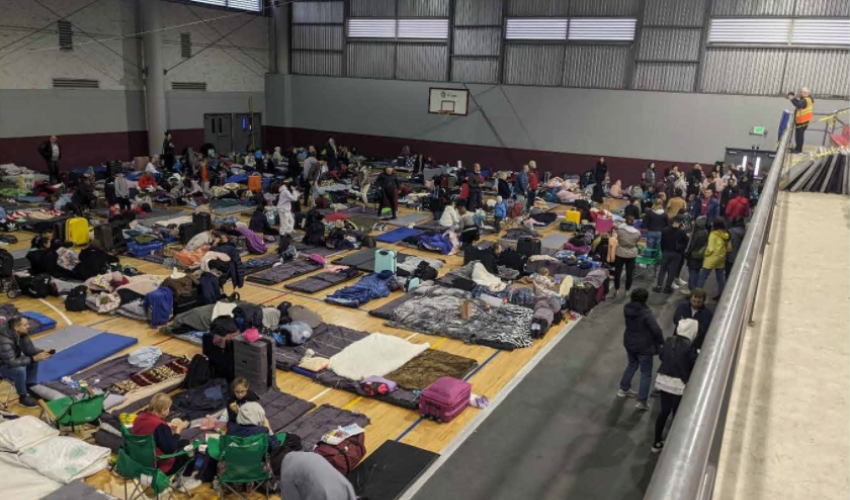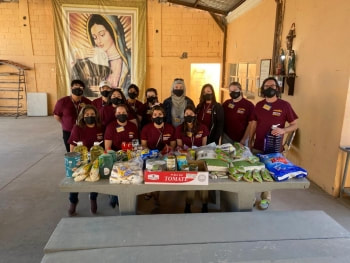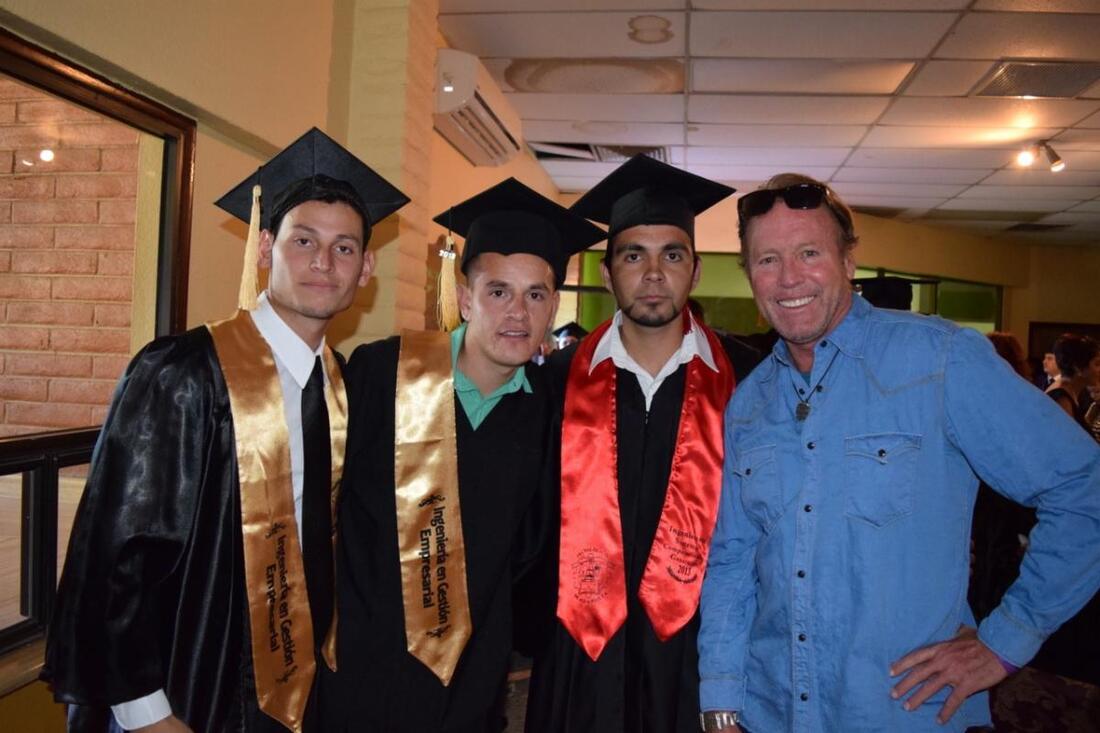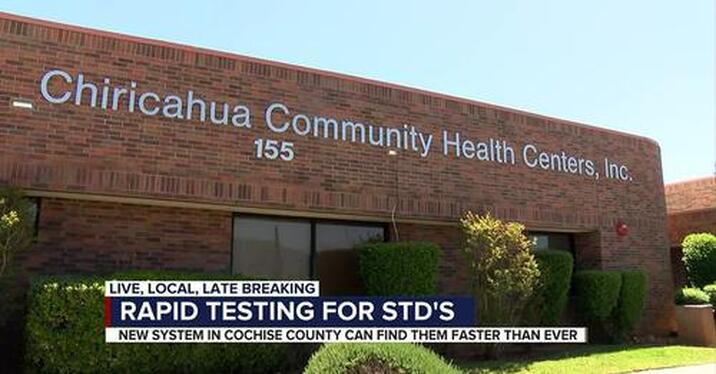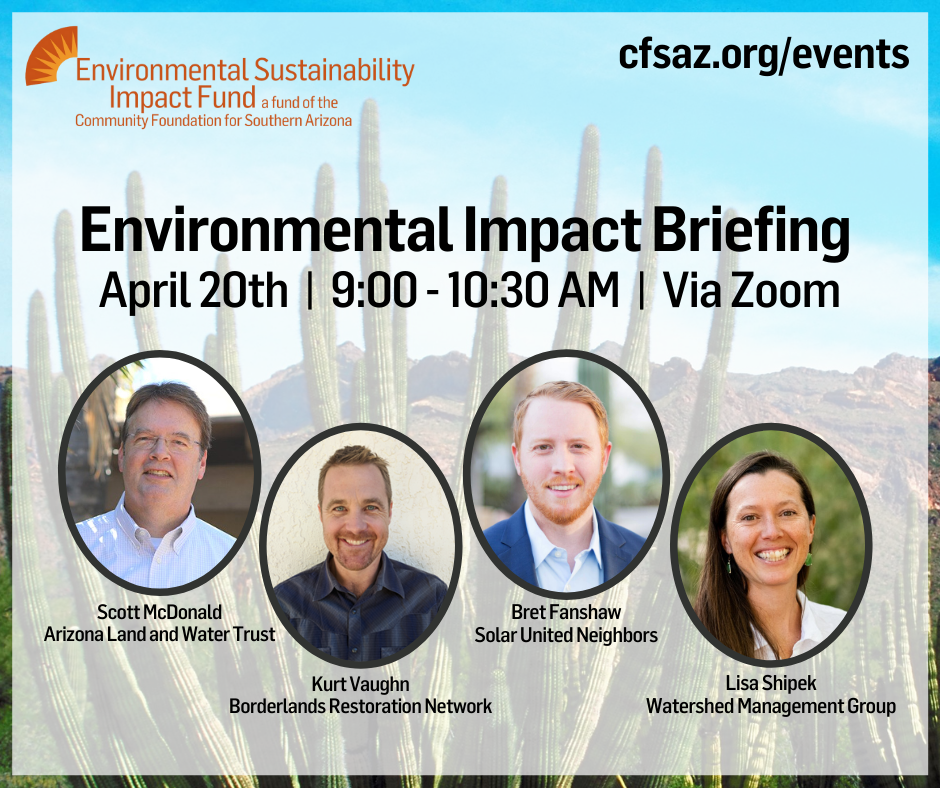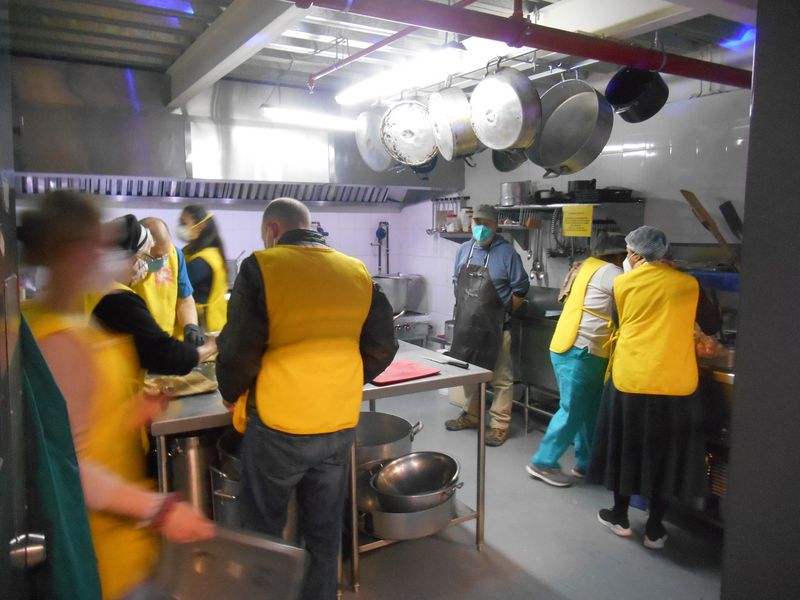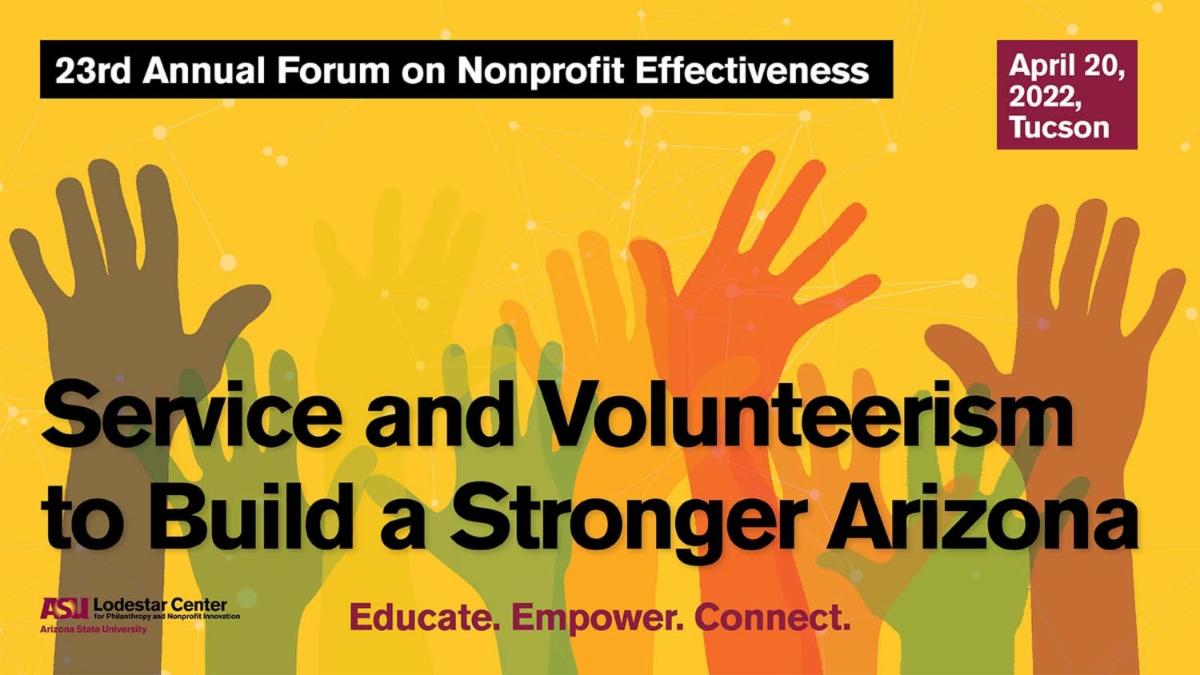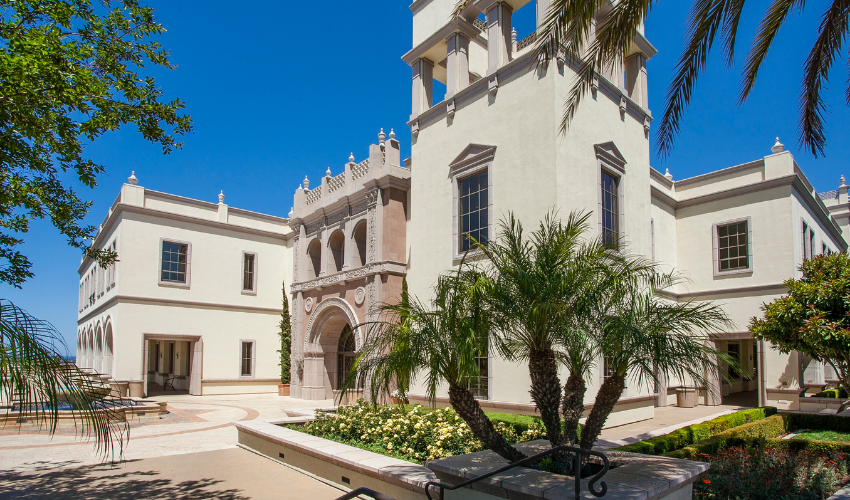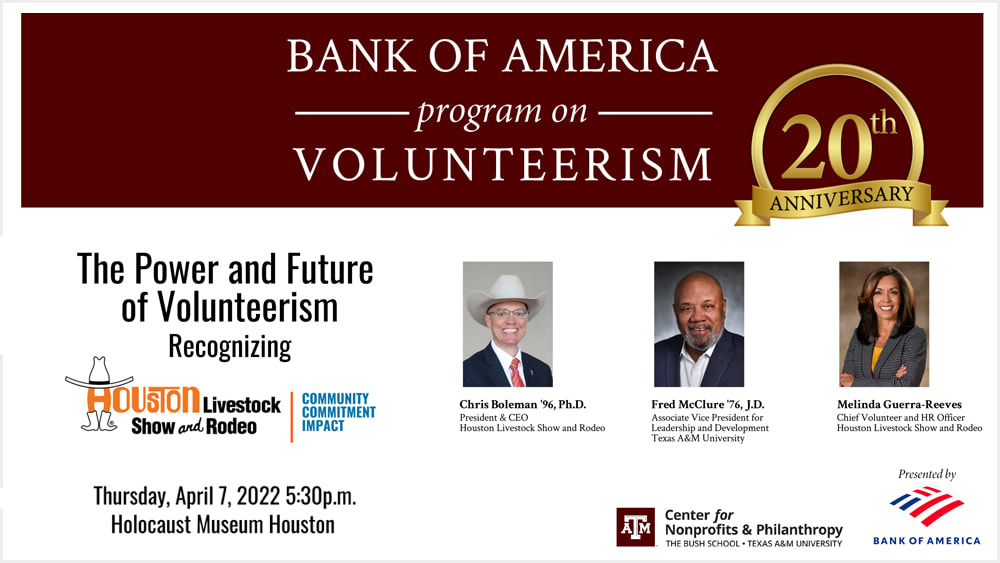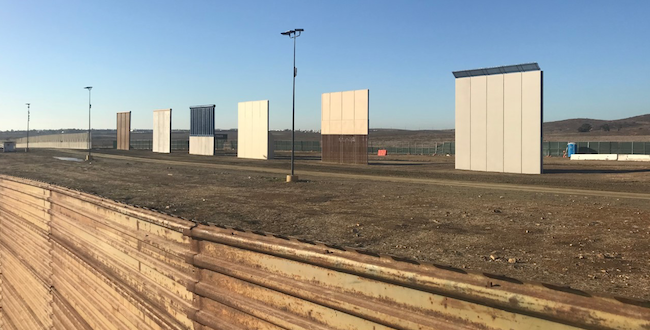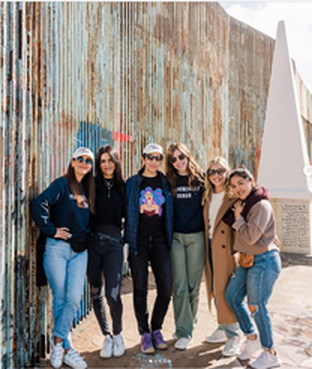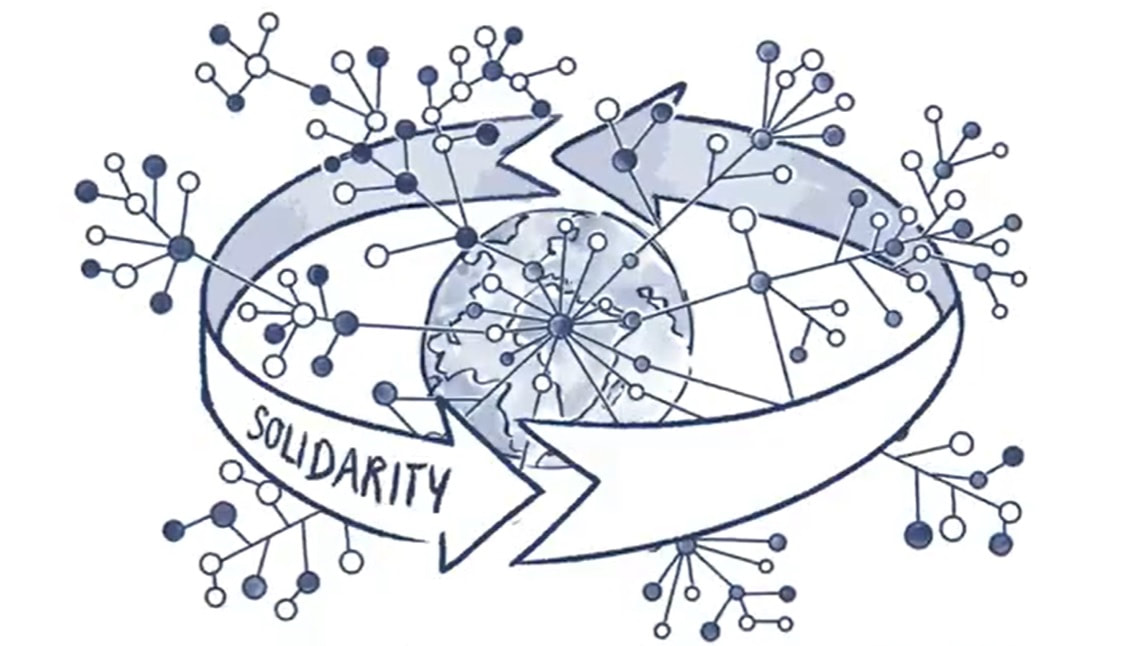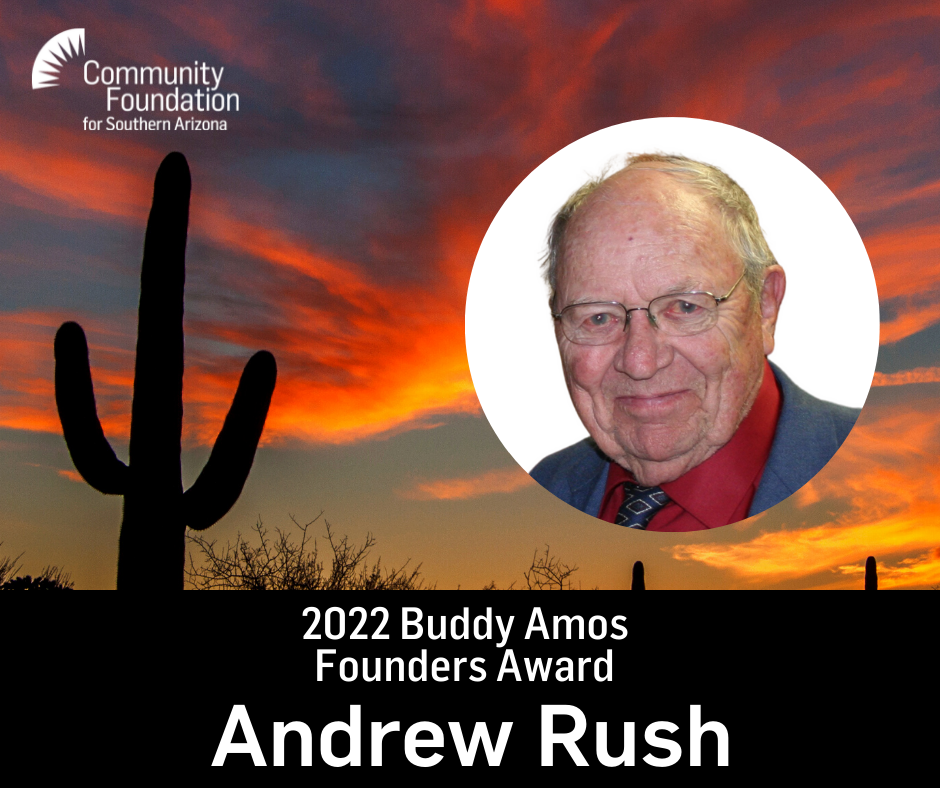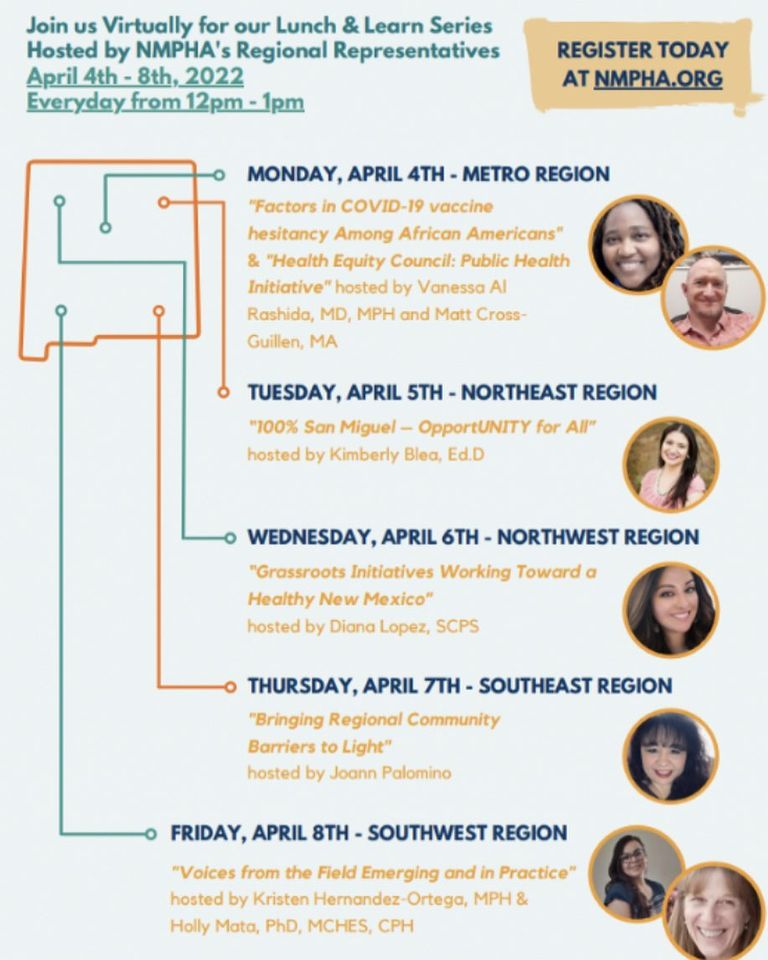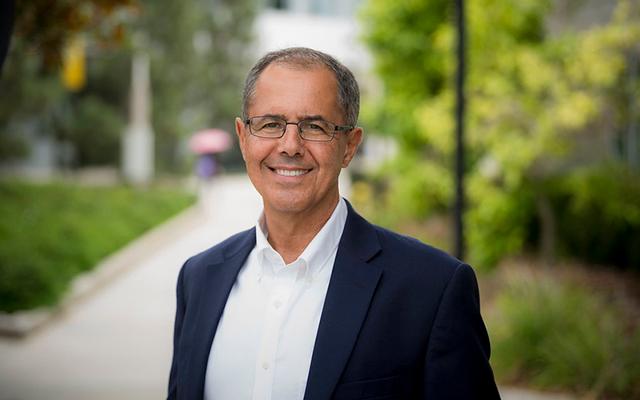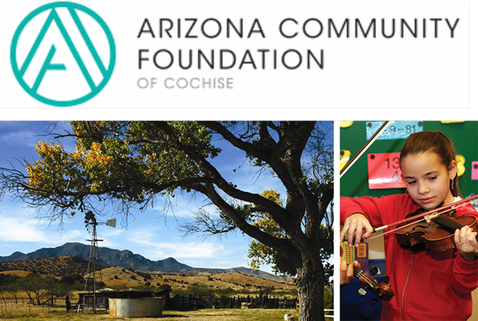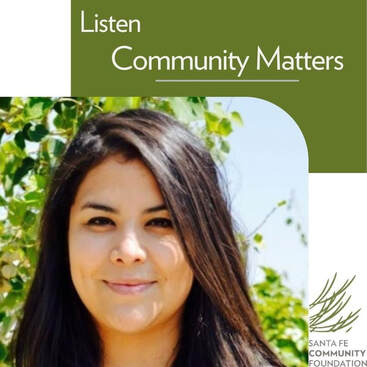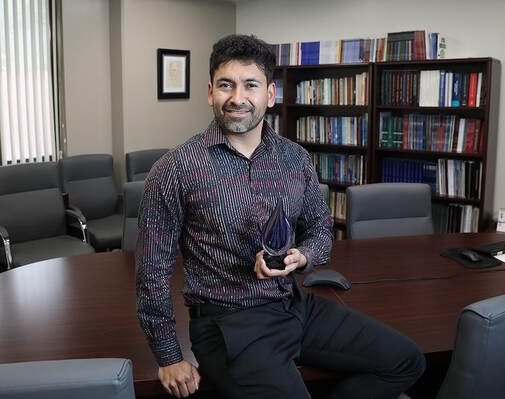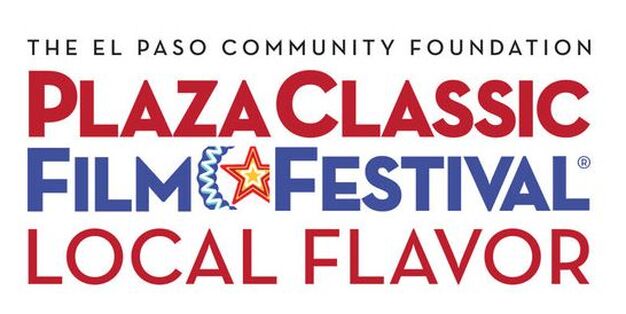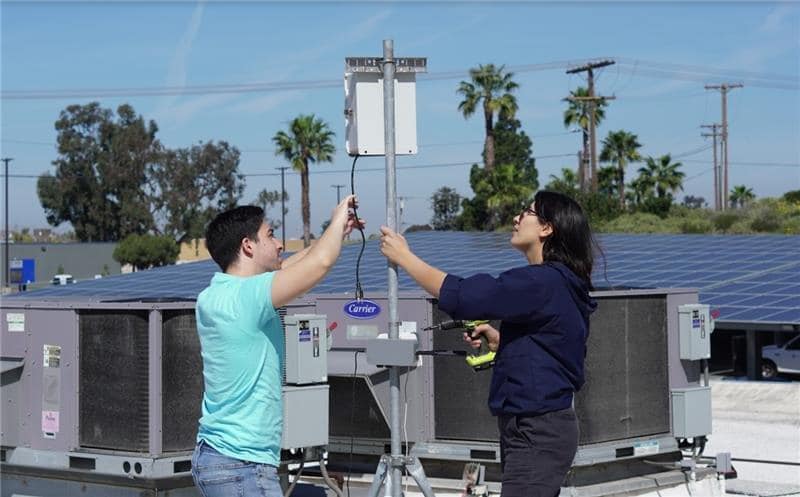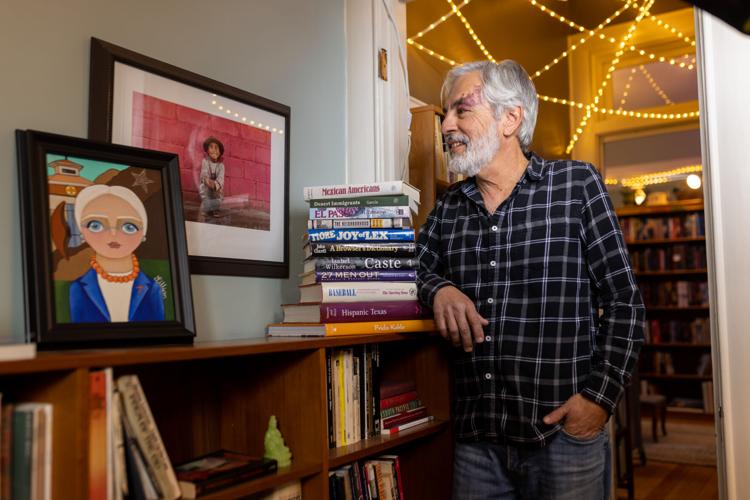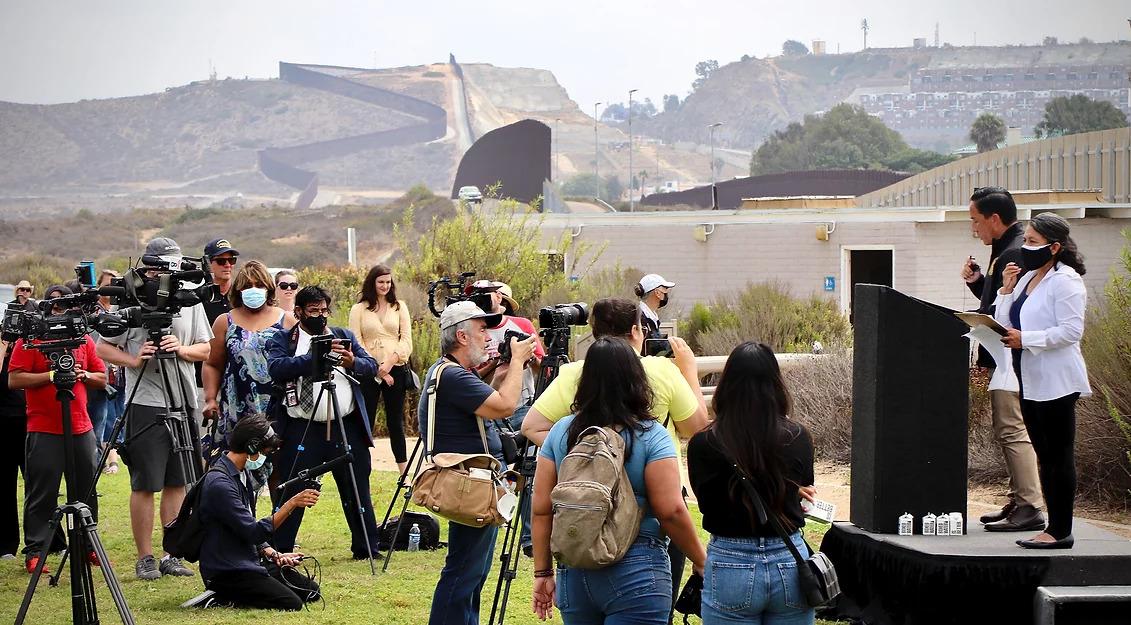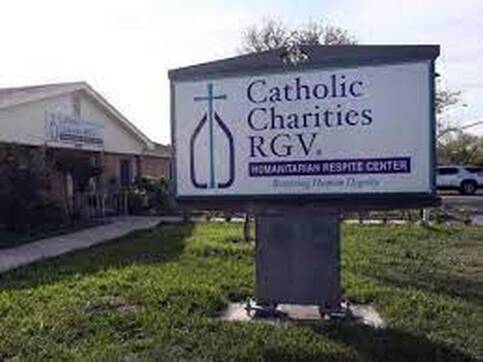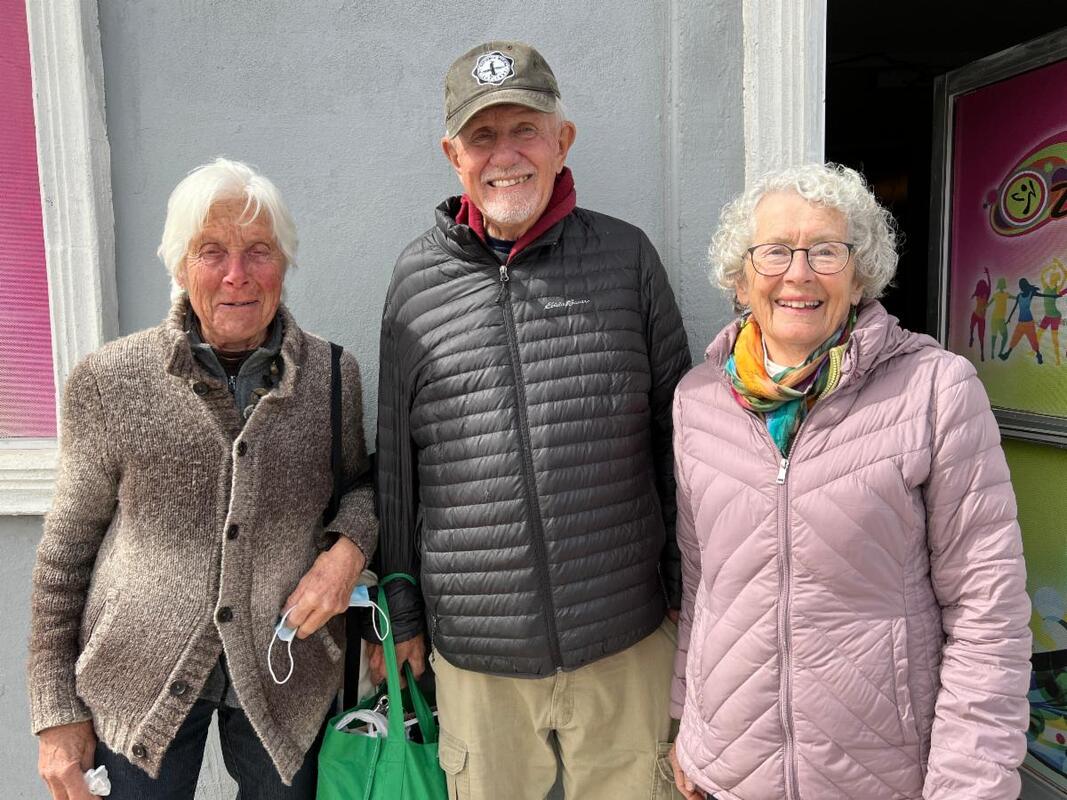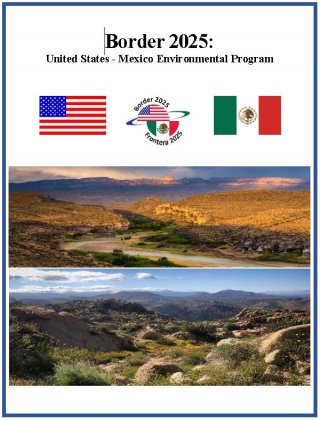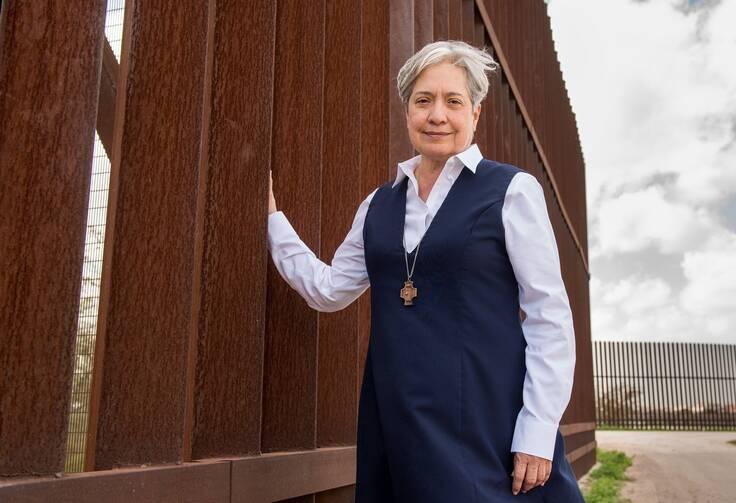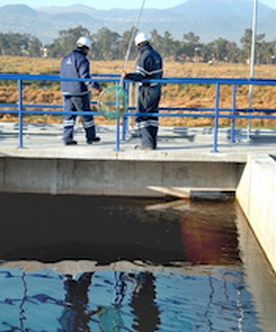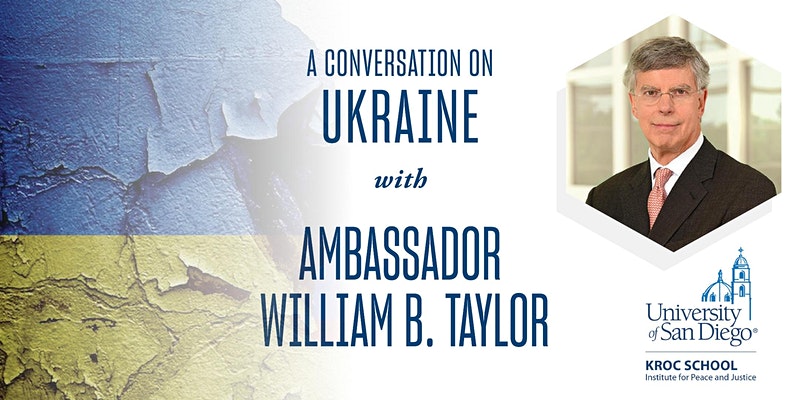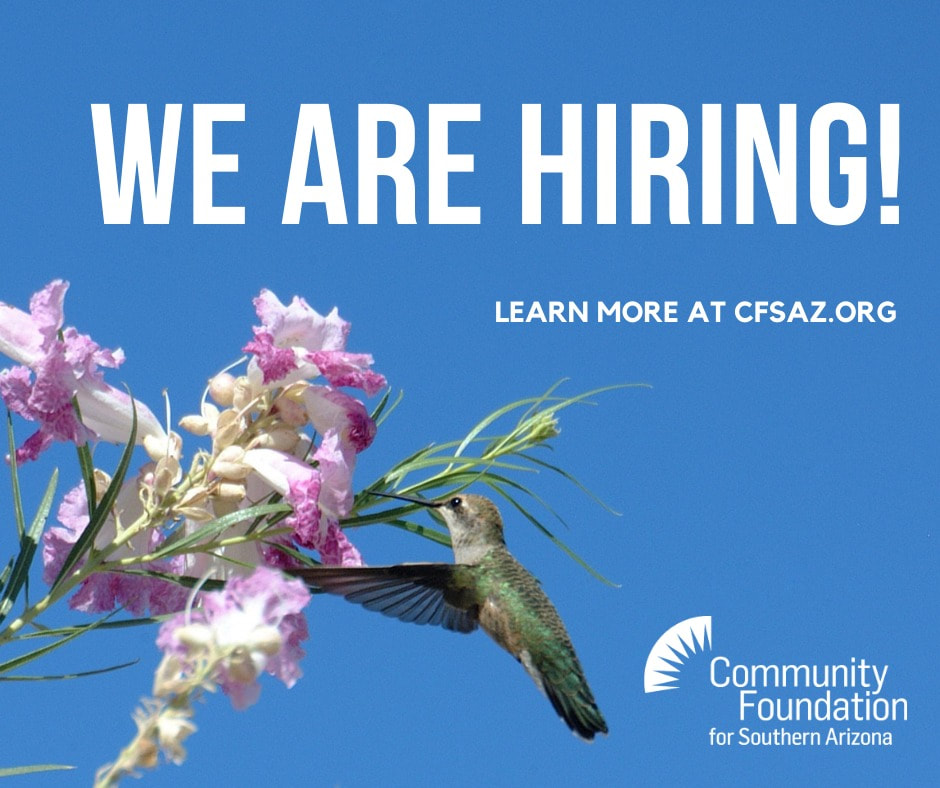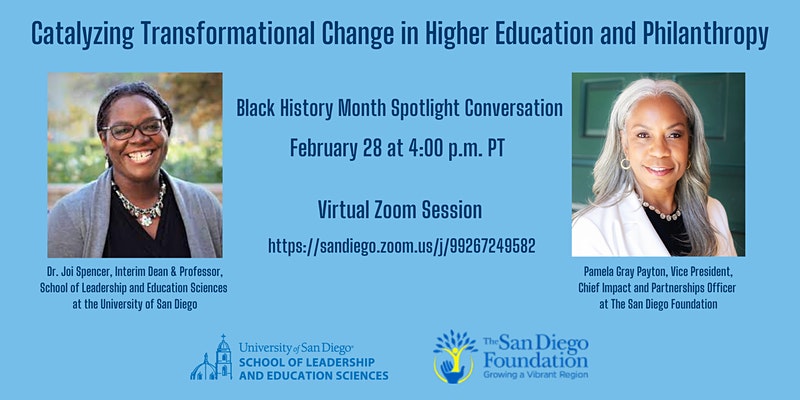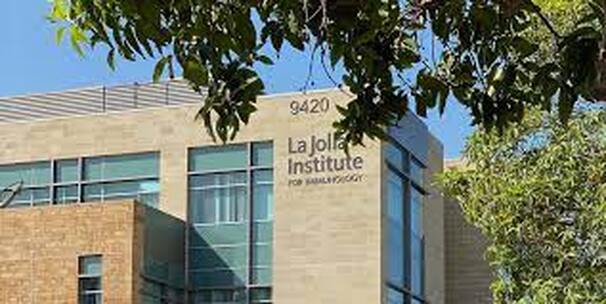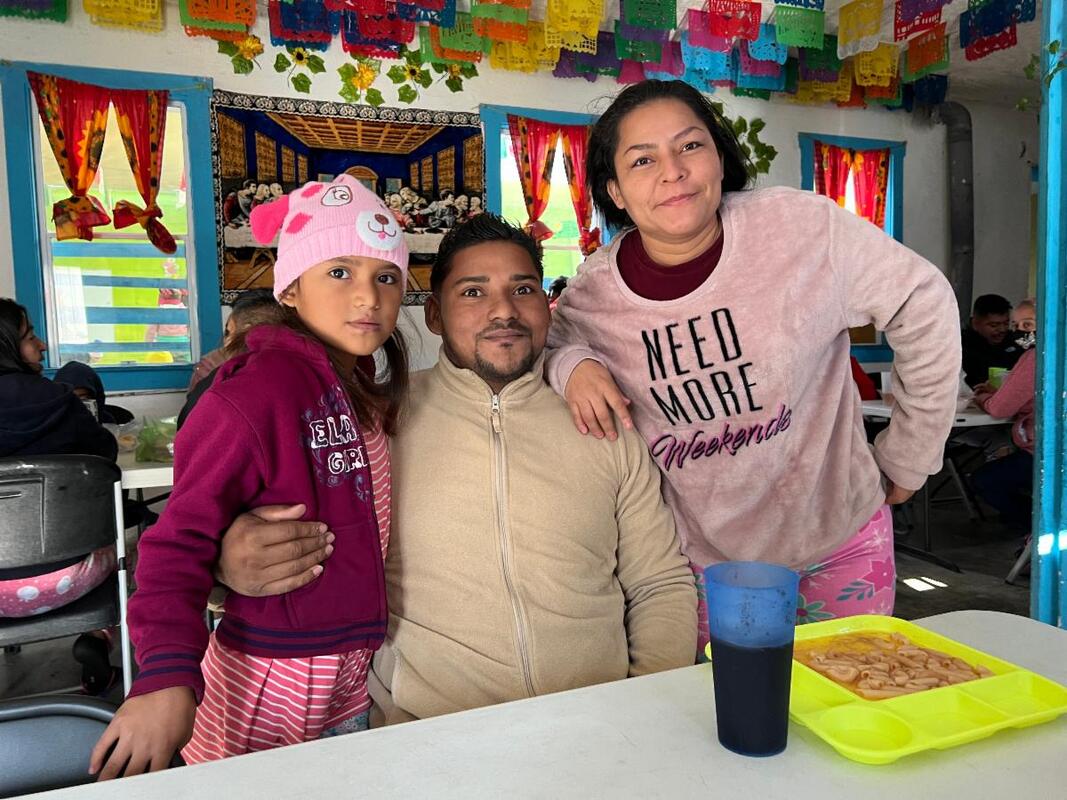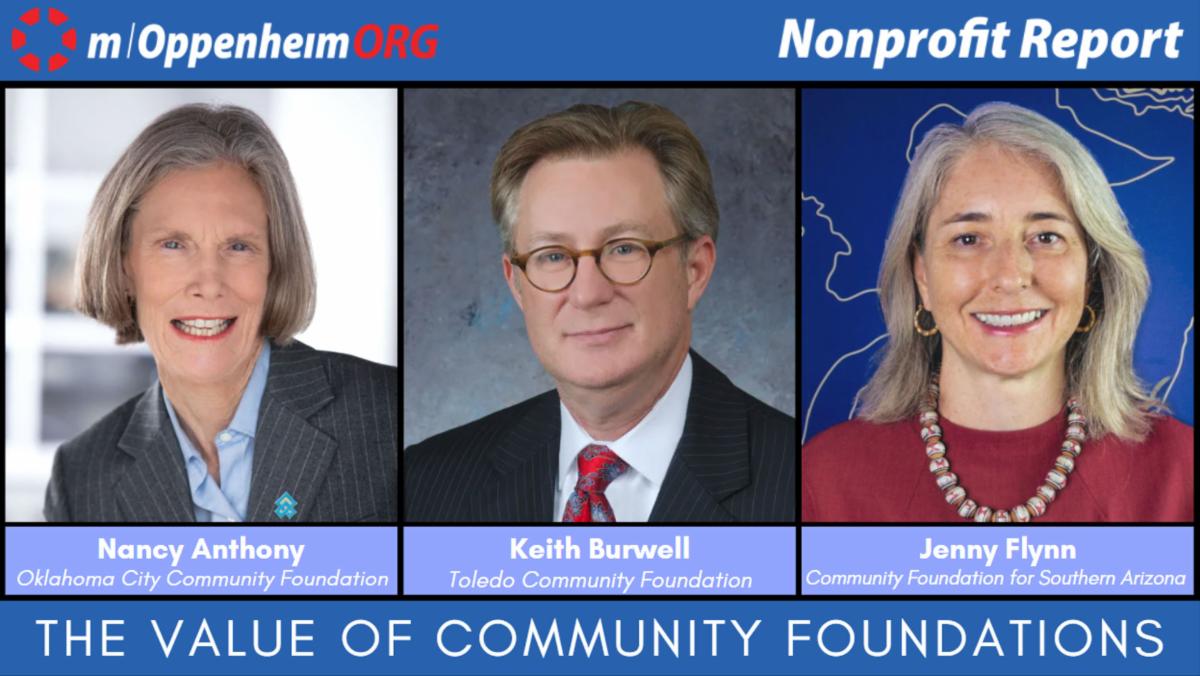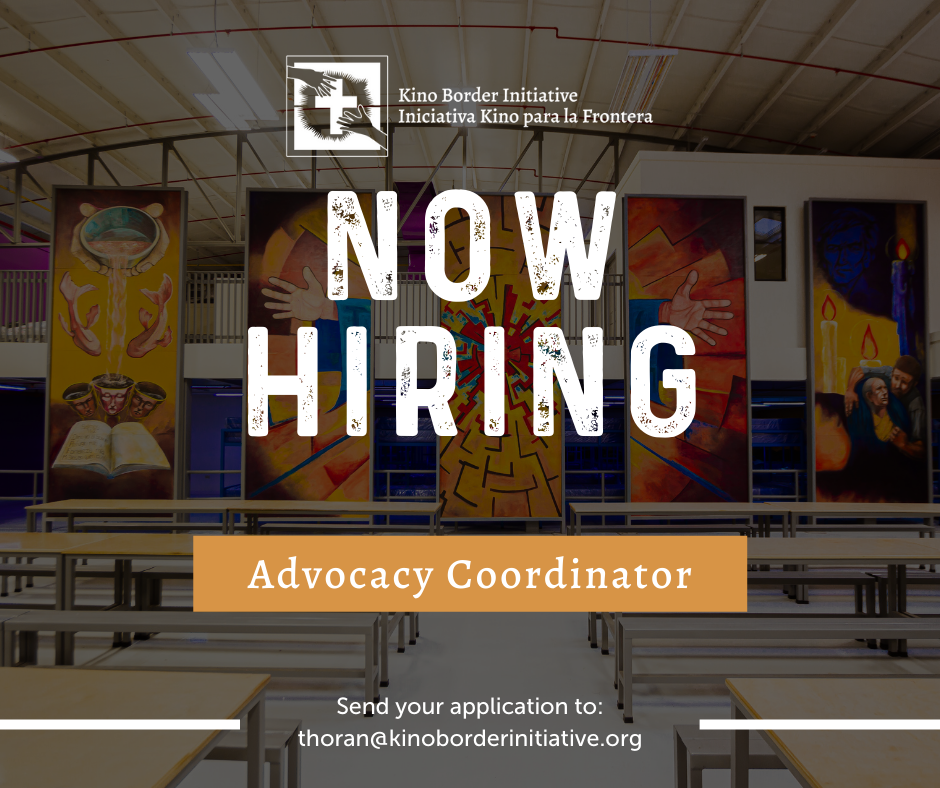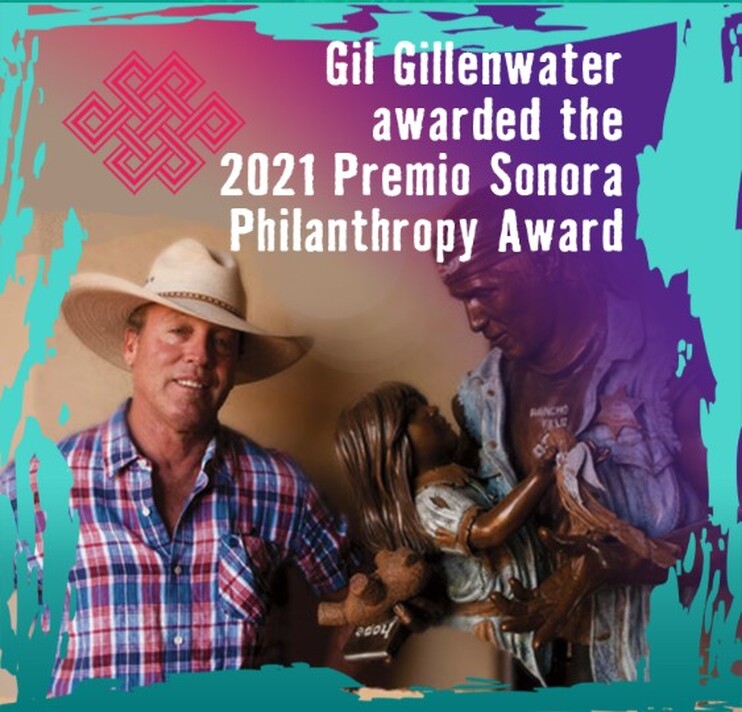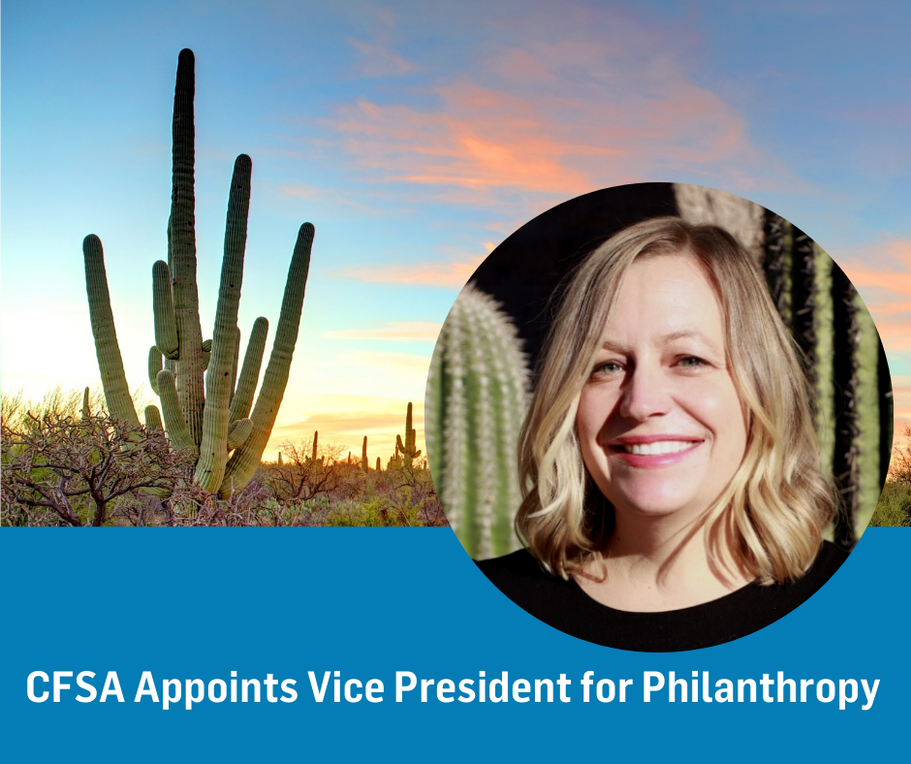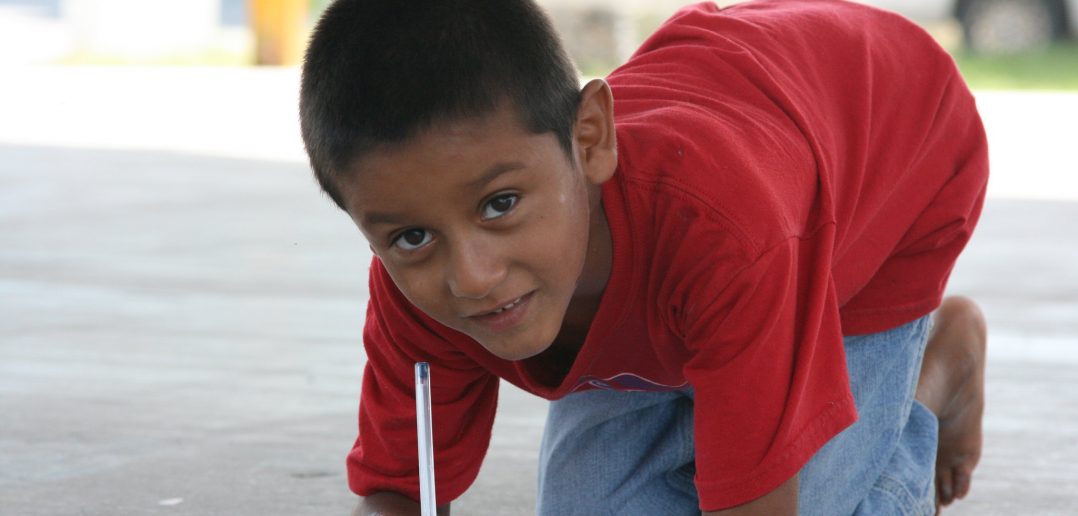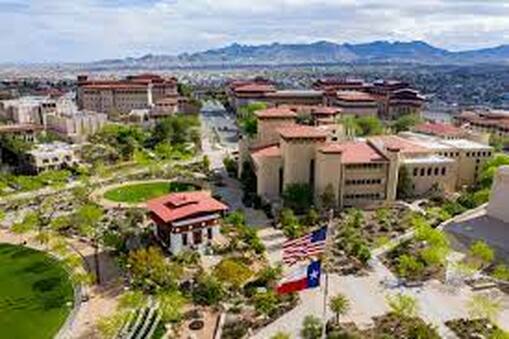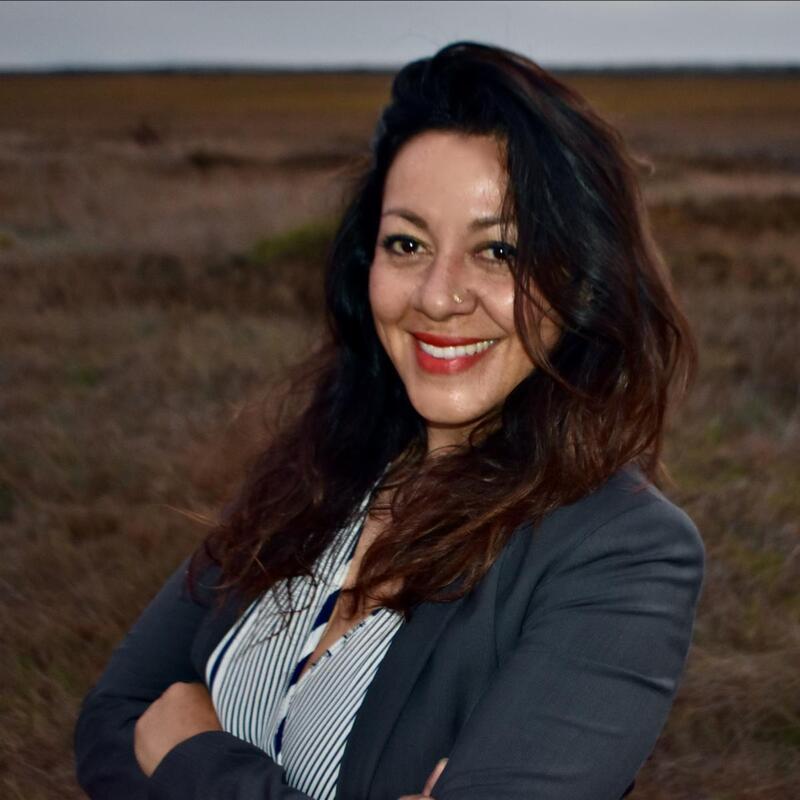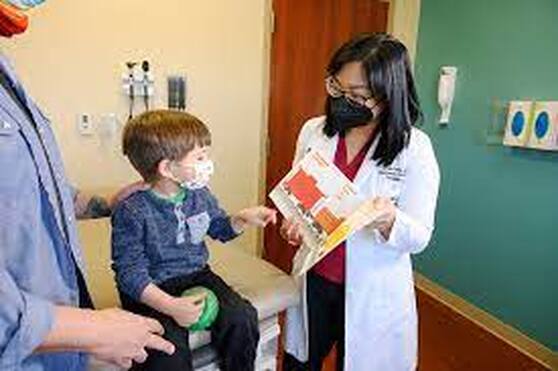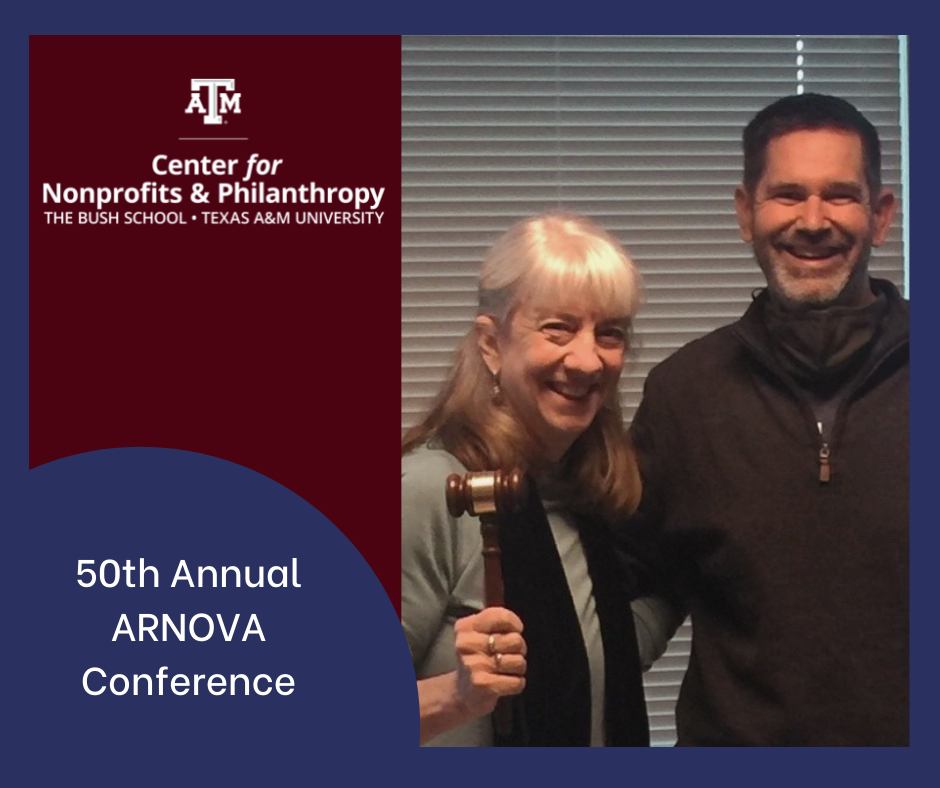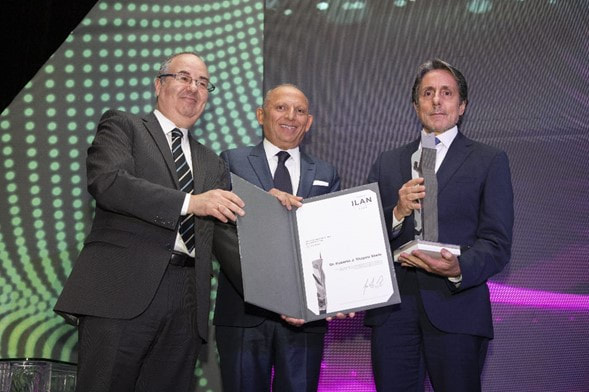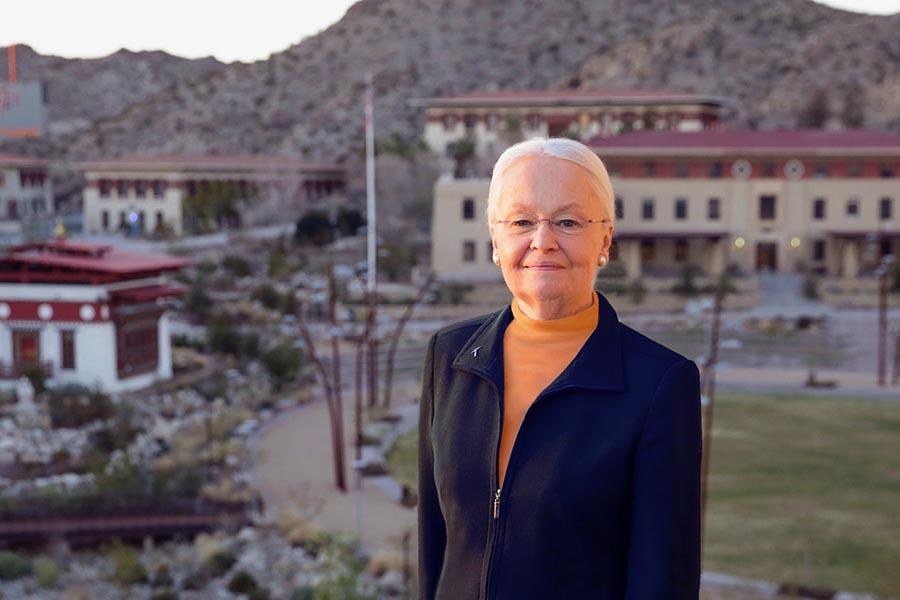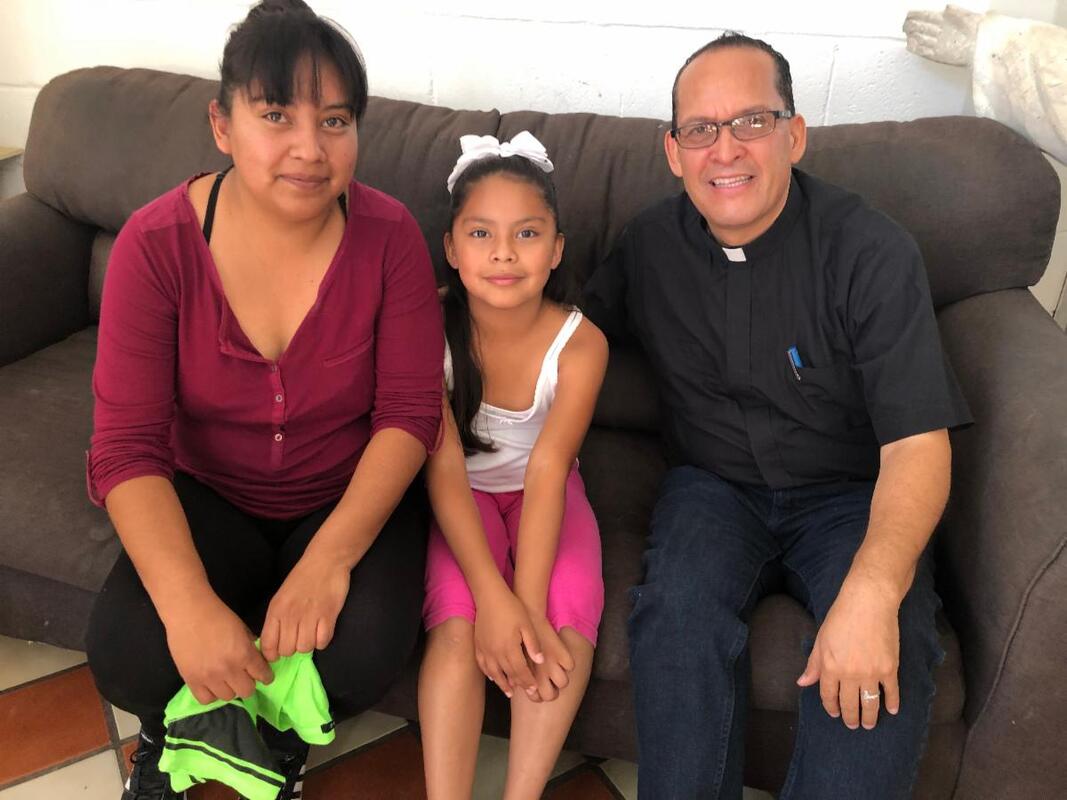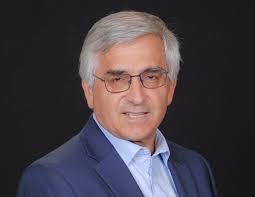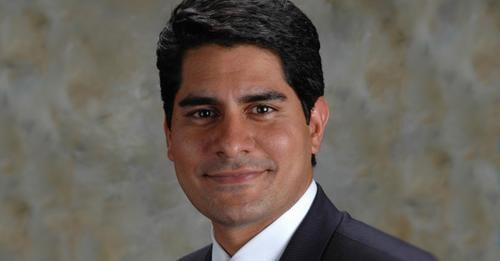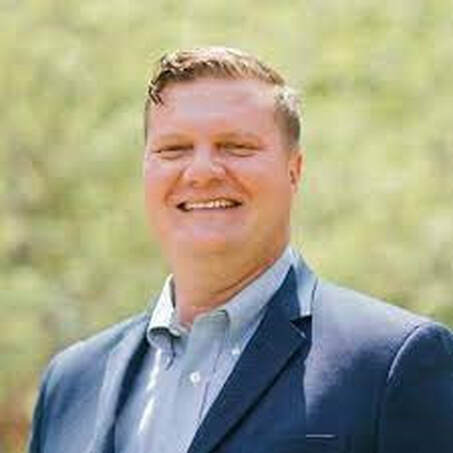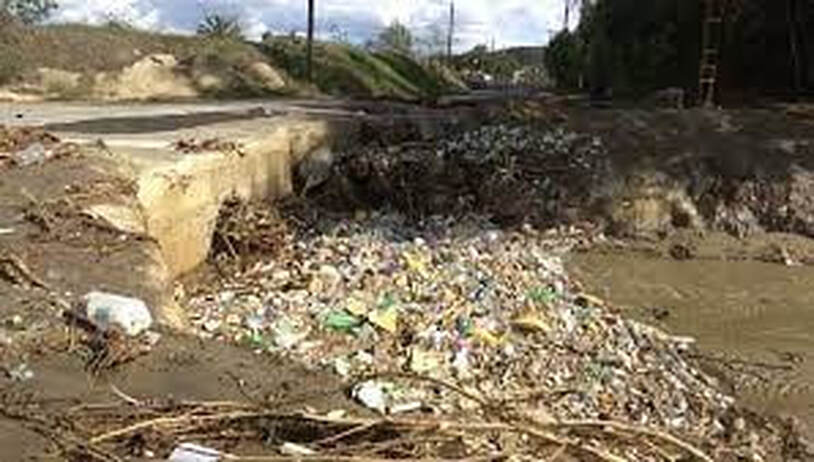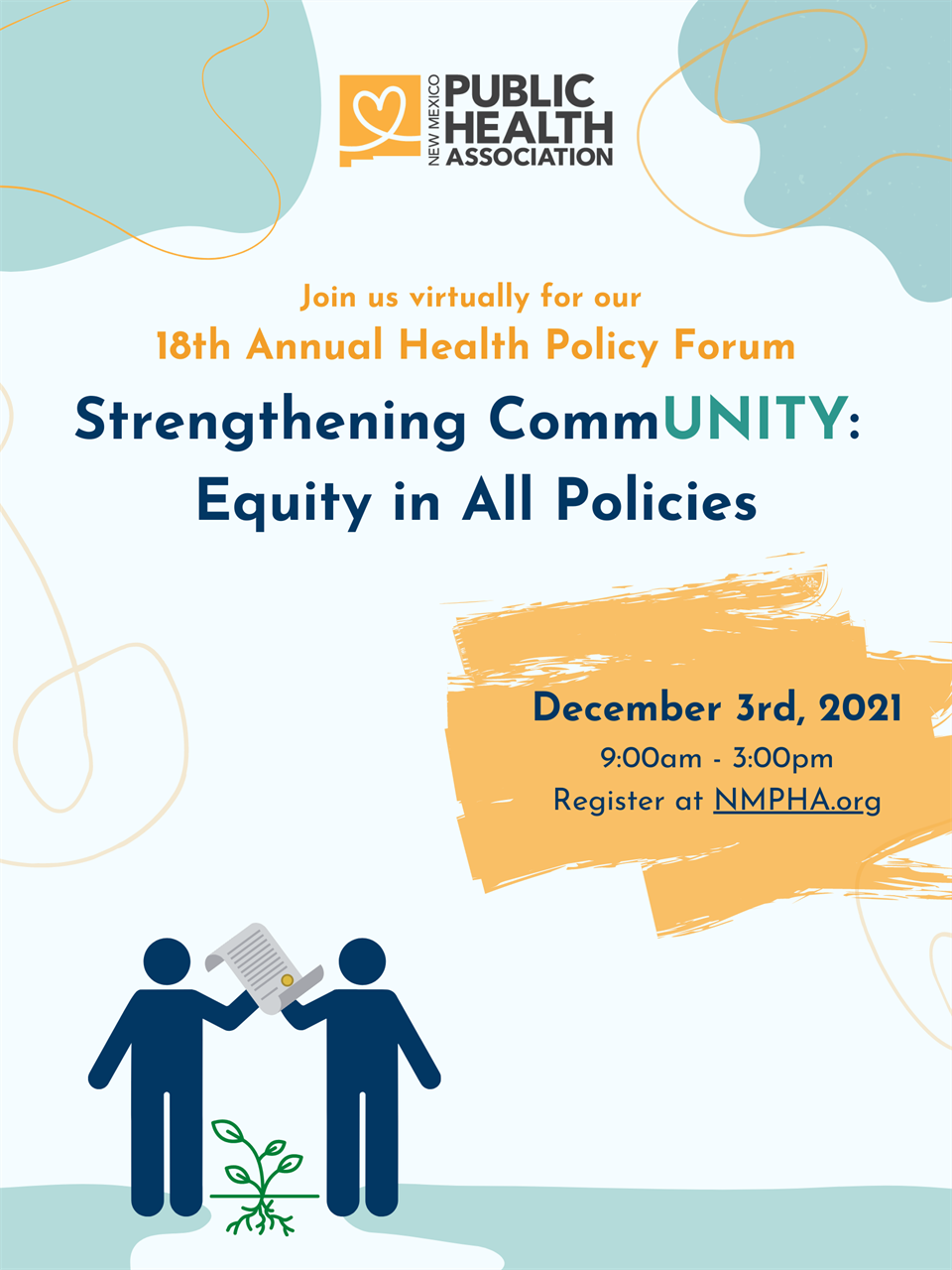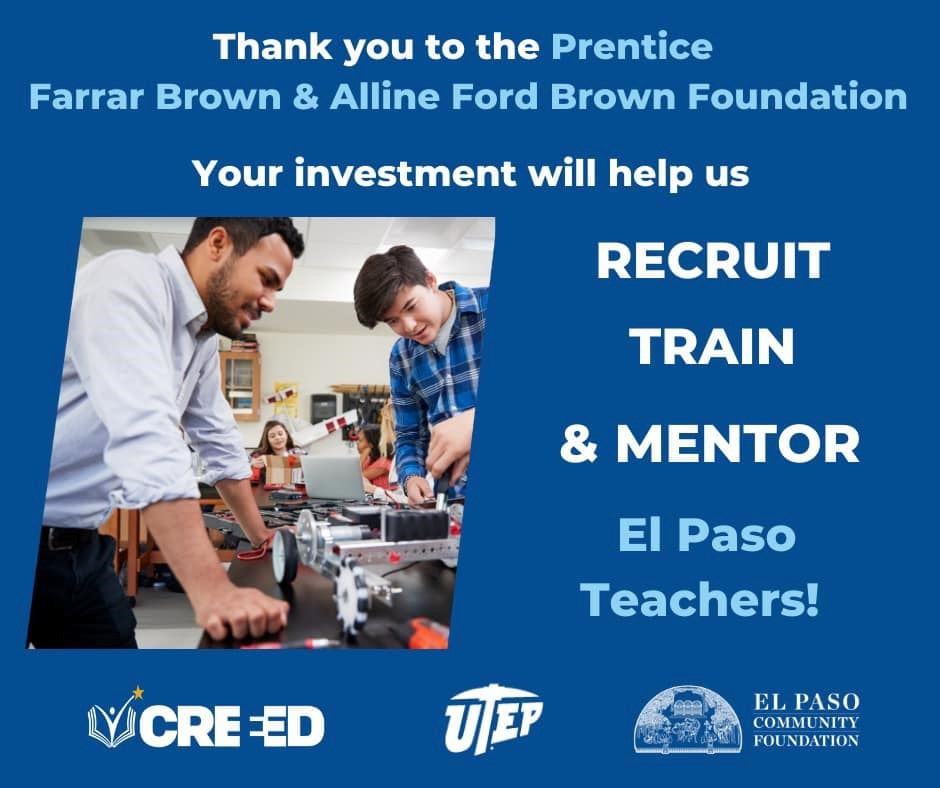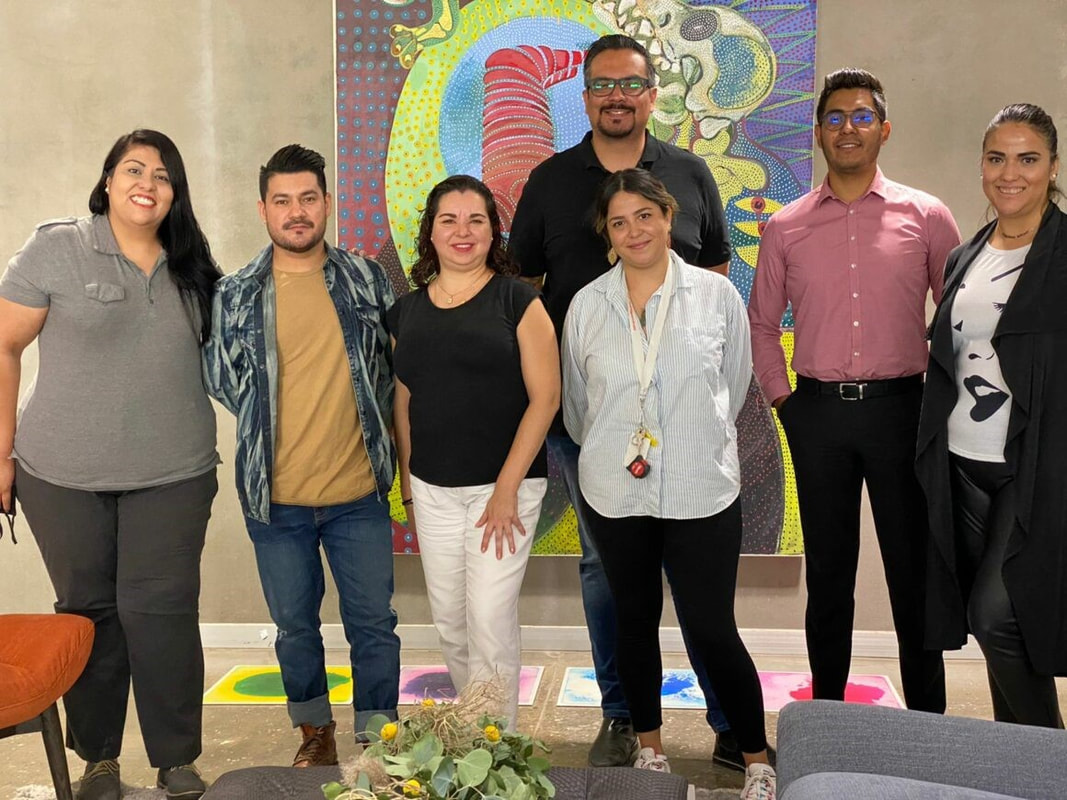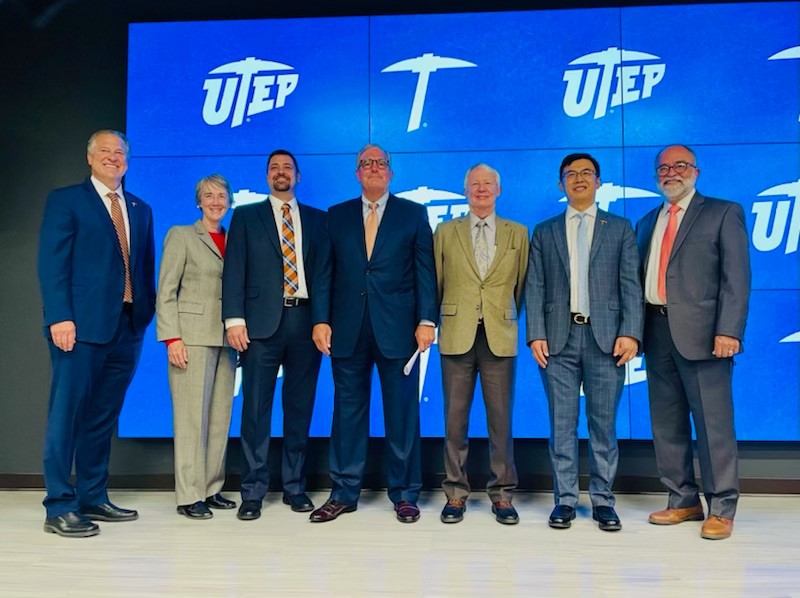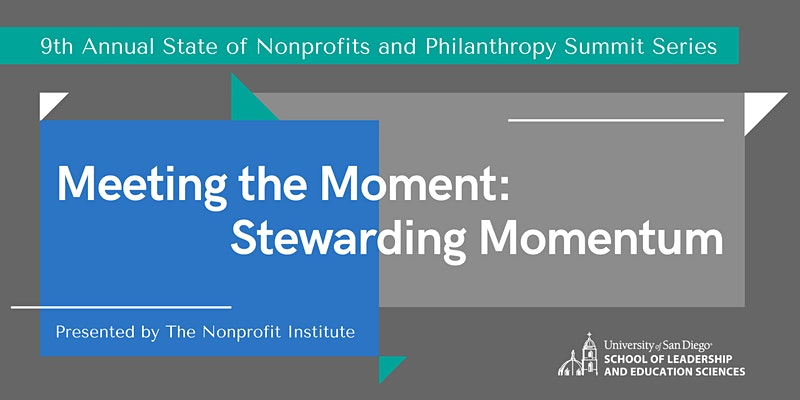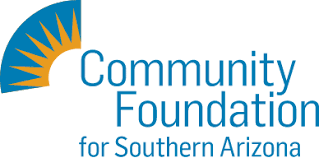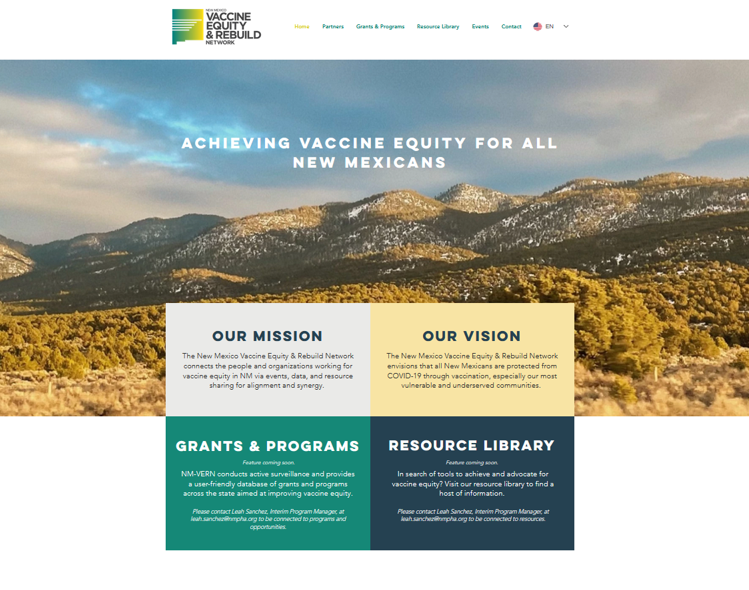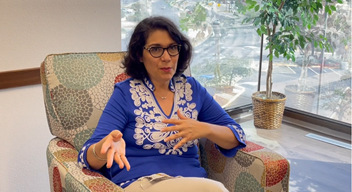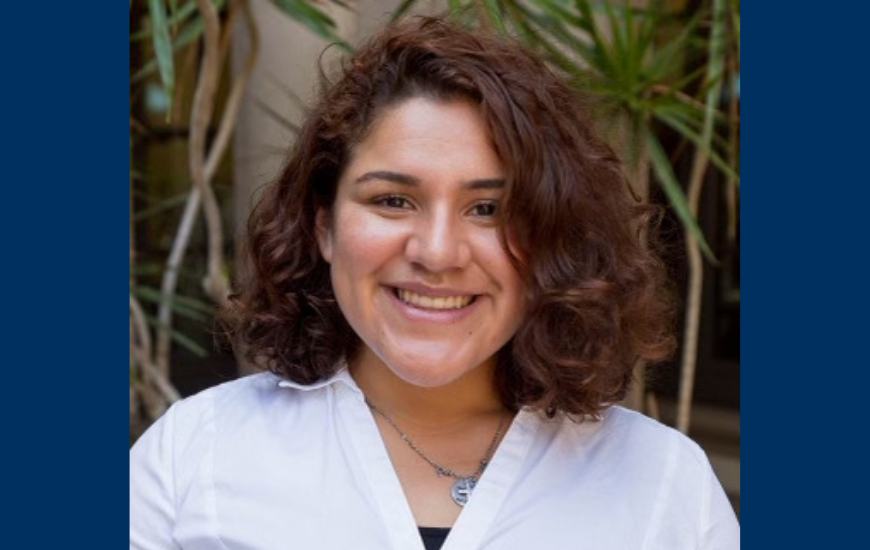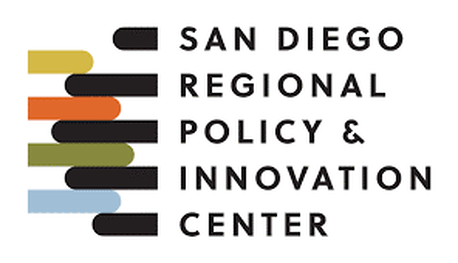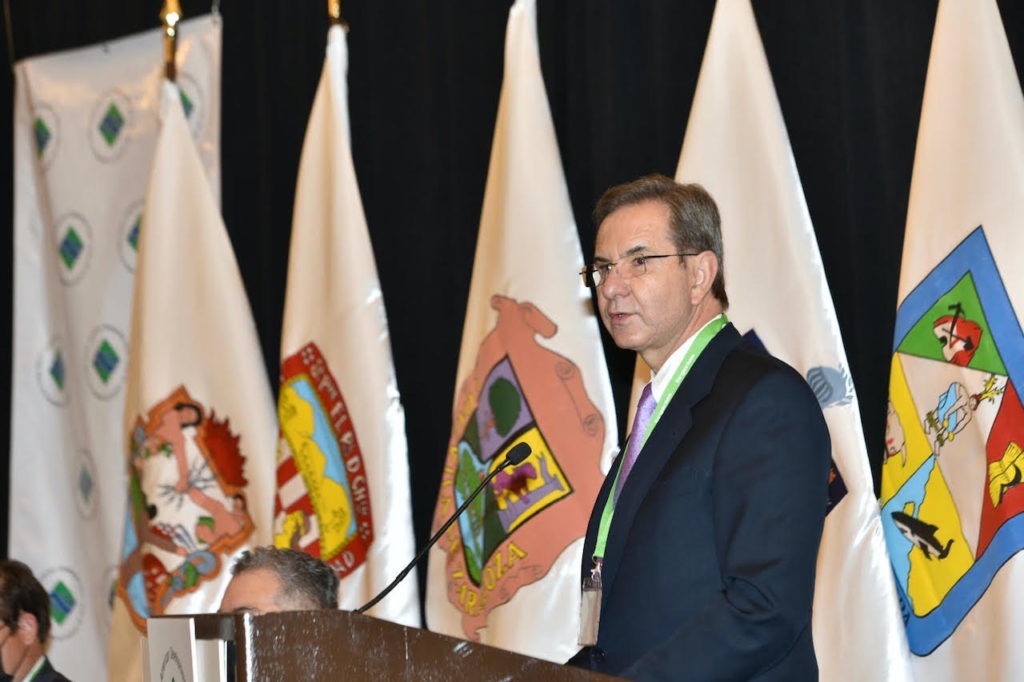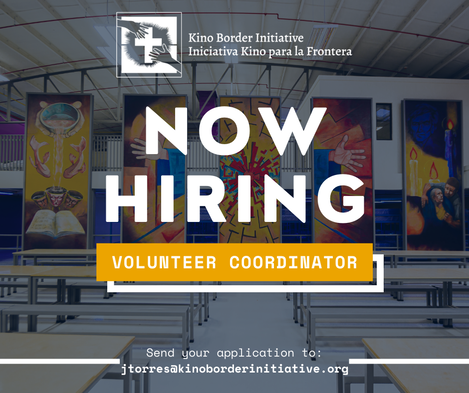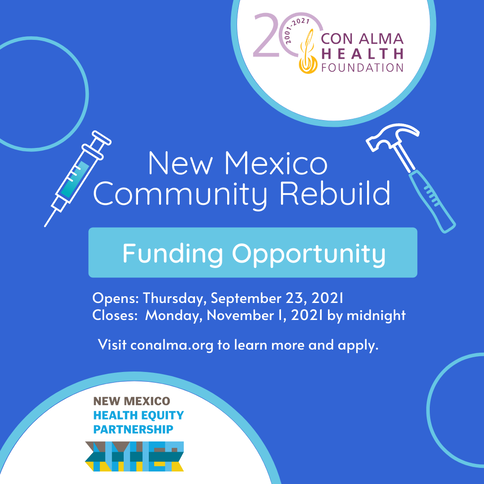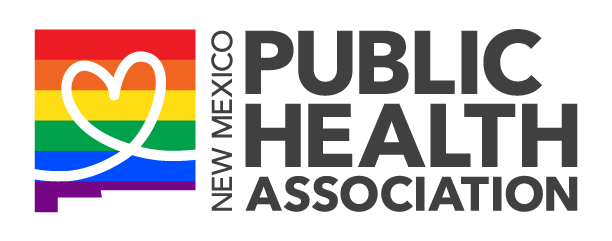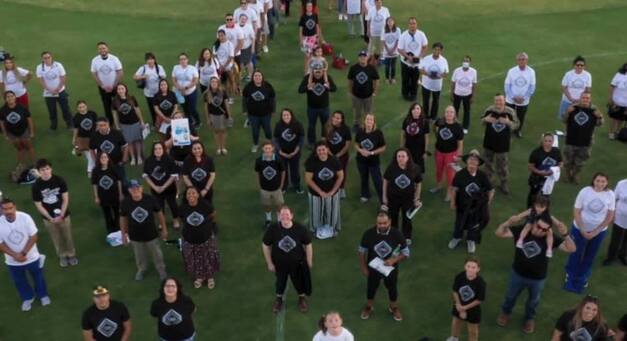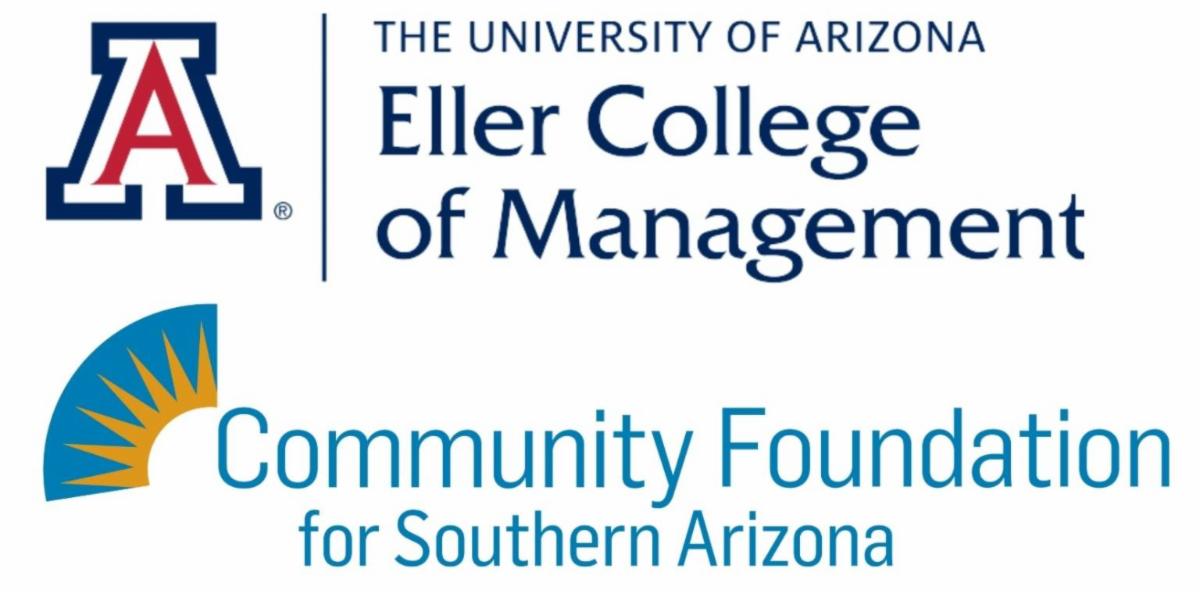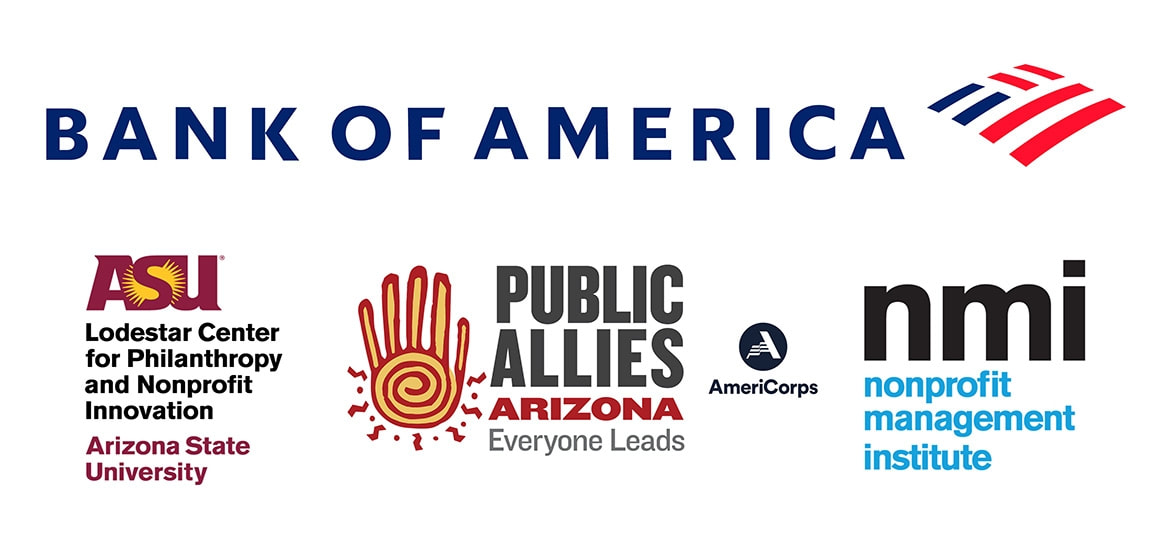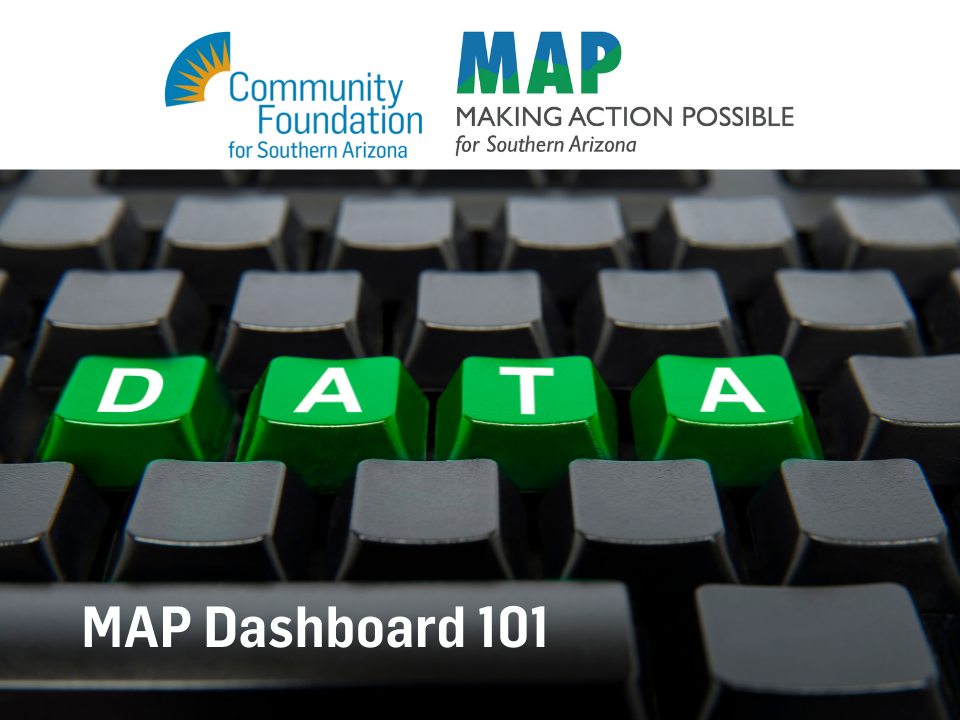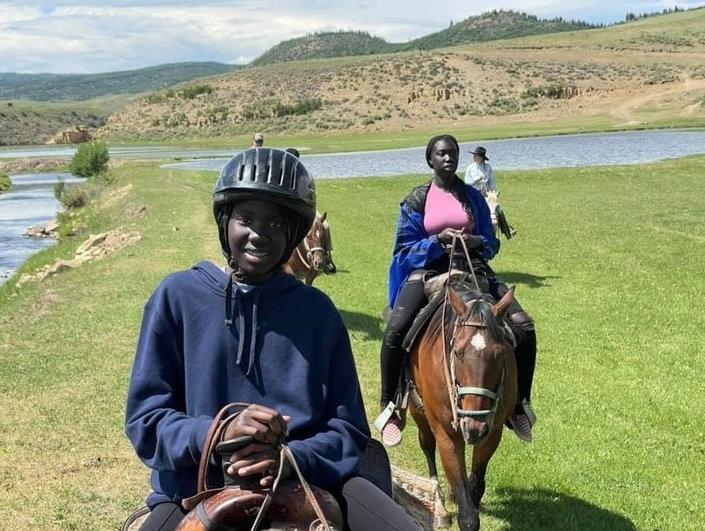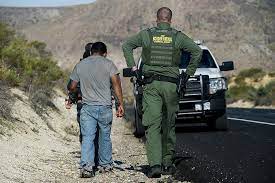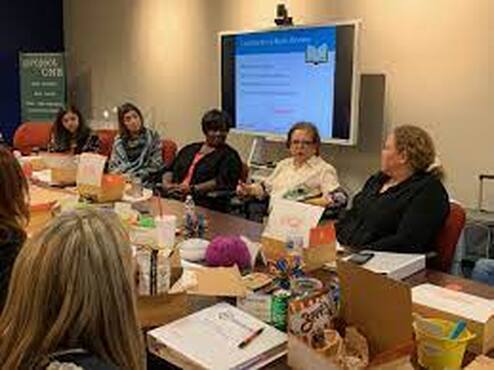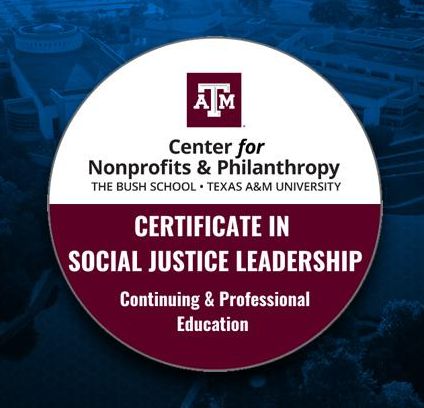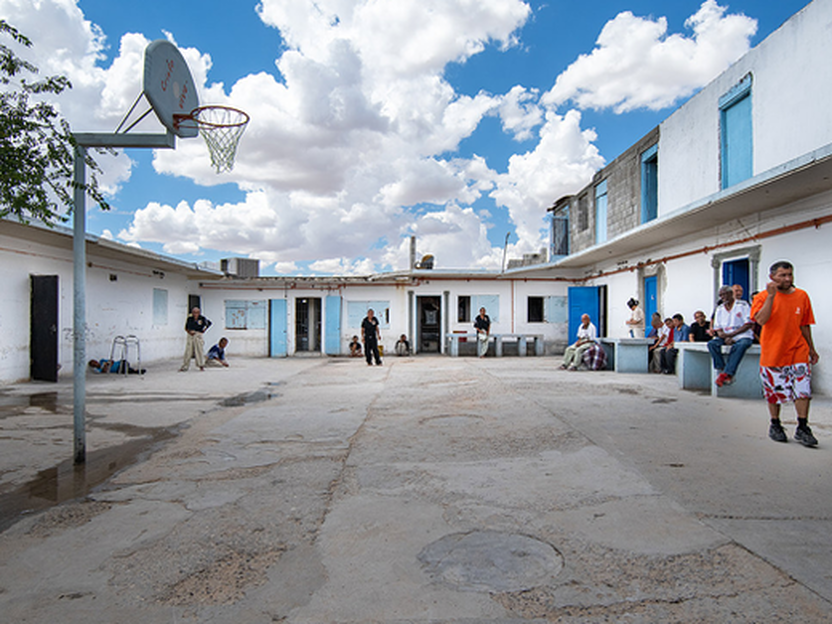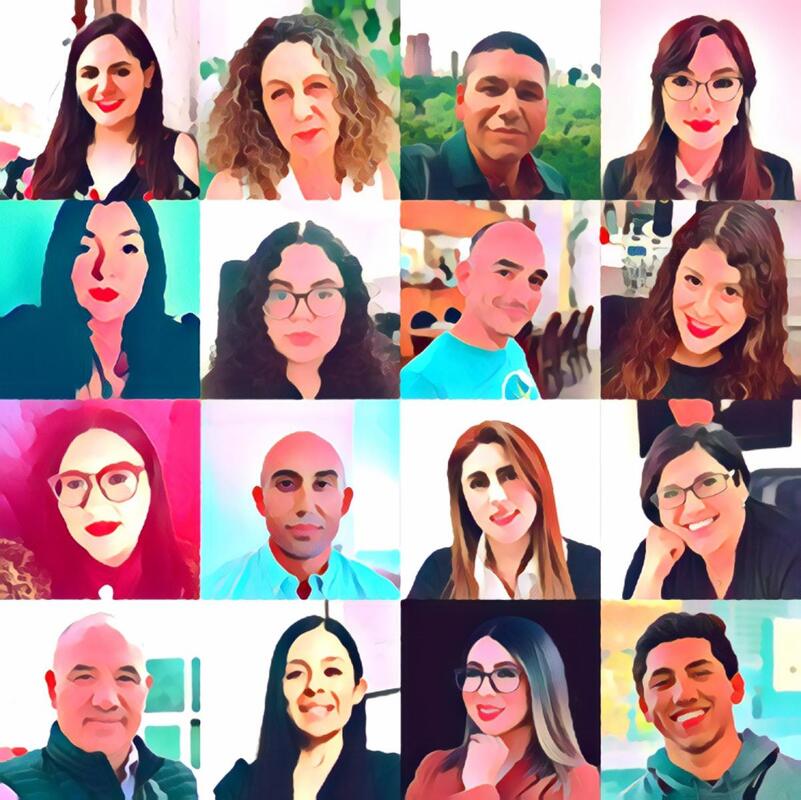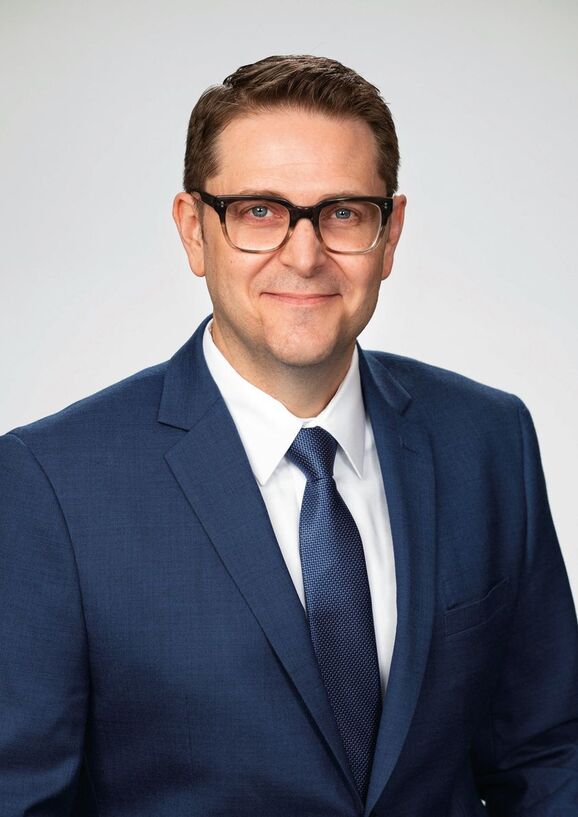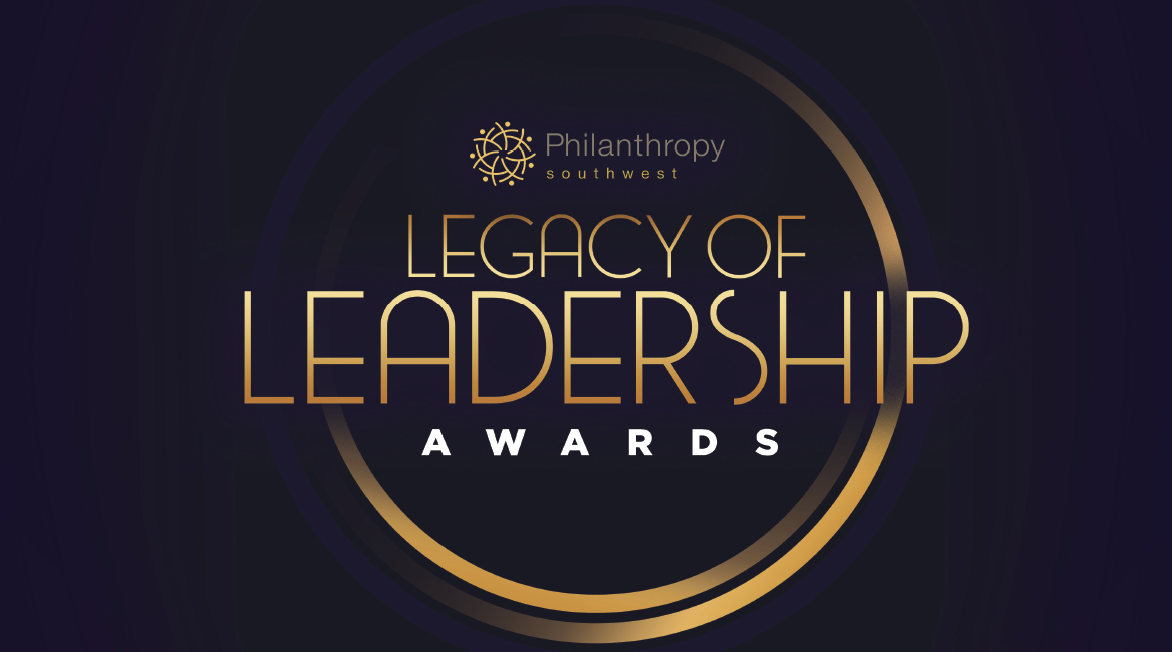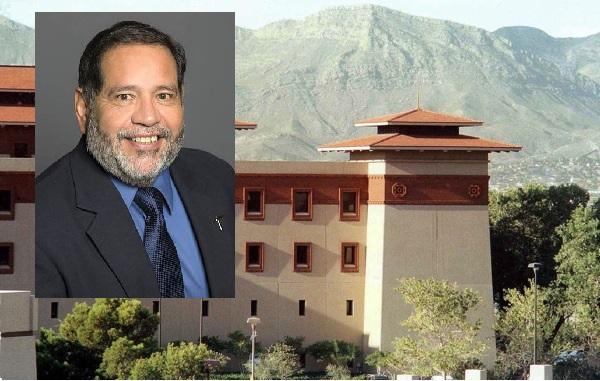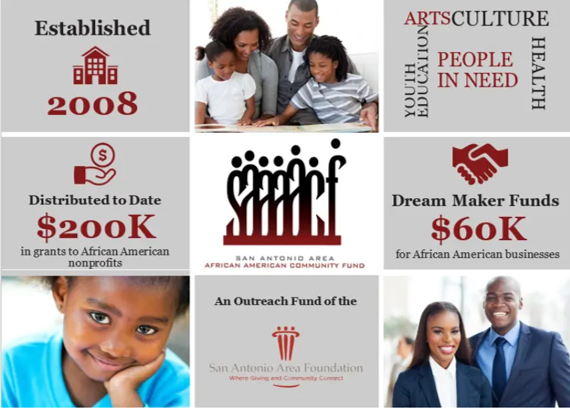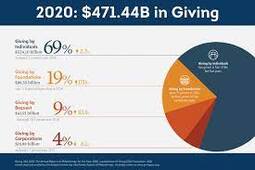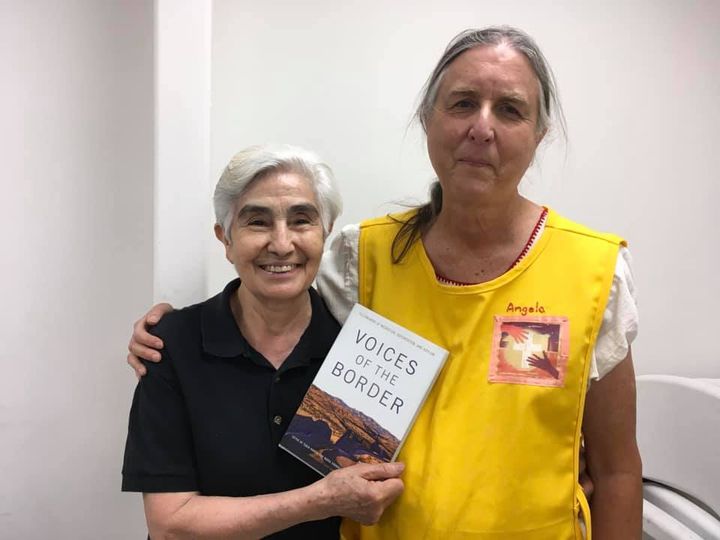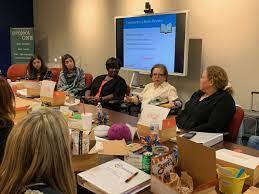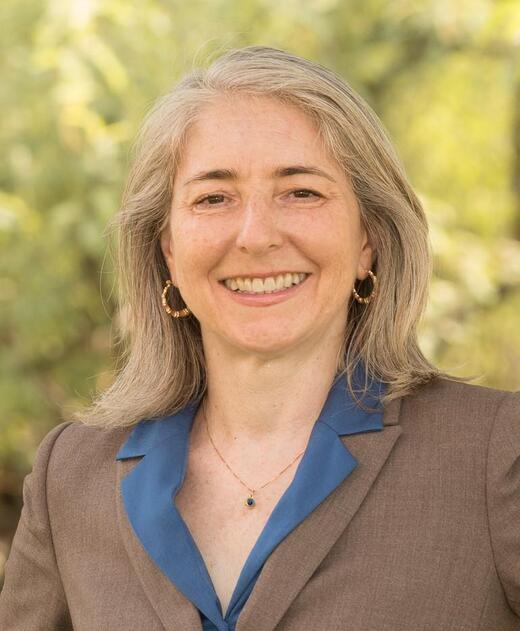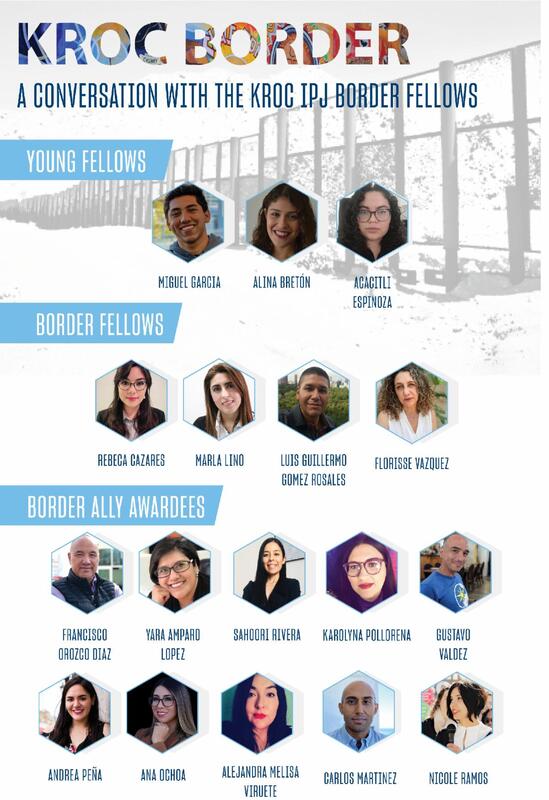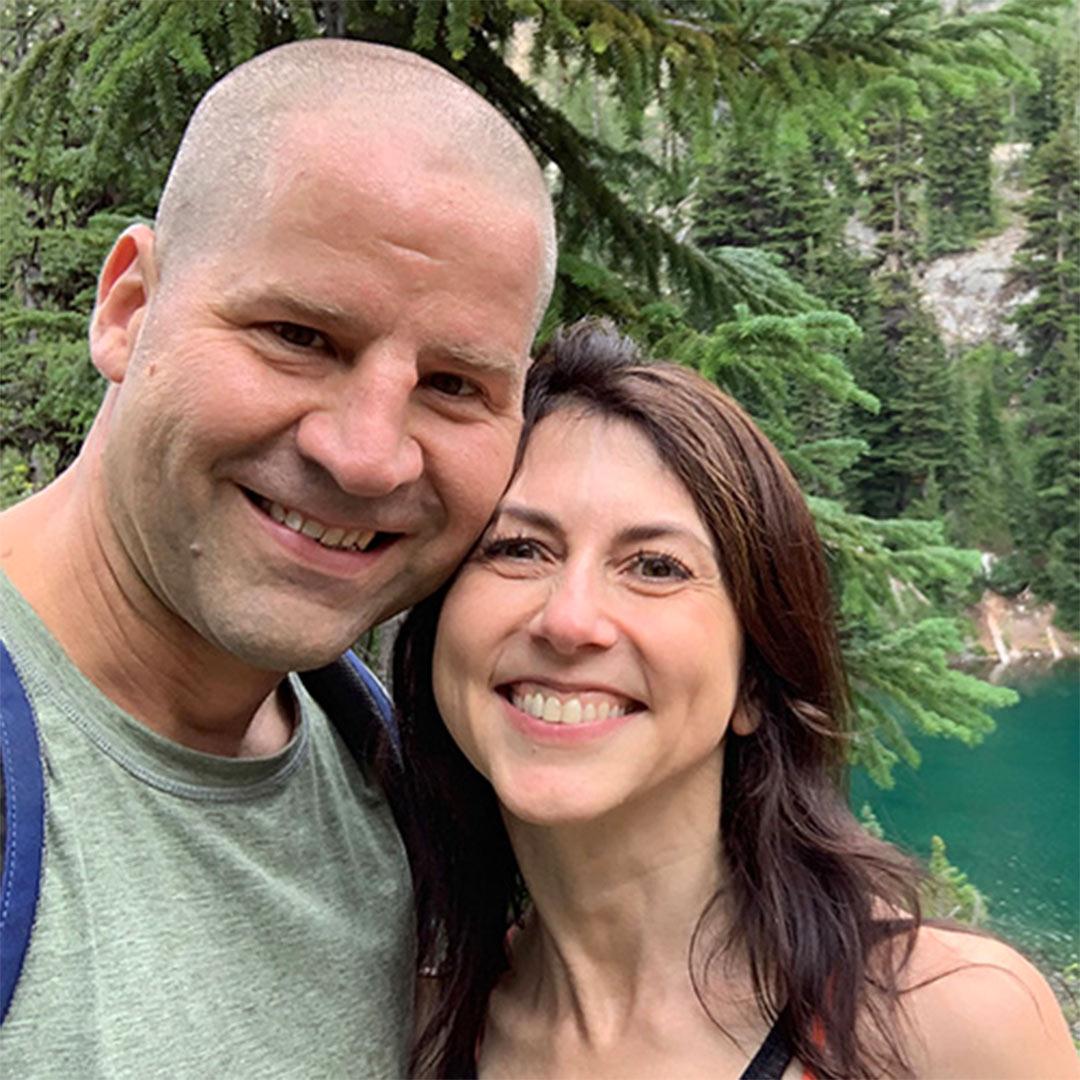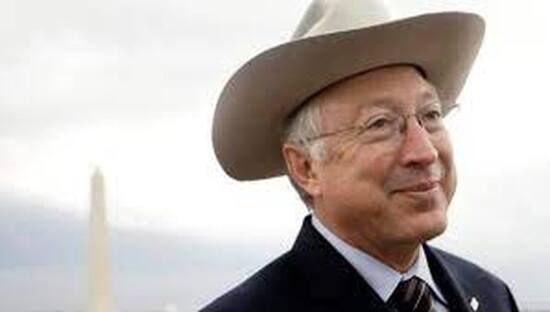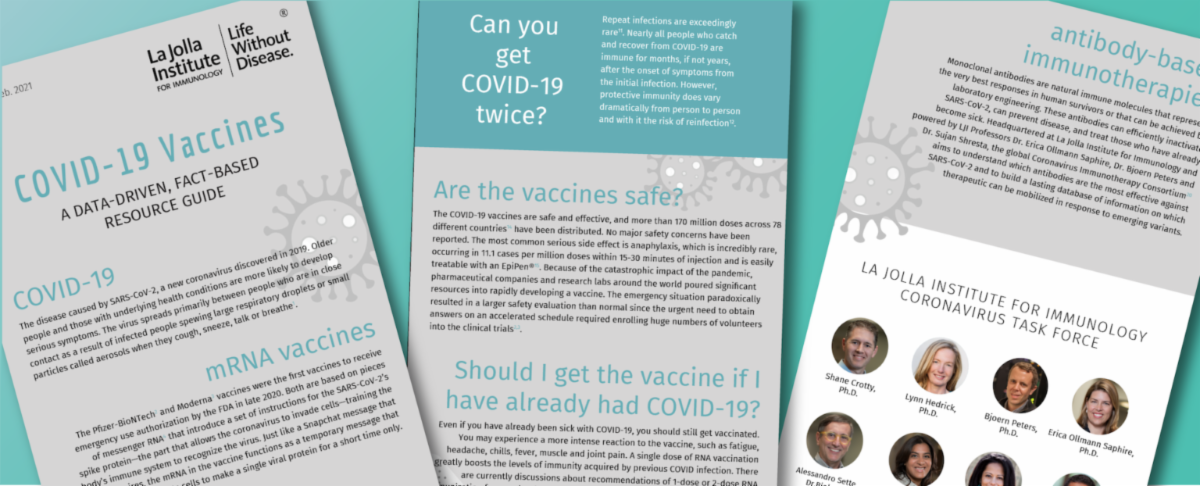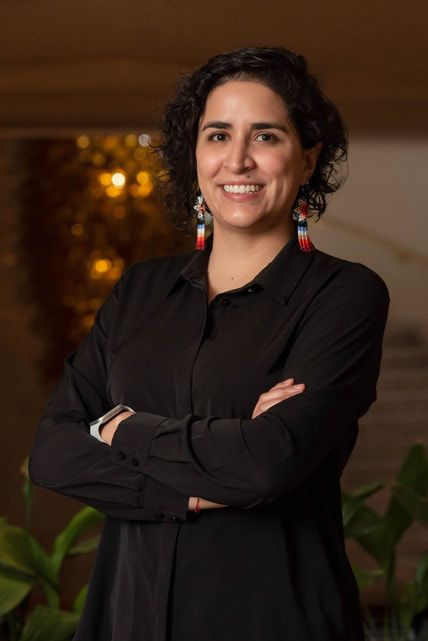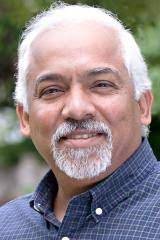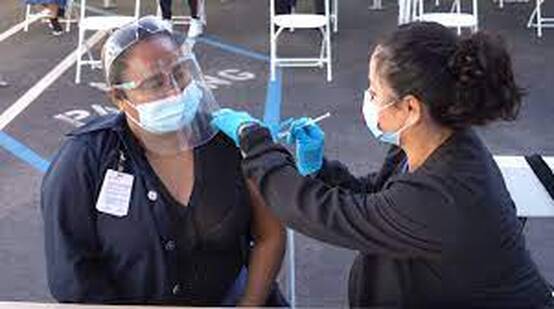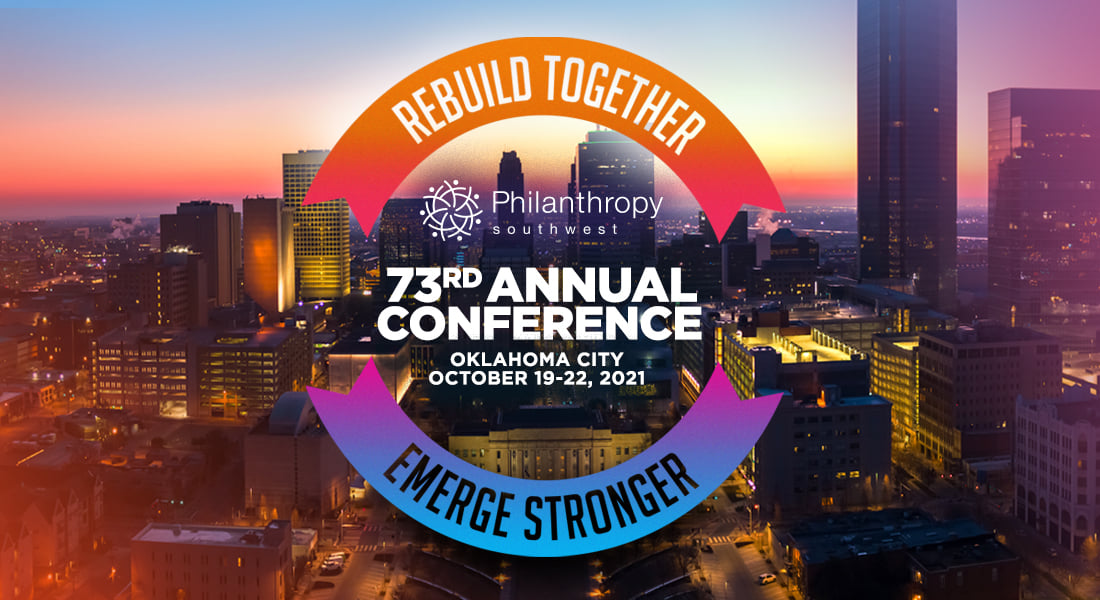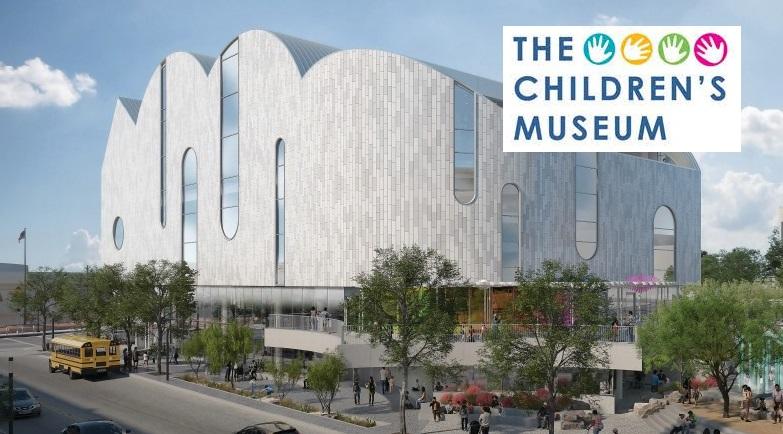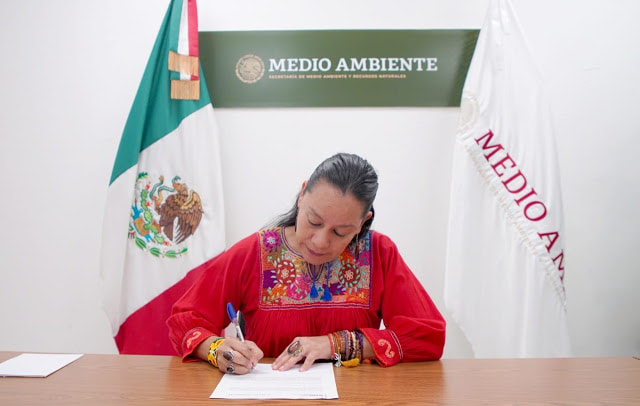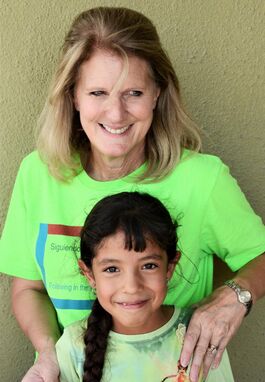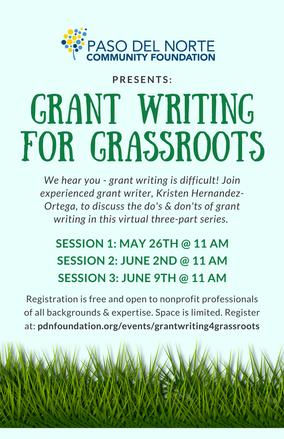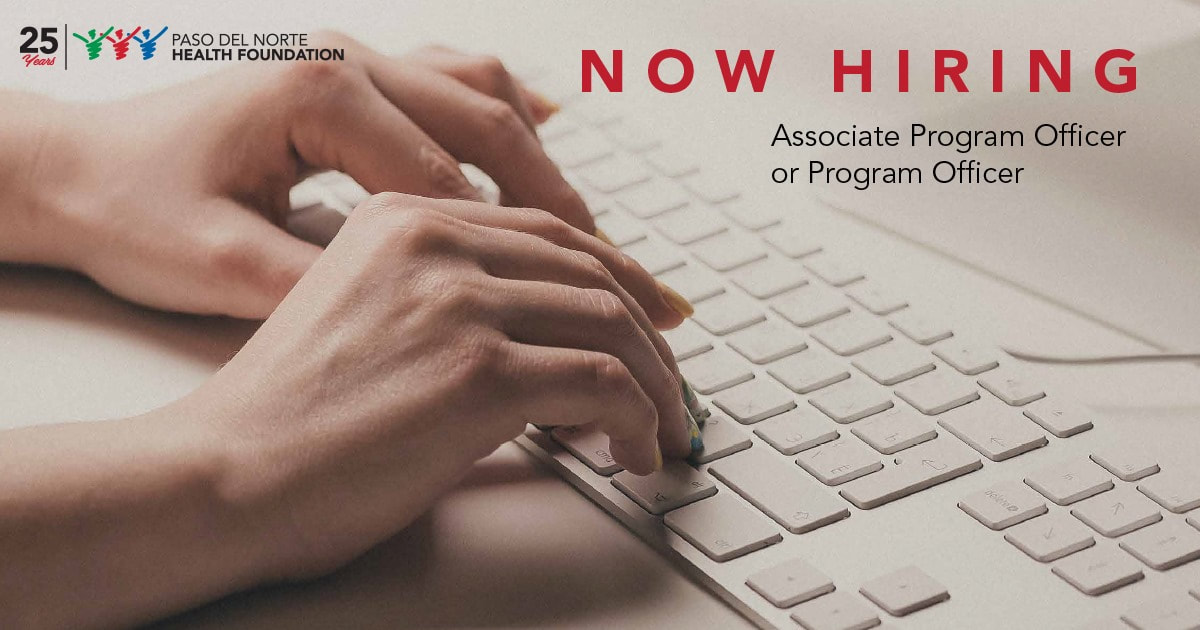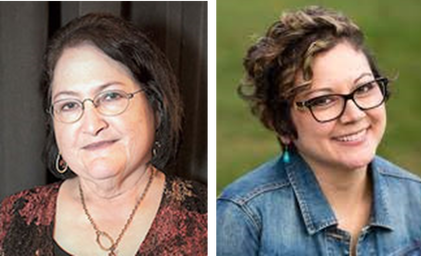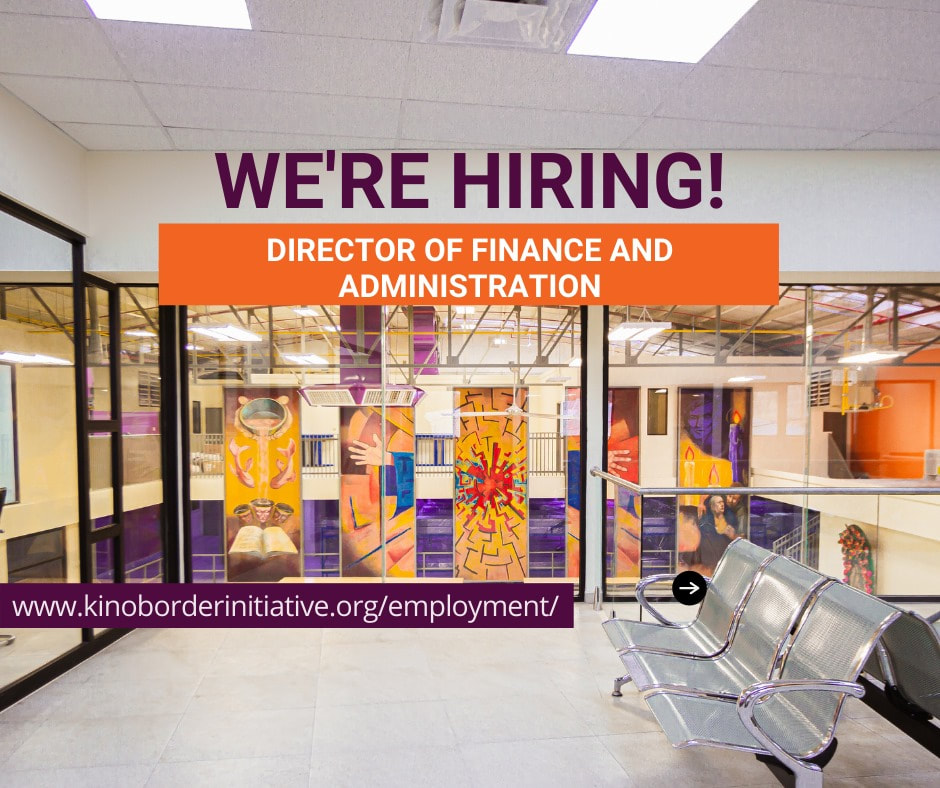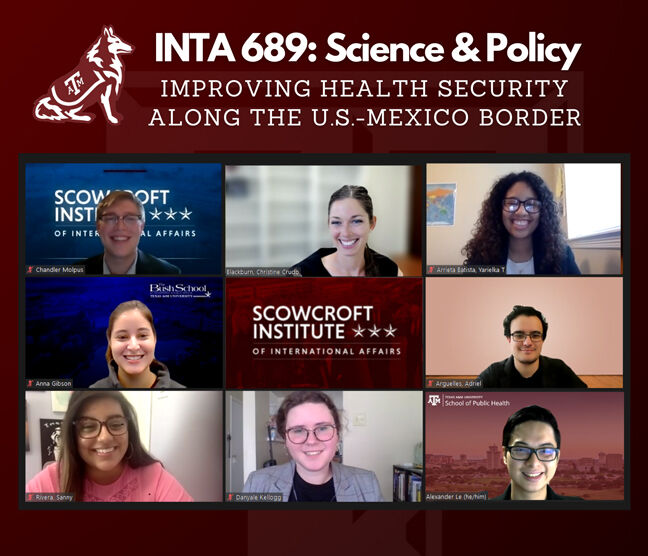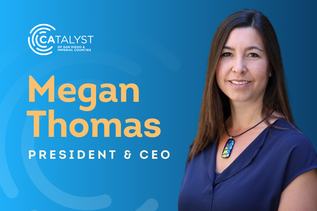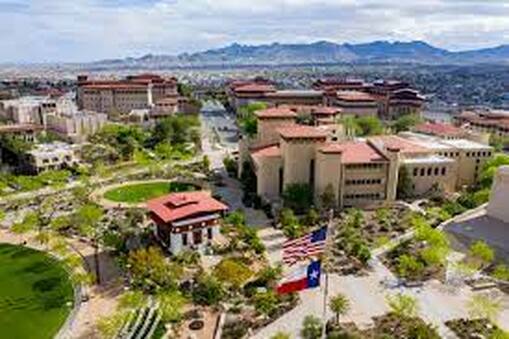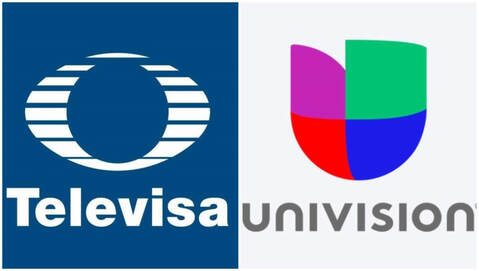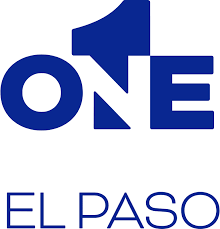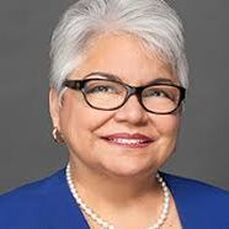BPP Member Stories
The work of the BPP is made possible by the investment of institutional and individual members who represent communities across the 10 Border State region. Our growing and dynamic network includes leaders and organizations from academia, business and corporate entities, government, philanthropy, and nonprofit organizations. We share a common vision and commitment for a thriving border region.
Catholic Charities’ bold move to train their leaders with business school knowledge. Dr. Laura Deitrick, Executive Director of The Nonprofit Institute at the University of San Diego, was featured in an article by America Magazine for her significant contributions to the Catholic Charities USA program. Few American cities face a more daunting homeless crisis than San Francisco, where on any given day 38,000 people walk the streets and settle into doorways and back alleys without food or shelter. On top of that challenge, the Bay Area is home to a rapidly growing immigrant population from a host of countries, whose members are often in need of day-to-day help simply to survive. At the heart of this city’s burgeoning demand for social services, ranging from housing and meals to legal assistance and education, is Catholic Charities San Francisco. In order to affect the lives of its struggling constituents in a meaningful way, the agency has had to dramatically change the way it manages and delivers a constellation of assistance programs through its... (read more)
|
Rhetoric or reality. By Morgan Smith. On June 18, I visited two migrant shelters on the border. At the Sacred Heart church in El Paso, there were 25 migrants, far below the usual number of over 100. At Respettrans in Juárez, there were 49; on past visits over the last four years, there would always be between 150 and 250. I then spoke to a representative of Colores United in Deming and Punto Beta in Palomas and was told that both were basically empty. What is going on? What’s happening is that Mexico is further restricting the flow of migrants across its southern border with Guatemala. In other words, Mexico whose president, Andrés Manuel López Obrador (AMLO) has never been particularly.... (read more) |
Arizona Community Foundation hosts event to convene nonprofit leaders and donors. President and CEO Anna María Chávez hosted the "Nonprofit CEOs and Fundholders Breakfast," where she introduced ACF's strategy, value propositions, and focus areas guiding our work. The dialogue was engaging and insightful, sparking great conversations about shared goals, opportunities, and barriers. The ACF is excited about the future and looks forward to deepening their engagement with nonprofits and fundholders across Arizona. For more than four decades, the Arizona Community Foundation has worked in tandem with generous individuals, families, and organizations to address some of the biggest challenges facing Arizona.
|
Condolences to the family and friends of Irwin Twist. On behalf of Ms. Amanda Aguirre, President & CEO & the entire staff at RCBH/SLWIC and with the permission of his family, the Regional Center for Border Health, Inc. would respectfully like to pay tribute to Cocopah Tribal Councilmember Irwin Twist. Mr. Twist, a longtime friend of RCBH along with Ms. Aguirre was instrumental in bringing the program “Together With Veterans” to the Cocopah community, the first in the nation to be on a reservation. The RCBH/SLWIC wants to express their deepest condolences to the Twist family during this sad time. In a released statement, Cocopah Chairwoman Sherry Cordova said "This is a shock to The Cocopah Tribe, his family and all who knew him. He was a council member with so many plans for the future, a veteran, a family man but most of all a friend. His passing will leave a great void in our community and to all who knew him. Our thoughts and prayers are with his family in this most unexpected senseless loss."
|
San Diego Foundation launches El Camino Fund to support Latino/a economic mobility, build generational wealth. Fund Grants $500,000 to seven local Latino/a-serving nonprofits. San Diego Foundation (SDF) announced today that it has launched El Camino Fund, an initiative led by local Latino/a leaders that will strengthen economic mobility and generational wealth-building projects led by Latino/a-serving nonprofit organizations in San Diego County. “San Diego is a beautiful and diverse region, but not everyone has access to the same opportunity,” said Miguel Lopez, SDF Manager of Development. “Through the SDF El Camino Fund, we hope to advance the trajectory of our Latino/a neighbors, which will benefit all San Diegans and strengthen our local economy as our growing, vibrant community will undoubtedly shape our region’s economic landscape for generations.” The fund was launched at a celebration hosted June 12 at Puesto in downtown San Diego, where the inaugural grantees were announced. El Camino Fund was seeded with a $2.5 million endowment from the San Diego Foundation (SDF) Board of Governors.
TrueColors LatAm celebrates pride in Mexico City. On June 18th, TrueColors is inviting LGBTQIA+ employees, VC’s, DEI leaders, and corporate allies to join in a celebration of community and support for LGBTQIA+ inclusion. If you are interested in attending, be sure to RSVP. Additionally, if you’d like to stay updated on all things TrueColors be sure to follow on LinkedIn and join the TrueColors community. TrueColors LatAm is a nonprofit organization dedicated to supporting LGBTQIA+ innovators across the Latin America tech and innovation ecosystem. TrueColors is run by recognized leaders from the Latin American tech economy, and the organization’s community efforts range from hosting panels with leaders in the innovation economy, partnering with leading companies in the region providing mentorship programs, and hosting community events across key Latin American tech hubs.
2024 Northern Health grant cycle is open. Con Alma invites nonprofits working to improve health in Northern New Mexico to apply for a grant. The Foundation provides grants to eligible nonprofits working to improve health and advance health equity. Our aim is to ensure that New Mexico’s diverse communities have fair opportunities to lead healthy lives. The 2024 Northern New Mexico grant cycle opens Monday, June 10th, 2024 and closes Friday, July 12th, 2024 at 11:59 p.m. The Northern New Mexico Health Grants Group awards up to $20,000 to nonprofits addressing the health and wellness of the diverse peoples of Los Alamos, Rio Arriba, and northern Santa Fe Counties (north of the City of Santa Fe).
Rancho Feliz Charitable Foundation seeks Executive Director. Rancho Feliz seeks a dynamic fundraiser and relationship builder to serve as the first paid Executive Director in the organization’s 37-year history. The new ED will build on a successful foundation to ensure the future organizational health and prosperity of Rancho Feliz. Rancho Feliz changes lives on both sides of the U.S./Mexico border through opportunities for service, cultural exchange and education. Motivated by the philosophy that the best way to improve our own circumstances is to serve others, Rancho Feliz has changed thousands of lives on both sides of the border. The organization operates with a small staff of two out of Phoenix, AZ and a team of partners in Agua Prieta, Sonora, Mexico. The Executive Director is Rancho Feliz’s... (read more)
Next Steps for Claudia Sheinbaum. By Morgan Smith. Claudia Sheinbaum has now won a staggering victory in Mexico’s June 2 national elections, becoming Mexico’s first woman elected president as well as the first Jew in the nation’s history. She will take office on October 1, and faces a barrage of tough issues, many of which will be of great importance to the United States. It’s essential, therefore, that we build a relationship with her that focuses on some of our common issues. My wife and I were in Mexico City from Friday, May 31 until Monday, June 3, stayed in the Majestic Hotel on the edge of the huge Zócalo or central square, and had the opportunity to interview dozens of... (read more)
World Design Capital Announces Binational Youth Poster Exhibition. World Design Capital San Diego Tijuana 2024 (WDC 2024) announces the selected posters of the Binational Youth Poster Exhibition. A collection of 16 designs created by young people from our region, this exhibition is not only a showcase of creativity, but also a testament to the profound impact young minds can have on our shared future. “We applaud all the inspiring young adults who submitted designs for this exhibition,” said Mai Nguyen, Board Chair of WDC 2024 and Director of UC San Diego Design Lab. “San Diego and Tijuana are blessed with an amazing local art scene, and this process showed us that this will continue for generations to come. The designs selected are a beautiful reflection of cross-border collaboration, something that is at the forefront of... (read more)
Texas Tech Health El Paso, UTEP announce New MedFuture Cohort, part of our region’s next generation of physicians. Adolpho and Debbie Telles announce $100,000 gift to help future health care heroes at Texas Tech Health El Paso. Texas Tech Health El Paso and The University of Texas at El Paso today announced the second cohort for MedFuture, a joint initiative creating pathways for qualified students to be admitted right out of high school to attend college and medical school in their hometown of El Paso. Adolpho and Debbie Telles announced at the event a $50,000 gift for the Adolpho R. and Deborah L. Telles Family Scholarship, which will be matched by the KPMG Foundation to double its impact to $100,000. As a retired partner of accounting firm KPMG, Adolpho Telles benefits from the foundation's matching gift program. The Telles Family scholarships will be awarded both to... (read more)
North American Development Bank meets with stakeholders in Arizona. Yesterday was the first day of the two-day Border 2025 Program Regional Task Force and Environmental Health/Environmental Justice Meetings for the #Arizona and Gobierno del Estado de Sonora Region, being held in Nogales, Sonora, Mexico. The objectives of the meetings are to facilitate continued dialogue with the community and program partners on #Border2025 activities, as well as to discuss future impact of the program. Participants included the Arizona Department of Environmental Quality, Procuraduría Ambiental del Estado de Sonora and the U.S. Environmental Protection Agency.
May 29, 2024
2024 grant cycle is now open! Con Alma Health Foundation invites nonprofits that improve health in New Mexico to apply for grants to support their work. The Foundation provides grants to eligible nonprofits working to improve health and advance health equity to ensure that New Mexico’s diverse communities have fair opportunities to lead healthy lives. This 2024 statewide grant cycle is now open, and will close Friday, June 21st, 2024 at 11:59 p.m. Assistance with grant portal submission is not available after 5pm. This year, Con Alma Health Foundation will award up to $30,000 to nonprofits addressing the health and wellness of the diverse peoples of New Mexico. Click here to join the 2024 Grant Cycle Info Session.
El Paso Community Foundation launches Puente News Collaborative. The Puente News Collaborative is a unique binational news collaboration publishing stories about significant issues facing El Paso and Ciudad Juárez. The Puente News Collaborative is: ABC 7, El Paso Inc., El Paso Times, Univision 26, KTEP public radio and Borderzine.com as part of the multimedia journalism program at UT El Paso. The Puente News Collaborative is a collaboration between the El Paso Community Foundation and Microsoft. Check out the latest stories from this innovative news approach for the border: Poll reveals voters in Mexico expect a lot from likely first woman president. Mexico will likely elect its first female president this week. Here's what that could mean for the country. Histórico voto en México, la política cambiaría poco. Historic threshold: Fears of violence, autocratic rule await Mexico's first woman president.
Mexico’s navy school tall ship Cuauhtémoc arrives in San Diego. Leer en español. The ARM School Tall Ship Cuauhtémoc arrived in San Diego with 261 crew members, including captains, officers, cadets, class, and sailor personnel, as part of the 2024 Tricontinental Training Cruise. Belonging to the Mexican Navy, the vessel docked at 10:00 a.m. at the B Street Pier (next to the cruise terminal of the Port of San Diego), where it was welcomed by naval, civil, and diplomatic authorities- led by the Consul General of Mexico in San Diego- as well as representatives of the Mexican community. Upon the ship's arrival in San Diego, where she will remain for six days, most of its crew took their positions, including on the sail supports, thus saluting the port, naval, and civil authorities, who were... (read more)
May 15, 2024
Plaza Classic Film Festival Screenwriting Competition. The third annual El Paso Community Foundation Plaza Classic Film Festival Screenwriting Competition is accepting entries through July 3rd. It will award a $500 1st prize, a $250 2nd prize, and Final Draft 13 screenwriting software to the top two finishers. The first prize winner also receives a consultation with El Paso writer-director Lucky McKee (Poker Face, Old Man, The Woman, May), and a table read of their screenplay. The deadline is 11:59 pm July 3. Cost is $30 through June 14, $40 from June 15 through July 3. The competition is sponsored by Final Draft, Coverfly and the El Paso Film and Creative Industries Commission. Plaza Classic Film Festival tickets go on sale in June.
San Antonio Council for International Visitors hires new director. The San Antonio Council for International Visitors, known as SACIV, recently hired Monika Prochazkova (prō-‘HAS-kō-vah) as its new Executive Director. Hailing from the Czech Republic, Prochazkova brings SACIV a wealth of knowledge and experience in international engagement and entrepreneurship, coupled with a robust experience serving as a citizen diplomat. Under the auspices of the U.S. State Department, SACIV plays a pivotal role in promoting San Antonio as a key player on the global stage. SACIV is a key player in the State Department’s International Visitor Leadership Program which invites emerging leaders from around the world to the United States for professional exchanges to advance U.S. foreign policy goals, combat foreign misinformation campaigns, and enhance mutual understanding across nations. The program also contributes hundreds of thousands of... (read more)
Funds secured to restore historic international suspension bridge in South Texas. A historic international suspension bridge that hasn’t been used for decades has gotten federal and state funding for renovations so it can once again facilitate trade and travel. Texas state Sen. Judith Zaffirini this week announced that the Texas Transportation Commission has approved a nearly $1.7 million low-interest loan with Starr County for the restoration of the Roma-Ciudad Miguel Aleman International Suspension Bridge, which links the South Texas town of Roma with Miguel Aleman, Mexico. The loan comes after U.S. Rep. Henry Cuellar, D-Texas, in February announced $385,000 in federal grant funding through the North American Development Bank to “assess the... (read more)
New strategy report. Seizing CaliBaja’s Nearshoring Opportunity: A Binational Call to Action. The CaliBaja Nearshoring Opportunity Report has been made possible thanks to the generosity of Malin Burnham and the Burnham Foundation; the Alumbra Innovations Foundation, Steve Williams, and Bill Koman. COVID supply chain disruptions, changing geopolitics, as well as rising labor, logistical, and transportation costs have prompted a growing number of companies once largely reliant on manufacturing in China for the U.S. market to re-shore their production back to the United States or explore other nearshoring options in friendlier locales. Newly enacted industrial policies to promote national security objectives and strong, resilient supply chains –including... (read more)
|
Comic-Con Museum announces exclusive new exhibits at WonderCon. The Comic-Con Museum announced three upcoming exhibits during the WonderCon panel. These exhibits will feature the famous Betty Boop, award-winning comic creator, and Afrofuturist John Jennings, and a bi-national exhibition as part of the World Design Capital San Diego Tijuana 2024 community initiative. Scheduled to open in May and June 2024, these exhibits are all world premieres and original to the Museum. Exhibits include:“Border Blitz: Artistas del Cómic de Tijuana.” In celebration of World Design Capital San Diego Tijuana 2024, Comic-Con Museum and the Consulate General of Mexico in San Diego announce their second binational collaboration: “Border Blitz: Artistas del Cómic de Tijuana.” Featuring the art of Charles Glaubitz, Alejandra Yépiz Portillo, and Urbano Mata, the exhibit will highlight the diverse stories and perspectives of these border artists as told through... (read more)
|
ASU Lodestar Center hosts 2024 West Coast Nonprofit Data Conference. This weekend the ASU Lodestar Center for Philanthropy and Nonprofit Innovation hosted the 2024 West Coast Nonprofit Data Conference. This event, now in its 21st year, brought together academics and data professionals in the nonprofit space to network and share research findings, methodology, best practices and more. Represented this year are 17 U.S. states — plus Scotland. The conference started with a panel conversation about funders’ perspectives on nonprofit data, featuring David Martinez III from @vitalysthealthaz, Erin Goodman from Virginia G. Piper Charitable Trust, Jon Ehlinger from Garcia Family Foundation, and Kim Covington from Arizona Community Foundation. Presentations continued through Saturday. A key partner and supporter of the conference was the Center for Nonprofits & Philanthropy at Texas A&M University’s Bush School.
See also: Cody Isaacs of Challenger Homes exemplifies the Rancho Feliz Charitable Foundation “Guardián Warrior.”
Arizona Community Foundation hosts Connects Forum; CEO unveils new strategy for the next three years. Connects Forum brought together an extensive network of donors, professional advisors, nonprofit leaders, and community influencers for a day filled with networking, sharing insights, and learning about best practices to empower and fortify our communities. The morning kicked off with a Breakfast Session featuring none other than ACF President & CEO, Anna María Chávez, alongside Aspen Institute President & CEO, Dan Porterfield. Keynote Speaker Van Jones captivated attendees with his thought-provoking dialogue, engaging in an enlightening conversation with Richard Tollefson of the Tollefson + Kellenberger Forum for Social Justice. As the day drew to a close, Anna María Chávez unveiled ACF's new strategic direction, setting the course for the organization's trajectory over the next three years. This pivotal moment marks a commitment to advancing... (read more)
A wheelchair in time. By Morgan Smith. It all began totally by chance on November 30, 2019. I was driving west from the center of Juárez, Mexico where I had delivered food and clothing to a migrant shelter called Respettrans into neighboring Anapra with the goal of eventually reaching several projects that I had been documenting and assisting for almost a decade. These trips are nerve wracking. After all, Juárez still has one of the highest murder rates in the world. But there are also the police, the soldiers, the potholes, the careening drivers, the fatigue of having driven all the way from my home in Santa Fe, New Mexico, some five hours to the north. Photography is my salvation and this time a photo op appeared in the form of a tire repair shop painted a pinkish color. I stopped. A dazed looking man stood in front. His right arm was trembling. I wasn’t able to start a conversation but... (read more)
Longtime TAMIU Partner Garza Robles announces $100,000 gift at International Mariachi Festival. A surprise highlight of the 8th Annual International Mariachi Festival performance this Saturday at Texas A&M International University (TAMIU) was the announcement of a $100,000 gift from Eduardo and Juanita Garza. Garza Robles was named the Embajador Internacional del Mariachi during the performance featuring the internationally renowned Mariachi Nuevo Tecalitlán at TAMIU’s Center for the Fine and Performing Arts. The performance, “Cultura y Tradición,” capped off the two-day Festival held April 18 – 19 that was attended by over 360 middle and high school mariachi students from across the state. Garza Robles is a longtime supporter of the University’s Mariachi Program and he and his Juanita have created four endowed scholarships at TAMIU and are Silver Society donors. The $100,000 gift will support students focusing on… (read more)
Border-wide Green Loan for SOFOPLUS in Mexico. NADBank has published a proposal for public comment: The proposed project consists of providing a corporate line of credit for up to US$10 million (or its equivalent in Mexican pesos) to SOFOPLUS to fund its lending and leasing operations for green projects in Mexico. Comments regarding the proposal must be received by May 24, 2024. The objective is to support energy efficiency, water savings and emission reductions in the Mexican border region through lending and leasing operations for eligible project types as defined under the NADBank Green Loan Framework. The project is expected to generate environmental and human health benefits related to the following… (read more)
Philanthropy Southwest team travels to Phoenix, Arizona for PSW On the Road. The event featured networking for local funders, a share-out of research on the economic impact of philanthropy in the region, and an insightful presentation on strategies for deepening organizational capacity for listening and feedback. We're inspired by the collective efforts to make a difference. Special thanks to Dr. William Brown of the Center for Nonprofits & Philanthropy at the Bush School at Texas A&M, and Erin Goodman of Virginia G. Piper Charitable Trust for their invaluable contributions! As always, we are grateful to PNC Institutional Asset Management for their sponsorship of this series. Follow PSW and visit philanthropysouthwest.org to see where PSW On The Road is headed next.
La Jolla Institute for Immunology transforming scientific research by prioritizing a sex-based lens. On April 10th, LJI Professor, President & CEO Erica Ollmann Saphire, PhD, MBA, joined an esteemed selection of leaders in biomedical research and healthcare at Women's Health Access Matters #3Not30 Initiative dedicated to accelerating women’s health research and investment. In her remarks, Dr. Saphire emphasized the collaboration necessary to establish a blueprint for transforming scientific research by prioritizing a sex-based lens—one that takes into account the dynamic interplay between biology and sex. It is this foundational belief that prompted us to establish the groundbreaking Center for Sex-based Differences in the Immune System, which aims to reshape the landscape of... (read more)
April 10, 2024
Secure investments in environmental infrastructure to ensure the sustainability of the border region. The southern U.S. border is dominating the news cycle, elevating long-held bias about the we share with Mexico – our ally and our largest trading partner. Allowing this negativity to overshadow the success and vitality of the U.S.-Mexico border region may blind us to the opportunities of working together and, more broadly, only hurts America. By strategically in environmental infrastructure, however, both countries can unlock economic opportunities that benefit communities on both sides of the border, improve the environment, and strengthen our bilateral relationship. The border region is a goldmine of economic potential that generates more than $800 billion in... (read more)
Darren Kew, Ph.D. Named New Dean of the Joan B. Kroc School of Peace Studies. The University of San Diego is pleased to announce the appointment of Darren Kew, Ph.D., as the new Dean of the Joan B. Kroc School of Peace Studies, effective July 1, 2024. Dr. Kew holds a Ph.D. from Tufts University and brings with him a wealth of experience and expertise in peacebuilding, conflict resolution, and international relations. He is a professor and former Chair of the Department of Conflict Resolution, Human Security, and Global Governance, and Executive Director of the Center for Peace, Democracy, and Development at the University of Massachusetts, Boston. Additionally, Dr. Kew has advised democracy and peace initiatives to the United Nations, USAID, US State Department, and several NGOs, including the Carter Center and the Nobel Peace Prize-nominated Interfaith Mediation Centre in Kaduna, Nigeria. An author and researcher, Dr. Kew's work focuses on... (read more)
Environment report: US steps up watchdog role over Tijuana sewage system. The IBWC will begin monthly inspections of a key wastewater pump that keeps sewage from spilling into the Tijuana River, among other collaborations. Years ago, in a moment of despair over the utter dead-end that solving the Tijuana River sewage crisis seemed to be, I asked U.S. officials why we don’t just cross the border and start fixing broken pipes in Mexico. Nations can’t just cross each other’s borders like that, MacKenzie, the kindly federal official told me. At least, they shouldn’t. It would be a rude mistake. Mexico could consider such federal intrusion without permission as an act of war. But President Joe Biden’s pick to rein in cross-border sewage spills has found a way to leverage her relationships with Mexico to encourage more collaborative U.S. involvement. Maria-Elena Giner announced to reporters during a press conference last week that... (read more)
Supporting families settling on the Mexican side of the border. By Linda Kilburn-Peterson. In Northern Sonora Mexico, only 4 miles from the US border, Esmerelda sweeps the front step of her one room house. The siding has a fresh coat of paint, and native plants grow by the door. While her home lacks plumbing, she recently acquired electricity to power some lights and a small fridge. Her current home is a far cry from the shack built out of found materials (pallets, scrap metal, etc.) that she was raised in and left only 5 years ago. At the mercy of the desert’s extreme temperatures and endless dust, she slept in the one-room hut with her parents and youngest siblings. The older siblings had to sleep outside. Esmeralda’s family migrated to San Luis Rio Colorado when she was a baby, in search of better economic opportunity than they could find in their home state of Oaxaca. In Oaxaca they would grow things to barter and trade and they slept in hammocks in the trees. Esmerelda’s father... (read more)
Honoring excellence in the nonprofit sector. Each year, our Piñon Awards recognize the outstanding work of nonprofit organizations and celebrate their positive impact in northern New Mexico communities. We are thrilled to announce that nominations for our 2024 Piñon Awards are now open through Friday, May 10. Four winning organizations will be honored at our 38th Annual Piñon Awards Ceremony in the fall — and each will receive a general operations grant, a professionally-produced marketing video, and air time on our radio show Community Matters. Browse this year's four award categories and support your favorite nonprofit with a nomination here. Since 1987, the Santa Fe Community Foundation has selected and awarded the Piñon Awards to local nonprofit organizations that have made extraordinary contributions to the community.
Tiny gestures at Vision in Action. By Morgan Smith. It seemed like a tiny gesture, my wife, Sherry’s insistence on taking these Walmart 4 X 6 photos of women patients at the mental asylum, Vision in Action in Juárez and putting them in paper frames and then pasting gold stars on the frames. Then we drove to Juárez, a trip that I have been making at least monthly for more than a decade and that Sherry has made a number of times with me since our marriage in 2018. Our first stop was the new dormitory for some 24 women that we had raised the money for several years ago. Probably for the first time in their lives, these 24 women have a decent level of comfort and, more important, physical security. Their lives could get boring, however, so visitors like us are always welcome. When I visit, I always take photos and I always bring prints on the next visit. If done right, I think this is therapeutic. For example, many of these patients feel that they are ugly and abandoned. However, when they see the print, they realize that, in fact, they are... (read more)
March 20, 2024
Statement of USIBWC Commissioner Dr. Maria-Elena Giner, P.E., on transboundary flow reduction efforts. The U.S. Section of the International Boundary and Water Commission (USIBWC) believes the transboundary pollution that has closed beaches in San Diego County has gone on long enough - and we are doing something about it. During recent meetings with U.S. Senator Laphonza Butler and Governor Gavin Newsom, both of California, I outlined steps my agency is taking, including spending $27 million in two years on urgent repairs to the South Bay International Wastewater Treatment Plant. The goal is to achieve plant compliance with environmental regulations by August. We expect to award a contract this summer to rehabilitate and expand the plant with the goal of... (read more)
Scope of the Arizona nonprofit sector interactive tool. To better understand Arizona's nonprofit organizations, ASU Lodestar Center for Philanthropy and Nonprofit Innovation launched an interactive tool for understanding and researching nonprofit organizations, their workers, and the nonprofit sector’s contribution to the Arizona economy. Interactive charts allow you to explore Arizona's nonprofit organizations by type, county and subsector (from arts to education), with revenue breakdowns and more. Arizona is home to a vibrant nonprofit sector comprising over 28,000 registered tax-exempt organizations. The sector profile includes data on public charities, private foundations and other registered nonprofits. The nonprofit sector is a significant economic force, the sixth largest... (read more)
Arizona nonprofit creates transition center for migrants. The Regional Center for Border Health in Yuma County has helped more than 215,000 migrants since 2021. A group in Arizona is providing a critical resource for the community when it comes to helping prevent street releases when there is a surge in migrant crossings at the border. For the past three years, the Regional Center for Border Health has helped hundreds of thousands of migrants by setting up a transition center to assist migrants on the next leg of their journey once they are released by Border Patrol agents and their asylum requests play out in immigration court. By the busload they arrive — hundreds of migrants, all coming from different places, with different fears, and different circumstances in their lives — but they all have the... (read more)
|
A morning with the Border Patrol. By Morgan Smith. “I know them,” the Border Patrol agent exclaimed as he detained the two young women from Torreon, Mexico. It was just after daybreak and we were west of El Paso and near the border wall that separates Sunland Park, New Mexico from Anapra, Mexico. I was with Border Patrol agents Orlando Marrero-Rubio, Claudio Herrera-Baeza and Landon Hutchens. I’ve been with them before in this high traffic area for illegal border crossings and continue to believe that they do a superb job controlling this area. However, it is obvious that there is a clear need for funding for more agents, a solution to a practical problem that, sadly, has been overwhelmed by election year politics. What this young enthusiastic Agent Covarubias realized was that he had detained these two women the day before. They had been allowed to go back to Mexico but... (read more)
|
|
Chicanos Por La Causa Phoenix event to focus on education, cultural identity. Chicanos Por La Causa will host the Latina Leadership Conversation II centered on education, cultural identity, and strategic goals for the community. Latina leaders will focus on education to celebrate Women’s History Month in March. The event will go from 8:30 to 10 a.m. Monday, March 25 inside Memorial Hall at Steele Indian School Park, 300 E. Indian School Road, in Phoenix. Speakers will include Alicia Nunez, Chicanos Por La Causa interim president and CEO; Anna María Chávez, Arizona Community Foundation president and CEO; Stephanie Parra, ALL In Education executive director; Vanessa Ruiz, deputy vice president for outreach within educational outreach and student services at ASU; and... (read more)
|
See also: Anna María Chávez graces the cover story of the latest issue of AZ BIG Media's AZBusiness magazine
Alicia Kerber-Palma begins her duties as the new Consul General of Mexico in San Diego. Ambassador Alicia G. Kerber-Palma officially began her duties today as the new Consul General of Mexico in San Diego, California. The appointment of Kerber-Palma, proposed by President Andrés Manuel López Obrador, was unanimously endorsed by Mexico's Senate on December 13, 2023. She holds a bachelor’s degree in law from Universidad Iberoamericana and completed master's and doctorate studies in International Law at the National Autonomous University of Mexico (UNAM, for its acronym in Spanish). She joined the Mexican Foreign Service in 1991, reaching the rank of Ambassador in 2022. Regarding her professional career in Mexico's Ministry of Foreign Affairs, from June 2019 to June 2023, she served as the Consul General of Mexico in Houston. Amb. Kerber previously served as Head of... (read more)
Unity in Motion: The 6th Run Internacional - The U.S. - Mexico 10K bridges two nations. The 6th Run Internacional – The U.S.-Mexico 10K, an event symbolizing international harmony and cultural unity, successfully brought together almost 2,000 participants this past weekend. Presented by the El Paso Community Foundation (EPCF), the race uniquely spanned the vibrant cities of El Paso, Texas, and Ciudad Juárez, Mexico. Commencing in the heart of downtown El Paso, the course offered runners a panoramic view of urban life and culture. From the starting line, participants embarked on a journey that not only tested their physical endurance but also connected them with the rich history and community spirit of the border region. The race course strategically crossed into Ciudad Juárez via the Stanton Street International Bridge, allowing participants to experience the... (read more)
Tech-free trips are on the rise — from hotels with no wi-fi to multiday retreats with no phones allowed. Luxury spas including Rancho La Puerta, in Baja California, and Miraval Resorts, which has three resorts in the U.S., discourage phones and laptops in common areas. Would "Eat, Pray, Love" author Elizabeth Gilbert have fallen so deeply in love with Neapolitan pizza if she’d been taking photos of her pie to post on Instagram? What if Steinbeck had traveled with Charley and Waze? These days, iPhones, laptops, and tablets — not to mention fitness trackers and smart watches — are ubiquitous, making it feel all but impossible to truly disconnect. “There used to be a distinction between home and away,” says Trine Syvertsen, whose 2020 book "Digital Detox: The Politics of Disconnecting," examines the dissolution of... (read more)
Border Partners. By Morgan Smith. In November 2008, Border Partners was organized as an effort to alleviate poverty in the Palomas, Mexico area. The initial founders were Peter and Polly Edmunds who had moved to Deming from Minnesota and Helena Myers also from Minnesota. Congratulations to them now for fifteen years of dedication to the people of Palomas area. And congratulations to the fine staff of ten they have put together in Palomas, especially their General Manager, Juan Rascón, Vicki Ibarra, the health coordinator and Joel Carreón, the botanist and garden specialist. The three founders’ first efforts were to listen to the local residents and identify local needs that fell into two categories – jobs and health. Tiny Palomas (pop.4,800 approx.) has no industrial base, just a scattering of main street retail offering... (read more)
February 21, 2024
New grant funding available for cross-border climate resilience projects. Two local foundations will offer a combined half a million dollars in grants for regional climate resiliency projects. The San Diego Foundation and the International Community Foundation co-manage the Binational Resilience Initiative, a program focusing on the stretch of coastline that runs from Oceanside in San Diego County to Ensenada in Baja California. The foundations will “prioritize funding for projects taking place in and benefiting communities of concern or historically under-resourced communities that could be considered underserved or vulnerable to economic, environmental and social impacts,” a statement from the SDF said. According to the foundations, projects selected for grants will demonstrate effective cross-border collaboration and contribute to coastal preservation or climate resilience in two or more of the following areas: climate relevance, economic prosperity, knowledge sharing, organizational resilience and/or research. Proposed projects should include a U.S.- and a Mexico-based... (read more)
UTEP and Chihuahua collaborating to empower Mexican students via graduate scholarships. The University of Texas at El Paso partnered up with the state of Chihuahua in Mexico, to award scholarships to graduate students from that state. On Thursday, in a ceremony held on campus, UTEP President Heather Wilson joined with the Secretariat for Innovation and Economic Development and the director of Innovation and Competitiveness Institute of Chihuahua presented 15 new scholarships to UTEP graduate students from Chihuahua studying enrolled in postgraduate studies in semiconductors, the aerospace industry and electrified transportation. The new merit-based scholarships consist of a $4,000 stipend for tuition, funded by... (read more)
CECUT inaugurates "La Frontera" jewelry exhibition, a binational collaboration with Mingei International Museum in San Diego. "La Frontera" will showcase part of its artwork at El Cubo and another part will be exhibited at the Mingei International Museum located in Balboa Park. Centro Cultural Tijuana (CECUT) is inviting people from both Californias to its most recent exhibition "La Frontera"; a collaboration that is part of the official program of World Capital Design 2024 and of the first binational designation in the history of WDC, as it was given to the Tijuana-San Diego region. As part of this collaboration, “La Frontera” will showcase its artworks both at CECUT and at Mingei International Museum, located in Balboa Park, San Diego. This art exhibition consists of international contemporary jewelry artists. Some of them are artists who were born, grew, or currently live in the Mexico-US border region and who are presenting a message that shows the... (read more)
Smart Border Coalition honors Ambassador Carlos González Gutiérrez before departing for Los Angeles. The San Diego Tijuana Smart Border Coalition honored Consul General of Mexico in San Diego, Ambassador Carlos González Gutiérrez for his extraordinary efforts leading binational diplomacy here in San Diego since 2019. Smart Border Coalition hosted the event at University of California San Diego Park and Market campus in Downtown San Diego with over 500 binational leaders in attendance. Ambassador Carlos González Gutiérrez has been very effective in promoting U.S.- Mexico ties since arriving here in San Diego, says Joaquin Luken, SBC Executive Director. The Consul General is very skilled at bridging our two communities and finding common ground to advance the ties that bind our countries. This benefits trade, commerce, tourism, and families and communities says Luken. In addition to presenting the Ambassador with a Steven Breen caricature, the Consul General was recognized for his extraordinary leadership during the COVID-19 health pandemic and spearheading the cross-border program of vaccinating people from both sides of the Border at the Border. More than 16,000 people were vaccinated, and it was due in large part to the sophisticated binational diplomacy of Carlos González Gutiérrez. President Andres Manuel Lopez Obrador has named Ambassador González Gutiérrez Consul General of Mexico in Los Angeles beginning later this month. The Consulate General of Mexico in Los Angeles is the largest diplomatic post for Mexico outside of the country serving millions of Mexican nationals residing in California.
Farmer-owned cooperatives join, $10 million invested into New Mexico agriculture through Rural Roots Endowment. To manage the endowment, AAC is proud to partner with the Community Foundation of Southern New Mexico (CFSNM). The continued strength and growth of New Mexico agriculture is a key focus in the Oct. 1 merger between American AgCredit (AAC) and Farm Credit of New Mexico (FCNM). To keep FCNM capital working for the success of local agriculture, American AgCredit is funding a $10 million Rural Roots Endowment. The endowment is focused on investing in the long-term viability, sustainability, and profitability of agriculture in New Mexico. “Firmly rooted in American AgCredit’s core values is an unwavering commitment to the communities where we work and live,” said Shacey Sullivan, executive head of communications and government relations at American AgCredit. “Our customers — especially young and beginning farmers and... (read more)
January 17, 2024
John Beckham begins his term as Managing Director of the North American Development Bank. Prior to year-end, NADBank Board of Directors approved his appointment, as well as the Bank’s strategic plan and institutional objectives for the next five years. As of January 1st, John Beckham began his four-year term as Managing Director of the North American Development Bank (NADBank). NADBank extends its appreciation to Calixto Mateos Hanel, the former managing director, for his years of service to the institution and wishes him success in his future endeavors. Mr. Beckham, who has served as the Bank’s Deputy Managing Director since January 2021, has a professional career spanning more than 20 years in management positions with vast experience in finance, developing and executing strategic business plans, promoting economic and social development by deploying capital through... (read more)
The San Antonio Area Foundation welcomes new board members. The San Antonio Area Foundation welcomes two new members joining its 2024 Board of Directors: Mari Aguirre Rodriguez and Robert Hernandez. Since graduating from UTSA in 2003, Rodriguez has consistently engaged in community-driven work on behalf of San Antonio – including entrepreneurship, education, nonprofit and public service sectors. In 2013, Rodriguez launched Opt In – a business and consulting service. Previously, she worked with Generation TX, the Rackspace Foundation and served as City of San Antonio District 7 representative. With each new professional role, Rodriguez has made it her mission to create new opportunities for others. Her approach to... (read more)
Mexican Consulate in San Diego trying to get more Latino students into universities. The Mexican Consulate in San Diego is organizing a college fair for Latino students in Southern California urging them to meet with recruiters and financial aid planners from universities in the region. The consulate is working with both the U.C. and California State University systems along with community colleges and private schools in San Diego. “We have to boost the numbers of Latino students in U.S. institutions of higher education,” said Gilberto Luna, Mexico’s Deputy Consul General in San Diego. According to Luna, more than half of all K-12 students in California are Latino, but less than half of them end up graduating from... (read more)
December 20, 2023
It’s official: Mexican Senate confirms new consul general for San Diego. Alicia Kerber is the next consul general in San Diego, and Carlos González Gutiérrez — who has held the job since July 2019 — will be consul general in Los Angeles. The Mexican consulate in San Diego will have new leadership early next year. Mexico’s Senate unanimously confirmed Wednesday the appointments of Alicia Kerber as the next consul general in San Diego, and Carlos González Gutiérrez — who has held the job since July 2019 — as consul general in Los Angeles. “Within Mexico’s foreign policy, perhaps no issue occupies a position of greater importance than the attention of our nationals in North America,” said Sen. Héctor Vasconcelos, chairman of the Foreign Relations Committee, prior to the Senate’s vote in... (read more)
Susan Guinn, recognized as one of San Diego Business Journal’s 2023 Businesswomen of the Year in the nonprofit category. Susan Guinn, Chief Innovation Officer at the San Diego Foundation and President & CEO of the San Diego Regional Policy & Innovation Center was recognized as one of San Diego Business Journal’s 2023 Businesswomen of the Year in the nonprofit category. Susan is a visionary leader with an unwavering commitment to improving the lives of others by seeking new funding opportunities and cross-sector initiatives that allow San Diego Foundation and partners to better address community needs in the San Diego County region. The San Diego Regional Policy & Innovation Center (PIC) is a partnership between The San Diego Foundation, the County of San Diego, and the world’s leading think tank – The Brookings Institution – to conduct research and policy analysis and help solve the region’s biggest problems.
Opinion: Thousands of migrants in the U.S. are hard-working people who help build prosperity. Let’s honor them. By Carlos González Gutiérrez. González Gutiérrez is the consul general of Mexico in San Diego. Political passion and effervescence are on the rise as we head towards the 2024 presidential elections, both, in Mexico (June 2) and in the United States (Nov. 5). One of the issues that cyclically accompanies the political narrative in both countries is their bilateral relationship, particularly their respective policies on human mobility. It makes sense, since we share one of the busiest borders in the world, through which more than 1 million people and 400,000 vehicles legally cross daily in both directions. For 200 years, Mexico and the United States have, step by step, built a mature, institutional and close bilateral relationship. This year... (read more)
Women in the US Border Patrol. By Morgan Smith. 8.9% of Marines are women, 17.3 % of the US Army and 20% of the US Navy. Why, then, are the numbers so low – 5% - for the US Border Patrol (BP). My goal for this December 7 meeting with two women BP agents was to try to get some answers. Women in law enforcement is not just a Border Patrol issue, however; it’s a national one. For example, on December 5, the New York Times ran a lengthy article about the New Jersey State Patrol and how a number of recently retired women officers have brought a lawsuit in an effort to combat the discrimination they have experienced there. Only 5.6 percent of New Jersey’s troopers are women compared to 10.5 percent in neighboring New York state. At an August 8, 2023 meeting led by Agent Fidel Baca, I met a woman BP agent named Marcia Finnegan who had joined three years ago. She was from Illinois and said that her family members and friends had tried to discourage her from joining but she did anyway and was very much enjoying her work. At the time, Baca referred to her as one of the “Fierce... (read more)
Grants offered for communities to share in World Design Capital 2024 San Diego Tijuana. World Design Capital San Diego Tijuana 2024 (WDC 2024) and San Diego have announced plans to launch the WDC 2024 Community-Driven Design Grants Program. The program will support local organizations and businesses in offering community-driven design activities to engage diverse groups across the city, while aligning with the objectives and outcomes of WDC 2024. The grant guidelines will be available on Dec. 15 and posted online. A calendar listing free workshops and webinars to aid potential applicants also will be offered by WDC organizers. The deadline for submitting application materials online is 5 p.m. Jan. 15, 2024. “We are excited to partner with the city of San Diego as we prepare to launch this grants program to support arts, culture and design in our community,” said Carlos de la Mora, CEO of WDC 2024. “It is a tremendous opportunity to drive enduring regional... (read more)
Immigration as a pro-life issue. Providence Sister Tracey Horan shares frontline insights from Mexican border charity. Straddling the border between Nogales, Mexico, and Nogales, Arizona, Sister Tracey Horan works in the trinitarian trenches of pro-life, eucharistic and justice ministries: aiding desperate migrants arriving at the U.S.-Mexican frontier through the Catholic Kino Border Initiative. A member of the Sisters of Divine Providence, Sister Tracey is in her fifth year as associate director of education and advocacy for the Kino nonprofit. The Indiana native spoke about the Church’s charitable labors to care for the stranger during a stop at the Poveda Center of the Teresian Association. She came to Miami at the end of October to visit with some of Florida’s top immigration advocates: students at... (read more)
December 6, 2023
Announcing LCF’s New CEO. The Latino Community Foundation (LCF) — the nation’s largest Latino-serving foundation—announced today that Julián Castro will assume the role of Chief Executive Officer, effective January 1, 2024. Julián has dedicated his career to public service as Secretary of Housing and Urban Development in the Obama administration, as Mayor of San Antonio prior to that, and most recently as a 2020 presidential candidate. Throughout his career, he has worked tirelessly to boost the upward mobility of Latino families, helping to improve educational opportunity, the availability of affordable housing and good-paying jobs to Latino communities. Reflecting on his goals as incoming CEO of the Latino Community Foundation, Julián Castro stated: “America’s destiny and the destiny of Latinos are intertwined like never before. Latinos represent 19% of our nation’s population, the fastest-growing racial and ethnic voting group, and a $2 trillio... (read more)
Director of the Center for Nonprofits & Philanthropy published a study how beneficiaries of nonprofit services become donors and/or volunteers. Dr. Will Brown, the director of the Center for Nonprofits & Philanthropy, published a study in Sociological Spectrum with Dr. Hyunseok Hwang from the University of Houston, fellow Bush School Professor Dr. Arnold Vedlitz and R. Patrick Bixler from the RGK Center at UT Austin. The study empirically analyzes how risk awareness and perceived nonprofit responsiveness and satisfaction influence beneficiaries’ donations and volunteering during and after natural hazards. Additionally, the research offers new perspectives to understanding the co-production of nonprofit services and mobilizing community resources to prepare, respond, and recover from climate impacts and informs ongoing conversations in urban sociology and the sociology of disaster. Read the whole article here.
El Paso's iconic star set to shine on Christmas following extensive renovations. After being off for months due to renovations, the iconic El Paso star is set to finally light the way on Christmas. The El Paso Chamber turned off the Star on the Mountain back in September to reinforce the structure and install a new modern system that will make it easier and faster to change the star's color. In October, the Director of Programs and Community Outreach for the chamber, Claudia Rosales said the star was going to shine again by the middle of November, however, in a social media update from Tuesday, Rosales said the renovations continue, saying they're 75% done. As part of the renovations, the new lighting system will make it possible to change the color of the star from afar with "the... (read more)
November 15, 2023
San Diego Foundation President and CEO Mark Stuart recognized as one of San Diego’s 500 Most Influential People for 2023. Under Mark's leadership, San Diego Foundation, in partnership with donors, has contributed nearly $400 million in grants to nonprofits near and far over the past three years. The San Diego Business Journal's annual SD500 focuses on San Diego County's most influential business leaders, those who make a significant impact on the business community and the San Diego community at large. Each year the San Diego Business Journal editorial team researches and updates this list to feature those San Diego business leaders who raise the standard locally, regionally, and/or nationally and are involved in professional groups, trade groups, and significant local civic groups. Read the full article to learn more about Mark and other honorees.
November 2, 2023
LJI strengthens ties between U.S. and Mexican scientists. “We’re glad to continue our support for this cross-border partnership and expand our work with young scientists and research leaders just across the border.” Throughout 2023, La Jolla Institute for Immunology (LJI) has opened its doors to diplomats, young scientists, and biomedical research leaders visiting from Mexico. These campus visits are an important step in establishing a thriving cross-border partnership, an effort co-organized by the Border Philanthropy Partnership, the Consul General of Mexico in San Diego, and the Center for U.S.-Mexican Studies at UC San Diego. “LJI has always welcomed international scientists and worked to establish strong collaborations around the world,” says LJI Professor, President, and CEO Erica Ollmann Saphire, Ph.D., MBA. “We’re glad to continue our support for this cross-border partnership and... (read more)
San Diego Economic Equity Report. A new report commissioned by San Diego Foundation developed in partnership with the San Diego Regional Policy & Innovation Center on the state of economic equity in San Diego. The San Diego Economic Equity Report found that one in 10 San Diegans live in poverty, including 86,000 children, due to a lack of self-sufficient wages and the high cost of housing, utilities, transportation and food in the region. We analyzed data from national and regional sources to zero in on the region’s greatest disparities, from housing and education to health care and life expectancy. A few key findings: Poverty: Approximately 335,000 San Diegans live below the federal poverty line, including nearly 86,000 children. Wages and Housing Affordability: Nearly 35% of San Diego County residents struggle to make self-sufficient wages and 38% spend more than the recommended maximum of 30% of their income on... (read more)
Heart of Yuma recognizing locals. The Arizona Community Foundation of Yuma celebrated the "Heart of Yuma" and the 30th anniversary of the community foundation in our area. The goal of the event is to recognize those who have done their part to make Yuma a better place, including businesses and individual philanthropists. Alexis Liggett won the "Philanthropist of the Year" award for her collaborations and fund-raising efforts with community shareholders including raising over $200,000 to make Yuma County parks more inclusive. Other awards included Outstanding Leader, Outstanding Youth Leader, and Outstanding Non-profit. “Tonight’s message is to essentially encourage everyone to give where you live so give back to the community whether you volunteer whether you have a few extra dollars the importance is that we take care of each other here in Yuma County,” said Arizona Community Foundation Regional Director Veronica Shorr. Eric Frost, a nominee for the Outstanding Leader Award, was also able to.... (read more)
El Paso's La Nube reveals high-tech 'Anything's Possible Climber' in upcoming imagination center. Downtown El Paso's upcoming imagination center La Nube announced Thursday the construction of its signature feature. The feature "Anything's Possible Climber" is described as a high-tech four-floor long pathway of unique challenges, hidden surprises and spectacular views. The $5 million project was funded by a donation from the Woody and Gayle Hunt Family Foundation, designed by Gyroscope Inc. of Oakland, California, and inspired by community input. La Nube is expected to open its doors in 2024, but don't have to wait to see a version of this signature feature. A scale model of the Anything's Possible Climber created by Fab Lab El Paso is currently on display at the El Paso Community Foundation's Foundation room. La Nube Chief Executive Officer Barry Van Deman said... (read more)
Kroc IPJ's Border Fellows cap off year of work focused on creating sustainable peace in our region. There was a physician, an oceanologist, a human rights lawyer, and more. An eclectic group gathered Tuesday to discuss their work over the past year as fellows of the Kroc Institute of Peace and Justice’s Cross-Border Initiatives program. The 2022-23 fellows make up the program’s second cohort, and they’re being led by one of their own. Rebeca Cazares Adame is the director of Cross-Border Initiatives, and was part of the program’s first cohort. Tuesday at the Kroc School she led a panel discussion where fellows described work spanning several fields, all with an overarching goal: to create sustainable peace in our region by addressing issues that affect people on both sides of the U.S.-Mexico border. “It is very much intentional to have a... (read more)
October 18, 2023
BPP congratulates Christopher Goett, President and CEO of Santa Fe Community Foundation on his election to Philanthropy Southwest Board of Directors. Today during their 75th Annual Conference held in Austin, TX, the membership of Philanthropy Southwest elected Christopher Goett to their Board of Directors. Christopher currently serves as President and C.E.O. of the Santa Fe Community Foundation in New Mexico, where he leads the strategic direction of the community foundation. Goett is not new to philanthropy. Prior to joining Santa Fe Community Foundation, Christopher was the first Executive Director for the Wescom Foundation based in Los Angeles, CA, and before that he served as Senior Program Officer at California Community Foundation, also based in Los Angeles. Prior to moving to Los Angeles, Christopher served as a Senior Executive at Council on Foundations, as well as an executive team member of a non-profit affordable housing developer in the Washington, D.C. area. Goett was elected to a three-year term that begins this January. Philanthropy Southwest believes in a thriving Southwestern United States through the power of philanthropy. Both Philanthropy Southwest and Santa Fe Community Foundation are long-time members of the BPP network. Congratulations and best wishes.
Bush Board Fellows Call for nonprofit organizations. The Center for Nonprofits & Philanthropy at the Bush School of Government & Public Service, Texas A&M University, is looking for more nonprofit organizations to partner with them for their Bush Board Fellows program, which allows Bush School students (graduate and upper-level) to serve as non-voting members of your nonprofit board. Bush Board Fellows will serve on your nonprofit board from January 2024 - December 2024 and will attend regular board meetings. Bush Board Fellows serving organizations outside Texas and the Brazos Valley will attend board meetings virtually. Host a Bush School student on your nonprofit board by visiting this link to fill out the interest form. Please submit the form by October 26th if you would like to be a host organization for 2024.
‘Blood, sweat and tears’: Gaspar Enriquez Cultural Center to open in San Elizario. Gaspar Enriquez’s Mi Casa Gallery in San Elizario will soon be a cultural center named after him in a partnership with the Rubin Center at UTEP and the Paso Del Norte Community Foundation. Although eyes are said to be the windows to the soul, renowned El Paso artist Gaspar Enriquez believes they open the door to much more. “I’m inspired by people’s eyes and I try to use them to communicate the heart, soul and spirit of my subjects,” Enriquez said about his acclaimed acrylic, air-brushed portraits and paintings. “I want people to look in their eyes and be curious about understanding their story, their experiences.” At 81, Enriquez has told countless stories through his lifetime of work, which has been displayed nationwide — including the El Paso Museum of Art, Smithsonian Institution in Washington, D.C., Cheech Marin Center for Chicano Art & Culture in... (read more)
US-Mexico Border 2025 Program: Celebrating Hispanic Heritage Month. As a Fronteriza (someone who grew up along the border), environmental injustices have shaped my academic path as I finish my master’s in occupational and environmental health. Growing up between two countries, I realized how important it was to have cooperation between the U.S. and Mexico as we share not only the people and culture, but also the land, air, and water sheds. September 15 to October 15 is National Hispanic Heritage Month, which provides an opportunity to celebrate the 60 million Hispanics and Latino Americans’ stories, contributions, and achievements. It is important that we not only celebrate Hispanics and Latino Americans, but also recognize the unique public health and environmental issues they may face. The Border 2025 program is the latest environmental program... (read more)
How a university less than a mile from the Mexican border is helping Latinx students thrive. University of Texas at El Paso President Heather Wilson says anti-DEI legislation in Texas won’t affect the institution's efforts to serve a student population that's 84 percent Latinx. “We offer an engaged education that is excellent, accessible and more affordable than many other universities.” In a nutshell, that’s how Heather Wilson, the president of the University of Texas at El Paso (UTEP), describes the appeal of one of the nation’s leading Hispanic-serving institutions (HSIs). Eighty-four percent of UTEP’s 24,000 students are Hispanic, more than triple the percentage (25 percent) the federal government uses to designate a college an HSI. Unlike historically Black colleges and universities (HBCUs), which first provided higher education to Black students when schools were largely segregated, HSIs are categorized as such because... (read more)
October 4, 2023
Nominate a Hero of Health! Each year Con Alma Health Foundation honors individuals who are passionate about improving health in New Mexico. We are most interested in hearing about unsung heroes, community members and leaders not often in the spotlight. Nominate someone who is making a great difference in your community — including advocates, volunteers, clinicians, administrators, teachers, policy makers, and others who have contributed to New Mexico’s health and well-being. Deadline for submissions is Tuesday, October 31st. Tell us about a Hero of Health in New Mexico. Provide your contact information first, then complete the nomination form to tell us about your Hero’s accomplishments. A selection committee consisting of former Heroes and community members will select the 2023 Heroes (1 traditional Hero and 1 youth Hero will be selected). Con Alma will notify the selected Hero and contribute $1,000 to... (read more)
UTEP faculty members earn Hispanos Triunfadores Award. Recognized with entrepreneurs, artists and public officials for professional achievement, service. Two members of the faculty at The University of Texas at El Paso have been selected as recipients of one of the highest awards in the Paso del Norte region for professional achievement and service to the community. Eva Moya, Ph.D. (left), a professor in the Department of Social Work, and Ivonne Santiago, Ph.D., associate professor in the Department of Civil Engineering, are part of this year’s cohort of McDonald's Hispanos Triunfadores. They were celebrated along with this year’s other honorees at the 22nd annual awards luncheon on Tuesday at the Starlight Event Center in central El Paso. Eva Moya, Ph.D. (left), a professor in the Department of Social Work, and Ivonne Santiago, Ph.D., associate professor in the Department of Civil Engineering, are part of this year’s cohort of... (read more)
NADBank is hiring Head of Human Resources and Facility Management. Job can be located at either one of the two NADBank office locations: San Antonio, Texas USA or Cd. Juarez, Chihuahua, Mexico. As an International Organization governed by the governments of the U.S. and Mexico, staff must be a citizen or permanent resident of either country. Founded on the principles of sustainability, collaboration, and innovation, NADBank is unique binational institution dedicated to developing sustainable infrastructure that protects, preserves and enhances the environment of the U.S.-Mexico border region. The Head of Human Resources and Facility Management is responsible for leading a team in recruiting, developing, and aligning NADBank’s human capital and assuring... (read more)
September 20, 2023
Ivonne Santiago, Ph.D., 2023 Woman of Impact. With immense admiration, the Department of Civil Engineering at The University of Texas at El Paso proudly announces the recognition of Associate Professor Ivonne Santiago, Ph.D., being named distinguished recipient of the 2023 Women of Impact Award. This prestigious accolade presented by WestStar through El Paso Inc., celebrates the accomplishments of exceptional women who have made a significant impact on the local community through their dedicated efforts, extensive involvement, diverse projects, and remarkable professional achievements. Santiago has diligently cultivated her career to embody the very essence of this esteemed award. Dr. Santiago's journey is one characterized by a deep commitment to her field, a passion for... (read more)
The Nonprofit Institute presents the 11th Annual State of Nonprofits and Philanthropy Summit. This year’s Summit has been designed to facilitate peer-to-peer learning and networking, as well as to share the latest research and training from The Nonprofit Institute. We'll present the latest findings from the 2023 State of Nonprofits and Philanthropy Report and other relevant research on issues of climate change, financial health, public confidence, workforce recruitment and retention, and broader opportunities and challenges for nonprofits and philanthropy across the San Diego region. Friday, October 13, 2023, University of San Diego.
September 21 & 22: Online UMI Seminar 1 - Environmental Supervision for Civil Works. Leer en español. The North American Development Bank (NADBank) presents the first of the 2023 series of online seminars through its Utility Management Institute (UMI). The seminars are presented primarily for employees of water utilities, other public servants, and private companies involved in the public services industry. The program is also open to interested participants from other sectors and industries. UMI mainly focuses on the border region located within 100 km (62 miles) north of the U.S.-Mexico border in California, Arizona, New Mexico and Texas and within 300 km (186 miles) south of the border in Baja California, Sonora, Chihuahua, Coahuila, Nuevo León and Tamaulipas. The online program is also open to interested participants from other geographic regions. All seminars will be transmitted with simultaneous interpretation into English and Spanish.
September 9, 2023
Mayor’s chief of staff to serve on the United States-Mexico Foundation for Science board. Estrella Escobar, El Paso Mayor Oscar Leeser’s chief of staff, was appointed to the board of the United States-Mexico Foundation for Science, a binational nonprofit that promotes and supports innovation and collaboration in science and technology, as well as economic and social development between the U.S. and Mexico. Escobar has more than 25 years of experience in public policy, crisis management, local and state government, public affairs, higher education and corporate relations. She serves on the board of The Hospitals of Providence Transmountain Campus, as well as the Children at Risk Regional Advisory Board and the Centro Cultural Mexicano Paso del Norte board. Previously, Escobar was the senior advisor to the president at the... (read more)
U.S. and Mexican leaders say providing water is border region’s most important challenge. A two-day binational conference began on Wednesday with leaders from the United States and Mexico earmarking future projects to spur economic development on the border, and trying to solve a water crisis that is plaguing both countries. About 200 people attended the NADBank Summit 2023 hosted by the North American Development Bank — a bank that is owned by both the U.S. and Mexico. It finances green projects for economic development in communities on both sides of the Southwest border. Mexican Ambassador to the U.S. Esteban Moctezuma gave the opening keynote address and said both countries must collaborate as a region to promote industry and more jobs. “Trade and integration supports millions of jobs and supports social development on both sides of the border, but trade has not only an economic impact but a... (read more)
Q&A: UTEP President Wilson goes deep on the new academic year, plans for expansion. University of Texas at El Paso students bustled through Centennial Plaza on the first day of classes on Monday, Aug. 28, emblematic of a campus revived after a long, hot summer and a dramatic recovery in enrollment after the pandemic. As Miners rushed to class, UTEP President Heather Wilson sat down with the El Paso Times at a picnic table in the shade just off Centennial Plaza to discuss the beginning of the academic year and check in on projects and progress at the university. Wilson is entering her fourth year as president of UTEP, prior to which she served as the Secretary of the U.S. Air Force during the Trump administration and as a member of Congress from... (read more)
SDSU, UC San Diego both named to Forbes' elite Top 25 list of Top Public Colleges in US. Each year around this time, when the leaves back east think of turning color, when kids return to school and when San Diegans finally get the beaches to themselves, the folks at Forbes drop their annual lists of the higher-ed hits, including the Top 25 Public Colleges. So how does this grouping distinguish itself from, say, Forbes’ 2023 rankings of the best 500 colleges? Simple: Top 25 Public Colleges "offer residents of their home states an elite education for thousands of dollars less than they would pay at a comparable private college," according to Forbes. Now, we've seen this list, and among other things, it's worth pointing out that 7 of the Top 25 — more than 25% of — are from the Golden State. Six of those are part of the UC system, and two of them are both in the city of San Diego. So... (read more)
August 23, 2023
North American Development Bank to host NADBank SUMMIT 2023 in San Antonio, Texas, August 30 and 31, 2023. The North American Development Bank (NADBank) will host NADBANK SUMMIT 2023 with the theme "Sustainable Regional Economic Integration: U.S.-Mexico," on August 30 and 31, 2023, at the Westin Riverwalk Hotel in San Antonio, Texas. The event will serve as a binational platform to foster analysis, dialogue and synergies on topics related to the economic integration of the region, nearshoring with an emphasis on sustainability, water challenges and innovative actions to address stressed water resources, the importance of energy transition on the border, green manufacturing and industrial parks, and the role of mobility in economic integration. Additionally, there will be two specific panels where the officials from some border states will discuss their programs, investment plans and sustainable infrastructure projects, as well as investment opportunities in... (read more)
EPA Border 2025 Waste Policy Workgroup public meeting. In the second meeting of the Waste Policy Workgroup, the US and Mexican Federal Co-Chairs will provide an overview of its role in supporting and advancing the Border 2025’s goal and supporting objectives for promoting sustainable materials management, waste management and clean sites. This meeting is open to the public and includes time for comments and questions. Simultaneous interpretation in English and Spanish will be provided. Participants must register for the meeting to receive a Zoom link. Once registered, participants will receive a Zoom link and will be able to add the event to their calendars. This meeting announcement can be forwarded to interested parties. Tuesday, August 29, 2023, 9:00 (US Pacific Daylight Time), 12:00 pm - 1:30 pm (US Eastern Daylight Time).
Binational Education Week at TAMIU sees laptop gifts to IME-Becas students. This week, Texas A&M International University (TAMIU) celebrates the observance of Binational Education Week, launched last year by the Consulate of México in Laredo. This year, a select group of TAMIU students have something special to celebrate. The members of this Fall’s Institute of Mexicans in the Exterior (IME) Becas Scholarship Program at TAMIU received new laptop computers donated through a generous partnership with the Consulado General de México and Arca Continental Coca-Cola Southwest. The students, selected from TAMIU IME-Becas Scholars, received their laptops in a ceremony held in TAMIU’s Sue and Radcliffe Killam Library with Consul General of México in Laredo Juan Carlos Mendoza Sánchez and Hugo Audiffred, Laredo General Manager, Arca Continental Coca-Cola Southwest. The students receiving the computers are... (read more)
Announcing 2023 Piñon Awards recipients. Honoring excellence in northern New Mexico's nonprofit sector. The Santa Fe Community Foundation is delighted to announce the winners of its 2023 Piñon Awards: Institute of American Indian Arts, New Mexico Acequia Association, Searchlight New Mexico, and Scott’s House. The awards, presented annually by the Foundation since 1987, are a prestigious recognition of excellence within northern New Mexico’s nonprofit sector. This year's honorees were selected in four categories from an extraordinary pool of nominations. Over 90 people wrote heartfelt letters of support for 60+ nonprofit organizations serving Mora, Rio Arriba, Santa Fe, and San Miguel counties — a remarkable turnout more than double that of... (read more)
Heat, water, and the coming surge. By Morgan Smith. Driving south from Santa Fe to Juárez or Palomas, Mexico has become like descending into a cauldron. It was 81 degrees on July 26 when we left Santa Fe, 90 when we stopped in Placitas to pick up beans and rice from the Dignity Mission but 109 at the border at Santa Teresa. We’ve made four trips in the last month and the heat has become the dominant issue. If this heat continues, I predict another migrant surge, built on heat and climate change-related crop failures and increasingly unendurable living conditions. Cities like Phoenix may have consistently hotter temperatures but we Americans have relief from this heat. Here are some examples from our recent trips that show the situation in Juárez and... (read more)
Ken Bridges: UTEP's origins as West Texas mining school. As schools and universities across Texas begin their school years, teachers and administrators continue their work to educate students and improve lives. The University of Texas at El Paso has long been such an institution, serving as one of the pioneers for education in West Texas. At the turn of the century, El Paso leaders were looking to escape the image of the lawless frontier town. By 1910, the city’s population had reached 39,000. Mining was a strong component of its economy. Copper mining in the area and especially copper, silver, gold, and lead ores mined across the border in Mexico were smelted within the city, creating a multi-million dollar economic boon for El Paso. Given the city’s unique needs and its location more than 500 miles from the state’s flagship university, the importance of a college devoted to... (read more)
August 9, 2023
Helen Hunt gets great reception at Plaza Classic Film Festival. Academy- and Emmy Award-winning actor, director and Astros fan, Helen Hunt received a warm El Paso welcome Saturday night at the El Paso Community Foundation Plaza Classic Film Festival. About 900 El Paso fans, including one overzealous fan who shouted his affection for Hunt, filled the Plaza Theatre to see Hunt at a pre-movie screening interview with program director Doug Pullen at the beautiful Plaza Theatre. Pullen bestowed Hunt with a Plaza Classic Lifetime Achievement Award. Hunt then proceeded to talk about her career and working with Jack Nicholson in one of her biggest hits, "As Good as It Gets." She will appear for another pre-screening interview Sunday, July 30, at 1 p.m. for the 1996 blockbuster movie, "Twister" at the Plaza Theatre. Hunt won an Academy Award for Best Actress for her role in... (read more)
Abuses at the U.S.- Mexico Border: How to address failures and protect rights. A U.S.-Mexico border that is well governed and that also treats migrants and asylum seekers humanely can go hand in hand and should not be seen as an unattainable aspiration. For this to happen, U.S. government personnel who abuse human rights or violate professional standards, must be held to account within a reasonable amount of time and victims must receive justice. Right now, at the U.S.-Mexico border, this rarely happens. Customs and Border Protection (CBP), the federal government’s largest civilian law enforcement agency, has a persistent problem of human rights abuse without accountability. Many, if not most, CBP officers, and agents in CBP’s Border Patrol agency are professionals who seek to follow best practices. However, the frequency and severity of abuse allegations indicate that a substantial number of officers and agents don’t meet that standard. Further, the record suggests that existing... (read more)
August 30, NADBank Summit 2023, San Antonio, TX. The NADBank Summit 2023 "Sustainable Regional Economic Integration: U.S.-Mexico" presents an agenda with a broad range of environmental topics and project financing that fosters the exchange of experiences and ideas with an innovative approach for infrastructure development aimed at promoting sustainable regional economic integration and preserving the environment of the U.S.-Mexico border region. Opening Keynote: U.S.-Mexico Economic Integration by the Honorable Esteban Moctezuma, Ambassador of Mexico to the United States. Event Cost: $350.00 USD. Ask us about the special rate for academia, students and NGOs and take advantage of the special rate at The Westin Riverwalk until July 31st.
Asymptomatic infections may underlie recent rise in whooping cough. Surprising insights on pertussis vaccines pave the way for next-gen protection. In a new study published in Cell Host & Microbe, scientists at La Jolla Institute for Immunology (LJI) compared the immune response of individuals who received older versus newer versions of the whooping cough vaccine. The unexpected findings may help explain the recent rise in whooping cough cases and point to potential targets for the next generation of vaccines. Whooping cough is a serious and sometimes life-threatening infectious disease caused by the highly contagious bacterium Bordetella pertussis. In 1948, the first whole-cell pertussis (wP) vaccine was made widely available, in which recipients were treated with an inactivated version of the entire bacterium. While extremely effective in producing immunity, the potent vaccine sometimes caused... (read more)
University of San Diego to host Festival of Books on Saturday, Aug. 19. The University of San Diego, including the College of Arts and Sciences and the Humanities Center, announces its continued partnership with The San Diego Union-Tribune’s Festival of Books. The SDUT Festival of Books will be held on the USD campus for the second year on Saturday, August 19, from 10 a.m. to 4 p.m. This exciting and free event will bring together renowned authors, avid readers and book enthusiasts from across the country. The Festival of Books is a celebration of the written word. Book lovers of all ages in attendance will enjoy workshops, discussions with award-winning authors, activities... (read more)
July 12, 2023
PCFF 2023 to premiere 'People of the Crossing' documentary. People of the Crossing: The Jews of El Paso will have its world premiere at this year’s El Paso Community Foundation Plaza Classic Film Festival. The one-hour documentary by California filmmaker Isaac Artenstein will be shown at 1 pm Sunday, July 23 in the Plaza Theatre. El Paso Matters founder Robert Moore will interview Artenstein on stage after the film. A free public reception will follow from 2:30 to 4 pm that day in the Foundation Room, 333 N. Oregon. People of the Crossing is a multi-layered portrait of El Paso’s Jewish community as told through family stories that explore the culture, customs, and history of this important gateway between continents, people, and languages. We learn from descendants of 19th century Jewish pioneers, current community leaders, artists, and historians about the uniqueness of Jewish El Paso, with its multicultural congregations made up of... (read more)
Assistant professor of Nursing elected to national Board of Directors. Cristina Dominguez De Quezada, Ph.D., has been elected to the Board of Directors for the National Association of Hispanic Nurses (NAHN). She will serve a two-year term, from 2023-2025. Dominguez De Quezada, a first-generation Mexican-American and a native of the El Paso-Juárez community, has been an assistant professor in the College of Nursing since 2021. She earned a master’s degree in nursing at UTEP as well as a bachelor’s degree in nursing from New Mexico State University and a doctoral degree in nursing from The University of Texas at Tyler. In her research, she has focused on reducing health disparities commonly seen in the Hispanic community by addressing language incongruence between health care providers and patients living along the U.S.–Mexico border. “Dr. Dominguez De Quezada’s election… (read more)
Reaching out to Venezuelans. By Morgan Smith. Congratulations to the New Mexican for its editorial, Biden Needs A New Strategy for Venezuela. It would be an enormous accomplishment if he could bring enough international pressure on Venezuela’s brutal dictator, Nicolas Maduro to restore dignity and prosperity. Venezuela is a potentially rich country. The 2022 BP Statistical Review of World Energy estimated that it had 304 billion barrels of proven oil reserves, the largest of any country in the world. ( Saudi Arabia was second with 298 billion barrels and the US had 69.) Despite these riches the country is in crisis both economically and in terms of democracy to the extent that 7 million Venezuelans have fled. That is 25% of the country’s total population. It would be the rough equivalent of... (read more)
San Diego Foundation enables access to college for 1,000+ students with record-breaking $4m in scholarships. Since 1997, the Community Scholarship Program has awarded more than $49 million to more than 13,000 college students from San Diego, making our program the largest non-university scholarship provider in San Diego County. San Diego Foundation announced today that it has awarded a record-breaking $4 million in scholarships to 1,010 local college students to expand access and opportunity to students, many of whom are the first in their families to attend college and from low-middle income communities historically under-represented in higher education. “San Diego Foundation is supporting more local college students than ever in pursuing their dreams of higher education,” said Mark Stuart, President & CEO, San Diego Foundation. “Most of the students in our Community Scholarship Program are from... (read more)
Nonprofit Board Fundamentals. Santa Fe Community Foundation is now accepting applications for this program through Friday, August 11, 2023 at 5:00 pm. Do you have the knowledge, support, and peer connections you need to make your board service as gratifying as it can be? This Fall 2023 program is designed specifically for current nonprofit board members. Over the course of six sessions, our goal is to provide an overview of the nonprofit sector and its structure as well as support, knowledge, and skill-building around the fundamentals of board participation. The program includes guest speakers from the community to address the day-to-day details and real-life responsibilities of board service.
June 28, 2023
Next steps for immigration. By Morgan Smith. The time is flying by in terms of border and immigration issues and there is much to be done but are we ready – either in Mexico or the United States? Or will the frenzy of upcoming election years in both countries make progress impossible? In Mexico, President Andrés Manual López Obrador (AMLO) is more than half way through his six year term. Claudia Sheinbaum has resigned her position as the mayor of Mexico City in order to run for president in 2024 as a member of AMLO’s party, Morena, is the favorite at the moment and would be the first woman president. Marcelo Ebrard has now resigned his position as foreign minister. Also a member of Morena, he will be a tough opponent for Sheinbaum. Their focus will be the economy, improving a wretched health care system, and dealing with... (read more)
“From the proverbial mountaintop to the valley of the shadow of death in an instant”: Ten days of migrant ministry with Sr. Norma Pimentel. Sr. Norma Pimentel, M.J., CEO of Catholic Charities of the Rio Grande Valley in Texas and a speaker at the 2023 Ignatian Family Teach-in for Justice, is a modern prophetic voice uplifting the rights and dignity of migrants on the U.S.-Mexico border. Ten days of her recent ministry highlight both the triumphs and the difficulties involved in ministry to migrants. On April 26, 2023, Sr. Norma Pimentel was honored by Pope Francis at the Vatican as she joined a delegation of Catholic Extension to highlight the role of women in the Church. The Holy Father praised her “for her service to the many men, women, and... (read more)
LatAm in focus: Empowering North American goals. In collaboration with the U.S.-Mexico Foundation, USMF’s Enrique Perret interviews AS/COA’s Susan Segal about how to achieve North American objectives. In a world struggling with geopolitical uncertainty, how can North America offer a secure environment and economic stability? In this episode, conducted in collaboration with the U.S.-Mexico Foundation (USMF), we explore the answer to this question and more. USMF Managing Director Enrique Perret interviews AS/COA CEO and President Susan Segal about how Canada, Mexico, and the United States can build on 30 years of free-trade ties to drive exponential trade growth through nearshoring. “We have to think about it in terms of... (read more)
June 14, 2023
Mision de Caridad (MdC) is about to hit their 4th anniversary serving displaced women and children at the San Luis Rio Colorado border in Sonora, Mexico. MdC has a 501c3 in the US and is a Civil Association in Mexico and as a bi-national organization, leaders from both countries have come together to help govern and provide the resources needed for Mision de Caridad to provide life-changing programs at the border. MdC built and runs a community center named Casa Esperanza that is focused on providing humanitarian aid to address immediate needs while empowering and educating families to build healthy lives of purpose that lead to self-reliant communities. Over the past four years, MdC has seen a dramatic impact in the community as displaced families have begun to build a support network and are on their way toward self-reliance. Learn more about MdC here.
Edward James Olmos to appear at 16th Plaza Classic Film Festival. Tony, Emmy, and Academy Award nominated actor Edward James Olmos will be at the 16th annual El Paso Community Foundation Plaza Classic Film Festival this coming July. The festival will be through July 20-30 and take place at the Plaza Theatre located in Downtown El Paso. The El Paso Community Foundation says Olmos will be interviewed on Friday, July 28 at 7 p.m. before 1988’s Stand and Deliver and Saturday, July 29 at 1 p.m. before 1982’s The Ballad of Gregorio Cortez. Olmos earned a Tony Award nomination for his portrayal of El Pachuco in Luis Valdez’s Zoot Suit. He also received a Golden Globe for his characterization of real-life educator Jaime Escalante in Stand and Deliver. Olmos has also starred in Blade Runner, Selena, American Me, My Family/Mi Familia, and Walking with Herb which was filmed in Las Cruces. Olmos has also... (read more)
NADBank announces students who will form the first class of NADBank University Ambassadors. In accordance with the terms of the notice, a total of 31 students were selected. Students from 29 U.S. and Mexican universities responded to the call. San Antonio, Texas – The North American Development Bank (NADBank) is pleased to announce that the first class of undergraduate students has been selected to serve as NADBank University Ambassadors from July 1 to December 31, 2023. The list of the students selected has been published on its website. NADBank published a notice in April calling on students enrolled in institutions of higher learning in the United States and Mexico to apply to the program, in order to create a hub for dialogue and interaction with the student community, as well as to broaden their... (leer más)
NAU committed to advancing border health and global partnerships. Organized in partnership with NAU’s Center for Health Equity Research (CHER) and the Regional Center for Border Health, Inc. (RCBH), The Arizona Biomedical Research Centre (ABRC) has once again ignited the spirit of collaboration and innovation through its fifth annual Yuma ABRC forum. This year’s workshop brought together experts, researchers and educators to explore pressing topics in border health and discuss how research can be turned into actionable solutions. With a particular emphasis on educational partnerships with Mexican universities and cross-border credentialing, the forum aimed to foster academic connections and promote positive change in individuals, institutions and the region. A lineup of distinguished speakers took the stage to share their... (read more)
May 31, 2023
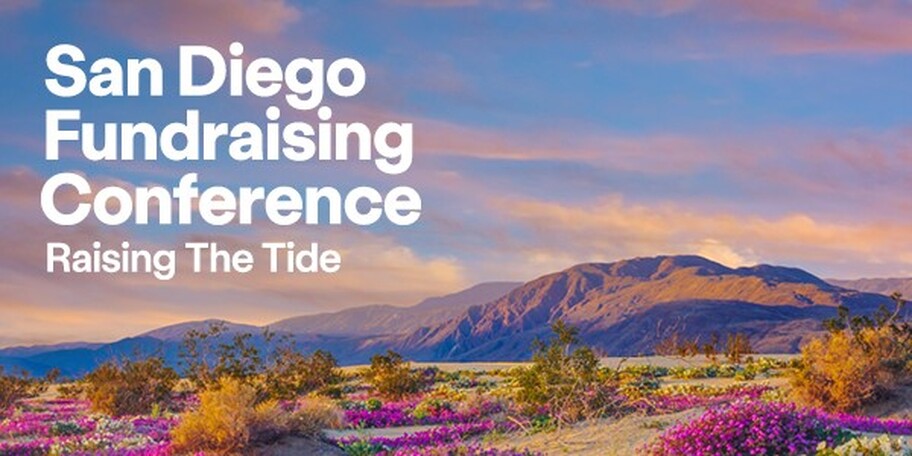
San Diego Fundraising Conference: A fundraising conference for nonprofit professionals. Don’t miss San Diego’s first-ever fundraising conference developed just for you. On September 8, we’re “raising the tide” for our nonprofit sector with a full day of learning. San Diego Foundation is committed to delivering world-class philanthropy and supporting our nonprofit community. The San Diego Fundraising Conference will take place Friday, September 8 at Hilton San Diego Bayfront Hotel downtown. This professional development opportunity brings national experts and nonprofit fundraising professionals together for a day of learning and camaraderie.
What North America’s ‘ally-shoring’ means for immigration, trade. In a new era of immigration and trade, the 2023 State of the West Symposium at Stanford addressed how geopolitics could tighten ties between U.S., Mexico and Canada. Carlos González Gutiérrez, a senior Mexican diplomat, traveled from San Diego to the border with Mexico earlier this month. What he saw there reminded him of how much immigration has changed and how quickly. The migrants waiting to cross into the United States came from 80 countries — evidence that the diaspora at the U.S.-Mexico border has become an international one. There are other new developments, González Gutiérrez told an audience of government and business leaders and academics who gathered at Stanford on May 19 for the 2023 State of the West Symposium. The annual... (read more)
Jorge Astiazarán named new Board Chair of the Tijuana Red Cross Board of Directors. Last Friday, May 26, Dr. Andrés Smith Favela concluded his term as Board Chair for the 2016-2023 period, handing over his position to Jorge Aztiazarán Orcí, former mayor of Tijuana. At the ceremony, Dr. Andrés Smith Favela was recognized by the Mexican Red Cross National Headquarters with the Henry Dunant Medal, which was presented by José Rubén Monges, for his outstanding contribution to the Institution's humanitarian action. During his presentation, Dr. Andrés Smith shared the achievements and partnerships made possible thanks to the support and effort of the staff, as well as the completion of the 4 stages of the modernization and growth of the new emergency hospital. “Alfonso Gamboa Núñez”, which included the opening of new… (read more – in Spanish)
BPP Board and staff congratulate Dr. Andrés Smith for his extraordinary leadership and commitment to the health and well-being of our binational community!
BPP Board and staff congratulate Dr. Andrés Smith for his extraordinary leadership and commitment to the health and well-being of our binational community!
Registration is officially open for Philanthropy Southwest´s 75th Annual Conference: Unwavering Heart, Continued Legacy. October 17-20 at the Hyatt Regency Lost Pines Resort and Spa near Austin, TX. The premier funder learning event in the southwest will celebrate Philanthropy Southwest’s legacy and future. Philanthropy Southwest is an organization born out of a desire to connect and drive impact in the region - knowing we can do more together than we can individually. Space is limited so reserve your spot today! The event is expected to sell out this year, so be sure and let your colleagues know registration is now open
Ending Title 42. By Morgan Smith. “Where are all the migrants?” we asked as we toured Juárez, Anapra, El Paso and Sunland Park on May 10 and 11. Our first stop was the Sacred Heart church on Oregon Street but it was locked and there were far fewer people on the streets than when I had last visited on April 28. Then we crossed into Juárez and went to the site of the deadly fire that killed 40 migrants on March 27 where we spoke to a 16 year old girl named Ana who had made the arduous journey from Venezuela with her father and her younger sister, Fatima, age 12. They left Venezuela eight months ago, crossed the very dangerous Darien Gap, traveled with a small group instead of hiring a “coyote” because that would have been too expensive. They had spent two months in the Mexican government’s Kiki Romero shelter in Juárez, a former... (read more)
May 10, 2023
Environment report: EPA maps reveal flood impact from border wall. Even under modest flooding, if the border wall fails to open during rain, downtown Tijuana could be underwater. There’s so much sand and silt buildup where the Tijuana River empties into the United States that a kind of invisible dam already exists and average rain can flood the valley. Now add a border wall across that river where trash, tires and other debris could pile against dozens of steel gates beneath a 30-foot bridge that are supposed to open when it rains. Now imagine a big storm caused an electrical failure and the gates are blocked with trash and won’t open. Where does the river go? In this worst-case scenario, the river backs up against the wall, breaches its levees and overhead flood waters consume most of Tijuana’s Zona Norte and into downtown, lapping against the... (read more)
Opinion: Philanthropic gifts that have a lasting community impact follow these three lessons. While the Burnham family is not the first to deploy its resources to benefit our region, with this gift it has made a bold statement. Philanthropy plays a crucial role in advancing communities. From public health and social services to education and the arts, philanthropy contributes to and influences our world. Philanthropy can be nimble, deploy resources, incentivize collaboration and mobilize for urgent needs in a way the public and private sector cannot. Simply stated, the role of philanthropy is to benefit others. Or as local philanthropist Malin Burnham likes to put it: “Community before self. ”Last month, the Burnham Center for Community Advancement announced a gift from our founder Malin Burnham and his wife, Roberta, of... (read more)
UTEP and TTUHSC El Paso launch MedFuture partnership to train El Paso’s next generation of physicians. New pathway program admits exceptional local and first-generation college students to the undergraduate pre-med program at UTEP and medical degree program at the TTUHSC El Paso Foster School of Medicine directly from high school. The University of Texas at El Paso and Texas Tech University Health Sciences Center El Paso today unveiled MedFuture, a joint initiative that will create a pathway for very highly qualified students in our Borderplex to be admitted to attend college and medical school in their hometown of El Paso right out of high school. “UTEP has a very strong pre-med program,” said Heather Wilson, UTEP President. “It makes sense for UTEP and TTUHSC El Paso to work together to... (read more)
Mexican Consulate General assists in the launch of ‘Trino’s World’ at Comic-Con Museum. The exhibit is a testament to the enduring power of art to bring people together and foster understanding between cultures. The Comic-Con Museum in San Diego will open an exhibit called “Trino’s World” to celebrate the work of Mexican cartoonist José Trinidad Camacho, also known as Trino. The exhibit will feature drawings, watercolors, sketches, and objects from Trino’s personal collection, offering a glimpse into his creative universe. Trino has received numerous awards, including the National Prize for Journalism in Political Cartoons in 2000 and the Inkpot Award at Comic-Con in 2022. He has published more than 20 books with his comic strips and drawings, and is considered an icon of Mexican popular culture. The exhibit is a... (read more)
April 26, 2023
Mott Foundation intends to grant up to $15 million to support direct payments to Flint mothers during pregnancy and first year of a child’s life. Challenge grant seeks to catalyze additional funds for $55 million Rx Kids initiative. The Charles Stewart Mott Foundation intends to grant up to $15 million over three years to Michigan State University to support the launch of Rx Kids, an innovative initiative to provide direct cash payments to mothers in Flint during pregnancy and throughout the first year of a child’s life. The program is led by Dr. Mona Hanna-Attisha at the MSU College of Human Medicine. Through Rx Kids, families will be “prescribed” a total of $7,500 in cash. This will include a one-time $1,500 payment to expectant mothers in midpregnancy, followed by... (read more)
Mexico’s consul general in San Diego nominated to lead Los Angeles’ consulate. Mexico’s Foreign Ministry announced appointments to several consulates abroad, including the L.A. move for Carlos González Gutiérrez. Mexico’s consul general in San Diego, Carlos González Gutiérrez, has been nominated to lead the Mexican consulate in Los Angeles, the Mexican Foreign Ministry announced. The appointment has yet to be ratified by the Mexican Senate. González Gutiérrez, who arrived in San Diego in 2019, said he was honored by the nomination made by Mexican President Andrés Manuel López Obrador and the Mexican Foreign Secretary, Marcelo Ebrard. He will be replaced in San Diego by Alicia Kerber, who also was nominated by... (read more)
Piñon Awards nominations open. Nominations for the 37th Annual Piñon Awards are open through Friday, May 12, 2023. Four winning nonprofits will be honored at our award ceremony in the fall and receive an unrestricted grant. Since 1987, the Santa Fe Community Foundation has selected and awarded the Piñon Awards to local nonprofit organizations that have made extraordinary contributions to the community. First held in a board member’s living room, the Piñon Awards ceremony has become a fall tradition filling the La Fonda ballroom with awardees, supporters, and friends of the Foundation. Submit a brief nomination letter (two-page maximum) that includes: A brief description of the nonprofit organization's overall mission, services, or programs; reasons for nominating the organization, and up to one additional attachment (program, flyer, newsletter, etc.).
The Plaza Classic Film Festival is now accepting submissions for this year's Local Flavor showcase and awards. The El Paso Community Foundation’s Plaza Classic Film Festival is accepting submissions for its Local Flavor showcase of locally made and connected films. This year’s edition includes a new panel of judges and a total of $3,500 in cash prizes. Local Flavor is open to short and feature-length films of various types. Works-in-progress will not be accepted. Projects must have been completed on or after January 1, 2022 and must be made locally, set locally, or have a connection of some kind to the El Paso-Juarez-Las Cruces area, which should be noted in the entry in the synopsis window. Entries selected for Local Flavor will be announced in July and screened during the festival. The showcase will culminate with the sixth annual Local Flavor Awards, which will award... (read more)
Philanthropy Southwest welcomes two new team members: Mallory Driggers, Ph.D. and Eric Wynn, Ph.D. Mallory is stepping into the role of Executive Vice President and brings 13 years of development experience in higher education. Most recently she served as Vice President of Development & Investor Relations for The Borderplex Alliance in El Paso, TX. She is a native of El Paso and will be based there. Eric joins PSW as our Director of Learning and brings several years of experience in school teaching, management, curriculum, and instruction development. For the past 4 years, he has served as the Dean of Scholars for Uplift Education in Dallas, TX. Originally from Ohio, Eric has been in Dallas for the past five years. Click here to see their full profile.
Paso del Norte Health Foundation, Community Foundation work for region. Much like the work we do, papel picado ‒ the inspiration for our 2022 annual reports ‒ embodies skill, beauty, creativity and challenge. Its intricate designs echo the complexity of our missions. Its color and creativity represent the diversity, vibrance, talent, commitment, and generosity of those we serve in our binational, tri-state region. Together, the Paso del Norte Health Foundation and Paso del Norte Community Foundation awarded a combined $33.7 million in grants and charitable expenses in 2022, bringing total grantmaking since inception in 1995 to $324.6 million, ending the year with a combined $300.4 million in assets. The Fundación Paso del Norte mobilized an additional... (read more)
‘All the doors are closed to Afghans’: from fall of Kabul to limbo in Mexico. When the Taliban stormed Kabul, Wali Modaqiq, 54, began calling every American, Briton and European with whom he had worked on environmental projects, pleading for help to evacuate him and his family. “The message I received back was: ‘You’re not our direct employee, so we cannot help you,’” he said. “But I brought them in, I took them around, I helped them work in Afghanistan.” He says environmental activism with foreign conservationists had made him an enemy of the Taliban. Working through back channels and every contact he had, Modaqiq and his family fled to Iran and then Turkey, where in March last year he caught a flight to an unlikely destination: Mexico City.“I’m really grateful to... (read more)
Rancho Feliz Charitable Foundation's "Missing Migrant" Museum is a must see. In addition to the magnificent Luis Sotero murals & hundreds of migrant trail photographs & items found in the harsh deserts, the "Dream Bottles" tell there own unique story (printed below). Agua Prieta's Yadira Camacho Villa paints the bottles with compelling border scenes. These unique pieces of art can be purchase on-site at the La Hacienda "Tiendita" (Little Store). “Dream Bottles.” There were 2.76 million border apprehensions in 2022. Most had traveled for hundreds of miles. They had a dream.The rate is $8,000 or more to get here. Often entire villages underwrite this cost. Once one makes it across the money wired home can fund the next and so on. Remittances from the U.S.A. are Mexico’s largest source of foreign income. In the green jungles of their native countries the crossers think it will be an easy 5 or 6 hour... (read more)
Nonprofit Conference: Reimagine! May 3 , 2023. The Paso del Norte Community Foundation announces the third annual Nonprofit Conference: Reimagine! Recognizing the need to build capacity of nonprofit organizations in the region, the conference provides access to high-level thought leadership and skill-building. The conference is designed for nonprofit executive leadership, staff, and board members, to come together to think, develop, network, and grow. The conference will take place on May 3rd and features diverse programming by sought-after nonprofit professionals, philanthropists, corporate leaders and partners. Don't miss this thoughtfully-curated professional development opportunity!
Paso del Norte Economic Indicator Review. Job growth keeps rising: Non-farm employment in February 2023 for the Paso del Norte region exceeded that of February 2022. In a month-over-month comparison, however, the outlook is mixed. Bankruptcies on the rise in El Paso County: El Paso recorded higher bankruptcies in the first three months of 2023 than it had in the same period of 2022. El Paso’s Sales Tax Collections Continue to Rise in 2023: Sales tax collections increased in 2023 Q1 indicating growth in consumer spending which may be influenced by inflationary pressures. View report by the Hunt Institute for Global Competitiveness.
April 12, 2023
Binational Resilience Initiative - 2023 Grant: Advancing the resiliency of the region between San Diego County and Baja California Norte coastal communities. Together, San Diego Foundation, the International Community Foundation, Resilient Cities Catalyst and the San Diego Regional Climate Collaborative are committed to expanding the impact of the Binational Resilience Initiative (BRI) in the region. For the BRI 2023 Grant, we are seeking to support projects that help build the resiliency of the Cali-Baja region. We will award funding to nonprofit organizations in Mexico or the U.S. that are working to: Expand binational climate collaboration, advance coastal resilience from an integrated, regional approach, provide capacity-building support to organizations working to increase our communities’ coastal resilience.
FBI Director speaks about current threats to U.S. at Bush School. The head of the FBI spent time in College Station Wednesday night. Director Christopher Wray met with about 700 students and community leaders at the Bush School of Government and Public Service to discuss the importance of service and current events. Wray says he expects hostile nations to become even more aggressive in their efforts to threaten our nation. “Front and center is that expanded thread from China. And as I’ve said before, there is no doubt that the greatest long-term threat to our nation’s ideas, our economic security, and our national security, is that posed by the Chinese Communist government,” Wray said. On Wednesday, April 12, the Director of the CIA will be speaking at the Annenberg Presidential Conference Center.
Engage America 2023: The U.S. - Mexico Cross Border Sewage Crisis. The U.S. - Mexico Cross Border Sewage Crisis. The San Diego World Affairs Council presents the Engage America 2023 Panel Series: The U.S. - Mexico Cross Border Sewage Crisis featuring Distinguished Speakers: Kevin Cassidy, Serge Dedina, Margarita Diaz, David Gibson, Chris Helmer, Richard Kiy & Carl Nettleton. Begin your Earth Day 2023 festivities by coming by or logging in to this special event hosted in downtown San Diego at U.C. San Diego's Park and Market to learn more about the Tijuana River sewage crisis and learn how environmental, transborder issues are handled and resolved. The top rate panel of speakers represents environmental advocates, business leaders, and governmental interests.
The deadly fire in Juárez. By Morgan Smith. We stopped on the crowded street by the building where these terrible and very unnecessary deaths occurred and a young man from Venezuela came up to our car to say that his cousin had been among those killed. He looked stunned, in disbelief. We were unable to talk at length; there was too much traffic circling around us and, more important, I didn’t know what to ask. It seemed too intrusive. Several questions have to be answered, however. First, how could those who were in charge have walked away without opening the cell doors and letting the detainees out to safety? The video that we can now see makes it clear that these guards were initially in no danger from the fire. Second, Mexico’s... (read more)
Pilot program deterring illegal border crossings in cars, Mexican officials say. The Mexican Consulate in San Diego is reporting that a 5-month-old pilot program at the San Ysidro Port of Entry has decreased incursions by migrants in vehicles onto U.S. soil by 60 percent. Back in November, Mexican officers on the local, state and federal levels were deployed to the south side of the port of entry to screen passenger vehicles as they approached the border crossing. According to the Mexican Consulate in San Diego, the plan was put in place to deter migrants, mostly Russians, from trying to get into the U.S. while being driven on what are called “SENTRI and Ready Lanes” used by pre-screened border commuters. The Smart Border Coalition and other groups have said long border waits... (read more)
NADBank is calling on all U.S. and Mexico undergraduate students to be part of the first class of NADBank University Ambassadors. Calling on undergraduate students enrolled in public or private universities or other institutions of higher learning in the United States or Mexico to serve as NADBank University Ambassadors, class of 2023 to create a communication hub, as well as to recognize outstanding students and broaden their academic work, in particular in the areas of the environment, sustainability, finance and international relations. As a NADBank University Ambassador you will: Enhance your leadership and academic development, be part of a dynamic space for discussion, cooperation and interaction between NADBank, the student community and... (read more)
March 22, 2023
Author-journalist Maria Hinojosa headlines Texas Book Festival events. The El Paso Community Foundation and the Texas Book Festival are hosting events featuring journalist Maria Hinojosa on March 24 and children’s book author-illustrators Zeke Peña and Raúl the Third on March 25. These will be the first Texas Book Festival events held in El Paso. Trailblazing Mexican-American author and journalist Hinojosa, anchor and executive producer of public radio’s Latino USA, will appear for a book signing at 4 p.m. and Q&A at 5 p.m. Friday, March 24 at the Philanthropy Theatre inside the Plaza Theatre Performing Arts Centre. Hinojosa will sign copies of her memoir, Once I Was You: A Memoir of Love and Hate in a Torn America. Robert Moore, founder and CEO of El Paso Matters, will lead the Q&A.
CNP Capstone travels to Mexico to meet international artisan clients. The 2022-23 International Social Innovation Partnership Capstone, led by the Center for Nonprofits & Philanthropy Director Dr. Will Brown, recently had the opportunity to travel to Oaxaca, Mexico to meet with their two clients, Vida Nueva and DAVA. During their trip, the Bush School capstone students learned about the history and culture of the Zapotecans of the Oaxaca region and the unique circumstances in which both of their clients operate. To better understand their clients, the students visited their clients’ homes to learn more about their missions, personal backgrounds, and goals for building a... (read more)
This Juárez nonprofit uses sports to deter youth from violence. Escuelas de Bienestar, or wellness schools, teaches educators on how to use play to help children develop life skills and end cycles of violence. With its high rates of drug cartel deaths and femicide, the Mexican border city of Ciudad Juárez has often been described as one of the most violent cities in the world – if not the single most dangerous city. “When you speak about Juárez, you have to speak about violence,” says Luis Mendoza, who has been living in the city – just a few miles from El Paso, Texas – his whole life. “We have to think about where the roots of the violence are and where we can prevent violent behaviors and situations from happening in the future,” adds Mendoza, who serves as the chief operating officer at the Júarez nonprofit Fundación Paso Del Norte (FPDN). “So you really have to work with youth and... (read more)
March 8, 2023
Laredo Area Community Foundation is now accepting applications for the 2023 Jefferson Awards. Every year The Laredo Morning Times partners with the Laredo Area Community Foundation to present the LACF Volunteer Award Banquet, which honors the spirit of volunteerism in Laredo. The evening’s festivities are highlighted by the individual recognition of the Volunteers of the Year nominated by their non-profit organizations. The banquet, underwritten by International Bank of Commerce, features a seated dinner and open bar. Through the generous sponsorship of the Laredo Morning Times, the recipient of the Jefferson Award will have the opportunity to represent Laredo-Webb County at the National Jefferson Awards Ceremony, where (s)he will be honored along with hundreds of other Jefferson Award winners from across the country.
Nonprofit Conference: Reimagine! The Paso del Norte Community Foundation is pleased to announce the third annual Nonprofit Conference: Reimagine! Recognizing the need to build capacity of nonprofit organizations in the region, the conference provides access to high-level thought leadership and skill-building. The conference is designed for nonprofit executive leadership, staff, and board members, to come together to think, develop, network, and grow. The conference will take place on May 3rd and features diverse programming by sought-after nonprofit professionals, philanthropists, corporate leaders and partners. Complete agenda to be announced!
Pimentel: The U.S. does not have open borders. Commentary delivered by Sister Norma Pimentel, executive director of Catholic Charities of the Rio Grande Valley, at a monthly meeting of the Voces Unidos Health Working Group. Thank you. Thank you so much. I appreciate your invitation. And I hope I can fill you in as to how things are with the immigrants and refugees. Okay, so right now, given the different policies that have been set out by the (Biden) Administration, the numbers of people… just, really quickly, I would say that the Administration has not made any changes to open the border. And so for the most part, as we all may know, the border is closed. Even though you may hear in the news that we have an open border policy. Most politicians, like our governor, will say that the border is open, but it’s not. Actually, the procedure that the... (read more)
San Antonio Area Foundation Nonprofit Management Certificate Program. Taught by subject matter experts, this program covers an array of essential topics for the nonprofit leader: board governance, development, leadership, organizational health, financial oversight, volunteer management and social media. This 36-contact hour program can be completed in just under two months and culminates in a certificate of completion. New this year – access to a community board to facilitate peer learning and resource sharing between sessions. Interested in a specific topic? Prefer not to sign-up for the entire program? You can enroll in individual classes, too. This certificate program is open to all staff members, board members and volunteers who want to learn more about managing a nonprofit as well as for those
February 22, 2023
Mitigare Cuidados Paliativos, A.C. was founded in 2016 as the first non-hospital; hospice/palliative care program in Mexico. In 2019 Mitigare hosted the first Symposium for Hospice/Palliative Care in Mexico in San Miguel de Allende. The three-day Symposium had over 400 attendees from across Mexico and Latin America. Plans are to resume the Symposium again in late 2023 or 2024. In 2020 Mitigare received a $120,000 USD grant to fund operating costs. This grant coupled with other smaller grants over the past two years by the Sharon Kent Fund at the Community Foundation of Southern Arizona, San Miguel Community Foundation and Rotary have provided funds for operations. In 2022 Mitigare received a grant commitment of up to $250,000 USD from the Foundation for Hospice Care to be used as a match to build an in-patient facility and training space. In 2020 Mitigare received approval for its proposal to have qualified patients in the new in-patient facility to be able to receive US Medicare reimbursement for Hospice care. This is a first in Mexico. In November of 2022 the City of San Miguel held an awards ceremony to acknowledge the contributions of the 80 NGO’s that operate in the City. Mitigare was awarded the best health care NGO, and our Executive Director and Medical Director was awarded the NGO Activist of the Year, and the former President of our board and founding board member was awarded the Philanthropist of the Year. Read more about Mitigare here.
Grant development and proposal writing certificates. Securing funding for nonprofit organizations can be extremely competitive. Nonprofits need compelling proposals to receive the grants they need to achieve their missions. Whether you are a student or working professional, you will benefit from instruction by an experienced grant writer with real-world experience as they guide you through the step-by-step processes for a state and foundation proposal. The overall strategic plan for writing grants will be addressed, including the needs statement, mission, goals, objectives, evaluation, key personnel, outcomes and budgets. During this seven-week certification program, offered by the ASU Lodestar Center's Nonprofit Management, the knowledge specialist will use interactive exercises, lectures, and discussions to demonstrate how to research and write your specific project. Click here for program information.
U.S. – Mexico Border 2025 Program selects environmental projects for implementation in the border region in Texas, Chihuahua, Coahuila, Tamaulipas and Nuevo León. Today, the U.S. Environmental Protection Agency (EPA), in coordination with the North American Development Bank (NADBank), announced the funding for 11 projects totaling $791,225 to be implemented along the U.S.-Mexico border states of Texas, Chihuahua, Coahuila, Tamaulipas and Nuevo León. These projects are funded under the U.S.-Mexico Border 2025 program, whose mission is to protect the environment and public health for residents along the U.S.-Mexico border region. The projects meet the objectives of the program: reduce air pollution; improve water quality; promote sustainable materials management... (read more)
Medical care in Mexico. By Morgan Smith. Medical care is in increasingly short supply. In 2020 the Association of American Medical Colleges predicted that the US would be short between 54,100 and 139,000 doctors by 2033. Here in New Mexico, we have lost 700 primary care doctors between 2017 and 2021 and are 334 doctors below the national benchmark. This is bad news but it could be worse. We could be like the area on the west side of Juárez where I work with a number of humanitarian groups and where medical care is almost non-existent. What can be done? Here are several innovative approaches. Siguiendo los Pasos de Jesus (SPJ) is an El Paso-based NGO that is mostly known for building houses in this area. Founded 24 years ago by the dynamic Jane Fuller, also known as... (read more)
The Center for Nonprofits & Philanthropy at the Bush School announces Leadership In Board Service Program. Do you currently serve on a nonprofit Board? Are you looking to professionalize your nonprofit Board of directors? Join the Center for Nonprofits & Philanthropy at the Bush School next week (2/28) for our Leadership in Board Service program. Led by Dr. Will Brown and Dr. Angela Seaworth, ACFRE, this program will ensure your board and leadership teams take away research-informed and practice-proven tools to serve your organization better. Click here for more information.
Fordham hosts lecture on migration at the U.S.-Mexico Border. On Feb. 7, Campus Ministry held a Common Grounds conversation titled, “Current Realities of Migrants and Asylum Seekers.” The event included a panel featuring Joanna Williams, executive director of the Kino Border Initiative; Power Malu, executive director of Artists, Athletes and Activists; and Adama Bah, a Guinean-born immigration reform activist. On the topic of the border, the group consensus was made clear by Williams: “The approach to the border since the 1990s has been ‘if we can make people suffer more, then they won’t come to the U.S.’” The Kino Border Initiative, which she has been working at for... (read more)
More Mexicans are dying in their attempts to reach San Diego from Tijuana. More Mexican nationals are dying along the U.S.-Mexico border between the San Diego and Tijuana regions in their attempt to enter the U.S. than in previous years, according to new data from the Mexican Consulate in San Diego. From October 2021 through September 2022, at least 46 Mexican nationals died in their attempt to cross the border between the two regions. That’s up from 34 in the previous twelve months and 11 in the year before that. The data from the consulate runs from October to September, aligning with the federal fiscal year. Dehydration, drownings and border wall-related fatalities all account for the increases in deaths. The majority of injuries documented were related to... (read more)
Mexico plans natural gas pipeline connecting Sonora and Baja California to meet rising demand. Another major natural gas pipeline is slated for Mexico, this one for the Northwestern part of the country and the states of Sonora and Baja California. On Monday, Mexican utility Comisión Federal de Electricidad (CFE) signed a memorandum of understanding (MOU) with Carso Energy and Sempra Infrastructure. Carso Energy is a subsidiary of Grupo Carso, a Mexican infrastructure firm run by billionaire Carlos Slim. Sempra Infrastructure is a subsidiary of San Diego-based Sempra. The companies filed a joint statement explaining that the pipeline would principally be used to fuel CFE natural gas power plants. It would also “help the development of the... (read more)
Center for Healthy Nonprofits: Achieving Your Career Goals. The Center for Healthy Nonprofits is excited to announce that applications are now being accepted for Achieving Your Nonprofit Career Goals. This series is for nonprofit professionals who report to a nonprofit ED or CEO and/or aspire to be in senior leadership roles in the sector, possibly serving as an ED or CEO in the future. This program is open to all levels, including those early in their careers or in entry-level positions. This program consists of seven two-hour sessions primarily offered over Zoom, with the first and last sessions taking place in-person at the Community Foundation for Southern Arizona Campus.
February 9, 2023
San Diego Foundation receives historic, transformative $100M gift. San Diego Foundation announced today that it has received a historic, transformative unrestricted $100 million cash gift from the estate of local entrepreneur Jay Kahn, the largest-ever gift of its kind to a San Diego nonprofit. “Jay Kahn was a compassionate man who loved San Diego and wished for his legacy and estate to be used for the good of San Diego,” said Mark Stuart, President & CEO of San Diego Foundation. “We had no existing relationship with Jay until we learned that he believed San Diego Foundation would achieve his goal and honor his wishes. We are humbled by this incredible generosity and we will honor Jay by continuing to inspire enduring philanthropy and enable community solutions to improve the quality of life in the San Diego region.” The first grants from Kahn’s gift, which is the third-largest gift of its kind to a U.S. community foundation, include $150,000 unrestricted grants to 10... (read more)
Ron Pulliam selected as 2023 Buddy Amos Founders Award recipient. The Community Foundation for Southern Arizona is pleased to announce that Ron Pulliam, founder of Borderlands Restoration Network in Patagonia, Arizona, has been selected as the recipient of the 2023 Buddy Amos Founders Award. The Buddy Amos Founders Award was established in 2015 in honor of George H. “Buddy” Amos, Jr., a CFSA founder, for his vision and ability to inspire community action and generosity. The award recognizes nonprofit founders who have demonstrated inspirational leadership in community service, philanthropy, mentoring, collaboration, or systems change that reaches beyond their organization. The Borderlands Restoration Network (BRN) began as an idea around a kitchen table and has since grown to include the 1800-acre Borderlands Wildlife Preserve which is open to the public, a large-scale... (read more)
See also: The Consulate General of Mexico urges Mexican nationals not to cross U.S.-Mexico border illegally
See also: The Consulate General of Mexico urges Mexican nationals not to cross U.S.-Mexico border illegally
'There are many paths': Some NFL players find efficient ways to give back. Robert Ashcraft, the executive director of the ASU Lodestar Center, was a featured expert in an Arizona Republic series on NFL players and their philanthropic efforts. The extraordinary success of the Justin J. Watt Foundation, founded in 2010 to provide athletics equipment and opportunities to middle school students, wouldn’t have been possible without “a lot of help from a lot of good people,” J.J. Watt said, and a heaping helping of humility. The 2017 Walter Payton NFL Man of the Year knew he wanted to launch a nonprofit before he was drafted by the Houston Texans in 2011. He turned to the Law and Entrepreneurship Clinic at the University of Wisconsin-Madison. “I knew for a fact that I wasn’t smart enough to do it on my own,” Watt told The USA TODAY Network, “and I wanted to make sure we... (read more)
UTEP faculty members named to list of world’s top researchers. 20 UTEP faculty included in ranking of most widely cited researchers. Twenty current and past UTEP faculty members are included in the latest Stanford-Elsevier ranking of the world’s most cited researchers and those who are among the top 2% within their specialty areas. That is an increase from the 16 UTEP researchers who made the original ranking in 2020. “We see this as further evidence of UTEP’s growing stature nationally and internationally as a research institution of the highest level,” said Roberto Osegueda, Ph.D., UTEP vice president for research. “My sincere congratulations to the UTEP researchers who made the list.” The ranking method is a based on standardized citation metrics developed by... (read more)
Reviewing border coverage uncovers risks of ‘both sides’ reporting on right-wing extremists. Reporting on infrastructure along the southwestern U.S. border won two Emmys for San Diego’s KPBS and the nonprofit newsroom inewsource. It also left misgivings about the pitfalls of using a “both sides” framing to cover right-wing extremism. In 2017, KPBS’ Jean Guerrero and Leonardo Castañeda of inewsource were in the process of a months-long investigation into life along the border. Guerrero was an immigration reporter, while Castañeda was a data journalist. Their investigative series “America’s Wall” was the result of a collaboration between their outlets. It featured both in-depth document and data analysis of public records about the... (read more)
Joaquin Luken Named San Diego-Tijuana Smart Border Coalition Executive Director. Cross-border executive brings extensive experience on binational issues. The Board of Directors of the San Diego-Tijuana Smart Border Coalition (SBC) is pleased to announce Joaquin Luken as the organization's next Executive Director. "It is a great privilege to lead the Smart Border Coalition," said Luken. "At a time of great change in local, regional, state, national, and international economies, governments, and society, cross-border leadership is more imperative than ever to finding opportunities for continued prosperity in our region." Luken was selected after a thorough search committee selection process led by binational business leaders Hank Morton, Steve Williams, José "Pepe" Larroque, Eduardo "Lalo" Acosta, and Elias Laniado. "Joaquin has a deep understanding of the U.S.-Mexico border region," said Steve Williams, who co-chaired the SBC selection committee. "His connection to... (read more)
2023 Global Border Summit to Feature Rt Hon Gordon Brown, Former Prime Minister of the United Kingdom as Keynote Speaker. Join The Borderplex Alliance for their 2023 Global Border Summit, formerly known as the U.S. - Mexico Border Summit on February 23, 2023. The summit will feature a full day of panels, presentations, and roundtable discussions. MC: Kathrin Berg, VP, El Paso Community Foundation. A limited number of sponsorship opportunities and table reservations are still available. Tickets to the public are on sale now. Panel Sessions will be held at the The Plaza Hotel Pioneer Park; Keynote Lunch at Hotel Paso Del Norte, Autograph Collection in El Paso, TX.
Philanthropy Southwest announces Annual Conference call for sessions. Philanthropy Southwest (PSW) invites proposals for sessions at their 75th Annual Conference, October 17-20, 2023 in Austin, TX. The call for sessions is open until 5:00 PM Central Time, Saturday, February 18, 2023. The Call for Sessions is open to all grant making organizations, both PSW member and nonmember funders. An organization or individual may submit a maximum of two proposals. All proposals submitted by different individuals from within the same organization count toward that maximum. This year’s conference will focus on the following six tracks: Ethics in Grant making, Finance, Governance & Law, Grant making Practice Areas.
Latino students and parents to learn about college and how to pay for it. The event is called “A Step to Your Future,” and it’s geared toward Latino high school students and their parents. The goal of this fair is to guide first-generation college students through the process of enrolling and filling out their financial aid applications, said Carlos González Gutiérrez, Mexico’s Consul General in San Diego. The Consulate General of Mexico in San Diego is partnering with Alianza MX, the California Student Aid Commission (CSAC), the California Student Opportunity and others to sponsor and facilitate the workshop. “This is the first time the Mexican Consulate organizes a university fair,” said González. “We want to make sure everybody, regardless of their nationality or migratory status, knows what... (read more)
UTEP graduate students from Mexico earn prestigious scholarships. A group of doctoral students were awarded a prestigious scholarship from Consejo Nacional de Ciencia y Tecnología (CONACYT), or the Mexican National Council of Science and Technology, an agency that supports Mexican citizens pursuing graduate studies abroad. Awardees receive tuition support, a monthly stipend and financial support for health insurance while they are pursuing their studies. Nineteen UTEP students submitted applications, the highest number of any school in The University of Texas System. With 16 awards granted, UTEP received approximately half of the 33 total awards granted across the System. CONACYT granted a total of 280 awards around the world for doctoral studies in science and humanities. “The number of... (read more)
El Paso’s community of philanthropy continues to have meaningful impact: Mica Short. The Paso del Norte Community Foundation (PdNCF) is looking forward to 2023 and celebrating its 10th year of service to the El Paso community. It truly is awe-inspiring to think of the impact that has been made since the foundation was established in 2013. This year, we've been blessed to work with many generous donors, and passionate community members whose designated funds make a difference in our community. This past spring, we welcomed nonprofit leaders and volunteers to our nonprofit conference after having hosted the conference virtually last year. The energy in the room was electrifying, as so many nonprofit leaders reconnected after a couple of years of intense work pivoting service delivery models and responding to crisis situations throughout the pandemic. These same nonprofit leaders worked hard this past fall to... (read more)
The migrant crisis. By Morgan Smith. Since my very impressive September 13 trip with the Customs and Border Patrol (CBP), I have been to the Juárez area seven times to observe how migrants seeking asylum are being processed. It has been a grim experience that has gotten more and more politicized and less fair and humane. On September 13, I was able to observe how efficiently the CBP processed a sudden influx of Venezuelans. Then in early October, Title 42 was invoked and Venezuelans seeking asylum didn’t dare cross the Rio Grande from Juárez to El Paso, Texas for fear of being immediately detained and then deported, often from another border crossing. I saw the tent city on the Juárez side grow from about 400 migrants on October 28 to roughly 1,500 on November 3. Then Mexican officials tore down the tent city and scattered the migrants. Who knows where they went because shelters like La Casa del Migrante and Respettrans were... (read more)
Mexico will ask the U.S. for a $48 billion USD investment in solar energy projects. Ebrard said the request will be presented to Biden at the upcoming Jan. 9-10 meeting of U.S., Canadian and Mexican leaders in Mexico City. Mexico hopes to build solar energy parks in the northern border state of Sonora, along with power transmission lines. Mexico hopes to receive some of the funding from the North American Development Bank, or NADBank. The bank funds green development projects, but has never provided financing on anything near the scale Mexico is requesting. Mexico also may get some of the funding between now and 2030 by issuing debt bonds. The solar parks are to be run by Mexico’s state-owned utility, which has been involved in... (read more)
San Diego and Tijuana: a vanishing border? Whenever I travel from Mexico City to my hometown of San Diego, I always fly through the Tijuana International Airport. I take advantage of something that few travelers know: it extends to the U.S. side of the border. It is built right against the border wall and a sealed bridge travels up and over the physical fence, allowing quick and affordable travel between San Diego and Mexico. I’m sharing this for a few reasons. First, it’s a massive travel hack. If you’re traveling between Southern California and Mexico, it almost always saves you money (it’s a domestic flight within Mexico) and time, thanks to highly expedited customs and immigration cooperation. And with the surging cost of air travel, the savings add up. Secondly, the Tijuana airport connects to… (read more)
Faith-based groups on border unfazed by lawmakers’ call to investigate them. When four Republican congressmen accused Catholic Charities USA of violating federal law by providing food, clothing and shelter to migrants on the U.S.-Mexico border, the organization quickly fired back, calling the allegations “incredibly disturbing,” “fallacious and factually inaccurate.” Instead of endangering people, as the lawmakers suggested in a Dec. 14 letter that accuses Catholic Charities USA of “aiding and abetting illegal immigrants,” the humanitarian work “is mandated by the gospel” and saves lives by caring for “vulnerable people on the move,” a statement issued by the organization declared. Anthony Granado, the vice president for government relations for Catholic Charities USA, said... (read more)
Date published: December 15, 2022
Woody and Gayle Hunt Family Foundation donates $25 million to UTEP. The University of Texas at El Paso announced today the naming of its college of business administration as the Woody L. Hunt College of Business, along with a $25 million gift — the largest in the university’s history — from the Woody and Gayle Hunt Family Foundation. The University of Texas at El Paso announced today the naming of its college of business administration as the Woody L. Hunt College of Business. The University of Texas at El Paso announced the naming of its college of business administration as the Woody L. Hunt College of Business, along with a $25 million gift — the largest in the university’s history — from the Woody and Gayle Hunt Family Foundation. The contribution will fund... (read more)
ACF's Board of Directors shares important announcement regarding the next President & CEO of the Arizona Community Foundation. Anna Maria Chávez will join ACF as President & CEO in February 2023 following a national executive search process conducted by Carlson Beck and the ACF CEO Search Committee. Anna Maria Chávez is an executive leader, attorney, inspirational speaker, writer, and community advocate. She has dedicated her career to advocating for others, especially underserved communities. In her most recent role, she served as the inaugural Chief Impact Officer for Encantos, an EdTech and Public Benefit Corporation where she was responsible for creating the Encantos Social Impact Foundation and led the organization’s philanthropic, education, publishing, and digital business. “I am deeply honored to serve as the next President and CEO of the Arizona Community Foundation,” said Chávez. “ACF is in a strong... (read more)
Sisters at our best: Cookies and cardboard tables at the US-Mexico border. When I first connected with this group of sisters, I knew there would be good chemistry among them. Before the Zoom meeting even started, the sisters were already greeting each other, asking questions and finding ways they were connected, friends they had in common. At our best, this is what we Catholic sisters do: We build relationships and welcome. We celebrate our shared humanity. This group of women who initially met via Zoom this fall would become our first official cohort for the Catholic Sisters Walking with Migrants program at the Kino Border Initiative. They came from four different congregations and had a variety of ministerial backgrounds, including teaching, administration, pastoral ministry and nonprofit work. Several of them had ministered in Central or South America, which became clear as they almost seamlessly embraced a new... (read more)
Date published: November 30, 2022
5th annual International US-Mexico 10K run returns in December. The 5th annual of the International U.S.-Mexico 10K will happen in December after three years. The event will take place December 10 at 8 a.m. The run is the only US-Mexico border run that draws more than 1,000 runners from both countries. The race starts at the El Paso Community Foundation on Oregon Street in Downtown El Paso. It treks by Southwest University Park (home of the El Paso Chihuahuas baseball team and Locomotives soccer team), the San Jacinto Plaza, runners will pass by many of the city’s beloved murals, the Consulate General of Mexico then runs through Segundo Barrio, and crosses over the international boundary line on Stanton Street bridge into Ciudad Juarez. Register for the race here.
University, USMFS awarded $200k to fund solar startups. UTRGV is part of a series of 18 projects the U. S. Department of Energy has funded to promote equity and diversity in clean energy innovation. The $3.6 million – the U.S. DOE’s Inclusive Energy Innovation Prize – awarded to the projects supports teams of entrepreneurs, community organizers, nonprofits and academic institutions working to achieve energy justice in clean energy. The U.S.-Mexico Science Foundation for Science (USMFS) project, in partnership with UTRGV Entrepreneurship and Commercialization Center, UTRGV Commercialization and Innovation Center, I-DREAM4D at UTRGV’s College of Engineering and TMAC, is called the “Solar Utilization and Commercialization Coalition for Energy Efficiency Devices.” The project seeks to bolster the solar manufacturing industry in Texas and support startups in the... (read more)
Rising gender-based violence in Mexico puts women on the move at higher risk, IRC warns. In northern border cities, sexual violence is the main risk perceived by 23% of asylum seekers surveyed by the International Rescue Committee in early 2022. Among women, the proportion of those who considered it to be their main risk was significantly higher, being reported by 60%. Human trafficking was mentioned as the second main risk (14%), followed by domestic and economic violence (13%). Estefani Beltrán del Río, Crossborder Protection Coordinator at the IRC, said: Unfortunately, although the escalation of violence against women and girls in Mexico has reached critical levels, it has been normalized for so long that it is at risk of being invisibilized. A couple of months ago, for instance, it was reported that, of the more than... (read more)
Environmental study released for transborder water pollution mitigation. The Final Programmatic Environmental Impact Statement, for projects mitigating transborder water pollution between San Diego and Tijuana, recommend a course of action that could reduce the number of days of transborder flow by 76 percent. The U.S. Environmental Protection Agency (EPA) and U.S. Section of the International Boundary and Water Commission (USIBWC) have released a final environmental impact statement for a set of proposed projects to mitigate transborder water pollution between San Diego and Tijuana. The Final Programmatic Environmental Impact Statement (Final PEIS) chose a preferred direction for the set of proposed projects, which comprise the... (read more)
Agencies in Texas archdiocese assist immigrants, refugees seeking asylum. Casa Juan Diego and Catholic Charities, recuperating from an overflow of Venezuelans seeking asylum from their country’s economic and political spiral this summer, may have to brace themselves for another possible surge this holiday season. A federal judge Nov. 15 blocked Title 42 — a public health rule that has allowed U.S. authorities for health reasons to expel more than 1 million migrants who crossed the U.S.-Mexico border. Before that ruling, the U.S. closed its border Oct. 12 to Venezuelan migrants fleeing an authoritarian government and seeking asylum. The order halting Title 42 handed down by Judge Emmet Sullivan of the U.S. District Court takes effect... (read more)
Date published: November 17, 2022
|
5th annual International US-Mexico 10K run returns in December. The 5th annual of the International U.S.-Mexico 10K will happen in December after three years. The event will take place December 10 at 8 a.m. The run is the only US-Mexico border run that draws more than 1,000 runners from both countries. The race starts at the El Paso Community Foundation on Oregon Street in Downtown El Paso. It treks by Southwest University Park (home of the El Paso Chihuahuas baseball team and Locomotives soccer team), the San Jacinto Plaza, runners will pass by many of the city’s beloved murals, the Consulate General of Mexico then runs through Segundo Barrio, and crosses over the international boundary line on Stanton Street bridge into Ciudad Juarez. Register for the race here.
|
Register now for the Nonprofit Operations and Program Impact Certificate. The Nonprofit Operations and Program Impact Certificate is offered by the ASU Lodestar Center for Philanthropy and Nonprofit Innovation as a certificate of distinction for individuals who wish to gain additional knowledge and skills in operational leadership, program impact and evaluation, developing volunteers, purposeful communication and more! Course content includes the most highly relevant topics needed to manage the operations of a nonprofit organization, as well as how to design, launch and evaluate effective programs that matter to the community. This is an online certificate program with specified due dates for each discussion question and class assignment as you progress through the individual courses. Instructional staff are available to aid you with subject questions and help guide you through each weekly course module. In addition, a required Zoom session each week provides additional course reinforcement, student-instructor Q&A, and networking for students.
|
Healing touch at the Border. During my early days at Kino Border Initiative (KBI), I noticed that Ann Marie, a volunteer for two weeks from Washington, D.C., was experiencing neck/shoulder discomfort while chopping vegetables with me and others in the kitchen. I asked if she would like a simple Healing Touch “treatment.” “Yes!” she exclaimed. I shared a simplified version of the method I was trained in. Ann Marie felt heat from my hands and some relief from pain. A few days later, Susie, a volunteer for a month from Nebraska/Ecuador, also wanted Healing Touch for her aching neck and shoulders. She was fine with receiving it at a table near the back of the dining hall where... (read more)
|
NADBank webinar: The role of NADBank as a green bank. In this NADBank webinar, learn why NADBank is considered a green bank, how the projects it supports have a positive impact on the environment and the quality of life of residents on both sides of the U.S.-Mexico border, and the challenges it faces in helping mitigate and adapt to climate change. The speaker is Salvador Lopez, NADBank Chief Environmental Officer. Connect to the live webinar here or watch live through NADBank's youtube channel. NADBank is a binational financial institution established by the Governments of the United States and Mexico to provide financing to support the development and implementation of infrastructure projects, as well as to provide technical and other assistance for projects and actions that preserve, protect or enhance the environment.
Chaos on The Border. By Morgan Smith. Since September 13, I’ve been to the border at Juárez, Mexico five times. Three of those trips have involved what I see as a rapidly deteriorating migrant situation. On September 13, a photographer from Denver and I participated in a two-phase Border Patrol ride-along. The first phase involved the apprehension of three groups of migrants who had crossed illegally via the rugged slopes of Monte Cristo Rey just west of El Paso and Juárez. I was extremely impressed with the professionalism and courtesy of these officers. Their work is much more effective in controlling the order than, for example, the huge nearby wall which is easily scaled. Their role is not only control but also humanitarian. As of September they had conducted 18,897 rescues as compared to 12,833 in the previous fiscal year. One rescue involved… (read more)
Date published: October 28, 2022
BPP Chairman Emeritus Russ Jones works to restore Arizona State Parks Heritage Fund. Russ Jones, Founder and Chairman Emeritus of BPP, recently worked with the Arizona State Legislature to reestablish the Arizona State Parks Heritage Fund. This fund is supporting over 30 outdoor and environmental projects across the State of Arizona to help maintain public open spaces for the enjoyment of the community. The fund has already supported the restoration of historic theaters, churches, homes, and other significant buildings have been stabilized and restored to their original beauty. Grants are currently available with the State Parks and State Historic Office of Preservation for public support. For more information contact [email protected]
Run Internacional - The U.S. - México 10k. The U.S. - México 10K - 5th Run Internacional is more than a race. The only U.S.- México cross border 10K draws runners from all over the world on a course that winds through the shared downtowns of El Paso and Ciudad Juárez and historical landmarks. The race starts at the El Paso Community Foundation on Oregon Street in Downtown El Paso. It treks by Southwest University Park (home of the El Paso Chihuahuas baseball team and Locomotives soccer team), the San Jacinto Plaza, runners will pass by many of the city’s beloved murals, the Consulate General of Mexico then runs through Segundo Barrio, and crosses over the international boundary line on Stanton Street bridge into Ciudad Juarez. In Juarez, the route passes Juárez’s city hall; the Bullring-Plaza de Toros Alberto Balderas; the Old Customs House, where the first U.S.-Mexico... (read more)
San Diego Foundation, University of San Diego partner on new initiative to increase upward mobility and generational wealth for Black San Diegans with college access for students and neurodivergence training for teachers. San Diego Foundation announced today a new partnership with University of San Diego (USD) and a $1.5 million grant to its School of Leadership and Education Sciences to prepare more Black secondary students for college, fulfill their college financial needs, and create a teaching and learning center focused on supporting neurodivergent students for all San Diego educators. The Black InGenius Initiative (BiGi) at University of San Diego will be a college access and early literacy program annually serving a cohort of 60 Black students starting in fall 2023. Each year, a new 6th grade cohort will be added to the program, with 420... (read more)
Kroc Institute for Peace and Justice Distinguished Lecture Series, The fall of Communism, Russia, and the war in Ukraine: Lech Wałęsa, Nobel Peace Prize winner and former President of Poland. Wednesday, November 16, 6:00 PM. Hosted by the Kroc Institute for Peace and Justice, Lech Wałęsa will discuss current world events, his view of the United States’ role on the global stage, the history of the Solidarity Movement, and his vision for a prosperous future. The lecture will be followed by a Q&A session moderated by the Dean of the Kroc School of Peace Studies, Dr. Patricia Márquez. Lech Wałęsa was the co-founder and leader of the Solidarity movement that led to the first democratic elections in Poland in 1989, the fall of communism in Poland, and helped lead to the dissolution of the Soviet Union and the end of the Cold War. Wałęsa was the first democratically elected leader of Poland since 1926 and the first ever Polish leader elected by popular vote.
Date published: October 13, 2022
UTEP breaks fundraising, research, graduation records. The University of Texas at El Paso raised $38.9 million during FY2022 to support scholarships and fellowships, facilities and faculty, UTEP President Heather Wilson announced Wednesday. The announcement was made in her annual Fall Convocation address to the faculty and staff. This is the second consecutive record-setting year for the University’s fundraising efforts. This year’s total represents a nearly 50% increase from last year’s contribution total of $26.9 million. During her speech, Wilson also highlighted several major successes for the University during the past year, including record research activity, the largest freshman class in... (read more)
Border groups propose changes for the I-94 permit for Mexican travelers. Permit is needed to travel beyond 25 miles from the border; groups would like to see that distance extended. What if the I-94 permit wasn’t needed to travel beyond 25 miles from the border? A group of business organizations and regional stakeholders in the San Diego region likes the idea and wants U.S. Customs and Border Protection to agree. Leaders from the San Diego Regional Chamber of Commerce, the Otay Mesa Chamber of Commerce, the San Ysidro Chamber of Commerce and the Smart Border Coalition recently sent a letter to CBP with the proposal. “We write to urge you to take the lead in the implementation of a pilot program expanding travel opportunities of Mexican citizens into a broader area within... (read more)
EPA celebrates children’s health month, announces grant to study farm worker family health in El Paso. Recently, the U.S. Environmental Protection Agency (EPA) announced a grant to the Texas Tech University Health Sciences Center at El Paso to assess the impacts of pesticide use and its health effects on migrant farmworkers and their children along the US/Mexico Border. The study is part of the collaboration between EPA and the Southwest Center for Pediatric Environmental Health Specialty Unit (PEHSU). The announcement kicks off Children’s Health Month, recognized each October. This year EPA is spotlighting the historic resources advancing protection of children’s environmental health. EPA is committed to protecting children at... (read more)
Nonprofit Executive Leadership Certificate. Apply for the Fall 2022 Chase Cohort by October 28. Program runs November 2022-June 2023. This certificate is designed to meet the professional needs of executive directors, senior-level managers and emerging executives of nonprofit and public organizations. The curriculum is designed in a cohort format to promote skill-building and peer networking among seasoned leaders. Upon successful completion of the program, participants will receive a Nonprofit Executive Leadership Certificate from the ASU Lodestar Center for Philanthropy and Nonprofit Innovation. The instructional team for this certificate includes current and former CEOs and executive directors of nonprofit organizations, with extensive experience as change-making practitioners in the social sector. A combination of instructional practices and... (read more)
FUMEC celebrates 30 years with initiatives promoting Mexico-EU competitiveness through science and technology. The United States-Mexico Foundation for Science (USMFS) celebrates 30 years as a unique organization, dedicated to promoting science, technology and innovation that are the engines of growth and development in areas where this binational collaboration operated with the support of. In 1992, Congressman George Brown promoted the creation of FUMEC in Mexico and the United States to create an organization for the betterment of both countries through science, technology, and innovation. Over 30 years, FUMEC has collaborated with more than 200 organizations involved in innovation and technological development, including... (read more
‘Denuncia Paisano’, the app to report corruption and extortions of travelers in Mexico by authorities. The Institute of Mexicans Abroad – IME and the Ministry of Public Function have launched the “Paisano Complaint App” and the “I Know My Rights” Card, whose purpose is to ensure that migrant travelers entering Mexico are protected and corruption and extortion at border points can be prevented. The Ministry of Public Administration (SFP) aims to adopt tools to make it easy for nationals or tourist who are entering Mexico to report any type of anomaly, which may consist of border vehicle checks, improper charges for crossing the border or crossing luggage, or impediments to freely transit within the country. The app is... (read more)
Border stories: Opening the door to the kingdom God wants. Note: As we head toward National Migration Week (September 19-25), Sister Tracey Horan, SP, shares from her ministry at the Kino Border Initiative in Nogales, Arizona. There was a tap-tap-tap on my office door. Two Mexican mothers looked at me through the glass door. They asked with a gesture if they could have a minute of my time. It was one of those days where nothing was going the way I had planned. The list of items I had thoroughly written out for my morning kept getting interrupted by people who had questions or wanted to speak with me. I had actually considered working from home to make more progress, but our internet at home wasn’t working. So, there I was, in an office with glass walls. There I was vulnerable to whoever might walk by, spot me and... (read more)
San Diego business leaders meet for the 2022 Cause Conference. For 24 years, the Cause Conference has paired the profit and non-profit sectors together, both working to empower the local business community. Some of the most successful business leaders and philanthropists met at University of San Diego for the 2022 Cause Conference on Thursday. For more than 24 years, the Conference has paired the profit and non-profit sectors together, both working with the goal of empowering the local business community. The event was hosted by CBS 8's Carlo Cechetto and featured a headline list of speakers and panelists. Some of the business leaders scheduled to speak included Donna DeBerry, CEO of the San Diego County Black Chamber of Commerce, and Grant Oliphant CEO of the... (read more)
A morning with the Border Patrol. By Morgan Smith. It’s 6 AM and still dark but the rain has ended as we meet in the parking lot at the Sunland Park, New Mexico Police Department. Our group includes Laurie Smith, a photographer from Denver, me and three Border Patrol agents, Landon Hutchens from Texas who has organized this early morning ride-along plus Carlos Rivera and Orlando Marrero, both of whom were born in Puerto Rico. I’ve been traveling to the border and documenting conditions in the El Paso-Juárez area for the last decade and Laurie grew up in El Paso so we’re not beginners. Nonetheless, neither of us knows what to expect and what we will see. Within five minutes of leaving the Police Station, we suddenly encounter four migrants who had come down the steep, treacherous slopes of Monte Cristo Rey and dashed across the highway in... (read more)
Date published: August 31, 2022
The Border Innovation Challenge is now open. The Border Innovation Challenge is a business plan competition focused on the challenges presented by the US/Mexico international border. This competition focuses on bringing to the spotlight promising solutions and technologies to meet the challenges of the region’s ports of entry, health related problems, and environmental issues that arise along the border. Supported by the Smart Border Coalition, the program is presented through a partnership of UC San Diego's Rady School of Management and the Jacobs School of Engineering, and is open to students, faculty, staff, and recent alumni from universities along the US/Mexico border region. The competition awards cash prizes totaling $15,000 to support new innovative ideas that meet challenges related to wait times, cargo operations, port management, use of current infrastructure, financial impact, air and water pollution, and public health related issues that impact border operations. For more details on the competition and timeline, please check the webpage or email Karen Jensen.
Mexico and US agree to clean up cross-border pollution. Mexico is promising to invest $144 million in an effort to reduce the flow of sewage crossing the border. Government representatives from Mexico and the United States gathered on the edge of the Tijuana River Estuary to sign an unprecedented agreement aimed at fixing the region’s long-running cross-border sewage flows. The pollution problem has been getting worse for years. The situation was punctuated by a major sewer system breakdown over two weeks ago that allowed tens of millions of gallons of untreated sewage to cross the border and reach the ocean. Two major sewage pipes in Tijuana’s Matadero Canyon broke more than two weeks ago. One pipe is fixed and being slowly returned to service. The other might not be... (read more)
Portuguese artist creates mountain lion mural from recycled trash in Downtown El Paso. The special art project is a collaboration between the Green Hope Project, Franklin Mountain Investments and the Paso del Norte Community Foundation. A huge pile of plastic trash over the course of a week was transformed into a colorful, 64-foot-tall mountain lion that seems to peer over traffic along Franklin Street. The mural, created by visiting artist Bordalo II, is on the west wall of the One San Jacinto Plaza building, at the corner of North Mesa and Franklin streets. The artist, originally from Portugal, became interested in experimenting with different materials while taking painting courses at the Faculty of Fine Arts at the University of Lisbon. Bordalo II, who is very expressive from his facial features to his... (read more)
IBWC commissioner demands ‘parity’ with drought relief out West and South Texas. The U.S. Commissioner for the International Boundary and Water Commission says she’s “sounding the alarm” on the seriousness of the drought in South Texas and said Congress unfairly allocated federal funds to help those suffering from drought in the West but not those on the Texas-Mexico border. “I’m really trying to emphasize the urgency of what’s going on in the Rio Grande,” U.S. IBWC Commissioner Maria-Elena Giner said in an exclusive interview with Border Report on Thursday. Giner was a panelist at the NADBank U.S.-Mexico Border Environmental Forum, during which bankers, investors and government leaders from both sides of the border spent two days discussing environmental issues along the 2,000-mile border between the U.S. and Mexico... (read more)
Construction to begin for UTEPs new Advanced Manufacturing and Aerospace Center. Construction is set to begin on the new Advanced Manufacturing and Aerospace Center on UTEP's campus. Congresswoman Veronica Escobar, State Senator César Blanco, UT System Chancellor James B. Milliken and other regional and local leaders will join UTEP President Heather Wilson and other university officials to commemorate the start of construction work. Heather Wilson, the President of UTEP, told CBS4 that this construction will take about two years for the facility to be in use. Many different partners, including the Chancellor of the university and the Texas Regents, provided $80 million of funding for this project. "We’ll have many of our partners who are vital and are helping us secure the funding for... (read more)
Date published: August 17, 2022
BPP honors member Dr. Homero Fuentes de la Peña, Founder of ProOncavi. The Board of Directors and staff of the U.S.-Mexico Border Philanthropy Partnership congratulate Dr. Homero Fuentes de la Peña, Founder and Board Chair of the Baja California based ProOncavi. Dr. Fuentes was recently honored by the Best of ASCO CDMX 2022 for his leadership and medical expertise in the field of oncology in Mexico and around the globe. This annual medical event was organized by Medical Pharma Research LATAM to discuss important issues raised during the World Congress of American Society of Medical Oncology that meets each year in Chicago, IL. Dr. Fuentes is one of the leading Medical Oncologists in Mexico, and the Spanish speaking world, and is known for his innovative approaches to treating the whole being of his patients. Congratulations to Dr. Homero Fuentes and the entire dedicated team of ProOncavi for your leadership in the fight against cancer.
BPP honors Hank and Elizabeth Sames for the 20th anniversary of SAMES Scholars at Texas A&M International University. The Board of Directors and staff of the U.S.-Mexico Border Philanthropy Partnership congratulate Hank and Elizabeth Sames who are celebrating an important milestone in Laredo, TX this month. Twenty years ago, Hank and Elizabeth launched a college scholarship fund at Texas A&M International University to encourage first generation students to attend college. The program supports students from all the Laredo Public High School district, and successful students end up attending Texas A&M International University. To date more than 80 students have graduated Texas A&M International University courtesy of Hank and Elizabeth. The Sames Scholars program has invested more than US$1.8 million in scholarships at TAMIU. The Sames Scholars program is housed at the Laredo Area Community Foundation. Hank and Elizabeth are long-time supporters of the BPP, and Elizabeth served on our board and is currently a member of the Emeritus Committee. Congratulations Hank and Elizabeth.
Migrant shelters on the Border. By Morgan Smith. It’s Thursday and we’re at a migrant shelter in Deming, New Mexico, (pop. 23,000) the first of three shelters we’ll visit. These shelters – the one in Deming being implemented by the non-profit Colores United; La Tierra de Oro in Palomas, Mexico; and Respettrans across the international bridge in Juárez - plus La Casa del Migrante in Juárez and Annunciation House in El Paso that I have visited before – these five contain part of the answer to this migration issue. They are largely volunteer-run, cost far less per migrant than the private shelters our government contracts with and offer a level of humanity that doesn’t exist in the government-contracted facilities. In short, they are models for how to treat migrants. Is that enough? We meet Ariana Saludares, the President and Co-founder of Colores United at a motel in... (read more)
Bezos' girlfriend Lauren Sanchez gives $1M to group focused on migrant kids at US-Mexico border. This Is About Humanity said the money would help build education centers. Emmy-winning journalist Lauren Sánchez, vice chair of Bezos Earth Fund, has donated $1 million to This Is About Humanity. This is About Humanity, founded in 2018, is an organization dedicated to raising awareness about separated and reunified families and children at the border. In a news release Thursday, TIAH said it was working in partnership with the International Community Foundation. It said the money would go toward building additional education centers for migrant children called ludotecas and support additional projects focused on mental health, food insecurity and other "essential, enriching... (read more)
Study ranks best, worst states for child well-being: Massachusetts tops list, New Mexico trails. A report released Monday ranks overall children’s well-being by state, accounting for economic, educational, health and community factors. The Annie E. Casey Foundation, a children’s advocacy group, based its rankings on data from 2016 to 2020 – the latest available – capturing the impact of the first year of the COVID-19 pandemic. The state rankings, which the nonprofit has released annually for more than three decades, remain much the same in recent years. “This is largely because of the investments that states make in programs related to children,” Leslie Boissiere, a vice president at the foundation, told USA TODAY. “How well-funded the education system is, whether or not [they have] programs such as... (read more)
Date published: July 20, 2022
Foundations in New Mexico offer wildfire relief & resources. The Calf Canyon/Hermits Peak Fire is the largest wildfire in New Mexico's history and currently the largest active wildfire in the U.S. To date, the fires have burned more than 315,000 acres and displaced over 15,000 families. Funding oportunities include the Santa Fe Community Foundation Community Resiliency Fund: 100% of the donations raised will go directly to San Miguel and Mora Counties. Grants will support food and water distribution, emergency shelter, cash assistance, and other critical services. The All Together NM Fund was established in 2020 by the New Mexico Coalition of Community Foundations in conjunction with the Governor’s office to help New Mexico respond to and eventually recover from the COVID-19 pandemic. The Fund has now been reactivated to support wildfire relief and recovery in all counties that have been affected. New Mexico nonprofits are encouraged to apply for funding. Check this page for the latest wildfire relief resources.
Turning El Paso's trash into treasure. Green Hope Project, along with partners at Franklin Mountain Investments (FMI) and the Paso del Norte Community Foundation (PdNCF), is thrilled to announce that world-renowned artist Bordalo II will be coming to El Paso to install a much anticipated 64-foot mountain lion mural on the west wall of the ONE San Jacinto Plaza building in Downtown El Paso this August. This is the first installation for Bordalo II in Texas and there are fewer than fifteen in the United States. “This has been years in the making and we are elated that Bordalo II is finally able to come to El Paso,” said Candace Printz, President of Green Hope Project. “He will actually take our trash and use recycled materials found right here in our desert to create a... (read more)
The Community Foundation for Southern Arizona is looking for an Executive Assistant to support the President & CEO and Board of Trustees. The Executive Assistant must be creative and enjoy working on a collegial team that is purpose-focused, results-driven, and solutions-oriented. As the Executive Assistant, this individual will work closely with the President & CEO to ensure an inclusive workplace, promoting our purpose and shared values. This position manages a wide range of administrative and executive support-related tasks. They serve as a liaison to the President & CEO and Board of Trustees, manage schedules, prepare information, analyze data, and represent the President & CEO to the community. Click here to view the full job description. Click here to view the position guide.
UTEP-TTUHSC El Paso study focuses on Hispanic mental health disparities. Project is first winner of Sobel-Duncan Award, will research Hispanics’ use of mental health services. The research will be supported by the inaugural Sobel-Duncan Award, a grant program run collaboratively by UTEP and TTUHSC El Paso to spur research into health conditions affecting Hispanics. The award recipients are Jason Mallonee, DSW, UTEP assistant professor of social work, and Eden Robles, Ph.D., director of education and research development for the Texas Child Health Access Through Telemedicine (TCHATT) program within the TTUHSC El Paso Department of Psychiatry. Mallonee and Robles jointly received a grant of $40,000. They will be joined by Nancy Ramirez, Psy.D., a TTUHSC El Paso instructor of... (read more)
July 6, 2022
UTEP to offer scholarships to outstanding Chihuahua students. The University of Texas at El Paso (UTEP) has renewed an agreement with the state of Chihuahua, Mexico, to provide scholarships to some outstanding young Mexicans to continue their studies at the university. UTEP President Heather Wilson and María Eugenia Campos Galván, Governor of the State of Chihuahua, met on June 10 in Ciudad Juárez, Mexico, to sign a memorandum of understanding and formalize the agreement. Eric Cohan, U.S. Consul General in Juarez, and Mauricio Ibarra, Mexican Consul General in El Paso, also attended the signing ceremony. The agreement signals UTEP’s continued recognition of Mexico and the State of Chihuahua as strategic partners in the University’s ongoing efforts to increase access to higher education for... (read more)
Join the The Nonprofit Institute at USD for their 20th Year Anniversary Alumni Celebration. Join the Nonprofit Institute, School of Leadership and Education Sciences, University of San Diego for a night to remember to kick off a celebration of the 20th anniversary of the master’s program in Nonprofit Leadership and Management at the Nonprofit Institute. Reconnect, share stories and expand your network with fellow alumni, faculty and staff! Meet the new Dean, Kimberly White-Smith and learn what some of your colleagues are up to now. In preparation for the 20th anniversary celebration, please share some of your fondest memories, stories, and experiences with The Nonprofit Institute.
Renegade sewage flows still seep across border, but there is progress. The U.S. Environmental Protection Agency is pushing for a comprehensive solution that includes projects on both sides of the border. The big fix for the region’s border sewage problem remains several years away, but that does not mean sewage will flow unabated until then. Some recent smaller-scale projects are already having an impact on the dry-weather flows coming through the Tijuana River channel. And planning for a large-scale fix continues moving forward. “This is the lined portion of the channel,” Morgan Rogers said as he surveyed the Tijuana River at the border. “That’s where it transitions to the natural,” Rogers said. “This is a good view point: You can see all the sediment that has accumulated. This is from the... (read more)
June 23, 2022
On US border, Mexican trans social worker offers expert advice. Mexican trans social worker Brigitte Baltazar saw her dreams shattered when she was deported from the United States, where she had fought for 20 years for a better life. Now she has found herself a new role -- helping other migrants to legally cross the border. Baltazar was a 14-year-old boy when she illegally entered the United States, where she labored on farms picking tomatoes, dreaming of studying medicine. She also transitioned from male to female, but she says that in April 2021 her life "turned to waste" when she was expelled to Mexico for not being able to regularize her residence status. Now 35, with her long hair dyed red, Baltazar, from the impoverished southern state of Guerrero, has often faced brutal discrimination and prejudice, but says she has... (read more)
A nonprofit in Tuscon, Arizona, is fighting a new enemy: climate change. NPR's A Martinez talks to Jason De Leon of the Colibrí Center for human rights about climate change heating up the land around the U.S.-Mexico border, making the journey for migrants more hazardous. A MARTINEZ, HOST: Every summer, a Tucson nonprofit called the Colibri Center gets a certain type of call. JASON DE LEON: We answer the phones when families call and say, someone has gone missing. MARTINEZ: The missing are migrants. Their families are calling to figure out if their loved ones survived the dangerous journey from Mexico to Arizona. Jason De Leon leads the center. DE LEON: Many of the human remains that we get - that we find are skeletonized. And so there's no - you know, there's no personal effects. It's just basically bones. MARTINEZ: Because the desert is unforgiving, and climate change is... (read more)
‘A new era:’ Migrants staying longer in Tijuana strain capacity, funding at shelters. Maritza Noemi Machado Velasquez cooks lunch for her two sons outside over an open fire at a migrant shelter in the outskirts of Tijuana. The family whose journey from Honduras was treacherous — they were kidnapped for three months for ransom, she said — is comfortable at the shelter, where they hope to wait until they can ask for asylum in the United States. Machado Velasquez is one of about 1,200 migrants at Templo Embajadores de Jesús, one of Tijuana’s highest-capacity migrant shelters. Pastor Gustavo Banda Aceves converted his church into a shelter in 2016. Banda Aceves and other Tijuanenses have opened up their spaces to house migrants on the way to the U.S. who might otherwise... (read more)
June 8, 2022
Q & A with Sr. Maria Louise Edwards, rescuing migrants lost at US-Mexico border. Felician Sr. Maria Louise Edwards is vice president of the Aguilas del Desierto (Desert Eagles), a nonprofit that rescues and recovers men, women and children who are lost in the desert or mountains in California or Arizona while trying to cross the border into the United States. In 2021, volunteers of the organization rescued more than 183 people. They also began a yearly prevention campaign to encourage migrants not to cross the border. Based in California, Edwards was in Arizona for a month from October to November to network with church and civic groups working in the border ministry. She joined for the first time Ajo Samaritans to drop off water, food and blankets in remote locations along migrant trails in the Sonoran Desert. Founded in 2012, the Samaritan group offers humanitarian relief to help those crossing the U.S. border survive... (read more)
Migrant shelters on the Border. By Morgan Smith. It’s Thursday, April 28 and we’re at a migrant shelter in Deming, New Mexico, ( pop. 23,000) the first of three shelters we’ll visit today and tomorrow. What happens if Title 42 is lifted or if the Supreme Court allows President Biden to do away with the Remain in Mexico program initiated by President Trump? What will this do to the numbers of migrants coming to our border seeking asylum and what role will these shelters play? The shelters we will visit on this trip - Deming; La Tierra de Oro in Palomas, Mexico just across the border from Columbus, New Mexico; and Respettrans across the international bridge in Juárez - plus La Casa del Migrante in Juárez and Annunciation House in El Paso that I have visited... (read more)
KBI is hiring for a Development Coordinator. The Development Coordinator works closely with the Executive Director, Development Associate and an external consultant to organize and support the internal and external fundraising and donor communications strategies for the Kino Border Initiative. This is an excellent opportunity for someone with administrative skills and experience who would like to grow into a professional fund development role. The Development Coordinator may live and work remotely in Tucson, AZ but will be expected to commute at least two days per week to Nogales. Applications will be reviewed on a rolling basis, with a priority deadline of July 1, 2022. Screening interviews will take place in mid–July with final candidate selection expected by mid–August. Full job description found here.
Priest serving migrants along the U.S.-Mexico border reflects on what has changed. Casa del Migrante director talks about the death of Father José Guadalupe Rivas Saldaña, who ran a migrant shelter in Tecate. In Tecate, in Baja California, a Catholic priest who ran a local migrant shelter was found dead on May 17. Father José Guadalupe Rivas Saldaña had been reported missing two days earlier. The Archdiocese of Tijuana said the priest had head injuries and his death was a suspected murder. To date, no arrests have been made. Rivas was pastor of Saint Jude Thaddeus Parish in Tecate. He also ran Casa del Migrante de Nuestra Señora de Guadalupe, a shelter serving migrants along the U.S.-Mexico border. Father Pat Murphy is director of Casa del Migrante en Tijuana, which has been serving migrants in the region for 35 years. Murphy said the... (read more)
Atlantic Council’s Adrienne Arsht Latin America Center partners with State Department for US-Mexico border study. The Atlantic Council’s Adrienne Arsht Latin America Center today announced a new partnership with the State Department’s Bureau of International Narcotics and Law Enforcement Affairs (INL), the Hunt Institute for Global Competitiveness at the University of Texas at El Paso (UTEP), and Colegio de la Frontera Norte (COLEF) in Tijuana to enhance security and economic growth in the United States and Mexico. This year-long partnership will include an economic impact study of improved US-Mexico border management practices and tools, among other impact analyses about the security and environmental impacts of these technologies. “As companies look at nearshoring and as global supply chains are being reconfigured to adjust to new commercial and geopolitical realities, the US-Mexico border is... (read more)
May 18, 2022
Kroc IPJ announces Border Fellows Program 2022. Join the Kroc Institute for Peace and Justice (Kroc IPJ) on May 27 at 5:30 PM for an info session on the non-residential Kroc Border Fellows Program. Selected Fellows will receive an $850/month fellowship & $5K grant to support their work. For this year’s call, letters of interest are due on June 13 and Kroc IPJ is seeking applications from individuals living in Southern California or Baja California and working to address issues of chronic violence in the cross-border region. Register for the May 27 info session to learn more. You can also meet this year’s Kroc Border Fellows here.
NADBank Board of Directors Public Meeting, Ciudad Juárez, Chihuahua. The North American Development Bank (NADBank) cordially invites you to attend a hybrid public meeting of its Board of Directors, either in person or by videoconference, on Thursday, June 9, 2022, in Ciudad Juarez, Chihuahua. NADBank is an international financial institution established by the United States and Mexico for the purpose of developing and financing environmental infrastructure projects within the U.S.-Mexico border region. The purpose of this meeting is to provide the participants with an opportunity for an exchange of information with the Board of Directors about the work of NADBank and to share their views on environmental projects and issues affecting their region, as well as to offer suggestions for ways of enhancing the programs and services offered by NADB.
Cross Border Xpress opens to reduce airline passenger wait times to cross U.S.-Mexico border. Leaders from San Diego County and Mexico celebrated the grand opening Monday of Tijuana International Airport's (TIJ) new $100 million Passenger Processing Facility. The new facility is aimed at reducing Cross Border Xpress (CBX) traveler wait times. "It will expand the capacity and make it easier, with new technology, more space, and more comfort for travelers," said Jorge Goytortua, CEO of CBX. The new 430,000 square foot facility features six new screening lines, new immigration booths, and 52 new check-in counters, as well new boarding gates. According to CBX, in 2021 it saw more than 2.7 million travelers. By 2034, it is estimated that more than 17 million passengers will transfer through TIJ. People as young as 2-years-old can now get a rapid COVID-19 test for free, at the Cross Border Express in... (read more)
Plaza Classic to host first contest for screenwriters. The Plaza Classic Film Festival, set for July 28-Aug. 7, will host its first screenwriting competition this year. The Plaza Classic Film Festival Screenwriting Competition, sponsored by the El Paso Film and Creative Industries Commission, will award a $500 first prize. The winner will get a table read of their screenplay and will be announced at the festival’s Local Flavor showcase on Thursday, Aug. 4. The contest is open to anyone 18 and older. Entries must be feature-length scripts of no more than 120 pages. There are no genre restrictions. A point system will be used to grade the submissions, with a 50-point maximum. Scripts will be awarded up to 10 points each for premise, plot, characters, dialogue, and the script’s potential prospects. The festival, put on by the El Paso Community Foundation, is in its 15th year and will feature more than... (read more)
EPA and SEMARNAT commit to improving environment and public health along the U.S.-Mexico border. Today, the U.S Environmental Protection Agency (EPA) and its counterpart in Mexico, the Ministry of the Environment and Natural Resources (SEMARNAT), virtually held their first public National Coordinators meeting under the Border 2025 U.S.-Mexico Environmental Program. The National Coordinators for the U.S. and Mexico shared their environmental priorities of tackling climate, addressing environmental justice and equity, and being more inclusive of Mexico’s indigenous and Afro-Mexican communities in solving environmental challenges. “Binational collaboration is key in tackling environmental and public health challenges along the U.S.-Mexico border," said Assistant Administrator for the Office of International and Tribal Affairs Jane Nishida. "EPA is committed to working with... (read more)
May 5, 2022
CFSA appoints Emily Walsh as Chief Operating Officer. Following an extensive national search, the Community Foundation for Southern Arizona is pleased to announce that Emily Walsh has been appointed Chief Operating Officer, effective June 6, 2022. As a nonprofit, foundation, and higher education advancement professional, Walsh has more than fifteen years of experience in operations and administration, including technology and business transformation, prospective donor and pipeline development, data analysis, business intelligence, records management, talent development, and strategic planning. CFSA President and CEO Jenny Flynn shared, “Throughout the process, Emily impressed us with her demonstrated experience as a creative change agent, supportive leader, and avid learner. She showed us she not only has the know-how, but... (read more)
Sister Norma Pimentel, James McCann to receive honorary degrees at 2022 commencement. Sister Norma Pimentel, MJ, executive director for Catholic Charities of the Rio Grande Valley, and James McCann, founder and executive chairman of 1-800-Flowers.com, will receive honorary degrees and will deliver congratulatory remarks to the Manhattan College class of 2022 at the Commencement Exercises on May 18. Sister Norma Pimentel will address Manhattan College’s undergraduate class of 2022 after receiving an honorary doctorate degree in humane letters. She is a Sister with the Missionaries of Jesus, and is executive director of Catholic Charities of the Rio Grande Valley. Sister Norma oversees the charitable arm of the Diocese of Brownsville, providing oversight of different ministries and services in the Rio Grande... (read more)
UTEP program aims to better prepare teachers throughout the region. The El Paso Community Foundation is a partner in the program. A teacher shortage across the nation and in El Paso has been the norm for years now and the pandemic only made it worse. A local program is working to develop more teachers while giving them more training time with students. The Miner Teacher Residency program at the University of Texas at El Paso. Vanessa Lake is the teacher and the student in a first-grade class at Tom Lea Elementary in northeast El Paso, she is part of the residency program. "The residency is so much better than an internship because every teacher I have spoken with has said that one semester was not enough for them," said Lake. The way it works: every resident is paired with a mentor teacher at Tom Lea Elementary it Ms. Baca. "There are so many aspects to teaching that you don't learn in the... (read more)
Nursing faculty, students volunteer at the border to help refugees. You will usually find Dr. Charisse Tabotabo working in the Dickinson Nursing Simulation Center doing such tasks as writing and videotaping virtual reality scenarios. Recently, Dr. Tabotabo and several faculty and students from the Hahn School of Nursing volunteered their time to assist on medical missions to help Ukrainian refugees at the California U.S.-Mexico border. “My boyfriend is Ukrainian,” says Dr. Tabotabo. “Once we found out the U.S. was going to be taking in refugees and we heard about the medical mission, we knew immediately that... (read more)
Social work students visit borderlands to learn about immigration issues, border culture. Trips include visits to border wall, farm, soup kitchen, after-school center. Textbooks, lectures and news reports can only go so far to describe the migrant experience and the role of those who provide services to this population. What’s often missing is the human perspective — and the empathy one gains from walking on a trail near the Arizona-Sonora border in the literal footsteps of individuals who have traveled this path in hopes of a new life. The personal aspects of immigration — who migrants are and what they feel, and who the people are who help them survive – came into sharper focus for Arizona State University students this spring on two separate trips to the borderlands, each led by a... (read more)
April 20, 2022
Rancho Feliz’s scholarship program awarded $190,000 USD. Earlier this month, Rancho Feliz’s scholarship program was awarded $190,000 USD over the next 4.5 years from Naturgy. This covers the tuition of 80 public high school students from low-income families. Their asociación civil, Vecinos Dignos, applied for the Naturgy Company “Día Solidario” grant at the beginning of the year. Receiving this funding nearly doubles the number of public high school students the organization already supports from the five local schools in Agua Prieta. Claire Bashaw, Program Director at Rancho Feliz said: “Rancho Feliz is often asked if we receive any international donations for the work we do in Mexico, and it feels good to say we do! Cross-border collaboration like this continues to drive our mission forward, and we’re very proud of those who care about education like we do.”
Chiricahua Community Health Centers, Inc. launches STI testing program for women with same-day results. The Body Agency Collective, Visby Medical, Inc. and CCHCI observe National STD Awareness Month with women's health initiative on US-Mexico border. CCHCI among first healthcare providers in the nation to adopt new handheld PCR technology to detect gonorrhea, chlamydia and trichomoniasis in a single visit. Chiricahua Community Health Centers, Inc. (CCHCI) today announced a collaboration with The Body Agency Collective (TBAC) and Visby Medical, Inc., to improve sexually transmitted infection (STI) diagnosis and treatment in observance of National STD Awareness Week. The project will utilize a new, first-of-its-kind PCR diagnostic device, the Sexual Health Click Test, that detects three of the most common and curable STIs in women – gonorrhea, chlamydia and trichomoniasis – in less than... (read more)
Environmental Impact Briefing: How to Maximize Your Giving in Southern Arizona. Join the Community Foundation for Southern Arizona to learn more about the nonprofits in Southern Arizona that are working to preserve, protect, and restore our local environment, while supporting greater awareness and education about our planet. We will hear from representatives from Arizona Land and Water Trust, Borderland Restorations Network, Solar United Neighbors, and Watershed Management Group, Inc. about their mission and programs, as well as learn about exciting new work that will be launching at the Community Foundation for Southern Arizona on Earth Day 2022.
The pieces of paper this nun carries reveal the hidden stories of the US-Mexico border. Migrants hand Sister Norma Pimentel little pieces of paper as she walks around the shelter where many of them have been living for months. Some of the handwritten notes have their names and numbers. Others pen the horrors of the unfettered violence they escaped in their home countries or elsewhere in Mexico. "It's a life, every single one of them," Pimentel says. One of the most well-known migrant advocates in the Rio Grande Valley and director of the region's Catholic Charities, Pimentel helps run respite centers and faith-based shelters, like Reynosa's Senda de Vida, on both sides of the border, caring for thousands of people. The stories on each paper she receives are different, but they all have one thing in common: the... (read more)
Beyond the Wall: Eye-opening visit to U.S.-Mexico border. Driving an hour from the Tucson, Arizona, airport to the Mexican border, you go through miles of mountains and desert that in the dead of winter appear dark and ominous. Occasionally you see signs for a town -- Rio Rico, Patagonia, Tubac – carved out of the terrain. But for the hundreds of thousands of migrants from Central America and Mexico stuck in the state of Sonora, Mexico, the desert is often the only way out and into the U.S. And it can be treacherous. In mid-February, I spent a week in Nogales, Arizona, with Jesuits who run the Kino Border Initiative in the other Nogales, across the border in Sonora. Jesuit seminarian Kieran Halloran, 29, who just left St. Peter’s Prep in Jersey City after two years of teaching, is spending his third year of regency, or apostolic work, at Kino working with... (read more)
Love and War: Ukrainian and Russian refugees get married in Tijuana. The couple told Telemundo 20 that they traveled thousands of miles to reach the U.S.-Mexico border. Russian and Ukrainian refugees fled the war and came to Tijuana, Mexico, to tell their story, proving that love can endure even during wartime. Their love story began more than three years ago when Semen Bobrovski, a Russian citizen, found Daria "Dasha" Sakhniuk when he crossed the border in Ukraine. Their plan was to marry in Kyiv, Ukraine, but the war turned their plans around. "We as a ‘Tijuana Sin Hambre foundation’ being part of something so important made us very happy and we are very excited. We are very happy to be part of this great celebration we are convinced that love can cross wars. We realize that love during such a difficult time makes one not lose faith that we... (read more)
April 6, 2022
Service and Volunteerism to Build a Stronger Arizona. Join ASU Lodestar Center for the 23rd Annual Forum on Nonprofit Effectiveness, returning to an in-person format in Tucson on April 20. The nonprofit workforce is a multifaceted one. Alongside staff members, the sector relies on volunteers as a vital part of an organization. And that workforce also spans a wide array of ages and experience. To maximize your organization's impact, retain key employees and volunteers, and build better communities, you need to develop strategies to work across and unite all segments of your human capital. The theme of the ASU Lodestar Center's 23rd Annual Forum on Nonprofit Effectiveness is Service and Volunteerism to Build a Stronger Arizona. Register here.
Department of Leadership Studies partners with Catholic Charities USA. The University of San Diego is proud to announce a partnership with Catholic Charities USA (CCUSA) to provide a brand-new professional certificate in nonprofit executive management. The creation of the professional certification began when CCUSA reached out to Interim Dean Joi Spencer at the School of Leadership and Education Sciences (SOLES). The Department of Leadership Studies was awarded the contract through a competitive bidding process with other prominent universities to provide training to 170 Catholic Charities CEOs from across the United States. The partnership is being funded through a private donor to CCUSA who has a vision that all the... (read more)
20th Anniversary Bank America Program on Volunteerism at the Holocaust Museum of Houston. The Center for Nonprofits & Philanthropy at the Bush School invites you to attend the 20th Anniversary of the Bank America Program on Volunteerism on April 7, 2022 at the Holocaust Museum of Houston. Volunteerism is a powerful element in the nonprofit sector because it allows people to engage in issues they care about and provide opportunities that bring people together to work toward the public good. The theme of this year’s program is The Power and Future of Volunteerism, recognizing the Houston Livestock Show and Rodeo.
2 communities mended through a wall. There are kids traveling back and forth from the two countries for education, there are family members bringing back groceries, there is the Kino Border Initiative that provides shelter and support for migrants. In January I was given the opportunity to travel to Nogales, Arizona and walk into Nogales Sonora, Mexico. Two cities that I was unaware of prior to this school year; two cities that are mended as one, while being separated by the wall. It is a border city that is looked over by the Customs and Borders Protection, who fulfills the duty of Title 42. The narrative of migration has been overwritten to take away the beauty of entwining migration as a way of life. Within the United States, the fears instilled on the population towards immigration has caused the growing sprout of dehumanizing individuals who are seeking a way to provide life for themselves and/or for the ones they love. In cities along the border... (read more)
Stephanie Beatriz talks about her visit to US/Mexico border on Instagram. We helped feed migrant families and asylum seekers with Tijuana Sin Hambre. Brooklyn Nine-Nine star Stephanie Beatriz recently expressed her thoughts on her trip to US/Mexico border on social media. She poured her heart out in an Instagram post. The actress further added, “We distributed shoes personally chosen for the children of migrants and asylum-seekers studying at @yeswecanwf mobile school bus (these kids are unable to attend school for lack of resources and risk to their safety/the bus is their school room and serves as their educational home, as well as the place they learn to keep cultivating hope)” Beatriz continued, “We were able to listen to testimonials from women fleeing violence, unaccompanied minor children, and families. I was honored to be in the presence of... (read more)
#ShiftThePower Manifesto for Change: Where it started and where we are now. It was three years ago – in what feels like a very different world – that a small group of community development activists and practitioners from Sub-Saharan Africa, South Asia, and the UK met up in London. The meeting was held the day after the 2019 Bond annual conference. Its purpose was, in short, to “take #ShiftThePower to the next level.” At that meeting, the draft #ShiftThePower Manifesto for Change was developed. The idea behind the Manifesto was to help move beyond the rallying cry advocating that another way of “doing” international development aid and philanthropy was both necessary and possible, and towards something more concrete and tangible. The Manifesto lays out nine... (read more)
CFSA announces 2022 annual award recipients. The Community Foundation for Southern Arizona is proud to announce the recipients of the 2022 Annual Awards, including the Buddy Amos Founders Award, Diane Lynn Anderson Memorial Award, Igor Gorin Memorial Award, and Southern Arizona Civic Leadership Award. Recipients of this year’s awards will be honored at CFSA’s Annual Event on April 28, 2022, from 5:30 to 7:30 PM, at the Community Foundation Campus. CFSA is pleased to share that the 2022 Buddy Amos Founders Award recipient is Andrew (Andy) Rush, artist and founder of The Drawing Studio. Created in 2015, this award was established in honor of George H. “Buddy” Amos Jr., a CFSA founder, for his vision and ability to inspire. The award recognizes nonprofit founders who have demonstrated inspirational leadership in the areas of community service, philanthropy, mentoring, collaboration, or systems change that reaches beyond... (read more)
NMPHA National Public Health Week Lunch & Learn Series. Join New Mexico Public Health Association daily from Noon-1pm during National Public Health Week for Lunch & Learn sessions hosted by our very own NMPHA Regional Representatives. Register today for National Public Health Week activities: Wednesday, April 6th - Northwest Region. “Grassroots Initiatives Working Toward a Healthy New Mexico” hosted by Diana Lopez, SCPS. Thursday, April 7th - Southeast Region. "Southeast New Mexico Health Promotion: Bringing Regional Community Barriers to Light!" hosted by Joann Palomino. Friday, April 8th - Southwest Region "Voices from the Field Emerging and in Practice" hosted by Kristen Hernandez-Ortega, MPH & Holly Mata, Ph.D., MCHES, CPH.
Expert on U.S.-Mexico relations Rafael Fernández de Castro named to new Endowed Chair. Aaron Feldman Family Chancellor’s Endowed Chair in U.S.-Mexican Studies in Memory of David Feldman established at UC San Diego as part of Chancellor’s Endowed Chair Challenge. From the migrant crisis at the U.S. southern border to trade talks and international diplomacy, U.S.-Mexico relations have risen to the top of global headlines in recent years, making research and policy discussions more relevant and timelier than ever. Rafael Fernández de Castro has been on the frontlines of this field as a professor at the University of California San Diego’s School of Global Policy and Strategy and the director of the Center for U.S.-Mexican Studies (USMEX). Now, Fernández de Castro has been named the inaugural... (read more)
March 23, 2022
Arizona Community Foundation convenes leaders from the binational region to discuss philanthropy and collaboration along the Arizona – Sonora border. This Tuesday, March 22, the Arizona Community Foundation of Cochise brought together more than 40 nonprofit and philanthropy leaders from the Arizona and Sonora border region to exchange knowledge, discuss the challenges faced by communities along the Arizona-Mexico border and share the work already being done. BPP members participating in this important binational event included Fundación del Empresariado Sonorense (FESAC), Nogales chapter, Border Youth Tennis Exchange (BYTE), Kino Border Initiative (KBI), and Chicanos por la Causa. Felicidades to and Angie Laskarides, Regional Director of the Arizona Community Foundation of Cochise, Adam Lopez Falk, Community Program Officer, and the Arizona Community Foundation Board and staff for advancing collaboration and philanthropy in the Borderlands!
Join the Santa Fe Community Foundation for an early childhood in New Mexico discussion with SFCF HUB Coordinator Yolanda Cruz. Community Matters with Jovanna Archuleta, Assistant Secretary for Native American Early Childhood Education and Care. Yolanda is joined by Jovanna Archuleta, who serves as the nation’s first Assistant Secretary for Native American Early Childhood Education and Care, to discuss our March theme of early childhood in New Mexico. Jovanna works to ensure strong partnerships with New Mexico’s tribal communities and to strengthen government-to-government relationships on early childhood issues. Previously, she worked for the LANL Foundation and the Eight Northern Indian Pueblos Council. She lives in Nambe Pueblo with her family.
UTEP Education professor’s work named book of the year. Jesus Cisneros, Ph.D., associate professor of Educational Leadership and Foundations at The University of Texas at El Paso, received the Book of the Year award by the American Association of Hispanics in Higher Education (AAHHE) for “Latinx/a/o Students in Higher Education: A Critical Analysis of Concepts, Theory, and Methodologies.” “This award affirms the need for more asset-based research on Hispanic students,” Cisneros said. “My colleagues and I are grateful for this recognition and hope that our book will help guide educational policy and practice to better support Latinx/a/o students’ academic achievement and success.” The book was honored in the Edited Volume Category and features work by... (read more)
Southern New Mexico Giving Day is 30 days away! Southern New Mexico Giving Day is a virtual event that is taking place for 24 hours on April 22, 2022 and is designed to ignite giving across our region and allow you to support causes that better our communities. Our 2022 Giving Day has 44 participating nonprofits! How can you be a part of this virtual day of giving and make a difference? Become an Impact Donor by visiting this page on April 22, 2022 to select which participating organizations align with the cause or causes you are passionate about and donate in order to further their missions! As a bonus, participating organizations will receive a $1 to $1 match up to $500, allowing your donation to have an even greater impact! Matching funds will be offered by the Community Foundation of Southern New Mexico and United Way of Southwest New Mexico.
March 10, 2022
Plaza Classic Film Festival accepting Local Flavor submissions. The El Paso Community Foundation’s Plaza Classic Film Festival is accepting submissions for its popular Local Flavor showcase of locally made and connected films. A total of $2,500 in cash prizes will be awarded to the top three films and the winner of the audience vote. Local Flavor is open to short and feature-length films of various types. No works-in-progress will be accepted. Projects must have been completed January 1, 2021 or after, and must be made locally, set locally or have a connection of some kind to the El Paso-Juarez-Las Cruces area, which should be noted in the entry. Entries selected for the Local Flavor series will be announced in July and screened during the festival.
CARB awards $10 million in grants to dozens of communities statewide to fight air pollution. Casa Familiar is one of the awardees. The California Air Resources Board (CARB) awarded $10 million in grants to help 33 community organizations and five Native American Tribes reduce air pollution in their neighborhoods. The Community Air Grants were awarded to communities across California that face significant challenges with air pollution including the Inland Empire/Border region, the Central Valley, Los Angeles, the Bay Area and San Diego. The Community Air Grants Program is part of CARB’s overall efforts to implement Assembly Bill 617. Community Air Grants are designed to establish a community-focused approach to... (read more)
Brave Books puts large part of Natalicio’s collection on sale. Brave Books, a 3-year-old bookstore in Central El Paso, is selling hundreds of books that belonged to the late UTEP President Emeritus Diana Natalicio. “It’s a fantastic collection of books on everything she loved: baseball, music and theater, travel, languages and linguistics,” said Brave Books owner Jud Burgess, who acquired some 600 books in an estate sale a few months ago. Natalicio died Sept. 24, 2021, at the age of 82, leaving behind a treasure trove of books, paintings and countless mementos of her life. Burgess said the bookstore will also make the books available after the event. He plans to keep about 60 in a... (read more)
Fostering cross-border connection and environmental collaboration: Via International. By The San Diego Foundation. Six miles west of the San Ysidro Port of Entry sits Friendship Park: a historic landmark that is symbolic of the region’s binational identity and a showcase of the stunning San Diego-Baja Norte coastline. But visitors to Friendship Park confront physical and political barriers to access. Park visitors must enter through Border Field State Park and then hike a 1.8 mile one-way journey to Monument Mesa. Occasionally, rain water washes out the trail and/or causes a complete closure due to possibly contaminated runoff. These conditions make the 1.8-mile journey challenging, especially for... (read more)
Becoming immersed at the Mexican border. Through Catholic Extension I spent three days on an immersion experience in Texas and Mexico where I witnessed this prayer brought to life in the ministry of extraordinary members of our church. My eyes were opened in Reynosa, Mexico to the needs of our brothers and sisters living in a tent city as they waited their turn to be interviewed for asylum status in our country. Then our eyes were opened in the Humanitarian Respite Center in McAllen, Texas where the United States Immigration Service transports migrants who have been granted asylum to be helped by Catholic Charities as they legally make their way to... (read more)
Border Partners. By Morgan Smith. Sometimes what you remember most is not what you have seen but what you haven’t seen. In my ten plus years of working along the Mexican border what I haven’t seen is green – the green of fruit and vegetables being grown in people’s back yards. The reality is that communities like Palomas, Mexico or the area on the west edge of Juárez are “vegetable deserts.” Not only are vegetables not grown but it is almost impossible to buy them. Border Partners, a non-profit formed in 2008 by Peter and Polly Edmunds of Deming and Helena Myers of Columbus, New Mexico is trying to change that in Palomas. When they formed Border Partners, their two main Palomas issues were the lack of jobs and the poor health services. With a population of less than 5,000, no real industrial base and a... (read more)
Join the EPA for Border 2025's U.S.-Mexico Environmental Program Policy Workgroup meetings. The United States Environmental Protection Agency (EPA) and its Government of Mexico counterpart, the Ministry of the Environment and Natural Resources (SEMARNAT) will have its first National Coordinators, Meeting (NCM) of the U.S.-Mexico Border 2025 program on April 8, 2022. In preparation for the NCM, the EPA is hosting a separate borderwide public session for each of the four goals listed in the Border 2025 framework. During each session, the public will have the opportunity to ask questions and provide comments and remarks. Details for each of the four goal-specific sessions are provided here. Simultaneous interpretation will be available in Spanish and English for each virtual meeting.
February 24, 2022
Univ. of San Diego report highlights economic benefits of California-Baja region. The University of San Diego released a report highlighting the economic benefits of the California-Baja California region. Released by the USD Ahlers Center for International Business, the report focuses on California and Baja California as the largest integrated economic zone along the U.S.-Mexico border. With its regional gross domestic project of almost $250 billion, "'CaliBaja' is home to diverse industries, including some with powerful manufacturing capabilities that drive cross-border economic activity and create jobs in both the United States and Mexico," the report stated. The report's key takeaways include: A total of 30,932 higher-education degrees were conferred in... (read more)
Two nuns have a message for Catholics angry about their ministry to immigrants: ‘We don’t have any intention of stopping.’ The angry emails and phone calls have been pouring in this week, and Donna Markham, O.P., the president and C.E.O. of Catholic Charities USA, has been among C.C.U.S.A. staff shocked by all the vitriol. “We certainly have received hateful, hateful calls from people who say they are Catholics,” Sister Markham said, “and speaking to us in language that I would never repeat and threatening our agencies. It’s a very sad situation.” The unpleasantness followed quickly in the wake of press releases and news reports about a Freedom of Information Act lawsuit filed by the political action groups Judicial Watch and CatholicVote. The suit demands records of communication between the U.S.... (read more)
NADB on the hunt for new sustainable projects. The North American Development Bank (NADB) is focused on financing sustainable projects on both sides of the US-Mexico border and is seeking to expand the variety of initiatives. NADB, whose recent investments include improvements to a wastewater treatment plant in the town of Patagonia, Arizona, and the expansion of a wastewater collection system in Camargo, in Mexico’s Chihuahua state, has an annual budget of US$180mn. “One of the motives for our creation is to oversee these water and waste projects, it is a need along the border, it’s not the only one but a permanent one. Besides, the cities near the border are receiving more migrants than the... (read more)
USD Kroc School for Peace and Justice hosts Former US Ambassador to Ukraine to talk crisis. Last week Andrew Blum, Executive Director of the Kroc Institute for Peace and Justice at the University of San Diego, hosted a virtual discussion for students, faculty, staff, and the public with former US Ambassador William B. Taylor. Ambassador Taylor completed two tours of duty on behalf of the American government to Ukraine. Ambassador Taylor shared historical perspective for Ukraine -Russian relations and offered observations on the situation. Thank you Kroc Institute for Peace and Justice for making this conversation available to inform the public about what is happening in Ukraine. For more information contact [email protected].
CFAZ is hiring! The Community Foundation for Southern Arizona offers outstanding career opportunities for individuals interested in supporting the incredible nonprofit sector in Southern Arizona and assisting donors in fulfilling their charitable wishes. The Foundation is currently seeking applicants for three critical positions: Chief Operating Officer, Major Gifts Officer, and Program Manager. Reporting to the President & CEO and serving as a member of the Leadership Team, the COO will lead and manage several core internal functions of the organization. Those functions currently include Talent and Human Resources, Operations, Data and Systems, and Marketing and Communications. Experience with systems, process improvement, and scaling is essential. The ideal candidate will bring a... (read more)
Catalyzing Transformational Change in Higher Education and Philanthropy. Virtual Black History Month spotlight conversation with Dr. Joi Spencer and Pamela Gray Payton. Gather online at 4 pm on February 28 as we hear from Dr. Joi Spencer, Interim Dean & Professor, School of Leadership and Education Sciences at the University of San Diego and Pamela Gray Payton, Vice President, Chief Impact and Partnerships Officer at The San Diego Foundation. They will come together in conversation about how they are approaching intersecting issues of racism and poverty to create new possibilities for bridging racial gaps in education and wealth, in order to bring about universal community prosperity. Register here.
February 9, 2022
NADBank, Village of Vinton, Congresswoman Escobar, EPA, TWDB break ground on $20 million water projects. The North American Development Bank (NADBank) and the Village of Vinton, Texas hosted a groundbreaking ceremony for two projects that will provide new drinking water distribution and wastewater collection and will include the decommission of on-site septic systems. The total estimated project costs of both projects is US$20.44 million. These projects are receiving up to US$6.5 million in grants from the Border Environment Infrastructure Fund (BEIF), which is funded by the U.S. Environmental Protection Agency (EPA) and administered by NADBank. Other funding support was made available through the US Department of... (read more)
Sempra Infrastructure completes first cross-border wind farm between US and Mexico. Sempra Infrastructure started operations on Phase II of its Energía Sierra Juàrez (ESJ) wind farm in Tecate, Baja California. ESJ, the first cross-border renewable energy project between Mexico and the United States, now provides 263 MW of zero-carbon electricity to the California electricity market. “The expansion of our ESJ wind farm demonstrates our efforts to help support the continued integration of the North American energy markets in a sustainable way,” said Justin Bird, CEO of Sempra Infrastructure. “Our latest investment underscores the confidence Sempra Infrastructure has in the Baja region as we look to connect... (read more)
WHAM and La Jolla Institute for Immunology identify economic imperative of research focused on women, partner to accelerate autoimmune research focused on women. WHAM (Women’s Health Access Matters, whamnow.org) and La Jolla Institute for Immunology (LJI) today announced a new partnership to accelerate immune health research focused on women. New data released by WHAM and LJI shows that autoimmune research focused on women could generate $10.5 billion to our economy through improving health, quality of life and productive years in the workforce. Building from these findings, LJI, a globally ranked research leader, announced a new sex-based differences research focus at the institute. “Women’s health is an economic issue that impacts… (read more)
Casa Familiar presents: 15th Annual Dia de la Mujer Art Exhibition at The FRONT Arte & Cultura. This call out is an invitation to present works that are reflective of the times we are living in and how we are living in time. Are our ways of living and treating one another dismantling or supporting systems of oppression? Are our ways of inhabiting the planet protecting it or contributing to its unsustainability? This invitation asks you to consider where we are and who we are – to celebrate our resiliency, but more so, it is a request to think about who we want to be and what we need to do to get there. It is a challenge, left to us by the amazing activist-scholar bell hooks, to think of love as an action. Her works are a reminder that “the moment we choose to love, we begin to move against... (read more)
2022 Border Issues. By Morgan Smith. “600 migrants heading north from Honduras in a caravan,” a headline reads. Is this a warning, a sign that we’re about to see another surge of migrants from the Central American countries of Honduras, Guatemala and El Salvador? On Sunday, January 30, I was in Juárez, Mexico at a migrant shelter and listened to a Honduran couple, Oscar and Maira describe the violence that forced them to flee their country. Another surge of migrants would surely cause the migration issue to flare up again and once again become a major factor in what we already know will be a brutal and divisive election year. Here are five suggestions that could help ease this issue and result in solid accomplishments rather than… (read more)
The International Community Foundation earns its seventh consecutive 4-star rating. The rating demonstrates strong financial health and commitment to accountability and transparency. This is Charity Navigator’s highest possible rating. Charity Navigator evaluates a nonprofit organization’s financial health including measures of stability, efficiency and sustainability. They also track accountability and transparency policies to ensure the good governance and integrity of the organization. The International Community Foundation (ICF) works across borders to connect people, ideas, and smarter investments in the transformative power of community.
View a recording of The Value of Community Foundations. In case you missed it, a recording of The Nonprofit Report's interview on community foundations is available online. The Nonprofit Report is a weekly 30-minute interview program that draws attention to nonprofit issues, organizations, and leaders. Mark Oppenheim leads a discussion about community foundations, with guests; Jenny Flynn, President & CEO of Community Foundation for Southern Arizona Keith Burwell, President of Toledo Community Foundation & Nancy Anthony, President of Oklahoma City Community Foundation. Join the Nonprofit Report every Tuesday and Thursday at 8am PDT, 10am CDT and 11am EDT. View the recording here.
January 26 2022
Kino Border Initiative is hiring for an Advocacy Coordinator. The Advocacy Coordinator supports the Director of Education and Advocacy and the Associate Director for Education and Advocacy in implementing the advocacy strategy, leveraging the resources and networks of KBI to promote humane and just migration policy in a way attentive to both Catholic Social Teaching and the contemporary realities of border and migration policies. Applications will be reviewed on a rolling basis, with a priority deadline of February 1, 2022. To apply please send cover letter, writing sample, resume and contact information with three professional references to Tracey Horan. Full job description found here.
Bush School alumnus with muscular dystrophy appointed by Governor to state council for disabilities. Life can be both short and challenging for those living with Duchenne muscular dystrophy, like College Station local Kyle Cox. Kyle has reached so many milestones in his young life, achieving two college degrees and starting his own consulting company. Now, he’s working for the state government. A Texas A&M and Bush School of Government alumnus, Kyle was appointed by Gov. Greg Abbott on Monday to serve on the Texas Council for Developmental Disabilities. “Two areas I really want to focus on are transportation and getting people with disabilities in the workplace," said Kyle. For the next six years, Kyle will be a part of a team that consults with legislators on matters related to... (read more)
January 13, 2022
Scottsdale "Guardian Warrior" philanthropist first non-Mexican to win prestigious award. Recognizing decades of tireless volunteer work and leadership with Scottsdale-based Rancho Feliz Charitable Foundation, local philanthropist Gil Gillenwater was chosen by Premio a la Sonora Filantropia (Sonora Award for Philanthropy) as the individual philanthropic person of the year for the Mexican state of Sonora. Gillenwater is the first-ever non-Mexican citizen to win this award. The ceremony was held yesterday, December 14, 2021, in Hermosillo, Sonora, Mexico. Premio a la Sonora Filantropia was established in 2005, in order to develop awareness and social responsibility among altruistic individuals, companies and institutions. Gillenwater formed Rancho Feliz in 1987 with the goal of addressing both sides of poverty: from Mexico's material poverty to America's spiritual, or purpose, poverty. In addition to providing food, housing, medical care, and education to Mexico's underprivileged, the... (read more)
CFSA Appoints Kelly Huber as Vice President for Philanthropy. The Community Foundation for Southern Arizona (CFSA) is pleased to announce that Kelly Huber has been appointed to the role of Vice President for Philanthropy following a national search. In this new role, Huber is responsible for building the assets at the Community Foundation while ensuring the highest standards of service for CFSA donors and community partners. CFSA’s President and CEO Jenny Flynn shared, “Kelly’s deep knowledge of CFSA, our programs, and community needs, as well as her existing relationships with donors and community partners, is a tremendous asset in her new role. ” Flynn continued, “Her expertise and commitment to connecting donors with the causes they care about will allow her to... (read more)
How Casa Del Migrante helps migrants in Tijuana. As a city at the United States-Mexico border, Tijuana receives an influx of migrants yearly from South Mexico, South America and other parts of the world fleeing violence and corruption. Some come by bus, plane or even through walking caravans. Nearly all seek to enter the U.S. either by crossing the border physically, claiming asylum or claiming refugee status. However, these processes are much harder than they used to be. Since the 1990s, the U.S. has upped border security, making the outcomes of cross-border treks less promising. Since 2016, the U.S. has decreased the number of refugees and immigrants accepted. Therefore, some migrants must rebuild their lives in Tijuana. For those looking to claim asylum, the process often takes months or years. As a result... (read more)
UTEP joins new initiative with other Hispanic-serving universities. The University of Texas at El Paso has joined the nation’s top-tier Hispanic-Serving Institutions in a new initiative to advance teaching, research and cultural programming in the area of Latino humanities studies. Officials say this is funded by a three-year, $5 million grant from The Andrew W. Mellon Foundation, the project “Crossing Latinidades: Emerging Scholars and New Comparative Directions,” also aims to prepare rising Latino researchers and scholars for faculty positions in humanities studies. UTEP officials said the initiative is the product of a consortium based at the University of Illinois Chicago (UIC) which includes all 16 Hispanic-Serving Institutions, or HSIs, in the country that have the R1 designation — top tier doctoral universities with very high... (read more)
December 15, 2021
The International Community Foundation Announces Marisa Aurora Quiroz as President and Chief Executive Officer. After a 3-month international search, Marisa Aurora Quiroz has been selected to lead the International Community Foundation (ICF) as President and Chief Executive Officer. Her track record co-powering and strengthening communities and vulnerable natural habitats will lead ICF into its exciting future. “Marisa brings experience, professionalism, relationships, empathy, and above all, passion for this great community foundation,” said Gustavo A. De La Fuente, ICF's Board Chair. “I have no doubt that she will wisely guide our organization and rise to the occasion when new opportunities and challenges come our way. The board is looking forward to working hand in hand with Marisa on the next stage of our growth.” As the President and Chief Executive Officer, Marisa will lead the continuing evolution of ICF’s innovative model and build on its bold... (read more)
TTP of El Paso’s reach out and read program gets gifts from 2 local foundations. Program gives local children and their families a “prescription to read” during pediatric wellness exams. The El Paso Community Foundation and the Hervey Foundation recently awarded Texas Tech Physicians of El Paso’s Reach out and Read Program grants totaling $13,860. The program provides books to children during their wellness exams at pediatric and family medicine clinics at TTP El Paso’s Alberta and Transmountain locations. The Hervey Foundation awarded the program $10,360, and the El Paso Community Foundation awarded $3,500 to purchase age-appropriate and bilingual books for children ages 6 months to 5 years old. Through Reach Out and Read, health care providers give developmentally and culturally appropriate books to children and provide families a... (read more)
Once upon a BCG vaccine. To fight tuberculosis, LJI scientists uncover the key immune cells in play after BCG vaccination. A long, long time ago, the BCG vaccine was approved for use against tuberculosis (TB), and it's still given to infants today. For generations, the vaccine has saved lives and prevented untold suffering. And yet TB still kills around 1.5 million people every year. The problem is that the BCG vaccine was the first—and the last—vaccine approved to prevent tuberculosis. "This vaccine is 100 years old. The first dose was given one hundred years ago this year," says La Jolla Institute for Immunology (LJI) Research Assistant Professor Cecilia Lindestam Arlehamn, Ph.D. "Technology has moved on since then, but not... (read more)
Dr. Will Brown, Director of the Center for Nonprofits & Philanthropy at the Bush School named new President of the Nonprofit Academic Centers Council (NACC). Dr. Will Brown is the new President of the Nonprofit Academic Centers Council (NACC), the first group dedicated to the promotion and networking of centers that provide research and education in philanthropy and the nonprofit sector. NACC develops curricular guidelines for undergraduate and graduate programs, offers program accreditation, manages the Nu Lambda Mu honor society, and supports academic centers. The Center for Nonprofits and Philanthropy currently hosts NACC. The Center for Nonprofits & Philanthropy’s areas of nonprofit education will benefit from Dr. Brown’s 2-year term as President.
Community Foundations make an impact during holidays and beyond: Kellie Burns-Franco. As we enter this holiday season, many people will give thanks and look for meaningful ways to give back. When you support philanthropy, you invest in our community's future and generations to come. Last week, the Paso del Norte Community Foundation joined National Community Foundation Week and National Philanthropy Day nationwide celebration. When you give through a community foundation, you ensure your gift is used in a way that will leave a lasting impact. The Paso del Norte Community Foundation was established in 2013 to support the philanthropic goals of individuals, families, corporations, foundations, and nonprofits in the Paso del Norte Region. These... (read more)
UNETE, a Mexican organization with 22 years of experience, wins the Shimon Peres Award. ILAN (Israel + Latin America Network) recognizes and promotes social projects through innovation and strengthening ties between Israel and Latin America. The ILAN Innovation Awards took place on November 17 recognizing seven groups for their contributions in health and science, technology, education, social transformation, communication, environment ad peace. UNETE was awarded the prize in the education category for its mission to improve the quality and equity of education in Mexico by integrating technology in schools. Learn more about UNETE here.
UT System board of regents contribute $1 million to create endowment in honor of Diana Natalicio. Funding will support the Diana Natalicio Institute for Hispanic Student Success, which will serve as a national resource and model for Hispanic student success .The University of Texas System Board of Regents has allocated $1 million to create an endowment to benefit the new Diana Natalicio Institute for Hispanic Student Success at The University of Texas at El Paso. The endowment will be used to fund a distinguished directorship of the institute, which is named for the longtime and beloved UTEP president who died in September. The Diana Natalicio Institute for Hispanic Student Success will be dedicated to studying and implementing systemic changes that will promote greater access to higher education and will serve as a national resource and model for... (read more)
Investing in Humanity, by Morgan Smith. Thirty one migrants die attempting to cross the English Channel from France. Tension over migration on the Poland-Belarus border. 1,600 migrant deaths in the Mediterranean Sea so far this year. The mistreatment of Haitians in Del Rio, Texas. New complaints regarding care at the Torrance County Detention Facility in Estancia, New Mexico. Increasingly authoritarian leaders in the three Central American countries – Guatemala, Honduras and El Salvador – that are sending the most migrants to the US border. Many predict that the past Honduran President, Juan Orlando Hernández will be indicted and extradited to the US. Lots of bad news worldwide about migration, news that might get worse as... (read more)
Arizona Community Foundation and donors distribute $29.3 million in second quarter grants and scholarships. The Arizona Community Foundation and its donors are pleased to announce grant and scholarship distributions for the second quarter of its fiscal year. Between July 1 and September 30, 2021, a total of $29,292,494 was awarded from funds of the Arizona Community Foundation and its six statewide affiliates in Cochise, Flagstaff, the Gila Valley, Sedona, Yavapai County, and Yuma. The $29.3 million in both discretionary and advised grants and scholarships were awarded in five strategic priority areas: Health Innovations, Community Improvement & Development, Environment &... (read more)
See also: A chat with the Kroc School Fulbright Scholars
See also: A chat with the Kroc School Fulbright Scholars
Mexico expanding ties with its migrants in the U.S. Consulates, Institute for Mexicans Abroad procure education, financial and immigration advice – and COVID-19 vaccines for hundreds of thousands. Mexicans working in the United States send $40 billion a year to relatives in their homeland, which represents Mexico’s biggest source of income surpassing oil exports and tourism. But many of these émigrés – some 11 million as of 2019 – often struggle to fit into their new society because of barriers such as immigration status, language, or lack of access to services. That’s where consulates and an organization known as Institute for Mexicans Abroad (IME) try to fill the gap. “Most of our migrants, 97 percent of them, are... (read more)
The Common Sense Colloquy: Q&A with Richard Kiy of Institute of the Americas. Climate change doesn’t recognize borders. While most of our work centers on the U.S., we understand the importance of hemispheric and global communications on issues like energy and environment. So, I was thrilled when a former colleague contacted me this summer to ask for RENEWPR’s help with the release of a report on the future of clean energy in Mexico. I jumped at the chance and had the opportunity to bring new RENEWPRTeam Member Jessica Lass into the conversation from the outset. The result was a project to help Institute of the Americas with the release of the report Clean Energy Cost-Savings: A Study of Mexico’s Federal Electricity Commission (CFE). The former colleague who gave us this opportunity is Richard Kiy, the president and CEO of the... (read more)
See also: NADBank Managing Director, Calixto Mateos announces Bank to invest in new project types
See also: NADBank Managing Director, Calixto Mateos announces Bank to invest in new project types
Five questions for Miguel A. Santana, president and CEO of the Weingart Foundation. Miguel A. Santana is the president and CEO of the Weingart Foundation, a Los Angeles-based grantmaking foundation dedicated to advancing racial, social and economic justice. Santana took the role last year, after longtime president and CEO Fred Ali retired. Santana served as L.A.’s city administrative officer under Mayors Antonio Villaraigosa and Eric Garcetti. In addition to his work in the public sector, Santana has also worked in the private sphere. We spoke with Santana about his career and how his personal life has impacted his work. Here are... (read more)
November 23, 2021
Dr. Bobby Mukkamala elected to Mott Foundation board. Dr. Bobby Mukkamala, a nationally renowned otolaryngologist in private practice in Flint, Michigan, has been elected to the board of trustees of the Charles Stewart Mott Foundation, which is headquartered in the city. Mukkamala will begin serving on the board on Jan. 1, 2022. “My parents moved to Flint in 1972 as immigrants from India,” Mukkamala said. “Flint is where I grew up and where I returned after I finished my medical training. I left here as an individual and came back as a family with my wife, Nita, and our newborn twin sons, Nikhil and Deven. “I have watched our city’s struggles and our successes, and I have always been thankful for the legacy and vision of Charles Stewart Mott and the Mott Foundation,” Mukkamala continued. “Our... (read more)
Viewpoint: Philanthropists should take the lead in unifying the country. Philanthropy Southwest is a 73‑year‑old philanthropy supporting organization, and we are the first of our kind. Today we serve seven Southwest states and 230 members who represent 4,000 foundation staff or trustees and $50 billion in philanthropic assets. Annually, our members distribute $2.5 billion to $3 billion in the Southwest. Our role is to bring them together. Our vision is a thriving Southwestern U.S. through the power of philanthropy. Our mission is fostering meaningful philanthropy and trusted relationships that have impact on people and communities throughout our region. President John F. Kennedy famously said... (read more)
EPA details fix to cross-border water pollution issues plaguing San Diego. The Environmental Protection Agency will move forward with environmental review of several water infrastructure projects intended to address transborder water pollution from the Tijuana River, it was announced Monday. "In order to protect public health and vital ecosystems in this vibrant area, we need a bold solution to the transboundary water pollution challenge," said EPA Assistant Administrator for Water Radhika Fox. "Today, we're announcing our intent to pursue a holistic water infrastructure strategy to address multiple facets of this challenge and make real progress for the future of the San Diego region." The Tijuana River often carries... (read more)
Center for Nonprofits & Philanthropy at the Bush School offers 3 new certificate programs. Programs starting in Spring 2022 include: Fundraising Leadership, Nonprofit Leadership, and Social Justice Leadership. The Center launched the Certificate in Fundraising Leadership (CFL) because securing resources is a critical element of strategic management for nonprofit executives. In order to carry out the organization’s mission, nonprofit leaders must have adequate resources to fund staff and programs. The Nonprofit Leadership (CNL) program has been curated for current nonprofit professionals, on-the-ground volunteers within the sector, current or prospective board members, or those considering a transition to the sector. Current CNL courses cover topics including nonprofit leadership, strategic management, board governance, and… (read more)
Join the New Mexico Public Health Association for their 18th Annual Health Policy Forum. On Dec. 3rd, 2021, NMPHA invites you to register for and attend the 18th Annual Health Policy Forum, Strengthening CommUNITY: Equity in All Policies. This forum will feature keynote speakers, a legislative panel, policy proposal presentations and voting, and afternoon sessions on health equity in policymaking. The NMPHA would like anyone and everyone to attend, so registration is free. For more information on registration and submitting policy proposals, please visit this page, or click here to download the flyer to share widely.
$800,000 national grant will expand and strengthen initiatives to support & train El Paso teachers. The Council on Regional Economic Expansion and Educational Development (CREEED) and the El Paso Community Foundation announced a new investment from the Prentice Farrar Brown & Alline Ford Brown Foundation (Bank of America, N.A. Trustee) to support the work of the El Paso Teacher Pipeline Taskforce. The $800,000 grant is the second investment from the Brown Foundation in the last two years, and highlights the success of the initial grant to strengthen El Paso’s educator workforce through recruitment and retention, high-quality teacher preparation, and new teacher mentorship. The investment was announced at an Educator Summit, hosted by CREEED, the University of Texas El Paso and the... (read more)
Achieve your career goals in nonprofit leadership. The Center for Healthy Nonprofits is offering a 7-session series for leaders who report to a nonprofit ED or CEO, and for leaders who are exploring the possibility of serving as a nonprofit ED or CEO in the future or aspire to a senior leadership career in the sector. Hosted by Patti Caldwell and Paula Van Ness, both drawing upon decades of experience as nonprofit CEO’s, this series is designed to provide practical information about the roles, responsibilities, and skills of well-rounded and successful CEOs/EDs and senior leaders. The program will consist of seven two-hour sessions offered over Zoom. Facilitated conversations, with the occasional guest speaker, will include the topics of the CEOs/EDs roles as a mission advocate... (read more)
November 3, 2021
Yes! A new MyMachine Chapter is starting in Mexico. It is with tremendous pleasure that we announce today that MyMachine is growing again! Welcome to the Chihuahua Chapter of MyMachine Mexico! We are proud and thrilled to partner with Fundación Paso Del Norte in Ciudad Juarez, Chihuahua. Fundación Paso Del Norte focuses on advancing partnerships and initiatives to improve the health and well-being of the people in this Mexican state. Focusing on education that stimulates 21st century skills is part of that mission. Karen Yarza, CEO of Fundación Paso Del Norte: “Our mission is to advance partnerships and initiatives to improve the health and well being of the people of Cd Juarez, this program allows us to work with local and global stakeholders to promote creativity, entrepreneurial skills, inter-generational co creation... (read more)
UTEP awarded $6.1 million grant for cancer research and detection. The University of Texas at El Paso is leading new research into Hispanic cancer disparities and early cancer detection with $6.1 million in funding from the Cancer Prevention and Research Institute of Texas (CPRIT). The Cancer Prevention and Research Institute of Texas (CPRIT) awarded Marc B. Cox, Ph.D., department chair of pharmaceutical sciences and professor of biological sciences, $5.8 million to advance Hispanic cancer health disparities research at UTEP. Xiujun James Li, associate professor of chemistry, received approximately $250,000 to develop early cancer diagnosis methods for ovarian cancer, which is the fifth leading cause of cancer deaths among women. The Cancer Prevention and Research Institute of Texas (CPRIT) awarded... (read more)
October 20, 2021
9th Annual State of Nonprofits and Philanthropy Summit Series, The Nonprofit Institute, School of Leadership and Education Sciences, University of San Diego. Meeting the Moment - Stewarding the Momentum. Over the last 18 months, local nonprofits have worked tirelessly to provide critical partnership and community support in the midst of the COVID-19 pandemic. During this time, many nonprofits thrived while others had to fight for basic survival. As we reflect upon both the tribulations and triumphs of organizations during the pandemic, the value of San Diego’s nonprofit sector becomes more clear than ever. Now, let’s come together in community to talk about it. This Summit features findings from the 2021 State of Nonprofits and Philanthropy Report which highlights the current state of San Diego’s nonprofit sector and the philanthropy that supports it. Register here.
UTEP to host Celebration of Life for President Emerita Diana Natalicio. Officials with the University of Texas at El Paso announced that the school will pay tribute to the life of UTEP President Emerita Diana Natalicio at a Celebration of Life at 6 p.m. Sunday, October 24, in UTEP’s Centennial Plaza. Natalicio, who led UTEP for 31 years and was the University’s 10th and longest-serving president, died Sept. 24, 2021, at age 82. The celebration will be open to the public. It also will be livestreamed via this link. Organizers say the event is an opportunity for UTEP and the El Paso-Ciudad Juárez community to honor Natalicio and reflect on her life and her many accomplishments at UTEP, which stemmed from her deep-seated commitment to access and excellence in... (read more)
Now hiring: Vice President for Philanthropy. The Community Foundation for Southern Arizona offers outstanding career opportunities for individuals interested in supporting the incredible nonprofit sector in Southern Arizona and assisting donors in fulfilling their charitable wishes. CFSA is currently hiring a Vice President for Philanthropy who will be responsible for elevating and managing all of CFSA’s fund development functions through the Philanthropy Team. The Vice President will oversee the development and implementation of donor acquisition strategies, as well as ensure long term engagement through effective donor stewardship. The Vice President for Philanthropy will lead efforts to enhance external partnerships with wealth managers and professional advisors. The VP will also personally manage a portfolio of... (read more)
October 6, 2021
The Bush School Center for Nonprofits & Philanthropy offers professional development opportunities for nonprofit leaders. Programs include the Leadership in Board Service Program, an in-depth review of Board member roles, responsibilities, and best practices of high-performing Boards on October 18 and Trends And Data: Decisions for Fundraising Leaders, on October 21, 2021. Both are virtual programs by Zoom. These professional development trainings will be led by Bush School faculty, including Dr. William Brown & Dr. Kenneth Taylor, and Dr. Angela Seaworth, Director of Philanthropic Initiatives and Capacity Building at the Bush School Center for Nonprofits & Philanthropy.
Connect and align with the New Mexico Vaccine Equity and Rebuild Network. With support from the Con Alma Health Foundation, New Mexico Public Health Association staff have created the New Mexico Vaccine Equity and Rebuild Network. On this site, you’ll find tools to connect you to people around the state who are working for vaccine equity, as well as grant and program resources and information. New tools and resources are added each week. The New Mexico Vaccine Equity & Rebuild Network envisions that all New Mexicans are protected from COVID-19 through vaccination, especially our most vulnerable and underserved communities. NM-VERN also conducts active surveillance and provides a user-friendly database of grants and programs across the state aimed at improving vaccine equity.
Five opportunities for Ambassador Salazar. By Morgan Smith. On Thursday and Friday, September 23 and 24, I was in Juárez, Mexico, my 12th trip to Juárez and nearby Palomas since late March. Despite the uproar over the treatment of refugees from Haiti, the struggle to deal with the ongoing surge of migrants, and the ongoing criticism of the Biden administration, I see five hopeful opportunities that have been largely neglected. One, the shelter situation. A recent New York Times article titled “ Squalid Border Camp Closed. A New One is Worse” gives the impression that all border shelters are unfit but what I have seen in Juárez and Palomas has been... (read more)
New International Boundary & Water Commission leader proud of border roots. Maria Elena Giner is the first Latina U.S. commissioner and an expert in U.S.-Mexico environmental issues. Newly appointed federal officials who are not familiar with the U.S.-Mexico border often must learn not only the job but the culture as well. That’s not the case with Maria Elena Giner. The newly appointed commissioner of the U.S. Section of the International Water & Boundary Commission has lived half her life in Mexico and the other half on this side of the border. That’s an important asset in a job that requires constant cross-border interaction, she acknowledges. “I used to take a lot of U.S. officials to tour the facilities. I used to tell them we are ground zero here. We see the problem, we live the problem, we breathe the problem,” Giner said. “Seeing that on a day-to-day basis creates a lot of... (read more)
Hispanic Heritage Month: Ariadne Sambrano. To loosely quote Shakespeare and the late Supreme Court Justice Ruth Bader Ginsburg, though Ariadne Sambrano be but little, she is fierce. The senior at the University of San Diego stands at 5-foot-2, but her passion for helping others is immense. Enrolled in courses through the College of Arts and Sciences, she wants to focus on international human rights after completing a master’s through the Joan B. Kroc School of Peace Studies’ combined degree program. Sambrano is also a first-generation, transfer student elected to be the Vice President of the Associated Student Government where she can use her position to amplify student voices. Her newfound passion to empower a variety of groups is... (read more)
September 30, 2021
San Diego Regional Policy & Innovation Center announces multi-year partnership with The Brookings Institution. The San Diego Foundation and The Brookings Institution today announced the San Diego Regional Policy & Innovation Center, a first-of-its-kind, long-term partnership focused on conducting place-based research and policy analysis to help address the region’s biggest problems and bring new federal infrastructure funding to the region. The San Diego Regional Policy & Innovation Center, a new 501(c)3 nonprofit organization of The San Diego Foundation, builds partnerships to create cross-sector, multi-jurisdictional solutions to problems that require massive collective effort and extend beyond the reach of any single agency or department. These include regional challenges such as climate resilience, critical infrastructure, creating stable, high-paying jobs, homelessness, housing affordability and health equity. “We have learned so much in the... (read more)
‘The border matters.’ A Q&A with the new head of International Boundary and Water Commission. President Joe Biden appointed Maria-Elena Giner, a civil engineer and long-time leader on border sanitation projects, as the new commissioner of the U.S. International Boundary and Water Commission. The federal agency – binationally operated by the United States and Mexico — jointly manages water treaties on the Rio Grande and Colorado rivers, flood control, international reservoirs and pollution. Giner is the first Latina, and the second woman, to lead the commission on the U.S. side, replacing Jayne Harkins, who was appointed in 2018. Mexico designated Giner’s counterpart a week ago. Adriana Beatriz Carolina Resendez Maldonado will replace Humberto Marengo Mogollon at the agency, which is known in Mexico as... (read more)
In Review: NADB’s 25th Annual Border Environmental Forum. The North American Development Bank recently hosted the 25th Annual Border Environmental Forum. Among those to attend were Laredo Mayor Pete Saenz and Mission Mayor Armando O’Caña. Saenz told KGNS-TV he was pleased to meet the keynote speaker and ambassador of Mexico to the U.S., Esteban Moctezuma Barragán. O’Caña told the Rio Grande Guardian International News Service he attended to see whether the North American Development Bank (NADB) could help fund the Mission-Reynosa Madero International Bridge project. The Border Environmental Forum was created and hosted by the Texas General Land Office in 1994 with the mission of bringing people together from both sides of the U.S.-Mexico border to exchange information about energy, economic development and... (read more)
The Kino Border Initiative is looking for a new Volunteer Coordinator. The Volunteer Coordinator is responsible for encouraging persons and communities to be in solidarity with migrants that the Kino Border Initiative serves. This role includes collaborating with KBI staff team to recruit and engage volunteers to support KBI’s mission and ensuring compliance with the KBI Safe Environment Program. Applications will be reviewed on a rolling basis, with priority deadline of October 11, 2021. To apply please send cover letter, resume and contact information with three professional references to: Jorge Torres. See full job description here.
Community Rebuild grants are open! Con Alma Health Foundation is accepting applications for grants that support nonprofits in addressing the disproportionate impact Covid-19 has had on communities and the nonprofit sector in New Mexico. “We recognize that healing and rebuilding from this global pandemic will be a long-term process, and we welcome applications that focus on system-change strategies that can help our communities recover and become even stronger,” Denise Herrera, executive director. Applicants are encouraged to submit their application as soon as possible to avoid technical challenges with the grant portal. Applications due on Monday, November 1, 2021.
The New Mexico Public Health Association (MNPHA) is seeking Executive Director. The Executive Director (ED} will work closely with the Executive Committee and the Board of Directors to leverage existing partnerships, build new relationships, and amplify the voices of health equity advocates in diverse community settings throughout New Mexico. The ED will oversee ongoing strategic planning efforts, day-to-day operations, internal and external communication plans, and membership growth and engagement strategies. The ED will supervise contractors and volunteers currently engaged in collaborative vaccine equity advocacy/outreach, communications, and conference planning and implementation, and will supervise additional personnel as they join the organization. Apply no later than Sept. 27, 2021.
Watch the 'Health Care Heroes' documentary. Health Care Heroes premiered at this year’s Plaza Classic Film Festival. El Paso experienced one of the worst stretches of COVID-19 infections and deaths in the nation last year. In appreciation of those who continue to fight on the frontlines of that battle, the editors of El Paso Inc. chose to honor those doctors, nurses, techs and others who worked tirelessly in local hospitals and clinics, naming them collectively its El Pasoans of the Year for 2020. The weekly teamed with the El Paso Community Foundation to produce a 12-minute documentary, Health Care Heroes, which was filmed over the summer, and includes footage from El Paso Inc.’s El Pasoan of the Year Awards Ceremony on June 10 at Southwest University Park. Directed by El Paso native Ellie Ann Fenton, the moving documentary focuses on the experiences of... (read more)
The Laredo Area Community Foundation announced the establishment of the David Lee Espinoza Scholarship Endowment for LBJ students. Ike Epstein provided the $5000 seed money and is asking other Laredoans to donate to this fund. US Marine David Lee Espinoza from Rio Bravo and a graduate of LBJ made the ultimate sacrifice for his country. He was among 13 servicemen who died in a suicide bombing at Kabul’s airport in Afghanistan. His family was notified on August 27 at 2:30 a.m. by the military of this tragic, and most painful incident. The 20-year-old marine is the oldest of four children and a hero to them and their parents as well as to his classmates and faculty at LBJ. This heroic young man from Laredo will be remembered for his efforts in this 20-year war that probably began the year he was born. The Scholarship Endowment for LBJ students will be a tribute to this soldier who lost his life on the last days of the war against the Taliban.
Applications for Fall 2021 are now open for the Nonprofit Leadership & Management Certificate Program. The Community Foundation for Southern Arizona is partnering with The University of Arizona’s Eller Executive Education to provide nonprofit leadership and management training to local nonprofit professionals. The partnership was established as part of CFSA’s COVID-19 Response Strategy to help local nonprofits recover from the impact of the pandemic. These trainings, consulting opportunities, and the certificate program will be provided free of charge to local nonprofits, thanks to community support provided by local individuals and organizations through the Community Foundation for Southern Arizona.
Register now for the RE:BORDER Binational Conference A Nuestra Salud: The Impact of Public Health and Mental Health in the Baja California Transborder Region. The RE:BORDER Conference is the premier annual collaborative conference that explores key transborder, binational issues and innovative solutions. This year's theme is A Nuestra Salud: The Impact of Public Health and Mental Health in the Baja California Transborder Region. It will bring leading academic researchers together with policy makers, the private sector, students, and a wide variety of community stakeholders-from Mexico and the U.S.- who are interested in border region research, policy, and best practices. Bilingual facilitators and moderators will engage and monitor discussions after each presentation. The RE:BORDER 2021 Conference is taking place on November 16 & 17, 2021.
September 1, 2021
ASU Lodestar Center receives Bank of America grant to train the next generation of nonprofit and civic leaders. Arizona State University’s Lodestar Center for Philanthropy and Nonprofit Innovation is pleased to announce a grant award from Bank of America to support educational and professional pathways for members and alumni of its Public Allies Arizona program. The grant-funded Public Allies Arizona National Service and Workforce Development initiative taps into the unrealized power and potential of these emerging leaders, many of whom come from disadvantaged or overlooked communities. Public Allies Arizona is a program of the ASU Lodestar Center, supported by AmeriCorps, that develops young leaders from diverse backgrounds, places them for 10 months at a nonprofit or public organization, and prepares them for lives and careers devoted to social change. The $50,000 Bank of America grant will allow dozens of Allies to receive... (read more)
Are you a Texas Child Welfare Funder? Join Philanthropy Southwest’s peer group Texas Child Welfare Funders (TXCWF). Private funders are an important voice in the child welfare system, and the Texas Child Welfare Funders provides a statewide forum for funders to collectively understand the landscape of child welfare and identify ways to partner and invest with one another to benefit children, youth and families. Subscribe to TXCWF's listserv where TCWF will announce meetings, educational events, and community building activities as well as pose questions, share resources and discuss issues important to funders working in child welfare issue areas. Visit PSW's peer networks page, scroll to the 'subscribe' drop down at the bottom of the page and select TX Child Welfare Funders.
Black Philanthropy Month: Amplifying Black donors making an impact in San Diego. Black Philanthropy Month is an opportunity to honor some of San Diego’s Black philanthropists who, through donor-advised and scholarship funds with The San Diego Foundation, have made a lasting positive impact on San Diego’s Black community and beyond. Marking its 10th anniversary this month, Black Philanthropy Month (BPM), is a global celebration observed every August and a year-round social action initiative to elevate and encourage African-descent philanthropy. The monthlong celebration was founded by Jacqueline Bouvier Copeland, Ph.D., founder and governing board president of the WISE Fund. According to the Black Philanthropy Month website, the celebration aims to amplify the... (read more)
Learn about the MAP (Making Action Possible) Dashboard project, created to measurably improve Southern Arizona through data driven action and education. The Dashboard provides users valuable information about our region’s progress in the areas of education, health, infrastructure, and much more. It also provides access to the latest demographic information for our region. Join the Community Foundation for Southern Arizona for MAP Dashboard 101 on September 2 from 11 AM - 12 PM, and learn how to access and use local and regional data to inform your work and provide funders with critical information about the needs and service gaps in our community. Each MAP Dashboard 101 session will include an overview of how to find the data you need and an example of how available data can be utilized. September’s MAP Dashboard 101 session will look at how COVID-19 has impacted Arizona’s students.
August 25, 2021
The magic chef. By Morgan Smith. It’s 103 degrees and my son, Nelson and I are at Sam’s Club in El Paso. The goal? To meet Dr. Eva Moya from UTEP and buy a freezer for a migrant shelter in Juárez named Respetitrans. Originally it was a shelter for transgender migrants but now there are roughly 240 migrants there, mostly families and only one freezer. This is part of an extraordinary program called Dignity Mission which was started by Jack and Cheryl Ferrell in Placitas, New Mexico. When I first met them, they were putting together loads of food and clothing to take to El Paso and unload in Dr. Moya’s garage. She and her volunteers would then take everything across the border to different shelters. When I visited the Ferrells for a second time, the program had grown enormously. They and other volunteers were loading a large U Haul with roughly three tons of... (read more)
Arizona Community Foundation donors distribute $17.7M in first quarter grants, scholarships. The Arizona Community Foundation and its donors announce grant and scholarship distributions for the first quarter of its fiscal year, April 1-June 30, totaling $17,661,723 awarded to six statewide affiliates. The $17.7 million in discretionary and advised grants and scholarships were awarded in strategic priority areas including: health innovations, community improvement and development, environment and sustainability, arts and culture, and quality education, according to a press release. Health Innovations: A total of $6.6 million was awarded to 677 organizations and programs in the areas of health, health care, medical research, and various human services. Among the distributions for the quarter were: $100,000 from an ACF... (read more)
“Due Process Denied”- CBP abuses at the border October 2020-July 2021. This joint report by the Kino Border Initiative (KBI) and NETWORK Lobby for Catholic Social Justice, documents patterns of abuse by the Customs and Border Protection (CBP) agency in the Nogales sector. The purpose of this report is to provide a snapshot of what occurs at the border and to press for external oversight to end CBP’s systemic culture of abuse of migrants. As members of Congress continue to push for increased funding for CBP as a response to asylum seekers arriving at the US-Mexico border, and the Biden Administration increasingly relies on CBP to do the work of asylum officers and trained Health and Human Services (HHS) employees, this report demonstrates that CBP is not the appropriate... (read more)
Catchafire: Matching SA nonprofits with volunteer experts. While looking at ways to support local nonprofits in their recovery efforts last year, the San Antonio Area Foundation joined other local funders to bring Catchafire to the San Antonio area for the first time. Since October 2020, five area funders – San Antonio Area Foundation, Social Venture Partners San Antonio, H.E. Butt Foundation, LISC San Antonio, Methodist Healthcare Ministries and DOCUmation – partnered with Catchafire to give 102 local nonprofits free access to its platform. Catchafire’s principal objective is to connect nonprofits with volunteers looking to provide extra support, particularly with projects requiring extensive professional expertise like public relations, website design and corporate strategy. “I think of Catchafire as an avenue for... (read more)
EPA chief gets tour of Tijuana River sewage and trash that foul San Diego beaches. This is the first time an EPA administrator has toured the polluted border region. U.S. Environmental Protection Agency Administrator Michael Regan got a first-hand look Friday at the Tijuana River Valley, where hundreds of millions of gallons of water laced with raw sewage, trash and industrial chemicals regularly foul San Diego shorelines, shuttering beaches as far north as Coronado. “You know, you can read about these things and have your own visualization, but seeing it first-hand really is impactful,” said Regan, the first EPA administrator to tour the local border region. He had plenty to see. On Tuesday, 1.8 million gallons of urban runoff that included untreated sewage flowed across the... (read more)
July 29, 2021
Center for Nonprofits & Philanthropy at the Texas A&M Bush School of Government and Public Service to launch Certificate in Social Justice Leadership. The certificate is designed for nonprofit leaders committed to accelerating racial equity within nonprofit organizations. The goal of this innovative offering is to support public service professionals interested in addressing inequities within leadership roles at nonprofits, equip them to identify and advocate regarding systemic and structural barriers within, and positively contribute to the health of the sector. This online program is a non-credit-bearing professional education opportunity for nonprofit practitioners that uses an asynchronous design to offer the flexibility required by today’s professionals and consists of five three-week courses that can be completed in approximately four months.
A conversation with leading funders: Reimagining Systems-Level Changes for Economic Equity. We need radical change to ensure economic security for all. Now is the time for philanthropy to lead the way by intentionally investing in structural change using an equity lens. What does it look like to invest in solutions that create infrastructure for economic resilience for all or dismantle what perpetuates inequity? How have funders applied an equity lens to investing in systems change, and what have they learned? Join us on July 29th for a conversation with leading funders – The California Wellness Foundation, Con Alma Health Foundation, and Winthrop Rockefeller Foundation – to hone in on systemic solutions for economic equity and dignity.
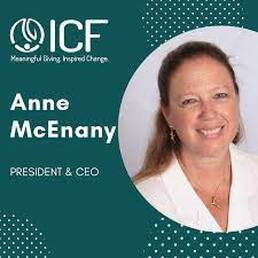
Anne McEnany steps down from her role as President & CEO of the International Community Foundation (ICF). It is with a mix of sadness and gratitude that ICF’s Anne McEnany has stepped down from her role as President & CEO. Anne has played a critical role in the development and success of our organization, and while we will miss her and her inspiring leadership, we wish her the best of luck on her next adventure. We want to thank her for the 20 years of dedicated service, which involved many accomplishments that are a direct result of her leadership, including: Growing ICF’s assets from $22 million to $30 million; expanding grant making from $7 million to $17 million in 2020; growing ICF’s team from 5 to 14 cross-cultural professionals; targeting mosquito-borne diseases in Mexico. ICF brought the World Mosquito Program to La Paz to pilot a $2 million project to eliminate dengue, zika, chikungunya, and yellow fever – the first site in Mexico to receive… (read more)
Healthy Air: Indoors and Out, a free webinar in Spanish and English on how to protect your home and family from air pollution. Join the EPA to learn about indoor and outdoor air pollution in the U.S.-Mexico border region and what you can do to protect your home and community. Presenters will share information on common air pollution sources, potential health impacts from poor air quality, and tips and tricks for creating safe environments. All members of the public are welcome! Date: August 12, 2021, Time: 12:00-1:00 PM PT. Host: US EPA, Region 9. For more information, please contact Francisco Dóñez. Register here.
Nominations for the first-ever Legacy of Leadership awards are due July 31. Don't miss your chance to recognize a Philanthropy Southwest foundation or individual leader for their leadership, legacy, and innovationDo you know a PSW foundation member or individual foundation staff member or trustee who deserves recognition for their legacy and innovation in Philanthropy? Please submit your nomination for a Legacy of Leadership Award to celebrate the spirit of leadership, legacy, and innovation. Selected recipients are recognized at this year’s Annual Conference during the Celebration of Philanthropy closing event, a formal reception and dinner. Applications close July 31!
"Mentes Hermosas" brings the Vision in Action Mental Health Sanctuary in focus. Though it lies miles beyond the edge of Ciudad Juárez and its residents are often overlooked by society, the Vision in Action Mental Health Sanctuary is front and center in Mentes Hermosas (Beautiful Minds), a new photography series and exhibit captured by Art Moreno Jr. Established by Pastor Jose Antonio Galvan in 1995, the Vision in Action Mental Health Sanctuary provides care for individuals who were living on the streets of Juárez and primarily serves those grappling with mental illness. Hoping to further the reach and knowledge of its work, Sanctuary leadership recently collaborated with photographer Art Moreno Jr. to produce a series of portraits of Sanctuary residents, one of which is being sold as a print through the El Paso Community Foundation. Proceeds support the... (read more)
July 14, 2021
Meet the Fellows: A Conversation with the Joan B. Kroc Institute for Peace and Justice Border Fellows. Register here to join us on Thursday, July 15 at 1 PM (PST) for a discussion with the inaugural cohort of Kroc IPJ Border Fellows and our Border Ally Award recipients. During the event, you will learn more about their projects and their passion for building a peaceful and inclusive border region. Our virtual panel will be hosted via Zoom in Spanish with simultaneous translation to English. This dynamic group represents the diverse efforts across our border community to reduce vulnerabilities for women, provide opportunities for at-risk youth, protect migrants, increase access to justice, contribute to environmental resilience, prevent violence, and minimize human rights abuses.
Santa Fe Community Foundation Announces new CEO Christopher Goett. The Santa Fe Community Foundation, New Mexico’s largest nonprofit funder, is pleased to announce the appointment of Christopher Goett as its new president and CEO, effective July 28, 2021. Goett will succeed Sue Coliton, who has served as the organization’s interim president and CEO since September 2020. “We are delighted that Chris has chosen the Santa Fe Community Foundation for this next chapter of his career,” said Marcos Zubia, chair of the search committee. “We’re grateful for all who made this decision possible, including my colleagues on the Search Committee, the Foundation staff and board, and the hundreds of people who participated in the initial constituent conversations.” Mr. Goett is a value-oriented leader with over 20 years of experience in community-based philanthropy. He currently serves as the... (read more)
Legacy of Leadership Awards: Recognizing legacy and innovation in philanthropy. Do you know a Philanthropy Southwest foundation member or individual foundation staff member or trustee who deserves recognition for their legacy and innovation in philanthropy? Please submit your nomination for a Legacy of Leadership Award to celebrate the spirit of leadership, legacy, and innovation. Selected recipients are recognized at this year’s Annual Conference during the Celebration of Philanthropy closing event, a formal reception and dinner. Applications close July 31, 2021 and Award recipients are announced on September 1, 2021.
Plaza Classic Film Fest rolling out their schedule and it’s looking great. The Plaza Classic Film Fest of last year was a little different. It went out on tour in El Paso as pop-up drive ins which was pretty cool, but seeing the films at the historic Plaza Theater was definitely missed. Well, great news, the El Paso Community Foundation has announced that for this year, the Plaza Classic Film Fest will return to the Plaza Theater this summer! This year's Plaza Classic Film Fest will take place on July 29th through August 8th- in and around the Plaza Theatre in downtown El Paso. COVID safety protocols will be in place. Check out the list of movies (so far) that will be shown at the... (read more)
UTEP’s Dr. Gabriel Ibarra-Mejia appointed to EPA’s U.S.-Mexico Border Environmental Program. Gabriel Ibarra-Mejia, M.D., Ph.D., assistant professor in The University of Texas at El Paso’s Department of Public Health Sciences, has been appointed as the U.S. co-leader for the environmental education and sustainability task force with the U.S. Environmental Protection Agency's U.S.-Mexico Border Environmental Program. The role of the task force is to serve as a mechanism for border stakeholders to collaborate, share information, raise concerns to government officials, and learn about ongoing efforts in the border region. Among his duties as co-leader, Ibarra-Mejia will be responsible for creating and implementing action plans for the task force and... (read more)
June 30, 2021
Stepping up: Philanthropy assumes racial justice leadership role. As the country embarked on renewed racial reckoning ushered by the horrendous murder of George Floyd in Minneapolis in May 2020, the reverberations of growing social unrest were soon felt here in San Antonio. The community was in search of guidance. People needed and wanted to turn to bona fide sources of leadership that could point the way on how to tackle racial injustice and work toward establishing equity. Then the mentions began dropping one after the other – News 4 WOAI, San Antonio Magazine locally and even in national nonprofit circles labeling it as a go-to organization in the Alamo City. They all referred to the San Antonio Area African American Community Fund (SAAAACF), a charitable fund of the San Antonio Area Foundation. Yet it’s not as if SAAAACF was just... (read more)
$471.44B in giving: A look at the latest Giving USA report. Last week, Megan Thomas, president & CEO of Catalyst, joined Mark Stuart, president & CEO of The San Diego Foundation, Emily Young, executive director of The Nonprofit Institute, and Richard Tollefson, president of The Phoenix Philanthropy Group, for a launch discussion with the Association of Fundraising Professionals San Diego on the newly released Giving USA data for 2020. Launched June 15, the report outlines more than $471 billion in giving to U.S. charitable organizations in 2020 and highlights shifts in behaviors we are seeing at a macro scale across the U.S. We’ve included a comprehensive release of the information below from Giving USA Foundation and the Indiana University Lilly Family School of Philanthropy at IUPUI. But if you’d like an easy button, we’ve also got you covered. Here are our top five takeaways from the report... (read more)
Voices of the Border: Testimonios of Migration, Deportation, and Asylum. By Tobin Hansen and María Engracia Robles Robles, ME, Editors. Foreword by Sean Carroll, SJ. Powerful personal accounts from migrants crossing the US-Mexico border provide an understanding of their experiences, as well as the consequences of public policy. Migrants, refugees, and deportees live through harrowing situations, yet their personal stories are often ignored. While politicians and commentators mischaracterize and demonize, herald border crises, and speculate about who people are and how they live, the actual memories of migrants are rarely shared. In the tradition of oral storytelling, Voices of the Border reproduces the stories migrants have... (read more)
Applications are now being accepted to join CFSA’s third cohort of Catchafire.org grantees. Community Foundation for Southern Arizona’s Catchafire Grants offer significant operational support to regional nonprofits by connecting organizations with professional, virtual volunteers. From building a new website to video production, HR policy review to leadership coaching, Catchafire’s volunteers support nonprofits with over 160 different capacity-building projects. Over the past two years, CFSA’s Catchafire grantees have completed more than $3.9 million in projects through their Catchafire memberships, representing 19,973 volunteer hours and 846 individual projects. Apply here by July 7, 5 p.m. MST.
June 16, 2021
CFSA Announces Appointment of Jenny Flynn as President & CEO. The Community Foundation for Southern Arizona (CFSA) is pleased to announce that our Board of Trustees has completed a national search and appointed Jenny Flynn as President and CEO, effective August 30, 2021. CFSA is also pleased to announce that Mark Montoya, currently serving as Interim President and CEO for the Foundation, has been appointed Chief Operating Officer. CFSA Board Chair Jan Lesher shared, “The Foundation’s Board of Trustees was impressed with Jenny’s commitment to inclusive philanthropy and her success in increasing philanthropic giving at the University of Arizona. We are excited to welcome her to the CFSA team.” Lesher continued, “Jenny’s expertise and Mark’s relationships with CFSA’s donors and partners will make them a dynamic team. The board is confident that...(read more)
Meet the Fellows: A conversation with the Kroc IPJ Border Fellows. Join us for a discussion with the inaugural cohort of Border Fellows at the Kroc Institute for Peace and Justice on Thursday, July 15 at 1:00 PM PT. During the panel, you can learn more about the Fellows, the projects they will work on during the 12-month fellowship, and their passion for building a peaceful and inclusive border region. At the event, we will also honor a group of ten dedicated individuals as the first recipients of our Border Ally Award for their work at the border. Patricia Marquez, Dean of the Kroc School, will provide introductory remarks and the panel will be moderated by Kroc IPJ Program Officer for Cross-Border Initiatives Melissa Floca. The event will be hosted virtually via zoom. Please register here to access the webinar.
MacKenzie Scott and Dan Jewett invest in community foundation momentum. Philanthropist MacKenzie Scott and her husband Dan Jewett have chosen to donate $5 million to CFLeads. This extraordinary gift shines a light on the vital role community foundations play in transforming communities throughout the United States and acknowledges the unique power of CFLeads as a peer network driving change. We deeply appreciate Ms. Scott and Mr. Jewett’s faith in our mission and the growing number of community foundations coming together through CFLeads to be more effective community leaders. Scott and Jewett recognize that “community-centered service is…a powerful catalyst and multiplier.” In her Medium post “Seeding by Ceding,” MacKenzie Scott writes that her team identified and evaluated equity-oriented non-profit... (read more)
Ken Salazar, Ambassador to Mexico. By Morgan Smith. The Biden administration has now named former US Senator Ken Salazar from Colorado to be its Ambassador to Mexico. Having worked with Ken in the administration of Colorado Governor Roy Romer, I can attest to his knowledge, integrity and commitment. He served as Attorney General for Colorado (1999-2005), US Senator from 2005 to 2009 and Secretary of the Interior from 2009 to 2013 and there is no better choice for this position that offers major challenges but also great potential for improving mutual US-Mexico issues. The first challenge would be gaining the trust and respect of Mexico’s President, Andrés Manuel López Obrador (better known as AMLO). Despite Trump’s... (read more)
XXV Border Environmental Forum: The Green Economy & Bilateral Integration. Westin Riverwalk, San Antonio, Texas. August 17 and 18. The North American Development Bank (NADB) is proud to present the XXV Border Environmental Forum (BEF). This forum brings together local and state officials, private sector developers, academics, large commercial users, and experts from the U.S. and Mexico. The forum will center the dialogue on the U.S.- Mexico relationship and regional efforts to develop projects that help improve the environment, the climate challenge related to water, highlighting current and future financing opportunities, new technologies and how to continue building partnerships that will benefit both countries.
Understanding COVID-19 is the key to fighting it. La Jolla Institute for Immunology presents the COVID-19 Vaccine Resource Guide. While the global COVID-19 vaccination campaign continues, there are many questions circulating about the mRNA and Johnson & Johnson/Janssen COVID-19 vaccines approved for use in the U.S. and we have the science-based, data-driven answers. This brief, easy-to-understand e-guide updated in April 2020 (after being initially developed in February 2021) will keep you informed and empower you to engage in conversations about the safety and efficacy of these vaccines and the groundbreaking research underway related to fighting COVID-19. Stay informed and lead conversations using this the COVID-19 Vaccines Resource Guide.
Comunalia, the community foundations network in Mexico, announces its new director. Tatiana Fraga Diez joins Comunalia to lead this important group. Tatiana has a master's degree in Leadership for Civil Society Organizations from the University of Pennsylvania with an emphasis on processes and spaces for intersectoral collaboration for social transformation. She has a degree in International Relations from El Colegio de México. She has more than ten years of experience in institutional processes for national and international private and non-profit organizations, as well as in designing, implementing, and evaluating projects. In recent years, she has facilitated intersectoral collaboration processes in Monterrey, and delivered workshops for groups and organizations on topics such as: leadership, group dynamics, fundraising, conflict resolution, planning, project implementation and theory of change.
Imperial Valley Wellness Foundation Hires First Executive Director. Roque Barros Jr., former director of the Ford Institute for Community Building; deep family roots in Imperial Valley. The Imperial Valley Wellness Foundation (IVWF) today announced it has hired Roque Barros, Jr. as its first executive director. Born and raised in Imperial Valley, Barros has had an exemplary career working to improve the lives of people in underserved communities. “We are delighted to bring Roque Barros into our organization as its first executive director,” said local insurance executive Jose Landeros, IVWF’s chair. “Roque knows our community and brings extensive understanding from outside our community in how to address the needs of the most vulnerable.” Barros most recently served as the director for the Ford Institute for Community Building, an arm of the Ford Family Foundation. In that role, he was responsible for the development and coordination of more than 90 local projects serving thousands of individuals across Oregon and Northern California.
Busing, escorting thousands of Mexican workers into California for COVID-19 shots quite an undertaking. For the second day this week, 1,500 workers lined up bright and early and slowly trickled into the U.S. through a gate and under the concertina wire at a California port of entry to get vaccinated at a mobile clinic just north of the border. The goal is to inoculate 10,000 maquiladora workers this week, and if it all works out, continue vaccinating people in the weeks ahead. “Ten thousand employees who work at six United States manufacturing facilities in Baja will be vaccinated,” said San Diego County Supervisor Nathan Fletcher. The state of California is providing “excess vaccines” to the effort. U.S. Customs and Border Protection, UC San Diego Health, the Mexican Consulate in San Diego and business leaders from Baja California are also involved.
Philanthropy Southwest's 73rd Annual Conference: Rebuild Together, Emerge Stronger. Registration is now open. We believe in the power of connecting, collaborating, and convening. As our community continues to be adaptable and responsive, we are excited to gather together for an in-person, socially distanced Annual Conference October 19-22 at the brand-new Omni Oklahoma City Hotel. The Conference is available to PSW members and funders only. Register now and submit a nomination for the Legacy of Leadership Awards that recognize Philanthropy Southwest foundation members and individuals from across the Southwest region, in celebration of their spirit of leadership, legacy, and innovation. Applications close July 31.
Also from Philanthropy Southwest: How Did Philanthropy Respond? June 7
Also from Philanthropy Southwest: How Did Philanthropy Respond? June 7
Transtelco to connect El Paso Children’s Museum and Science Center to La Rodadora Interactive Space in Juarez. The El Paso Children’s Museum and Science Center and La Rodadora Interactive Space, the children’s museum in Ciudad Juarez, will share an interactive exhibit that will allow visitors of both museums to engage in shared experiences. Transtelco will provide the crucial high-speed connectivity to make this exhibit a reality. “We are excited. Thanks to Transtelco’s generosity, we will have a shared interactive exhibit with La Rodadora that will erase the border and connect our shared blue sky,” said Stephanie Otero, Interim Director and Vice President of Operations for the El Paso Community Foundation. “We are very grateful for the... (read more)
EPA announces new border plans by 2025. Includes five-year binational, environmental program. The U.S. Environmental Protection Agency (EPA), in partnership with Mexico’s Ministry of the Environment and Natural Resources (SEMARNAT, by its acronym in Spanish), is pleased to announce the signing of the U.S.-Mexico Environmental Program: Border 2025. It would advance the two countries' commitments to protect the environment and public health along the our border. "Today, the United States and Mexico memorialized our shared commitment to tackle the urgent environmental issues of our time, and to improve health conditions for underserved and vulnerable communities living along our border region," said EPA Administrator Michael S. Regan. "Signing this framework will help ensure sustained progress by increasing... (read more)
|
Living with COVID 19. By Morgan Smith. On Tuesday, May 4, I crossed the border at Santa Teresa for the first time in more than a year. Previously I had made this crossing at least once a month for more than a decade in order to document conditions there and assist several humanitarian groups as well as individual families. Now having been fully vaccinated, I realized that I had to begin these trips once again. Mexico’s President, Andrés Manuel López Obrador (better known as AMLO) is a COVID skeptic, the number of COVID deaths have been dramatically under reported, there is no vaccination program, and he has made little effort to work with President Biden on these issues. In addition, Mexico hasn’t had the kind of stimulus programs that have brought economic salvation to so many in the US. As a result, my expectations were low but I was wrong.
|
Paso del Norte Community Foundation presents Grant Writing for Grassroots. Join experienced grant writer, Kristen Hernandez- Ortega, to discuss the do's & don'ts of grant writing in this virtual three-part series. May 26t- June 9. Session One: The Basics. Grant writing YOU can do it! Session Two: Grant Planning 101: During this session, we will go over tips to help simplify your grant writing process in Part 1. Session Three: Grant Planning 102: During this session, we will go over tips to help simplify your grant writing process in Part 2. Registration is free and open to nonprofit professionals of all backgrounds & expertise. Space is limited. Register here.
UTEP helped parents from Mexico attend our graduation, but pandemic border-crossing rules remain unfair. For the first time in more than a year my Mexican parents will able to cross the border from Ciudad Juárez using a special waiver to attend my commencement ceremony at University of Texas at El Paso. Since March 2020, crossing the border has been restricted to essential travel including crossing for work, medical or academic reasons in an attempt to stop the spread of Covid-19. Because of that, when UTEP graduating seniors got the news that in-person commencement was happening, I thought I would be alone at the ceremony, walking the stage at the Sun Bowl Stadium while my parents watched a live stream from their home in Juárez. I wrote a letter to University of Texas at El Paso President Heather Wilson in what I described as “a hopeful attempt to make my graduation a memorable one.” In the emailed letter, I explained that my parents are both Mexican citizens living in... (read more)
The Paso del Norte Health Foundation is looking for an Associate Program Officer or Program Officer to join one of the largest foundations on the U.S.-Mexico border. The deadline to submit applications is June 18, 2021. Working collaboratively with other staff and community members, the Associate Program Officer and Program Officer positions have the opportunity to develop strategic plans, lead grantmaking, run special projects, coordinate health communication campaigns, and oversee project evaluation within Board approved priority areas. Both positions offer opportunities to impact health across the region, including far west Texas, Cd. Juarez, and parts of Southern New Mexico.
Con Alma Health Foundation’s Board of Trustees announce new Executive Director. Con Alma Health Foundation’s Board of Trustees announced that Denise Herrera, PhD, MCHES, will take over as its new executive director on June 1. Dolores E. Roybal is retiring after 15 years of service to Con Alma. In that time, she cultivated partnerships to work toward health equity and leveraged millions of dollars to improve health in New Mexico. Con Alma is committed to continuing this path by recruiting an executive director who shares the Foundation’s vision of achieving a more equitable and healthier future for all. “It is our great pleasure to welcome Denise as our new leader,” said Deborah Walker, Chair of Con Alma’s Executive Search Committee and President Emeritus of the Board of Trustees. “We conducted a nationwide search to find the right person who is community-centered with a commitment to deep engagement in diversity, equity and inclusion.” Read the full press release here.
Kino Border Initiative is seeking a Director of Finance and Administration. The Kino Border Initiative is a 501(c)3 non-profit organization located in Nogales, Arizona. It focuses its work on humanitarian assistance, education, research and advocacy as it relates to the phenomenon of migration. Purpose of position: Reporting to the Executive Director, the Director of Finance and Administration is responsible for overseeing the overall financial management and internal controls, managing all human resource functions, and directing general business operations of the organization in a way that will allow all Kino Border Initiative legal entities in the USA and Mexico to effectively fulfill its mission.
'An everywhere problem.' Texas A&M students team up to analyze issues facing border. Students in Texas A&M’s School of Public Health and the Bush School spent the semester analyzing the connection between public health and security in the border region of the United States and Mexico and making recommendations. The topics included food deserts, where healthy food options are not easily accessible; the spread of disease to service members stationed along the border regions; and the lack of health care resources in the region. Alexander Le, who graduated Friday with his masters of public health graduate and will begin medical school next year, said the class has taught him that every issue can be tied back to...(read more)
Plaza Classic Film Festival returns to the Plaza Theatre this summer. After a year’s absence, the El Paso Community Foundation Plaza Classic Film Festival will return to the Plaza Theatre this summer. The 14th annual Plaza Classic Film Festival will be July 29-August 8 in and around the Plaza Theatre in downtown El Paso. Due to the COVID-19 pandemic, last year’s Plaza Classic moved outdoors for a series of 11 pop-up drive-ins at various locations around El Paso, and five days of digitally streamed films and interviews. This year’s Plaza Classic will be more traditional, but with COVID safety protocols in place, such as mandatory mask wearing, social distancing, disinfecting, and seating capacity limits, including assigned “pod” seating to ensure physical distancing. “It will... (read more)
Plaza Classic Film Festival returns to the Plaza Theatre this summer. After a year’s absence, the El Paso Community Foundation Plaza Classic Film Festival will return to the Plaza Theatre this summer. The 14th annual Plaza Classic Film Festival will be July 29-August 8 in and around the Plaza Theatre in downtown El Paso. Due to the COVID-19 pandemic, last year’s Plaza Classic moved outdoors for a series of 11 pop-up drive-ins at various locations around El Paso, and five days of digitally streamed films and interviews. This year’s Plaza Classic will be more traditional, but with COVID safety protocols in place, such as mandatory mask wearing, social distancing, disinfecting, and seating capacity limits, including assigned “pod” seating to ensure physical distancing. “It will be good to be ‘home’,” said Doug Pullen, the festival’s director and Program Director for the El Paso Community Foundation. “The Plaza Classic Film Festival was inspired by the... (read more)
Catalyst announces new President & CEO. Catalyst of San Diego & Imperial Counties, a nonprofit network of funding organizations and impact investors in the region, today announced that Megan Thomas has been named as president and chief executive officer. Thomas, who has been serving as interim president for the last six months, succeeds Debbie McKeon who stepped down last October. Thomas brings more than 20 years of nonprofit and philanthropy experience to the role, including previously serving as executive director of San Diego Coastkeeper where she built partnerships among the nonprofit, business, and public sectors to advance environmental goals across San Diego County. Thomas has spent the last five years leading Catalyst’s (formerly San Diego Grantmakers) collaborative grantmaking portfolio and... (read more)
Learn more about how AEBI can benefit your nonprofit organization. Is your organization serious about building an endowment and developing a planned giving program? Learn how the Arizona Endowment Building Institute at the Arizona Community Foundation can guide your nonprofit to the next level during an informational session. Before a nonprofit can participate in an AEBI training program, a representative of the organization must attend an information al session. The sessions will cover the same topics, so please register for the date that best fits your schedule. AEBI information session #1: Tuesday, May 18, 10:00 to 11:00 a.m. (Arizona time). AEBI information session #2: Wednesday, June 9, 1:00 to 2:00 p.m. (Arizona time). RSVP for these virtual events.
UTEP study shows pandemic created demand for emergency food assistance in El Paso County. Food insecurity caused by the COVID-19 pandemic resulted in an increased demand for emergency food assistance in El Paso County, particularly in households located in downtown El Paso and in communities outside the city, including San Elizario, Fabens and Tornillo. UTEP, El Pasoans Fighting Hunger (EPFH) Food Bank and the County of El Paso collaborated on a food insecurity study investigating emergency food assistance in El Paso County during the COVID-19. Photo by Laura Trejo, UTEP Communications. UTEP, El Pasoans Fighting Hunger (EPFH) Food Bank and the County of El Paso collaborated on a food insecurity study investigating emergency food assistance in... (read more)
Televisa Univision venture aims for global Spanish streaming service. Television Univision, a newly formed Spanish media venture, will launch its planned streaming platform in the United States and Mexico next year before expanding elsewhere in Latin America and in Europe, its chief executive told Reuters on Wednesday. The service, which will take on established rivals including Netflix Inc and Disney Plus, will be a product of a move to combine the content of Mexican broadcaster Grupo Televisa and U.S. peer Univision, announced on Tuesday. Televisa shares surged by as much as a third before closing with a gain of 22.8% on the day, as investors bet on the growth potential of the venture. Less than 10% of the global population of 600 million Spanish speakers... (read more)
April 21, 2021
Congratulate Janice Windle on her national arts award. Join the El Paso Community Foundation in congratulating our own Janice Woods Windle for receiving 2020-2021 Women in the Arts Award, a national honor that recognizes excellence in the literary arts by the Texas Daughters of the American Revolution. In her acceptance speech, Janice thanks for the Balcones (Austin) chapter of the Texas DAR as well as her EPCF family. Janice was singled out for the award for her historical novels True Women (made into a CBS mini-series starring Angelina Jolie), Hill Country and Will’s War, and The True Women Cookbook. All four books are used in classrooms and have been printed in eight languages. Janice is a true women’s pioneer. She was the first person hired by... (read more)
Visit the Center for Healthy Nonprofits at the Community Foundation for Southern Arizona. If you've missed one of the webinars or trainings, you can find a recording of it in the Nonprofit Resource Library. Content is continually added to this library and includes topics such as Ask an Expert; COVID support; fundraising help; IDEA and DEI workshops; self-care tips for leaders; and more. The Center for Healthy Nonprofits, a program of the Community Foundation for Southern Arizona, works to strengthen the southern Arizona nonprofit community by offering free and reduced cost capacity building workshops and training for nonprofit professionals and volunteers.
FBI El Paso’s 2020 Director’s Community Leadership Award nominations. Read in Spanish. Luis Quesada, special agent-in-charge of the El Paso Field Office, is pleased to announce the nominations for 2020 FBI’s Director’s Community Leadership Award (DCLA). In year’s past, the FBI has only released the final recipient. This year SAC Quesada felt it was important to share the importance all of these organizations made to the El Paso community during a time when the community needed assistance. Following the tragic events of August 3, 2019, at the Walmart in El Paso, Texas, in which 23 people were killed and hundreds physically and emotionally injured, The El Paso Community Foundation rose up to this significant challenge and assisted with donation management of the financial contributions that immediately poured in from individuals, businesses, and organizations across the nation wanting to help those affected. In doing so, the One Fund El Paso emerged and developed in partnership with... (read more)
April 7, 2021

Arizona Community Foundation welcomes new board officers. Robbin Coulon begins term as Board Chair. A member of the Arizona Community Foundation Board of Directors since 2013, Coulon served as vice chair, chaired the Philanthropic Services and Compensation committees, and was previously a member of the Nominating and Governance Committee. Robbin brings ample experience to this new role. In addition to electing Coulon as chair, the Board also named its slate of officers. Leezie Kim, Esq., Chief Legal Officer for Fox Restaurant Concepts LLC, will become the vice chair; Heidi Jannenga, Co-Founder and Chief Clinical Officer at WebPT, will serve as secretary; and Rufus Glasper, President and CEO of the League for Innovation in the Community College, will continue to serve as... (read more)

Humanity in Deming and Palomas. By Morgan Smith. It’s 47 degrees and the sun is pushing through clouds after a night of heavy rain as I cross the border to Palomas, Mexico (pop. 4,600). The Mexican customs officials wave me right through as groups of soldiers watch. Fortunately, no one pays attention to the bags of beans and rice and boxes of Oreos in the back of my car. I’ve been visiting the border at least once a month for over a decade, mostly Palomas and Juárez. I help different humanitarian groups as well as several families and document conditions here. My goal has been to bring attention to the heroic people who serve the needy. For reasons I still don’t understand, this will be one of my most painful trips. Earlier I had visited the armory in Deming where...(read more)

Foundation establishes 3 new funds for Chaves County. Three new funds through the Community Foundation of Southern New Mexico will benefit Chaves County. The foundation, based in Las Cruces, manages more than 300 funds in 10 counties and expanded into Chaves County after the onset of the pandemic, Terra Winter, president and chief executive officer, said. Last March, the foundation began working with the governor’s office and other community foundations in the state in the All Together New Mexico Fund, established for COVID-19 relief and recovery. Lincoln and Otero counties were among those the foundation had been working in, so it added Chaves County. “We started... (read more)
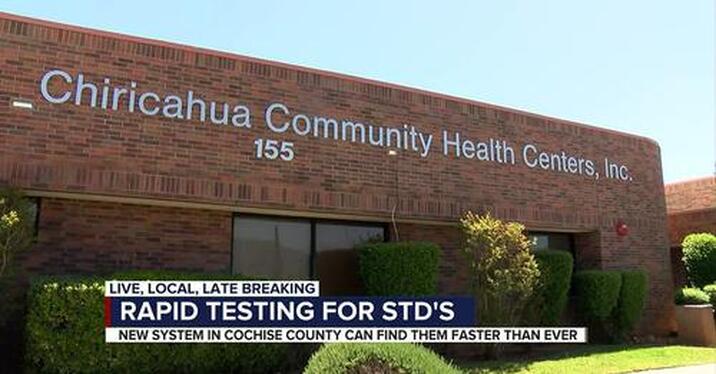
The Arizona We Want: The Decade Ahead. Join the Center for the Future of Arizona for the release of The Arizona We Want: The Decade Ahead report, revealing data and insights from our second decennial 2020 Gallup Arizona Survey. The voices of Arizonans are more important than ever in shaping the future of our state. Learn where we agree on important issues like jobs, education, health, civic participation and governance, and community life. Hear from leaders across the state about opportunities for change and growth, and enjoy a panel discussion moderated by Lisa Urias, Arizona Community Foundation's Chief Program & Community Engagement Officer. Register here.

Kino Border Initiative is hiring for two positions. The Kino Border Initiative is looking for a Director of Communications and Director of Education and Advocacy. The Director of Communications is responsible for humanizing the realities of migration and encouraging engagement from individuals and communities through various communication tools, including a bilingual, content-rich and interactive social media presence, a monthly newsletter, connections with traditional media, and the KBI annual report. The Director of Education and Advocacy is the primary coordinator of the educational and advocacy programs offered by the KBI, which includes the development and realization of an advocacy plan that leverages the resources and network of KBI to promote humane and just migration policy as well as the development and delivery of... (read more)

Con Alma Health Foundation 2021 grant cycles are now open. Con Alma Health Foundation and Northern New Mexico Health Grants Group’s 2021 Grant Cycles will close Friday, April 30, 2021 at midnight. Con Alma awards grants annually to nonprofits throughout New Mexico that work toward sustainable solutions to their communities’ health challenges. Sign-up for ‘Grant Cycle Information’ updates by texting GRANTCYCLES to 22828. For more grant cycle information and how to apply, please visit our “For Grant Seekers” page. Join Con Alma Health Foundation for a review of their 2021 grant cycle and online proposal process. Click here to see the online pre-proposal workshop dates.
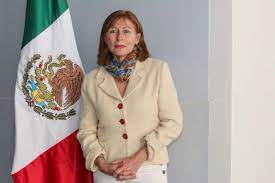
México Próspero – A Presentation by Tatiana Clouthier, Mexico’s Secretary of Economy. Join the Institute of the Americas on April 14 for a keynote presentation and discussion with Mexico’s Secretary of Economy Tatiana Clouthier as part of the Institute of the Americas’ Hemisphere in Transition Webinar Series. The event will be moderated by Richard Kiy, President of the Institute of the Americas (IOA) and Jeffrey Davidow, Member of the IOA’s Hemispheric Advisory Board and former US ambassador to Mexico. Tatiana Clouthier assumed her position as Secretary of Economy on December 8, 2020. The webinar and presentation will explore economic perspectives for Mexico, the country’s energy sector outlook, work force development and local content.
March 5, 2021
|
Arizona Community Foundation announces Elisa de la Vara retirement; Lisa Urias to take helm as Chief Program and Community Engagement Officer. Today the Arizona Community Foundation has announced that Elisa de la Vara officially retires as of March 31, 2021 after a long and distinguished career in finance, politics, and philanthropy. Elisa leads the affordable housing initiative, impact investing program and the grants management division. She is also responsible for the leadership of staff, volunteers and consultants that guide the Community Foundation's Latinos Unidos Initiative, Black Philanthropy Initiative, and the Asian American Women's Giving Circle. Elisa officially joined the BPP Board in 2016 and currently serves as Board Chair. Elisa will continue in this role until her term expires in January 2022. Lisa Urias has a long history of community leadership and success in the business sector leading two communications related businesses. Lisa comes from Urias Communications, a national recognized multicultural marketing and communications agency and CoNecs North America where she served as Managing Partner. Additionally, Lisa Urias served on the Board of Directors at ACF for 8 years and as Chair of the Board's Public Policy Committee. Congratulations to Elisa de la Vara and Lisa Urias.
|
Elisa de la Vara
|
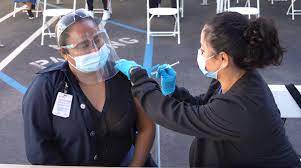
Working with local nonprofits to create greater equity in San Diego. Pamela Gray Payton is chief impact and partnerships officer and vice president of community impact for The San Diego Foundation, a community foundation and public charity that pools donations from individuals, families and businesses to support local nonprofit organizations. Pamela Gray Payton is interested in building bridges - the kinds of bridges that allow people to help each other improve their lives and create greater equity. As chief impact and partnerships officer and vice president of community impact for The San Diego Foundation, she's working with her colleagues to come up with new ways to support local nonprofits and give opportunities to local philanthropists who believe in equity. "Throughout my professional career, I've had the honor of working with phenomenal nonprofit organizations," says Gray Payton, who's worked with the University of San Diego, RISE San Diego, the Kim Center for Social Balance and others. "Whether the organization was working to introduce children to new cultural and... (read more)
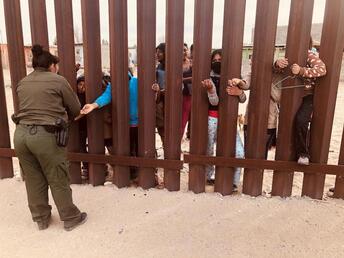
Humanity at the border. By Morgan Smith. We left Santa Fe at 8 AM, my wife, Sherry and I with our two tiny dogs huddled in blankets in the back seat and a bag of sandwiches, apples, nut, brownies plus a cooler with drinks. The temperature was a bitter 11 degrees. It's about 325 miles to the border wall west of El Paso and Juárez and between Sunland Park, New Mexico and Anapra, Mexico where we hoped to interview and photograph the Mexican soldiers who have been stationed there to keep migrants from crossing. For a decade, I crossed the border at least once a month to document conditions in the Juárez area as well as tiny Palomas to the west but I have only crossed once since the pandemic began; this border wall idea was to be a substitute. It was 46 degrees when we reached the wall area at mid afternoon and we waited while a lengthy train passed. A Border Patrol officer was parked near the tracks and told us he had been working in this area for ten years and loved his work. He said that migrants were still crossing, over the wall with ladders or to the west where the wall ends at the beginning of the...(read more)

The San Diego Women's Foundation officially opens their cycle 21 Fellowship Program application. The SDWF is looking for emerging leaders who are employees of nonprofits located in San Diego County to participate in a two-year SDWF Fellowship program. Application requirements: Applicants must be currently employed by a San Diego nonprofit organization that has 501(c)(3) status; nonprofit professionals at any stage in their career may apply, but note that this program is typically most valuable for the emerging leaders in your organization; applicants should have sufficient flexibility or autonomy of their schedule to attend weekday events and meetings. Please see program expectations and requirements. If you're interested in this one of a kind opportunity to connect with other women in nonprofit organizations and input your expertise, please apply here.
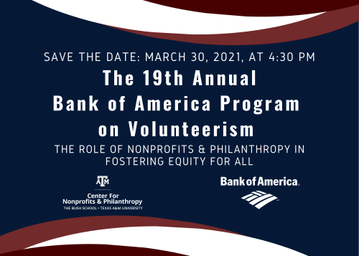
March 30, Bank of America Program on Volunteerism. The Center for Nonprofits and Philanthropy at the Bush School of Government & Public Service cordially invites you to the 19th Annual Bank of America Program on Volunteerism on Tuesday, March 30, 2021, at 4:30 p.m. The event will be managed on Zoom. The 19th Annual Bank of America program will address "The Role of Nonprofits & Philanthropy in Fostering Equity For All." This year's program will focus on the role nonprofits and philanthropy have in fostering equity for all in a moderated panel discussion that offers perspectives from the philanthropic and corporate sectors. Panelists for this event are: Dr. Ruth Simmons, President of Prairie View A&M University, Mr. Rick Jaramillo, Houston Market Executive at Bank of America Merrill Lynch, and the Honorable Margaret Spellings, President and CEO of Texas 2036 and Former US Secretary of Education. Dr. Robbie Robichau, Assistant Professor, Bush School of Government & Public Service, will moderate the discussion on the importance of equity and how organizations can work towards providing opportunities for all. A brief question and answer session will following the panel discussion.
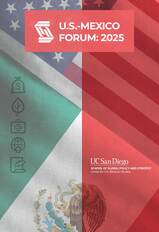
UC San Diego's U.S.-Mexico Forum 2025 taps into potential of cross-border collaboration. The Forum provides the Biden and López Obrador administrations with policy recommendations on trade and economy, energy and sustainability, strategic diplomacy, migration, and security and public health. Recent world events, including the election of President Joe Biden, the global COVID-19 pandemic and more, have many wondering, "What's next on the world stage?" Researchers at the Center for U.S.-Mexican Studies (USMEX) at the University of California San Diego took the opportunity at this pivotal juncture to rethink the relationship between Mexico and the U.S. The team, housed in the UC San Diego School of Global Policy and Strategy, worked to create the U.S.-Mexico Forum 2025, comprised of a group of USMEX researchers, Mexican and U.S. scholars, practitioners and experts. The Forum's report proposes a course for bilateral U.S.-Mexico relations during the four years (2021-2025) when Biden and Mexico's Andrés Manuel López Obrador will... (read more)
February 17, 2021

Become a non-residential Border Fellows program at the Kroc Institute for Peace and Justice. The University of San Diego recently launched a call for letters of interest for the non-residential Border Fellows program at the Kroc Institute for Peace and Justice. The program is designed for individuals in Southern California and Baja California working in academia, civil society, or the public sector to make the border region more peaceful and inclusive. The program is 12 months, during which time Fellows will receive an $850/month fellowship & $5K grant to support their work. The full details of the call are online and the deadline to apply is Feb. 22.

New Bush School speaker series to explore border issues. The Mosbacher Institute's Border & Migration Lab is pleased to announce a new speaker series organized by Bush School of Government and Public Policy Assistant Professor Aileen Teague-The Other Side of the Border: Ties That Bind and Issues That Divide. The series will host two events this spring with practitioners working on the Border and in Mexico and Latin America. The next event will be on April 13 at 6:00 p.m., when Ms. Ginger Jacobs, an immigration attorney from San Diego and national speaker on the topic, will join us for her talk "Myth-Busting around Immigration and Asylum."
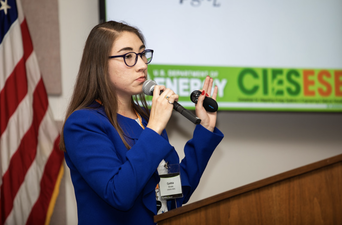
UTEP awarded $1M NNSA grant, will help prepare students for nuclear energy industry jobs. Students from The University of Texas at El Paso will have more opportunities to train for competitive jobs in the energy industry through a $1 million grant from the National Nuclear Security Administration (NNSA). "This is a great, multifaceted opportunity for our students to expand their horizons and obtain training in an important national topic: energy," said Patricia Nava, Ph.D., dean of UTEP's College of Engineering. "Access to the national labs will facilitate research growth, in addition to expanding student employment opportunities. This project is an invaluable asset to our growing pipeline of students, providing entry to the professional workforce. This award will also enable us to fulfill the goal of creating technical expertise, as well as reinforcing our college's status of being a top provider of diverse engineering talent to the... (read more)
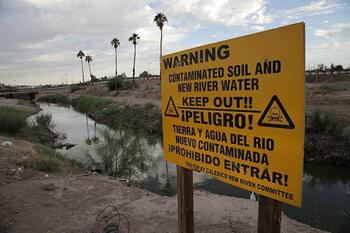
NADB, EPA, and SEPROA focus on reducing transboundary flows of sewage into New River. A virtual ceremony to announce the groundbreaking of wastewater rehabilitation works of the binational sanitation program for Mexicali, Baja California was held by the North American Development Bank (NADB), the US Environmental Protection Agency (EPA), the Mexican Section of the International Border Water Commission, the Baja California Watershed Division of Mexico´s National Water Commission (CONAGUA), and the Water Management, Treatment and Protection Agency for the State of Baja California (SEPROA). Within the framework of the program, the institutions have been collaborating over nine months to support the development and financing of two projects, totaling US $10.6 million, that address the rehabilitation of sewage lines and lift stations. The first project, Wastewater Collection System Improvements (Phase I) and... (read more)
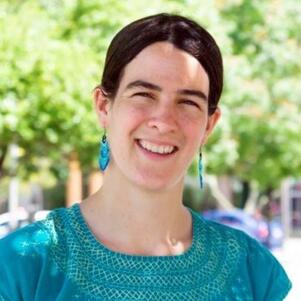
Kino Border Initiative announces new Executive Director. The Kino Border Initiative (KBI) has announced that Joanna Williams will become its next executive director. On March 1st, 2021, she will replace Fr. Sean Carroll, S.J. who has been serving in this role for the past twelve years. Williams has served as the KBI's director of education and advocacy for nearly 6 years and in that time has designed and led programs critical to KBI's mission. Williams is deeply committed to binational and regional collaboration, including through her leadership role in the advocacy work of the Jesuit Migration Network of Central America and North America, of which the Ignatian Solidarity Network is also a member. She first joined the KBI community a decade ago as a full-time volunteer for several months. After that experience, she accompanied migrants in a variety of capacities including through Fulbright research on the reintegration of returned and deported migrants in the Mexican States of Jalisco and Puebla and work on the ACLU of Arizona's border rights program. She is a graduate of Georgetown University's School of Foreign Service and holds a master's degree in public policy from... (read more)
February 3, 2021

Become a non-residential Border Fellows program at the Kroc Institute for Peace and Justice. The University of San Diego recently launched a call for letters of interest for the non-residential Border Fellows program at the Kroc Institute for Peace and Justice. The program is designed for individuals in Southern California and Baja California working in academia, civil society, or the public sector to make the border region more peaceful and inclusive. The program is 12 months, during which time Fellows will receive an $850/month fellowship & $5K grant to support their work. Register for the Feb. 11 info session to learn more. The full details of the call are online and the deadline to apply is Feb. 22.
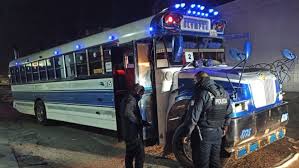
Grant will help improve health, education in Juarez: Tracy J. Yellen and Alfonso Marquez. COVID-19 has had a devastating impact on the residents of Ciudad Juárez. Over 30,000 residents are known to have contracted the disease and 2,500 more have died. Even more, Juarenses have been affected by the pandemic's economic impact, with thousands struggling to meet basic needs, as some lost employment as their workplaces closed, and others struggled to stay healthy and safe while continuing to work to provide for their families. Moments like these demonstrate the importance of local organizations with the relationships, skill and knowledge to collect and coordinate aid - organizations like Fundacion Paso del Norte, a sister foundation and fund of the Paso del Norte Community Foundation. Shortly after the pandemic shut down life along the border, the Fundacion Paso del Norte partnered with local nonprofits, business and philanthropic leaders to invest in personal protection equipment for health workers and medical supplies for hospitals and clinics designated to treat COVID cases. The Fundación also launched the campaign Unidos Podemos, in partnership... (read more)

New Bush School speaker series to explore border issues. The Mosbacher Institute's Border & Migration Lab is pleased to announce a new speaker series organized by Bush School of Government and Public Policy Assistant Professor Aileen Teague-The Other Side of the Border: Ties That Bind and Issues That Divide. The series will host two events this spring with practitioners working on the Border and in Mexico and Latin America. On February 16 at 6:00 p.m. Central Time, Mr. Alan Bersin will join us for a talk titled "U.S.-Mexico Border under President Biden." Mr. Bersin is the Inaugural Fellow of the Homeland Security Project at Harvard University's Belfer Center for Science and International Affairs. He served as Assistant Secretary for Policy & International Affairs and Chief Diplomatic Officer in the US Department of Homeland Security (DHS), as Vice President of INTERPOL for the Americas Region, and as Commissioner of US Customs and Border Protection. The next event will be on April 13 at 6:00 p.m., when Ms. Ginger Jacobs, an immigration attorney from San Diego and national speaker on the topic, will join us for her talk "Myth-Busting around Immigration and Asylum."
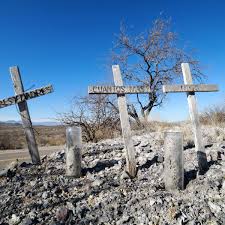
2020 was deadliest year for migrants crossing unlawfully into US via Arizona. Remains of 227 migrants found last year, said Humane Borders, while at least 7,000 have died along US-Mexico border since 1998. When the remains of two undocumented migrants were found in the desert of south-western Arizona last July, one body lay next to an arrow drawn in the sand, pointing north, with the word "HELP" written beneath. The men had perished while attempting to cross into the US from Mexico, according to border patrol. Out of a group of three, one survived and told the federal agents their human smuggler had left the other two behind in the remote wilderness area. "These people are not just numbers," said Tony Banegas, executive director of the Colibri Center for Human Rights, an organization in Tucson working to identify migrant remains and helps families find missing loved ones. "These are human beings with families and aspirations. They went to great lengths to make the journey, [only] to become... (read more)

California group wants to tear down portions of border wall to build binational park. Border wall construction officially came to a halt on Wednesday after an executive order from President Joe Biden. Now, a group in San Diego wants to take it a step further asking for portions of the barrier to be removed altogether. The idea is to take down the fencing and create a binational gathering place at what is now Border Field State Park on the southwestermost corner of the continental United States. This is an area known for sections of the wall extending into the surf in the Pacific Ocean. The park was first dedicated in 1971 by then First Lady Pat Nixon. "On that occasion, she said, 'I hope this is the first phase of what will become an international friendship park,'" said John Fanestil with Via International, a non-profit based in San Diego that claims to work across borders, engaging leaders to promote sustainable development in under resourced... (read more)
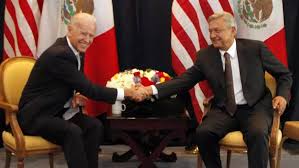
The Odd Couple: Joe Biden and Andrés Manuel López Obrador. By Morgan Smith. Imagine if someone called your people, "drug dealers, criminals and rapists." Imagine someone repeatedly claiming that you would pay for the wall between your two countries. Imagine someone dumping thousands of migrants on your border and expecting you to care for them. Imagine someone waiting until a prominent citizen of yours (Salvador Cienfuegos, ex-defense Minister) stepped off a plane in their country and then arresting that person without a word of warning to you? Despite all these insults, Mexico's President, Andrés Manuel López Obrador *(better known as AMLO) remained a Trump supporter. Although claiming to be fiercely independent, he seemed totally subservient to Trump. Even after the US elections results were repeatedly verified, he has struggled to reach out and congratulate the winner, Joe Biden. What does this mean for our two countries, two countries with so much in common and so in need of a strong working relationship between its leaders? Here is a list of some of the issues that need to be addressed. 1. On July 1, 2020... (read more)
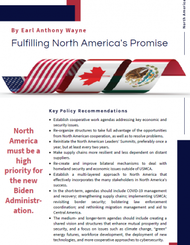
Re-building a complex partnership: The outlook for U.S.-Mexico relations under the Biden administration. Fulfilling North America's Promise, by Earl Anthony Wayne, Career Ambassador (ret). North America must be a high priority for the new Biden Administration. President Biden understands well the issues, having devoted considerable time to the region as Vice President. However, sadly, given the Trump administration's approach, mutual trust has suffered badly with both neighbors. President Joe Biden, Canada's Prime Minister Justin Trudeau, and Mexican President Andrés Manuel López Obrador, known as AMLO, should take full advantage of Biden's arrival to rebuild confidence and establish cooperative work agendas on key economic and security issues. Looming challenges posed by Central American migrants heading north and Mexico's decision to undermine cooperation against drug trafficking only make the case stronger for focused attention. The Biden team should re-organize structures to take full advantage of the opportunities from North American cooperation as well as to... (read more)

Charter Oak hosting 'Uncaged Art,' an exhibit of detained migrant children's art. When immigrant children are detained in jails on the border, not knowing where their families are, what do they think of all day, while waiting to find out what will become of them? That is the focus of a virtual exhibit opening Jan. 26 at Charter Oak Cultural Center in Hartford, and the title of the exhibit tells it all. "Uncaged Art: Tornillo Children's Detention Center" features dozens of artworks created by children in a now-closed tent city concentration camp just south of El Paso, Texas. A recurring theme in the artworks: They want to escape the cages, see something or someone familiar, go to church and play with friends. "In the center, the kids played soccer one hour a day. It was the only time they got to be outside," said Dr. Yolanda Leyva, a history professor at University of Texas at El Paso, who curated the exhibit. "It was the part of the day they looked forward to the most." One of the artworks is a recreation of a soccer field made with old boxes and... (read more)
Published: January 22, 2021
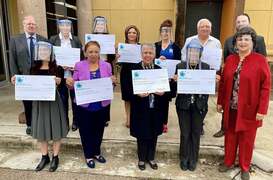
The Laredo Area Community Foundation Board of Directors awarded $50,000 to 10 different non-profit organizations in December 2020. The outreach grants were established for operating funds to those area non-profits impacted by the Covid-19 crisis. Applications were made available to all area charitable organizations in the fields of arts & culture, education, environment, health and social services. The Laredo Area Community Foundation acts as a driving force to develop a permanent endowment, to assess and to respond to emerging and changing community needs, to provide a vehicle and service for donors with varied interest and levels of giving, and to serve as a resource catalyst for charitable activities in the community.
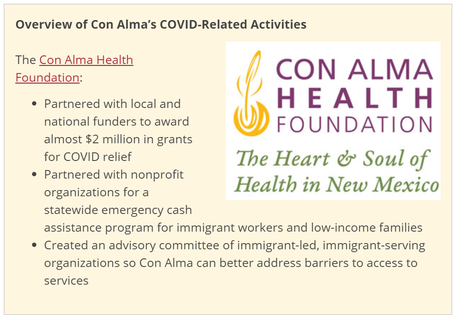
Con Alma Health Foundation: Health equity and COVID relief. Q&A with Dolores E. Roybal, executive director of Con Alma Health Foundation. The first of four articles in the series During Pandemic, Rural Health Foundations Provide Financial Support, Technical Assistance, and Other Services. What is your foundation doing to support rural communities during the pandemic? Con Alma's mission is very much aligned in being aware of and addressing health rights and needs of the culturally and demographically diverse peoples and communities of New Mexico. What that means is that we have a focus on rural areas and communities of color from a health equity framework. As a health equity foundation, we are a statewide funder and have a big interest in working with underserved populations and helping to address gaps in services and needs. When COVID-19 hit our state and country and the world, because we're a private foundation we were able to pivot very quickly in terms of... ((read more)

The Bush School of Government & Public Service launches inaugural classes in Washington, DC. Texas A&M University's Bush School of Government & Public Service is launching its first classes at its new Washington, DC, teaching site. More than a dozen students have enrolled in classes in the Master of International Policy (MIP) degree program. Student orientation for the inaugural class takes place on Thursday, January 14, 2021, at 6 p.m. at the Bush School in Washington, DC. Classes begin on Tuesday, January 19, 2021. Due to current COVID-19 public health concerns, classrooms have been modified to promote social distancing during in-person learning. Students will be required to wear a face mask. Installation of protective shields will enable faculty to teach in-person classes while practicing current Centers for Disease Control COVID-19 health and... (read more)

Meet Melissa Floca, the Kroc IPJ's New Program Officer for Cross-Border Initiatives. In December 2020, Melissa Floca joined the Kroc School's Institute for Peace and Justice (Kroc IPJ) as Program Officer for Cross-Border Initiatives. In her role at the Kroc IPJ, Melissa will develop a portfolio of research and programming focused on creating a peaceful and inclusive U.S.-Mexico border region. To help the community get to know her better, Melissa answered the following questions about her career and life, and the path that led her to the Kroc School. What are the highlights of your career that led you to the Kroc School? After graduating from college, I decided to go to Mexico for six weeks to volunteer and take Spanish classes. That decision, over 16 years ago, set me on the path that brought me here. Before moving to San Diego, I spent a number of years in Mexico working in the private sector. As a consultant at McKinsey & Co. in Mexico City, I had the opportunity to work with clients in government and at... (read more)
Published: December 16, 2020
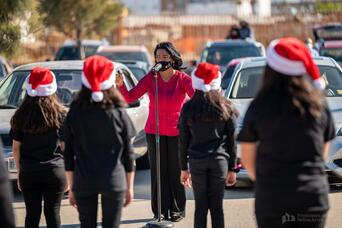
Antidote to the COVID-19 Blues in Tijuana. It was a spectacle of sights, sounds and beeping horns on December 6 as Tijuana's cultural arts organization, Promotora de las Bellas Artes, staged the city's first drive-in, COVID-safe concert to bring some much needed joy during this unusual holiday season. The concert was a festive blend of South African, Mexican, Cuban and Christmas music featuring Sharon Katz & The Peace Train band, vocalist Samantha Garcia, and one of the youth choirs of Promotora's community outreach program. After only seeing one another and practicing via Zoom since March, it was a cheerful, but masked and socially-distant reunion, for the young singers who are trained by the Cuban conductor, Daria Abreu Feraud. This concert was graciously hosted by El Trompo Interactive Museum in its parking lot. Promotora de las Bellas Artes has been providing empowering arts programs in vulnerable areas of Tijuana for over 28 years.
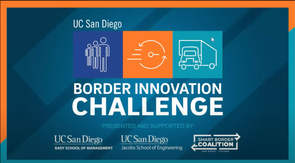
The Border Innovation Challenge 2020 Competition Summary. The Border Innovation Challenge focuses on bringing to the spotlight promising solutions and technologies to meet the efficiency and security challenges of the regions ports of entry. The competition is led by UC San Diego's Rady School of Management with support from the Jacobs School of Engineering's Institute for the Global Entrepreneur and is sponsored by the Smart Border Coalition. The competition was open to students faculty, staff and recent alum (within 5 years of graduation) from colleges and universities along the US/Mexico border. The final event on December 1st was hosted by Alan Lilienthal, host of the KPBS podcast "Port of Entry" and included judges from outside organizations that were selected by Rady, IGE and SBC. Judges evaluated each presentation on technology/product, market opportunity, and impact on border issues/security efficiency. In addition, the audience chose their favorite. The winners were: Grand Prize ($7,000) - Luna Diagnostic, a rapid and affordable COVID-19 diagnostic at the border. Runner Up ($3,500) - Smart... (read more)

UTEP study forecasts favorable economic conditions for El Paso in next 30 years. The University of Texas at El Paso released its projections on El Paso's economy for the next 30 years. According to UTEP's Border Region Modeling Project (BRMP), projections are favorable for the border region in the coming years, despite seeing broad economic hardships during the pandemic. "Although the Borderplex regional economy is currently being battered by the unexpected global COVID-19 recession, long-run prospects for the region remain favorable," reads the report. "Historically, complete recoveries from severe downturns such as the current lockdown recession require five years." The new report is the first long-run economic forecast published by UTEP since 2010. It is co-authored by UTEP economics professor Tom Fullerton and BRMP associate director and staff economist Steven Fullerton. The report includes the region's... (read more)
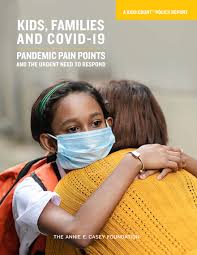
Kids, Families and COVID-19: Pandemic Pain Points and the Urgent Need to Respond. This KIDS COUNT policy report examines how households with children are faring during the pandemic. Its findings are primarily based on surveys conducted by the U.S. Census Bureau. The COVID-19 pandemic has caused widespread economic damage and isolated families in unprecedented ways. Parents have had to juggle both educating and caring for their children and millions of Americans have lost not just their jobs, but their sense stability, source of income and health care. To succeed now and after the pandemic, families must have good health, both physical and mental, and the health care to maintain it. They must also have food and the money to buy it; safe, stable housing and communities; education and the means to access it; and quality child care so that parents can work. Child well-being was slowly but steadily improving right after the Great Recession. Yet, troubling signs - indicating a halt or reversal of progress - were evident even before the coronavirus crisis took hold in the United States. One example: The share of children without health insurance ticked up from 5% in 2018 to... (read more)
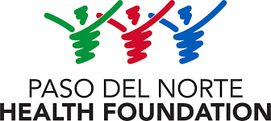
The Paso del Norte Health Foundation announces call for proposals for Community Outreach Worker (promotora outreach) programs designed to address the dynamic COVID-19 pandemic. The Health Foundation has a 25-year history of thought leadership, collaboration and grantmaking to promote health and prevent disease in the Paso del Norte region. As modern lifestyle chronic diseases, such as heart disease, diabetes, and cancer are leading causes death and disability, the Health Foundation's focus over this time has been on lifestyle behaviors, such as smoking, exercise, and nutrition that prevent or precipitate these diseases. Today, we face a communicable and infectious threat with the emergence of COVID-19. Non-profit agencies and units of government, including universities, that have demonstrated experience with promotora outreach and are within the Paso del Norte region are eligible to apply. The proposal must be submitted through the Paso del Norte Health Foundation online application system by noon on January 4, 2021.
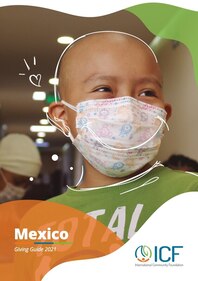
ICF announces new Mexico Giving Guide 2021. In this new publication, the International Community Foundation (ICF) provides a list of organizations that have been vetted by our due diligence and program teams. These organizations represent the "best of the best." you will be impressed by the dedication and impact of these organizations! ICF's Mexico Giving Guide is very interactive, so feel free to click on any of the links which will direct you to our "Friends of" Funds and other important material, such as simple ways to give and legacy giving. During this time, the International Community Foundation has been committed to supporting the communities they serve through rapid response grants, program assistance, and organizational capacity-building. In FY2020, ICF provided 243 grants to 110 organizations in Mexico, totaling over $10.4 million. This grant total reflects our ICF's collective impact in education, health, human services, environmental protection, arts and culture, and community improvements that help improve the daily lives of people from urban to rural areas of Mexico.
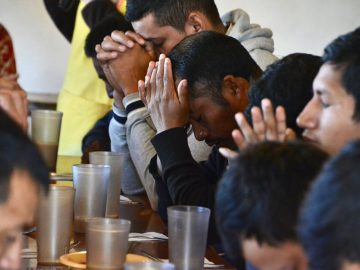
Rapid migrant expulsions strain Mexican border community. This year U.S. Border Patrol agents have used a CDC public health order to rapidly expel thousands of migrants into Mexican border towns with little consideration for their countries of origin or their fears of persecution. And while humanitarian aid organizations are collaborating to help support stranded migrants, the resources available to them in some border communities are still extremely limited. "We do what we can, but it's never enough," said Jaret Ornelas, an education coordinator with the Kino Border Initiative in Nogales, Sonora. "Part of it is because civil society is picking up the cost of what the governments of both the U.S. and Mexico should be doing." From March 21, when the CDC announced the public health order, until October, almost 60,000 people were expelled across the Southwest border under Title 42 - a CDC health order that allows U.S. Customs and Border Protection agents to immediately expel migrants into their country of last transit without processing them. The Trump administration has claimed the order was implemented to prevent... (read more)
Published: December 3, 2020
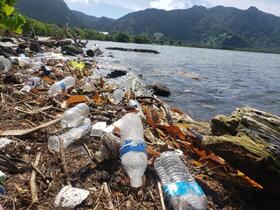
Grant opportunity for reducing marine litter at Mexico-U.S. or Canada-U.S. Borders. $5 million grant opportunity announced by NOAA. The United States National Oceanic and Atmospheric Administration (NOAA) has announced a grant opportunity with their Marine Debris Program (MDP), whose mission is to investigate and prevent the adverse impacts of marine debris. The North America Marine Debris Prevention and Removal Projects' grant opportunity will award up to $5 million in 2021 to fund projects that address marine debris issues in the U.S.-Mexico and U.S.-Canada border areas. The grant competition will prioritize: Projects that prevent or reduce the occurrence of marine debris; projects that remove marine debris from the environment; and projects that include collaboration between the United States with Mexico and/or Canada. If your organization is interested in submitting a proposal, these are due on January 29, 2021, 11:59 p.m. Eastern Time.
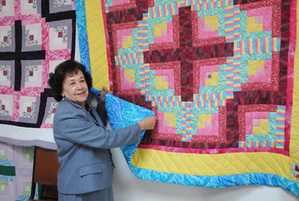
Elenita Porras, By Morgan Smith. Morgan Smith writes frequently on border issues and can be reached at [email protected]. "I go to all the most dangerous places," this calm but determined woman said to me as she maneuvered her old grey van through the streets of Juárez. It was July 28, 2010, my first trip to Juárez and I was scared. Then Elenita Porras stopped the van and pointed up a narrow alley. I could see a sign that said Hotel Rio Escondido and took a picture with a telephoto lens. "We're going in now. You have to see where I find all the young women who come to my program." She was referring to Reto a la Juventud, a program that she had started for young women with problems with drugs and prostitution. Nervously I followed. We entered a dark hallway and started up the stairs. At the first landing, she stopped and said, "This is where I found Esmeralda. She was dying." Elenita then explained that she had seen Esmeralda lying on the landing and had then... (read more)
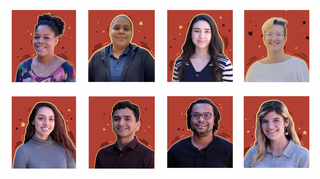
Public Allies Arizona graduates inaugural Tucson cohort and celebrates Allies' resilience in 2020. "This road has not been an easy one," Marsha Brogden said. "Coming from a small town across the U.S. with everything I could fit in my car was a big test of bravery for me. I told myself if I could at least get here, I could do anything. With no family, very minimal friends, and no job lined up, I didn't know what was in store for me ... I knew I wanted to do something of value." Enter Public Allies Arizona, where this year Brogden and seven other emerging leaders became the first class of Allies in Tucson. As they near their program graduation, the cohort is ready to celebrate the program milestone and reflect on the success that has furthered their futures and that of the program. The ASU Lodestar Center for Philanthropy and Nonprofit Innovation’s Public Allies Arizona program has changed the face and practice of leadership throughout Phoenix-area communities since 2006. In 2020 the program expanded to Pima County with a... (read more)
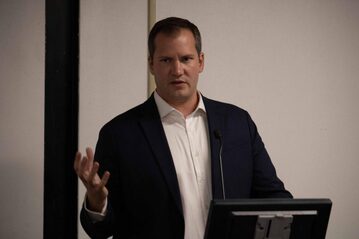
UTEP professor researches Mexico's immigration enforcement with help from grant. Jeremy Slack, associate professor of geography at UTEP, was awarded a $39,500 grant this past summer by Mexico's Consejo Nacional de Ciencia y Tecnología (CONACYT) and the University of Texas System for research on Mexico's immigration enforcement. Slack's project was one of the few social science projects that got funded this year. His research primarily focuses on analyzing Mexico's immigration enforcement practices, in order to understand how the country's government is stopping people from coming through the country and how it relates to people wanting to stay in Mexico or not. A caravan of Central American migrants has been making its way through Mexico to reach the United States. According to BBC News, in late 2018 the Enrique Peña Nieto administration offered temporary work permits to migrants who registered for asylum. But to qualify... (read more)
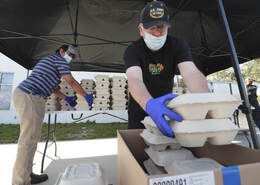
Mark Stuart: Nonprofits helped San Diegans during the pandemic. Let's help them at Thanksgiving. As someone who lived in Gettysburg, Pennsylvania, for seven years, on every Nov. 19, I pause to remember President Abraham Lincoln's shortest and arguably most profound speech: his address memorializing the deadliest battle of the Civil War. While seven score and 17 years have passed since Lincoln delivered his remarks, I cannot help but reflect on his poignant words. And while the circumstances are vastly different, that president's call for action remains relevant in this moment. There is still a "great task remaining before us," and we must all come together to get through this. As our country faces a worsening pandemic and greater racial and cultural divide, it is important that we remember that we are stronger together and will only heal when we do so as one. That's why I find hope and encouragement in the work of our nonprofit community this holiday season. Nonprofit organizations are... (read more)

The Center for Nonprofits & Philanthropy (CNP) at The Bush School of Government and Public Service is pleased to announce the launch of the Certificate in Nonprofit Leadership (CNL). This Certificate has been curated for current nonprofit professionals, on-the-ground volunteers within the sector, current or prospective board members, or those considering a transition to the sector. Current CNL courses cover topics including nonprofit leadership, strategic management, board governance, and performance management. The Certificate is earned by completing five Continuing & Professional Education courses, which are exclusively offered online and take only three weeks at a time to complete. Participants may also take courses individually, based on their interests. All courses are designed for practitioners and are self-paced within a module structure. Continuing Education Units (CEUs) are available with every completed course through the CNP's partnership with Texas A&M University's office of Continuing & Professional Education.
Published: November 19, 2020

Lidia S. Martinez recognized among Business Women of the Year. The San Diego Business Journal recognizes dynamic women business leaders who have contributed significantly to San Diego's workplaces and communities. Lifetime Achievement Award Honoree: Lidia S. Martinez. Lidia started her flight with Southweston July 16, 1990 - 30 years of great LUV! Her proud legacy she leaves behind is helping launch the National Multicultural Community Affairs department in 2003. Lidia was one of five individuals who successfully created the outreach platform for Southwest to invest and engage in communities of color. Their award-winning work opened a new opportunity to help create and launch the outreach efforts for all of the communities they now serve. Lidia helped her company set the standard for outreach and corporate social responsibility. In addition to Lifetime Achievement, winners will be announced for the following categories: Large Company, Medium Company, Small Company and... (read more)
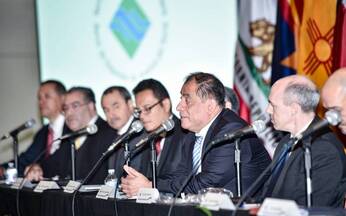
Cuellar: North American Development Bank is changing lives along border. U.S. Rep. Henry Cuellar has praised the work of the North American Development Bank. At a virtual board meeting of the bank, Cuellar said: "You have been changing lives on the U.S. side and on the Mexican side. That is why I am so supportive of NADBank, because of all the work you have been doing." Cuellar made his remarks from Mission, Texas, while the bank was holding its meeting in San Antonio. He connected with the board via Zoom. Cuellar noted how the reauthorization of NADB had occurred through the inclusion of language in the United States-Mexico-Canada Agreement. At the same time, more capital was added, allowing the bank to fund more infrastructure projects along the U.S.-Mexico border. Cuellar said his only request, as the reauthorization took place, was that NADB streamline the process by which projects and funding are approved. "We got it done," Cuellar told the bank's board of directors. "We needed to up the money on capitalization. I always had money there but without the... (read more)

Tracy J. Yellen Recognized by Texas CEO Magazine. Tracy J. Yellen, CEO for the Paso del Norte Community Foundation and the Paso del Norte Health Foundation, was recognized by Texas CEO Magazine for her leadership responding to the COVID-19 pandemic. Ms. Yellen was among 25 Texas-based CEOs - and two El Pasoans - recognized by the magazine for rising to the challenges brought on by the pandemic - shifting business priorities and responding to community needs. Ms. Yellen led the Paso del Norte Community Foundation and Paso del Norte Health Foundation in their work providing health information, establishing funds to support the most vulnerable in the community, and providing grants to nonprofit organizations working on the frontlines. The Paso del Norte Health Foundation is celebrating 25 years of improving health and preventing disease in the Paso del Norte region. The Paso del Norte Community Foundation is a trusted partner for your charitable giving and a growing community of philanthropy. The foundation works with individuals, families, corporations, foundations and nonprofit organizations to improve health, education, social services, economic development and quality of life in the binational, tri-state region.

Please join EPA and Border 2020 program partners at various upcoming meetings in the border region. All meetings during this time are virtual due to COVID-19 challenges. See the Border 2020 calendar for more information and meeting updates. United States-Mexico-Canada Agreement (USMCA) Meeting, November 20, 2020 via Microsoft Teams, 10am to 11:30pm PT. For questions, reach out to Gabriela Baeza-Castañeda, [email protected]; San Diego - Tijuana Air Quality Task Force Meeting, December 16 2020, 10am to 12pm PT via Zoom Video Communications. Simultaneous interpretation will be available. For questions, reach out to Ryan Atencio, [email protected]. Arizona- Sonora Waste and Enforcement Task Force Meeting, December 9, 2020, 10:30am to 12pm PT- via TBD. Simultaneous interpretation will be available. For questions, reach out to Emily Pimentel, [email protected]

Sempra to build LNG export facility in Baja. Sempra Energy is getting its much-desired liquefied natural gas export facility on the Pacific Coast of Mexico. The San Diego-based energy giant announced Tuesday a pair of its subsidiaries will build an export component to an already existing liquefied natural gas, or LNG, facility on the Pacific Coast of Baja California. When construction is completed, the Energía Costa Azul terminal near Ensenada will send natural gas by cargo ships to energy-hungry markets in Asia. Justin Bird, the CEO of Sempra LNG, said the announcement comes just one day after the company received the final permit needed from the Mexican government, which took about one year to obtain. "I'm ecstatic to get it done," Bird said. Last week Mexican President Andrés Manuel López Obrador told reporters the permit from the country's Secretariat of Energy would be granted to Sempra, provided the company helps the government take excess gas off its hands. Bird said the permit did not come with conditions to buy gas or develop other... (read more)
Published: November 5, 2020

Searching for innovative solutions in the region we share. SDSU's annual binational RE:BORDER Conference promotes collaboration and open dialogue to address challenges in the California-Baja California transborder region. Less than 22 miles from the San Diego State University campus is the San Ysidro Land Port of Entry at the U.S.-Mexico border. It is the busiest land port of entry in the Western Hemisphere with about 70,000 vehicles and 20,000 pedestrians crossing into the U.S. each day - including SDSU students. Though the physical border represents the physical separation of two sovereign nations, the daily exchange of economic and cultural activity through thriving bilateral trade and cross-border travel signifies that the transborder region of California and Baja California remains closely connected. Both are connected by their economies, societies and culture. Still, evolving challenges related to education, politics, public health, migration and innovation face the... (read more)
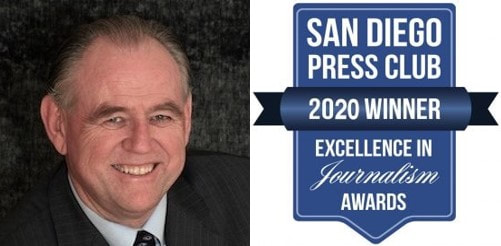
Carl Nettleton honored with top awards for journalism. San Diego's finest reporters, writers, artists, photographers, videographers and public relations professionals were honored Tuesday, Oct. 27, with the region's top awards in journalism and public relations communications at the San Diego Press Club's 47th annual Excellence in Journalism Awards. More than 500 awards in 130 categories and 10 divisions were announced. The online awards program streamed live from the San Diego Automotive Museum in Balboa Park on Facebook and Twitter. "The San Diego Press Club Excellence in Journalism Awards celebrates professionals whose research, writing, reporting and visual skills shed light on newsworthy topics that matter to us all," said Albert Fulcher, 2020 Press Club president. Carl Nettleton received two awards in the San Diego Press Club Excellence in Journalism competition last night. First place in the category Online and Daily Newspapers: Environment for the Triple Pundit Story "Is a Climate Pandemic the Future Reality?" and an Honorable Mention in the category PR, PIO, and Trade Publications: Newsletter for "The Nett Report."

San Diego Grantmakers to host Build Better Summit on 11/17. San Diego Grantmakers is joining forces with the San Diego Regional Economic Development Corporation to bring together leaders from across sectors for a first of its kind virtual summit built to challenge thinking and inspire action. Join San Diego Grantmakers for a day-long exploration of the systems, strategies and resources it takes to build an economy rooted in equity for the San Diego region. Summit speakers will outline a clear vision of an equitable economy, and the policies and approaches to move us there, sharing the values they stand for, the issues and communities they stand with, and the systems they stand up to. Hear from experts on the foundational elements of an inclusive, equitable economy about the building blocks it takes to achieve. Learn from inspiring leaders of cross-sector collaborations that are changing systems towards an equitable economy, and be inspired by artistic performances from community members who will illuminate other dimensions of need they are witnessing. Leave with a clear understanding of practical solutions you can implement immediately towards resourcing an equitable economy, and a healthy dose of inspiration from the talented leaders that will bring these ideas to life.
Published: October 21, 2020
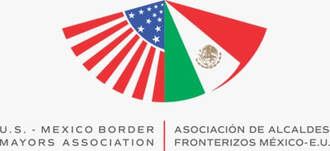
9th annual U.S.-Mexico Border Mayors Summit. This year the San Diego-Tijuana megaregion is once again excited to host this important event with mayors from both sides of the border. The summit, co-chaired by the cities of San Diego and Tijuana, will focus on COVID-19, the response of border cities and the economic impact for the border region. Here is a tentative agenda of the summit activities (all times PST). Presenters and keynote speakers include: Denice Garcia, Deputy Director, Department of Government Affairs, City of San Diego; Rafael Fernandez de Castro, Director, Center for U.S.-Mexican Studies, UC San Diego; and Jaime Sepulveda, Haile T. Debas Distinguished Professor of Global Health and Executive Director of Institute for Global Health Sciences, UC San Francisco. The Border Mayors Panel on COVID Response include Panel Co-Chairs Consul Generals Sue Saarnio of Tijuana and Carlos Gonzalez Gutierrez of San Diego, Mayor Armando Cabada, City of Ciudad Juarez, Mayor Kevin Faulconer, City of San Diego, Mayor Dee Margo, City of El Paso, Mayor Trey Mendez, City of Brownsville, and Mayor Karla Ruiz McFarland, City of Tijuana. 27 oct 2020 10:00 AM (PST).
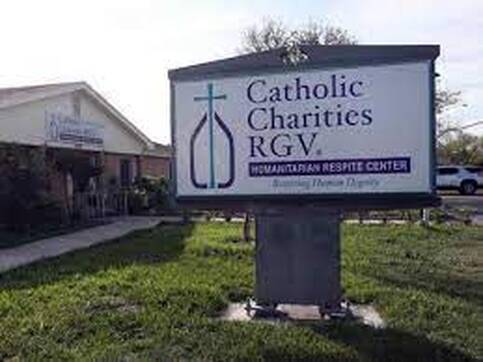
Catholic Extension, Kino Border Initiative host virtual event along border. Days after Pope Francis issued his encyclical "Fratelli Tutti" calling for people of goodwill to care for one another as brothers and sisters and not to erect new borders between people and nations, Catholic Extension announced a 2,000-mile act of prayer along the U.S.-Mexico border. Chicago-based Catholic Extension is partnering with the Kino Border Initiative, a ministry funded by Catholic Extension in the Diocese of Tucson, Arizona, to host and livestream "The March of the Children Seeking Asylum". The two organizations invited the public to participate in virtually "joining hands and hearts" in prayer to show unity and support for asylum-seekers. "As Catholics, we affirm the inherent human dignity of every person and the ability of migrants to seek security and safety for themselves and their families in the United States. Catholic Extension respects the right to seek... (read more)
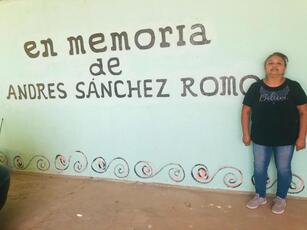
La Luz de la Esperanza. By Morgan Smith. It was a great pleasure to be in Palomas, Mexico again. People were wearing masks and the town looked surprisingly prosperous. Even though the Pink Store had few customers, there were stores open on the main street and even a new restaurant called Mr. Sushi, Estilo Sonora. After a decade of border trips at least once a month, I hadn't been across since February and things can change rapidly. For example, I visited Reina Cisneros and her family, a family I have been helping for years and the boy, Rubén had grown so tall I didn't recognize him. He is the serious one of the family, the student and now is two years from completing high school. Can I find a way whereby he could go to college? His handsome older brother, Enrique dropped out before finishing high school, went to work in a bar and was stabbed in the neck and has barely survived. The key, however, was finding Esperanza Lozoya and her food program, La Luz de la Esperanza. I first learned of Esperanza through her sister, Lupita Otero who ran a food band in Columbus almost ten years ago. Their father, Andrew Sanchez was a humanitarian leader on the border and they obviously inherited his... (read more)
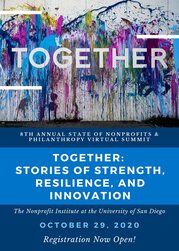
The Nonprofit Institute invites you to the 8th Annual State of Nonprofits and Philanthropy Summit, on October 29th: Together: Stories of Strength, Resilience, and Innovation. This year, in the spirit of our theme: TOGETHER: Stories of Strength, Resilience, and Innovation, The Nonprofit Institute is pleased to present the 2020 State of Nonprofit and Philanthropy Report and the 2020 Equinox Project's San Diego Regional Quality of Life Dashboard Report. We will also be engaging an expert panel of community voices to talk about new ways to track data on the state of urban neighborhoods in order to transform policy for populations that are disproportionately under-resourced. This year we bring together both reports highlighting their interconnections. We also explore opportunities to bring new quality of life data to the forefront with the RISE State of Urban Neighborhoods (SUNRISE) dashboard. Showcasing key trends in our region's quality of life, with a critical focus on issues of equity and the impacts of the pandemic. We will spotlight the roles of nonprofits and philanthropy in the region, and focus on strengthening our communities' response to the current crisis, with stories of strength, resilience and innovation.
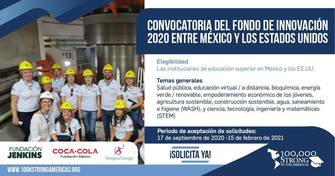
Expand student exchange & training opportunities. 100,000 Strong in the Americas uses the principle of leveraged innovation with higher education institutions (HEIs) that demonstrate the greatest commitment and innovation toward increasing study abroad opportunities between the United States and countries in the Western Hemisphere. In applying for the Innovation Fund grants, HEIs will be asked to demonstrate how they will assert leadership in implementing the innovations proposed, how they will address on-campus barriers to student mobility, how they will maintain student engagement, and how they will commit to making concrete changes to expand access to study abroad as sending and/or hosting institutions. The 2020 Mexico-U.S. Innovation Fund Competition is made possible by the Mary Street Jenkins Foundation, the Coca-Cola Mexico Foundation, and Sempra Energy. Click here for eligibility and themes. The intent of the 2020 Mexico-U.S. Innovation Fund Competition is to award up to eleven (11) Innovation Fund Grants of up to $25,000 each to selected proposals. Informational Webinars: Wednesday, October 21, 2020 at 2:00 p.m. ET English - Register here! Thursday, October 22, 2020 at 2:00p.m. ET español - ¡Inscríbase aquí!
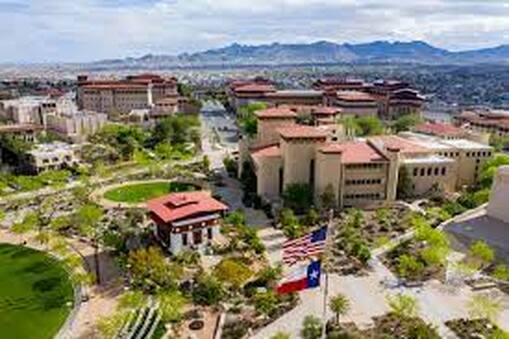
UTEP launches inaugural institute to boost career readiness. Career opportunities for students at The University of Texas at El Paso will be enhanced with the introduction of the campus' Employer-led Professional Development Institute (EPDI). The institute will provide students with opportunities to gain valuable professional insights and skills while interacting with more than a dozen global and local employers.The EPDI is one of the initiatives and programs available to UTEP students through funding by the Coronavirus Aid, Relief and Economic Security (CARES) Act. A team of faculty and staff led by Laura Uribarri, assistant dean of the College of Business Administration, designed the institute to provide UTEP students an opportunity to develop career readiness for internships and full-time career possibilities during the ongoing COVID-19 pandemic. "One of the silver linings of this difficult period we are in is that we have everyone much more comfortable with virtual engagements and, as a result, we... (read more)
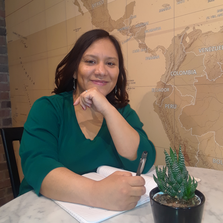
Announcing Program Director of Education and Opportunity Santa Fe: Sarah Amador-Guzmán. Sarah Amador-Guzmán joins the Santa Fe Community Foundation Team this week as Program Director of Education and Opportunity Santa Fe. Originally from El Paso, TX, Sarah has a Bachelor of Arts in Government and Foreign Languages from New Mexico State University and a Master of Science in Public Policy and Management from Carnegie Mellon University. Sarah lives in Santa Fe with her husband Juan, and two daughters, Valentina and Victoria. Her passion for Education Policy began a decade ago with her work at the New Mexico Legislative Education Study Committee, where she worked as a Fiscal Analyst overseeing the use of state funds in public education. She looks forward to helping Opportunity Santa Fe continue to flourish and navigate the challenges of this pandemic.
Published: October 8, 2020
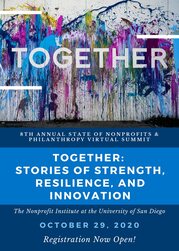
The Nonprofit Institute invites you to the 8th Annual State of Nonprofits and Philanthropy Summit, on October 29th: Together: Stories of Strength, Resilience, and Innovation. This year, in the spirit of our theme: TOGETHER: Stories of Strength, Resilience, and Innovation, The Nonprofit Institute is pleased to present the 2020 State of Nonprofit and Philanthropy Report and the 2020 Equinox Project's San Diego Regional Quality of Life Dashboard Report. We will also be engaging an expert panel of community voices to talk about new ways to track data on the state of urban neighborhoods in order to transform policy for populations that are disproportionately under-resourced. This year we bring together both reports highlighting their interconnections. We also explore opportunities to bring new quality of life data to the forefront with the RISE State of Urban Neighborhoods (SUNRISE) dashboard. Showcasing key trends in our region's quality of life, with a critical focus on issues of equity and the impacts of the pandemic. We will spotlight the roles of nonprofits and philanthropy in the region, and focus on strengthening our communities' response to the current crisis, with stories of strength, resilience and innovation.

Expand student exchange & training opportunities. 100,000 Strong in the Americas uses the principle of leveraged innovation with higher education institutions (HEIs) that demonstrate the greatest commitment and innovation toward increasing study abroad opportunities between the United States and countries in the Western Hemisphere. In applying for the Innovation Fund grants, HEIs will be asked to demonstrate how they will assert leadership in implementing the innovations proposed, how they will address on-campus barriers to student mobility, how they will maintain student engagement, and how they will commit to making concrete changes to expand access to study abroad as sending and/or hosting institutions. The 2020 Mexico-U.S. Innovation Fund Competition is made possible by the Mary Street Jenkins Foundation, the Coca-Cola Mexico Foundation, and Sempra Energy. Click here for eligibility and themes. The intent of the 2020 Mexico-U.S. Innovation Fund Competition is to award up to eleven (11) Innovation Fund Grants of up to $25,000 each to selected proposals. Informational Webinars: Wednesday, October 21, 2020 at 2:00 p.m. ET English - Register here! Thursday, October 22, 2020 at 2:00p.m. ET español - ¡Inscríbase aquí!
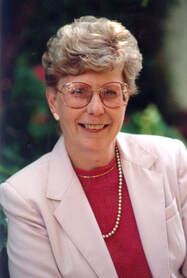
A Tribute to Myrna J. Deckert. For the lives she touched, contributions she made, and legacy she leaves. Myrna served as CEO of YWCA El Paso del Norte Region for more than 30 years, growing the organization from an annual budget of $150,000 when she joined in 1970 to over $35 million when she retired in 2002, making it the largest YWCA in the country. However, those numbers do little to actually illustrate the impact Myrna had on YWCA and the El Paso community. She was an incredible leader who is largely responsible for creating the YWCA we all know today. In her time as CEO, Myrna engaged thousands of leaders in supporting YWCA's mission of eliminating racism and empowering women. She built, grew, and improved YWCA programs so the organization could benefit the lives of countless people, including children, women, teens, and seniors. It was during her time that YWCA's Sara McKnight Transitional Living Center was founded. Myrna made it possible for that center to provide hundreds of women with a second chance at life. Myrna was also an incredible friend and role model. She inspired those around her to serve their community and her work impacted and benefited thousands of people. Anyone who has been served or touched by YWCA El Paso in the last 50 years has been impacted by Myrna Deckert. She never stopped loving the organization she served for almost four decades and she will be greatly missed.

Learning from two decades of grantee relationships. By Emily Young, Executive Director, The Nonprofit Institute at the University of San Diego. Decision-makers such as elected officials and institutional funders have historically ignored and underinvested in BIPOC communities. Fed up, those communities are calling on grantmakers to address the disproportionate impacts they are enduring from the COVID-19 pandemic, public health disparities, climate change, and more. Conscientious funders are asking big, long-overdue questions: how do grantmaking policies, practices, and cultures play a role in perpetuating imbalances in power and resource allocation? How can we, as grantmakers, address that? One answer: stronger relationships with grantees. The importance of strong funder-grantee relationships isn't a new concept, of course. For two decades, the Center for Effective Philanthropy (CEP) has worked with funders to assess and improve the strength of their relationships - and most recently advocated for funders to "listen well and listen differently to their grantees" in order to rise to the needs of the current moment. Members of the peer-to-peer initiative Trust-Based Philanthropy encourage funders to proactively work toward "a more equitable... (read more)
Published: September 23, 2020

Michael Layton appointed to Johnson Center. Michael Layton, Ph.D., joined the Johnson Center on September 1, 2020 as the second holder of the W.K. Kellogg Community Philanthropy Chair. Before he began in this new position, Tory Martin, director of communications and engagement, sat down virtually with Dr. Layton to hear more about his expectations for the role and how he feels philanthropy can be a critical change-maker in communities. Meet Michael Layton. TM: Michael, welcome to the Johnson Center! Tell us a bit about yourself. ML: First, I am truly honored and deeply grateful by my appointment as the W.K. Kellogg Community Philanthropy Chair and to become part of the Johnson Center and Grand Valley State University. Throughout my career, I have moved between nonprofit and philanthropic practice and academia, and this position at this Center is - for me - the best of both worlds. Personally, I have felt warmly welcomed by my colleagues at the Johnson Center, despite the restrictions we face during the current pandemic. I am excited to become part of the Grand Rapids community and get to know Michigan. I know my canine companion, Frankie, is eager to explore the many parks in the area. Share a little about... (read more)
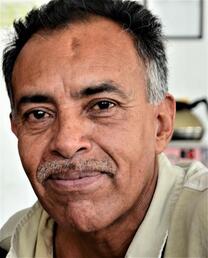
Julián Cardona, the conscience of Juárez. By Morgan Smith. "Julián, you have friends everywhere," I said to Julián Cardona as he came running over to me. It was May 5, 2012 and we were taking photographs in an area of abandoned houses near downtown Juárez. A truck had pulled up next to Julián and I had watched him talk intently with the driver and a passenger. He grabbed my arm. "No, you don't understand. They're cartel members, telling us we better leave. Let's go." We jumped in his car and raced off. This was Julián, soft spoken, humble but always ready to go to the most dangerous places. Now this extraordinary photographer who documented Juárez in its darkest days is gone, a sudden death at far too early an age. Born in Zacatecas in 1960, Julián came to Juárez at an early age and never left. When the author and colleague, Charles "Chuck" Bowden urged him to move to El Paso during the most dangerous years, he said, "No, this is my city. And the food is better." He grew up with grandparents, never got past the ninth grade, taught himself photography and worked as a photojournalist for El Fronterizo, El Diario and Reuters. He collaborated with Bowden on several books, had...(read more)
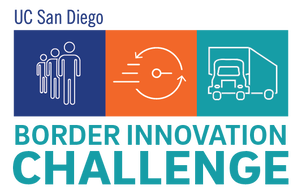
Border Innovation Challenge, Second Edition. Application deadline: October 10, 2020. The Border Innovation Challenge, now in its second year, is a business plan competition focused on the challenges presented by the international border. This competition focuses on bringing to the spotlight promising solutions and technologies to meet the efficiency and security challenges of the region's ports of entry among others. Supported by the Smart Border Coalition, the program is presented through a partnership of the Rady School of Management and the Jacobs School of Engineering, and is open to students, faculty, staff, and recent alumni (no more than 5 years post-graduation) from universities along the US/Mexico border region. The competition awards cash prizes totaling $12,500 to support new innovative ideas that meet challenges related to wait times, cargo operations, port management,use of current infrastructure, financial impact, water pollution, and COVID-19 public health related issues that impact border operations. Social innovation ideas and those with or without prototypes are encouraged to apply! What challenges are you looking to solve? Accurate... (read more)
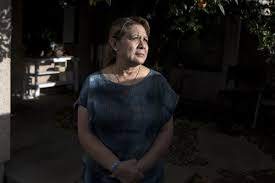
"There Is No Mercy." As the coronavirus descended on the border, the Trump administration escalated its crackdown on asylum. A short walk from the border, in the Mexican city of Nogales, Sonora, sits a modest building packed with long, cafeteria-style tables. The comedor, as it's known locally, is clean and inviting, with space for up to 60 guests. The walls are decorated with hand-painted images of Christ and his apostles, done in the style of a children's book. Tucked away in one corner of the room are medical supplies, stacked and organized in plastic bins. Sister María Engracia Robles Robles, a nun with the Missionary Sisters of the Eucharist, floats from the kitchen into the common area, serving hot breakfast and lunch to anyone who needs it. The comedor was born out of work Robles and two other nuns began in 2006. At the time, Arizona was the epicenter of migration along the border and the site of a major humanitarian crisis. While people headed north were dying in the desert in record numbers, a growing deportation machine was sending... (read more)
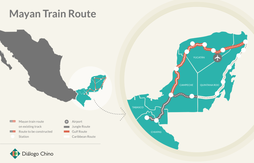
Mexican president targets U.S. philanthropy, but it's Mexican civil society that could take the hit. By Michael Layton. On Friday August 28, 2020, four days before I officially became the W.K. Kellogg Chair for Community Philanthropy at the Johnson Center, I knew what the topic of my inaugural blog for this platform would be. That day, Mexico's president, Andrés Manuel Lopez Obrador, or AMLO, as he is known, shared the results of what he termed an "investigation" into the funding of nine non-governmental organizations (NGOs) who have opposed his principal infrastructure project, the Mayan Train (Tren Maya) (Presidency of the Republic, 2020a). AMLO claimed that the organizations had clandestinely received almost $14 million in grants specifically to oppose this project from five U.S. foundations, including Ford, Rockefeller, the National Endowment for Democracy, ClimateWorks, as well as the W.K. Kellogg Foundation. It is important to state upfront that all the recipient organizations vehemently deny his allegations. Given that my chair was endowed jointly by the W.K. Kellogg Foundation and the Kellogg Company 25-Year Employees' Fund, and that I have worked over the last two... (read more)

Local pizzeria near border 'struggling' as US-Mexico travel restrictions extended into October. A San Diego-area pizza restaurant manager says revenues are down 80% at his shop located near the U.S.-Mexico border since travel restrictions were put in place this year to limit the spread of the coronavirus. "We're struggling, we're struggling day to day," said Enrique Cortez, manager of Maya's Gourmet Pizza in San Ysidro. The border has been closed for all nonessential travel since mid-March. Closures have been extended each month since as public health officials largely have struggled to get the pandemic under control through much of the spring and summer. Restrictions were scheduled to be lifted early next week until officials Thursday announced they again are being extended, now until Oct. 21. For nearby businesses like Maya's, it's been rough, particularly in a year with plenty of other difficulties for restaurants. "You normally see like a 100 people per minute walking by," Cortez said. "Right now, 10, if we're lucky, so it's pretty hard." But Gustavo De La Fuente, executive director of the San Diego-Tijuana Smart Border Coalition, said that from a public health standpoint, travel restrictions are "valid" to limit the spread of the virus. "It is hard to digest, I guess, in a... (read more)

Philanthropy Southwest 2020 Annual Conference: Roadshow Edition. It's one day. Eight cities. A million ways to impact. For the past 72 years, Philanthropy Southwest has built a legacy of connection and 2020 is no exception. For the first time in their history, Philanthropy Southwest is bringing the 72nd Annual Conference to your doorstep. Gather regionally in one of eight cities across the Southwest to connect in-person with other funders and collectively livestream three general sessions and headline speakers. This year's format has been adapted to fit the needs of PSW members with local in-person and digital streaming options all together on one day: October 21, 2020. Join a small, in-person gathering of regional funders in a city near you: Houston, Denver, Tulsa, Fort Worth, Little Rock, Albuquerque, Midland or Phoenix. Don't forget to register by Sept. 30 for the early bird discount.

Binational showcase highlights street art in pandemic times. Muralists in San Ysidro and Tijuana participate in binational exhibits. The pandemic is preventing people from visiting galleries, so why not bring art to the streets? It was under such a premise that the binational exhibition of urban art Muros/Walls was born, organized by the Front Gallery from Casa Familiar and the Municipal Institute of Art and Culture of Tijuana (IMAC). The collection brings together the talents of San Diegan and Tijuanan muralists. The original idea was for muralists from South County to cross the border to paint on walls in Tijuana and vice versa. However, this exchange was cut short by land travel restrictions imposed by the Mexican and U.S. governments to reduce the spread of COVID-19. In San Ysidro, artists Jorge Mendoza, Juan Carlos Galindo, Fifí Martínez, Michelle Guerrero and Mary Jhun participated. In Tijuana, Ariana Escudero, Paulo Villamil and Javier Farrera joined. On the U.S. side... (read more)
Published: September 10, 2020

Announcement from Santa Fe Community Foundation Board Chair Lisa Enfield. Dear Santa Fe Community Foundation fundholders, partners, and friends: On behalf of the Santa Fe Community Foundation Board of Directors, I am pleased to announce that Sue Coliton has been appointed Interim President and CEO while the Board conducts a national search for its next CEO. The Foundation has been fortunate to be led by Vice President Christa Coggins, who assumed the role of Acting CEO when Bill Smith stepped down. We owe a debt of gratitude to Christa and the entire management team for filling in during a very critical time to ensure Foundation activities and COVID-19 responses continued without interruption.Sue's experience and capabilities make her an ideal leader during this transition period while the search committee identifies the right person to launch the Foundation into its next 40 years. Sue is a respected philanthropy executive who has had an active career in Seattle. Relocating to Santa Fe, Sue has been a board member of the Santa Fe Community Foundation, serving on... (read more)
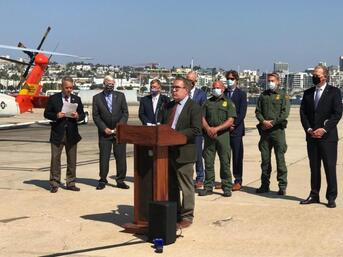
EPA announces short-term projects to plug border sewage flow. Emphasizing the "unprecedented" bipartisan cooperation between local and state governments, Border Patrol and the International Boundary & Water Commission, EPA Administrator Andrew Wheeler announced short-term projects Wednesday to plug the international sewage flow across the U.S.-Mexico border. The two projects - which will cost $25 million and are funded by the EPA's Border Water Infrastructure Program - will control sewage and wastewater, sediment and trash that flows from the Tijuana River across the U.S.-Mexico border into San Diego, Wheeler said during a press conference Wednesday at the U.S. Coast Guard station in San Diego. They are separate from the $300 million earmarked in the U.S.-Mexico-Canada Agreement for wastewater infrastructure projects along the U.S.-Mexico border. San Diego leaders are lobbying for most of the USMCA funds to be spent to stop the sewage flow from Tijuana, something Wheeler acknowledged Wednesday, saying "most of it will come here." "We are working with Mexico and want to make sure we are... (read more)
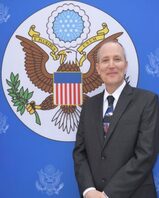
Eric S. Cohan appointed as Consul General in Cd. Juarez, Mexico. Eric S. Cohan began his tenure as the Consul General of the United States in Ciudad Juarez in August 2020. He came to Mexico from Islamabad, Pakistan, where he was the Minister Counselor for Consular Affairs. Prior to that, he worked as a senior advisor in the Bureau of Consular Affairs in Washington, and before that, he spent four years as the Deputy Principal Officer / Consular Section Chief in Ciudad Juarez. Mr. Cohan's earlier assignments were in Colombia, the Dominican Republic, Ecuador, Venezuela, the Office of Visa Services, and the Bureau of Legislative Affairs. Before entering the U.S. Foreign Service, Mr. Cohan was an investigator and supervisory investigator with the U.S. Equal Employment Opportunity Commission, taught math and science in Arkansas, and worked as an engineer in Pennsylvania. He holds a bachelor's degree in Engineering from the University of Virginia and a master's degree in National... (read more)
Published: August 27, 2020
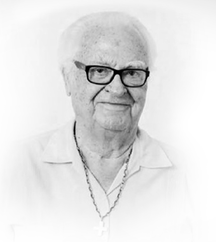
BPP mourns passing of business leader and philanthropist Don Enrique Robinson Bours Almada. The Board of Directors and staff team of the U.S.-Mexico Border Philanthropy Partnership extends our deepest sympathy to the Robinson Bours family on the passing of their loving and honorable father and grandfather, Don Enrique Robinson Bours Almada, founder of Bachoco and the Fundacion Tichi Munoz. Mr. Robinson Bours was a leading philanthropist in Mexico, where he and his family support initiatives in arts and culture, education, environment, health, and direct support to many nonprofit organizations in Cd. Obregon, across the State of Sonora, and throughout Mexico and the United States. Through his generosity and humility, Don Enrique has left an indelible mark on philanthropy for generations to come. May he rest in eternal peace and perpetual light shine upon him. Enrique Robinson Bours Almada was born on April 23, 1927 in Navojoa, Sonora. His business vision made him turn from the automotive industry to the poultry industry, and together with his three brothers Juan, Javier, and Alfonso, formed what would be the most important livestock production company in Mexico. Bachoco was founded in 1952 on an egg production farm installed in Ciudad Obregón, Sonora, as a result of Enrique's initiative. However, his brothers also had knowledge about the sector; Alfonso was a farmer, Javier distributed machinery and Juan specialized in fertilizers. The company grew rapidly under the guidance and vision of the Robinson Bours Almada brothers. In the 1960s, the company began expanding in northern Mexico and in the 1970s began the diversification of its poultry production, venturing into raising and growing chickens. The firm was officially incorporated as Fomento Industrial y Agropecuario del Yaqui on April 17, 1980, which is currently Industrias Bachoco. After 47 years of work in the company, Enrique Robinson Bours Almada, left the presidency of the Bachoco board of directors and handed over control to... (read more in Spanish)
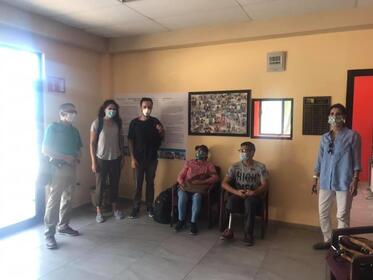
Arizona Sonora Border projects for inclusion (ARSOBO). A binational collaboration program on the US-Mexico border is training and employing individuals with disabilities to construct medical devices that enable others with disabilities to gain employment. Individuals in wheelchairs built an all-terrain chair appropriate for the rough walkways so prevalent in many Mexican cities as well as in most rural areas. Hearing impaired youth assist in a hearing clinic that provides hearings aids for those who need them. ARSOBO began as a joint venture between DIF (Desarrollo Integral de la Familia) and the University of Arizona's Sonoran UCEDD (University Center for Excellence in Developmental Disabilities). Since opening in 2009, 520 RoughRider wheelchairs have been constructed (one-third customized for children with neuromuscular problems), 356 individuals now have a prosthetic limbs enabling them to walk without crutches and seek employment; and 708 individuals have an appropriate high-quality hearing aid and can now connect with others. People who receive a medical device pay only what they can afford. For more information, contact Alma Cota, Executive Director, FESAC Nogales.
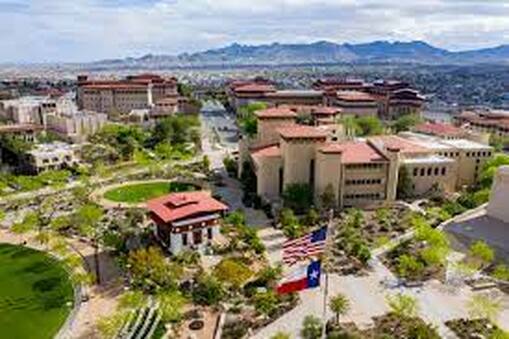
Class acts: Two UTEP faculty receive top teaching award. For two faculty members at the University of Texas at El Paso, countless hours of research, planning, mentoring, teaching and learning culminated with a prestigious teaching award for their passion and dedication to their profession. The University of Texas System Board of Regents honored Jessica Slade, Ph.D., assistant professor of instruction, teacher education; and Chuan (River) Xiao, Ph.D., associate professor of biochemistry, with one of the top teaching awards in Texas - The University of Texas System Board of Regents' 2020 Outstanding Teaching Award (ROTA). They are among 27 faculty members representing all 14 UT academic and health institutions to receive the award. "We are extremely proud of Dr. Xiao and Dr. Slade and the impact they have on our students," said John Wiebe, Ph.D., provost and vice president for academic affairs at UTEP. "They are outstanding examples of the many champions of student success at UTEP - faculty who work every day to foster student development and help students pursue their highest aspirations." The ROTA was established in 2008 to recognize faculty for their extraordinary classroom performance and innovation. It stands as one of the nation's largest awards programs that honors teachers in... (read more)

Founders of Girl Scouts, Mary Kay and Eleanor Roosevelt among USA TODAY Women of the Century. Surely, at some point in your life, you've enjoyed a box (or two, or three) of Girl Scout cookies. But do you know the story behind the organization and its founder, Juliette Gordon Low? You've probably seen Mary Kay makeup strewn across someone's vanity. Are you aware of how that mascara or lipstick got there, and the powerhouse business its founder built? You likely know that Eleanor Roosevelt was married to a U.S. president. But did you know about her deep passion for philanthropy? To mark the 100-year anniversary of women gaining the right to vote in America, USA TODAY, in consultation with an expert panel, put together its list of 100 Women of the Century, recognizing those who have significantly impacted their communities and country. The women below represent the categories of business, nonprofit and philanthropy. Born in Puerto Rico, Aida Alvarez was the first Latina to hold a Cabinet position as head of Small Business Administration in 1997 for President Bill Clinton. Before then, Alvarez held positions at... (read more)

The Nonprofit Institute at USD and United Way of San Diego County partner to offer the Nonprofit Board Service Certification Program. "We believe that nonprofit organizations can better achieve their missions by drawing on the skills, talents, and perspectives of a broader and more diverse range of leaders, and that the diversity of viewpoints that comes from different life experiences and cultural backgrounds strengthens board deliberations and decision-making." - BoardSource. Aligning with this belief, United Way of San Diego County is committed to recruiting and cultivating a group of demonstrated leaders who are diverse in their ethnicity, professional backgrounds, subject matter expertise, and cause area interests. Please complete the application below to be considered for participation in the program. This six week course will take place virtually from September 30 - November 4, 2020. The application deadline is September 9, 2020 and acceptance notifications will be sent by Monday, September 14, 2020. Upon acceptance into the program, a $1,000 program fee is due before the first training session.

Commentary: Some Mexicans can be as American as Bruce Springsteen. Some Mexicans can be as American as Bruce Springsteen. The U.S.-Mexico border spans nearly 2,000 miles from end to end, and behind the wall, there is a vast population of U.S. citizens. I'm not referring to the thousands of Americans from past decades that have decided to retire along Mexico's beautiful coasts. Nor am I talking about a growing American working class that has decided to move south due to the shortage of housing in San Diego, residents who, by moving to the Tijuana-Rosarito region, have found ways to stretch their salaries much further in an economy that has a far lower cost of living. With this move, these newly international residents can buy, rent affordably, and still drive back and forth across the border to their jobs in Southern California. According to Gustavo de la Fuente of the Smart Border Coalition, "the number of people crossing the San Diego-Tijuana-Tecate border in a typical month is 4.6 million, and the number of vehicles is slightly below 2 million. However, COVID-19 restrictions to non-essential travel have had a large impact on crossings, with 67% fewer... (read more)
Published: August 13, 2020
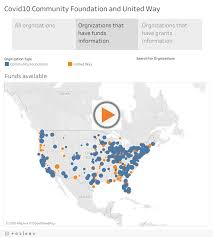
Response and relief funds by U.S. community foundations and United Ways. We are currently tracking the growth of COVID-19 funds managed by local United Ways and community foundations (those independent public charities that raise and distribute resources within a specific geography, often defined as a county, but usually a state or smaller). We are collecting data from organizational websites, Twitter posts, and news releases. As of June 30, a research team led by Charles Stewart Mott Chair on Community Foundations Laurie Paarlberg had identified 1,119 organizations supporting COVID-19 funds, with 244 funds being jointly supported in partnership with at least one other neighboring United Way or community foundation. As of June 30, we estimate that these funds have raised more than $1.05 billion and distributed at least $589 million to financially vulnerable individuals and nonprofits at the front of local response. (Both numbers are an estimate and under report the magnitude of community philanthropy as only 60 percent... (read more)
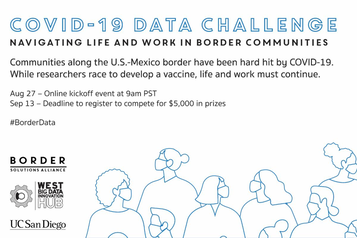
COVID-19 Data Challenge: Navigating life and work in border communities. Communities along the U.S.-Mexico border have been hard hit by COVID-19. While researchers race to develop a vaccine, life and work must continue. How can we use data to confidently and transparently decide what is safe? And how can we better understand risk levels in real-time and effectively communicate them to the public? Anyone can sign-up to participate in this data challenge organized by the Border Solutions Alliance and the West Big Data Innovation Hub. The kickoff is August 27 and project info sheets are due by September 13 to be eligible to compete in the pitch competition on September 27 for $5,000 in prizes. There is no specific format for project submissions. For example, a team could build an app or a website, create a dashboard, make a poster or video that uses data storytelling, or propose a pilot project to gather new data. Submissions must meet two requirements: 1) support data-driven decision making in border communities and 2) focus on assessing risk-levels related to a particular sphere of life. Full details are available here.
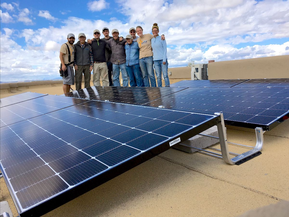
The Santa Fe Community Foundation announces 2020 Piñon Award winners. Each year, Piñon Awards recognize the work of outstanding nonprofit organizations in our communities and highlight the importance of Santa Fe's vital nonprofit sector. Each organization will receive a $4,000 unrestricted grant from the Foundation with underwriting support from Enterprise Bank & Trust. Additionally, a representative of each awarded organization will be joined in conversation by Yolanda Cruz, Santa Fe Community Foundation Philanthropy HUB Coordinator, on KSFR 101.1 FM radio's "Wake Up Call" segment, Community Matters, discussing the impact they have in our communities. Winners include: Visionary Award - Santa Fe Habitat for Humanity. The Visionary Award honors an organization that can anticipate the unmet needs of future generations and has the stamina to achieve success. Policy Champion Award - New Mexico Immigrant Law Center, New Mexico Immigration Corps Leadership Development Pipeline Program. The Policy Champion Award honors an organization that is creating positive social change by focusing on a policy and systems-based approach to long-term... (read more)
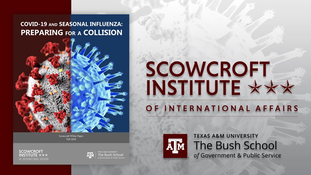
Scowcroft Institute gives recommendations on preparing for collision of COVID-19 and flu season. Experts from the Pandemic and Biosecurity Policy Program at the Scowcroft Institute of International Affairs at the Bush School of Government and Public Service at Texas A&M University recently published a fall 2020 White Paper, COVID-19 and Seasonal Influenza: Preparing for a Collision. The White Paper can be read on the Scowcroft Institute Disease Information Platform. Authors of this publication are the Institute's Deputy Director of the Pandemic and Biosecurity Program, Dr. Christine Crudo Blackburn; Public Health Epidemiology Program Research Associate at the University of Texas Health San Antonio, Anmol Desai; and Director of the Scowcroft Institute, Andrew Natsios. The authors delve into the current state of the world during the pandemic and examine the responses of different countries that successfully and unsuccessfully navigated through prevention and mitigation of... (read more)
Published: July 23, 2020
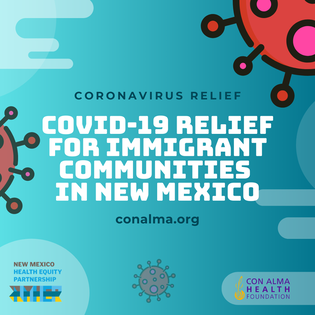
Con Alma Health Foundation partners with W.K. Kellogg Foundation to establish and manage the COVID-19 Relief for Immigrant Communities in New Mexico Fund. Con Alma Health Foundation invites nonprofits to apply for grants to provide basic needs to immigrants who are affected by the COVID-19 pandemic and unable to access federal and state resources. Con Alma will award grants to help nonprofits provide such basic needs as crisis intervention, food distribution, housing assistance, case management, civil rights and advocacy, and health care supplies and assistance. For more information visit our COVID-19 Emergency Assistance Opportunities page. "Immigrants are a crucial part of our state's economy and culture. They work jobs deemed essential during this pandemic, yet cannot access federal and state relief," said Dolores E. Roybal, Con Alma's executive director. "We will award grants to organizations that will address this population's short-term needs as well as strategies toward an equitable recovery." The W.K. Kellogg Foundation awarded a $500,000 grant to Con Alma Health Foundation to establish and manage the COVID-19 Relief for Immigrant Communities in New Mexico Fund, which will provide direct assistance to New Mexicans who... (read more)
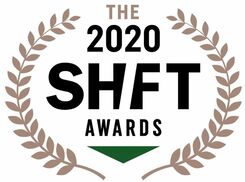
Health Foundation recognized for work on the Paso del Norte Trail. The Paso del Norte Health Foundation was recently named a recipient of the 2020 SHIFT Award for their work on the Paso del Norte Trail. The SHIFT Award recognizes individuals, initiatives or organizations from around the United States, that advances or promotes the health benefits of outdoor recreation. This year, more than 25 initiatives were selected for awards in the categories of Non-Profit Leadership; Public Land-Management Innovation; Youth Engagement; Research; and Health and Nature Champion. The Health Foundation was selected under the Non-Profit Leadership category. For a list of this year's SHIFT Award Official Selections, click here. SHIFT (Shaping How we Invest For Tomorrow) is a branch of the Center for Jackson Hole; a 501c3 nonprofit organization that leverages outdoor recreation for conservation gains via The Emerging Leaders Program, SHIFT and related initiatives. Categorical award winners will be announced at this year's SHIFT Summit, which will be broadcast virtually October 14-16 from Jackson, WY. SHIFT Award recipients... (read more)
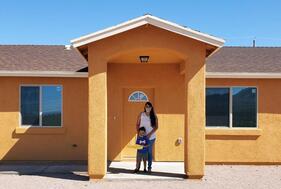
Self-help program puts four families in new homes. Four local families recently received keys to new homes after participating in Chicanos Por La Causa's self-help program, which helps families build their own homes and come away with affordable mortgage payments. The houses are all in Rio Rico, Corina Fragozo, CPLC's rural development director, said in an email. "It's very exciting... it feels really good," said Gilberto Mungaray, who moved into a new home with his wife after a turnkey ceremony on July 3. Mungaray, who previously rented in the Monte Carlo neighborhood of Nogales, said he likes the new appliances and particularly appreciates the front porch on his digs. And, he added, "Four-bedroom house, couldn't ask for anything better." Fragozo said the construction cycle took six months, with families contributing 20 hours of labor per weekend per adult. Michelle Ortiz, who was set to move into a new home with her husband and four children, said she's looking forward to the upgrade from the... (read more)

Accurate Census count can boost NM children's success in life. The number of young children missed in the census count has grown steadily in the past 40 years, and advocates for New Mexico children remind those who haven't completed the census form that millions in federal dollars are at stake. A recent survey found that 10% of 800 families making less than $50,000 per year said they would not include their babies, toddlers or preschoolers in the census count, with another 8% uncertain whether to count them. Lonna Atkeson is a political science professor and the director of the Center for the Study of Voting, Elections and Democracy at the University of New Mexico. Atkeson says the state has unique challenges in getting everyone counted. "We're one of the states that is expected to have the highest non-response rate, because we have such connectivity issues and then, because of the demographic profile of our state." says Atkeson. "We're a very poor state." Funding based on census numbers supports a range of services, from education to the National School Lunch Program. It also informs how money for services - from hospitals and emergency response to bridges and road construction - is allocated across the country. Check out NM Counts 2020 information and resources. NM Counts 2020 is an outreach campaign supported by a group of New Mexico foundations to help ensure that all New Mexicans are counted in the 2020 Census, especially in the most HTC and reach communities.
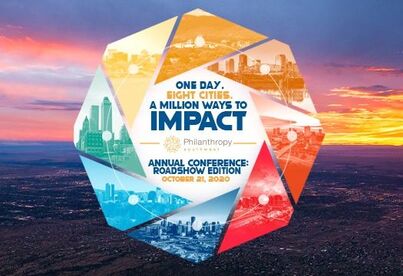
Philanthropy Southwest announces 72nd Annual Conference. The unprecedented events of 2020 have given us the rare opportunity to reimagine our 72nd Annual Conference. After surveying the PSW membership, your peer-led board and committees have worked hard to balance the legacy of coming together while keeping health and safety a priority. We have adapted this year's format to fit the needs of our members with local in-person and digital streaming options ALL together on One Day: October 21, 2020! #MillionWaysToImpact. Join a small, in-person gathering of regional funders in a city near you: Phoenix, Houston, Forth Worth, Denver, Little Rock, Midland, Albuquerque, and Tulsa. For the past 72 years, we have built a legacy of connection and 2020 is no exception. For the first time in our history we are bringing the Annual Conference to your doorstep. Gather regionally in one of eight cities across the Southwest to connect in-person with other funders and collectively livestream three general sessions and headline speakers. For those unable to join us in-person, we have digital streaming option for you to connect in the comfort of your own home!
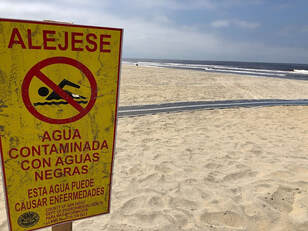
US-Mexico border sewage lawsuits on hold. The groups suing the federal government over cross border sewage flows, are putting their legal action on hold. The lawsuits took aim at the International Boundary and Water Commission asking them to make sure the water that moved through their system was clean enough to meet Federal Clean Water Act standards. Several South Bay cities, the County of San Diego, the San Diego Port District and state regulators all want the federal agency to stop the sewage tainted flows that routinely foul the ocean. That legal action is now on hold while the Environmental Protection Agency moves forward with plans to help build the pollution control systems that will capture and clean 90% of the polluted flows. Imperial Beach Mayor Serge Dedina said the lawsuits are being set aside so the plaintiffs can work with the federal government to find a solution. The EPA has $300 million in funding, from the United States-Mexico- Canada Agreement, for border pollution problems and the agency recently promised to spend most of the money in... (read more)

UTEP Pharmacy Professor receives grant to continue research, development for COVID-19 Antiviral Drug. Suman Sirimulla, Ph.D., assistant professor of pharmaceutical sciences at The University of Texas at El Paso School of Pharmacy, was awarded $80,000 from the National Science Foundation (NSF) through UTEP's Partnerships for Research and Education in Materials (PREM) Center for Advanced Materials Research (CMR) to support his research to develop antiviral drugs that will target COVID-19. The grant also will provide funding for six highly motivated and talented UTEP graduate and undergraduate students to participate in Sirimulla's research. UTEP's PREM Center for Advanced Materials Research was established with a $4 million NSF grant in 2018 to support the research... (read more)
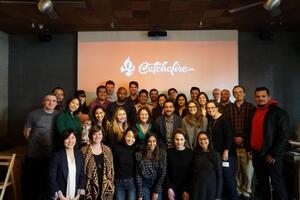
CFSA's 2020 Catchafire Grant Round is now open! Catchafire.org is an online, volunteer-matching platform that matches your organization with professional, virtual volunteers to help complete the projects most critical for your organization's success. In their first year, Community Foundation for Southern Arizona catchafire.org grantees have already completed more than $1.6 million in projects through their Catchafire memberships, representing 8,052 volunteer hours and 414 individual projects! This year, as a part of CFSA's long-term COVID-19 recovery strategy, the Foundation and its partners are expanding the Catchafire Program to offer year-long memberships to 500 nonprofits in Southern Arizona. To increase the reach of this effective program, the CFSA has partnered with other regional funders, including Arizona Community Foundation of Cochise, Arizona Community Foundation of Yuma, The David and Lura Lovell Foundation, and Legacy Foundation of Southeast Arizona. Find application details here.
Published: July 9, 2020
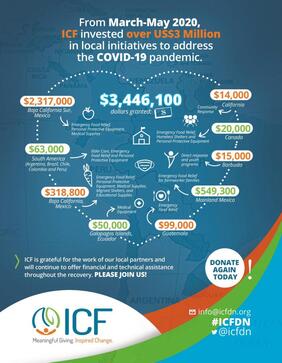
Council on Foundations showcases International Community Foundation's global response to COVID.
The International Community Foundation (ICF) has served as an impact partner for hundreds of donors since March as we have grappled with COVID-19 throughout Mexico and Latin America. As a community responder, ICF is making grants on a weekly basis to ensure that funds reach local organizations during this critical period. Between March and May, ICF granted out almost USD$3.5M and funded over 60 local organizations working to help neighbors, families, students, and their communities through this crisis. We anticipate providing at least another $1.5M in grants before the end of June. This support has come from individuals, donor-advised funds, family foundations, and businesses in both Mexico and the US. We have also matched $1.5M in challenge grants, resulting in $3M in funds toward COVID-19 response. ICF's grants have been invested in four primary categories: Emergency food relief - Mexico, Guatemala, Brazil, US, Barbuda; medical supplies (PPE) and ... (read more)
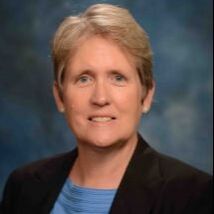
Indiana University Lilly Family School of Philanthropy hosts podcast this week on community foundations.
What is happening with charitable giving right now? Dr. Laurie Paarlberg, Charles Stewart Mott Foundation Chair on Community Foundations, is leading a study on community philanthropy in response to the pandemic. She shares key findings with us in this week's podcast. The Fund Raising School's First Day Podcasts highlight current news and research. A weekly 10 minute podcast provides fundraisers with the latest information in fundraising and philanthropy. Be more informed and stay up to date with the First Day Podcast from The Fund Raising School, available weekly through The Fund Raising School App, as well as iTunes and Google Play. Next podcasts include: Donor Advised Funds with Dr. Danielle Vance-McMullen, July 13; Nonprofit Collaboration with Delphia Ridley, July 20; Fundraising from Foundations in the Current Environment with Jeff Small, July 27; Donor Stewardship with Gwen Perry Davis, August 3; and Board Engagement with Perry Hines, August 10.
What is happening with charitable giving right now? Dr. Laurie Paarlberg, Charles Stewart Mott Foundation Chair on Community Foundations, is leading a study on community philanthropy in response to the pandemic. She shares key findings with us in this week's podcast. The Fund Raising School's First Day Podcasts highlight current news and research. A weekly 10 minute podcast provides fundraisers with the latest information in fundraising and philanthropy. Be more informed and stay up to date with the First Day Podcast from The Fund Raising School, available weekly through The Fund Raising School App, as well as iTunes and Google Play. Next podcasts include: Donor Advised Funds with Dr. Danielle Vance-McMullen, July 13; Nonprofit Collaboration with Delphia Ridley, July 20; Fundraising from Foundations in the Current Environment with Jeff Small, July 27; Donor Stewardship with Gwen Perry Davis, August 3; and Board Engagement with Perry Hines, August 10.

Planned Parenthood elevates interim CEO Alexis McGill Johnson to permanent status.
Planned Parenthood has named interim President and CEO Alexis McGill Johnson as its new permanent leader in a bid to bring stability to the health care provider that has come under repeated attacks by conservative groups. McGill Johnson will continue to lead both Planned Parenthood Federation of America and the organization's advocacy arm, the Planned Parenthood Action Fund. McGill Johnson has been Planned Parenthood's interim leader for almost a year. She took over the position following the abrupt removal of its former president, Leana Wen, last summer after less than 12 months in the top role. Wen cited "philosophical differences" between her and members of Planned Parenthood's board of directors. But there were also questions about her leadership style and whether Wen, who had been Baltimore's public health commissioner, was the best fit for the job. Planned Parenthood faced those internal issues while also... (read more)
Planned Parenthood has named interim President and CEO Alexis McGill Johnson as its new permanent leader in a bid to bring stability to the health care provider that has come under repeated attacks by conservative groups. McGill Johnson will continue to lead both Planned Parenthood Federation of America and the organization's advocacy arm, the Planned Parenthood Action Fund. McGill Johnson has been Planned Parenthood's interim leader for almost a year. She took over the position following the abrupt removal of its former president, Leana Wen, last summer after less than 12 months in the top role. Wen cited "philosophical differences" between her and members of Planned Parenthood's board of directors. But there were also questions about her leadership style and whether Wen, who had been Baltimore's public health commissioner, was the best fit for the job. Planned Parenthood faced those internal issues while also... (read more)

Mexico - Chaos or Opportunity.
Opinion, by Morgan Smith. At about 6:30 AM on June 26, Omar García Harfuch, the chief of police for Mexico City was ambushed and shot three times on the Paseo de la Reforma, a major boulevard. Two of his bodyguards were killed as well as a woman bystander. Grenades were used as well as 50 caliber weapons. Yet there has been almost no mention in the press here in the US, even here in New Mexico where we have a common border and enormous business and cultural ties. Imagine what would happen if one of our leading law enforcement officials was ambushed by some 28 gang members in broad daylight on a major street in Washington DC. There would be an uproar heard around the world. Mexico is at a tipping point between chaos and opportunity and the resolution of this ambush will have much to do with the way the country goes. Mexico's opportunity starts with China. China's new national security law restricting Hong Kong's political freedoms, the brutal treatment of Uighur minorities, and ongoing trade violations have drawn bi-partisan condemnation from Congress. This is affecting.. (read more)
Opinion, by Morgan Smith. At about 6:30 AM on June 26, Omar García Harfuch, the chief of police for Mexico City was ambushed and shot three times on the Paseo de la Reforma, a major boulevard. Two of his bodyguards were killed as well as a woman bystander. Grenades were used as well as 50 caliber weapons. Yet there has been almost no mention in the press here in the US, even here in New Mexico where we have a common border and enormous business and cultural ties. Imagine what would happen if one of our leading law enforcement officials was ambushed by some 28 gang members in broad daylight on a major street in Washington DC. There would be an uproar heard around the world. Mexico is at a tipping point between chaos and opportunity and the resolution of this ambush will have much to do with the way the country goes. Mexico's opportunity starts with China. China's new national security law restricting Hong Kong's political freedoms, the brutal treatment of Uighur minorities, and ongoing trade violations have drawn bi-partisan condemnation from Congress. This is affecting.. (read more)

Mexico Opium Network launched to combat global opioid epidemic. UC San Diego's Center for U.S.-Mexican Studies among the key partner institutions for the first-of-its kind, international effort. Despite being considered the world's second largest producer of opium and heroin, little is known about poppy cultivation in Mexico. Yet, the opioid crisis remains a huge problem across much of the U.S. and Mexico and COVID-19 appears to have made matters worse: Recent lockdowns have disrupted the flow of synthetic opioids and have ostensibly increased production of heroin in Mexico. To address the global opioid crisis, the Mexico Opium Network, a first-of-its kind international effort, was recently launched to examine the socio-political challenges posed by illicit poppy crops in Mexico. An estimated 128 people die every day in the U.S. from opioid overdoses, largely caused by synthetic opioids manufactured in China and Mexico. Reports of the pandemic's impacts to the production of synthetic opioids like fentanyl have incentivized poppy cultivation in Mexico, which could lead to... (read
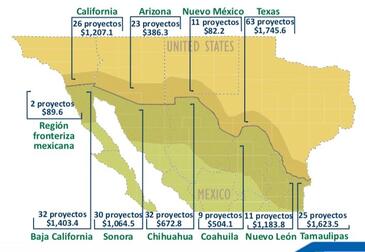
NADB targets US-Mexico border infrastructure projects with US$200mn program.
The North American Development Bank (NADB) is seeking innovative health and environmental infrastructure projects within the US-Mexico border region to qualify for its approved US$200mn recovery program meant to mitigate the economic fallout from the coronavirus pandemic. Funds for the two-year program were made available to create a positive economic impact on both sides of the border, NADB managing director Calixto Mateos-Hanel told BNamericas. Projects can range from water and wastewater treatment plants to hospitals. They can also be public, private or a combination of both, and they do not necessarily need to be ready, just have a solid and feasible idea that can be financed by the bank, he said. "Usually, we have to take each project to the board of directors so it can be analyzed and approved. In this case, we're going to be able to develop projects according to how requests come to us, a macro program," Mateos said. So far, the bank has received at least three proposals from the Mexican side of the border. One involves the expansion of a... (read more)
The North American Development Bank (NADB) is seeking innovative health and environmental infrastructure projects within the US-Mexico border region to qualify for its approved US$200mn recovery program meant to mitigate the economic fallout from the coronavirus pandemic. Funds for the two-year program were made available to create a positive economic impact on both sides of the border, NADB managing director Calixto Mateos-Hanel told BNamericas. Projects can range from water and wastewater treatment plants to hospitals. They can also be public, private or a combination of both, and they do not necessarily need to be ready, just have a solid and feasible idea that can be financed by the bank, he said. "Usually, we have to take each project to the board of directors so it can be analyzed and approved. In this case, we're going to be able to develop projects according to how requests come to us, a macro program," Mateos said. So far, the bank has received at least three proposals from the Mexican side of the border. One involves the expansion of a... (read more)
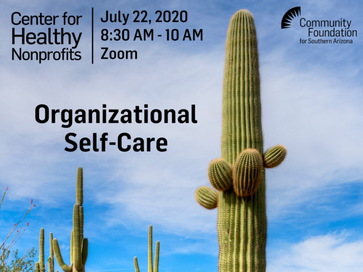
The Center for Healthy Nonprofits at the Community Foundation for Southern Arizona announces workshop on Organizational Self-Care. Join Beth Morrison, CEO of Our Family Services, for a workshop on the importance of organizational self-care on Wednesday, July 22, 8:30 am - 10:00 am. Beth will share new ideas and concrete examples of what it means to promote a culture of self-care. During this session, participants will complete an organizational assessment to better understand your organization's current status and then work to build a plan to increase its self-care culture. Beth Morrison joined Our Family Services in August 2016 after relocating from Michigan. For over 30 years, Beth has concentrated her career on the issues of domestic violence, sexual assault and child abuse. Her expertise is derived from having worked as a counselor, advocate, community educator, clinical supervisor, shelter manager and finally as an administrator. Beth has had the opportunity to work in both urban and rural settings as well as the Navajo Nation, with immigrant and refugee populations and other diverse settings. Beth is a graduate of Central Michigan University and the University of Arizona. Click here to register.
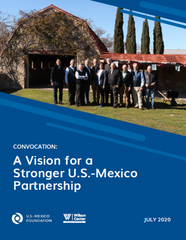
Convocation: A Vision for a Stronger U.S.-Mexico Partnership.
In January 2020, the U.S.-Mexico Foundation and the Wilson Center's Mexico Institute brought together 6 former U.S. ambassadors to Mexico and 6 former Mexican ambassadors to the United States to discuss the bilateral relationship. The ambassadors engaged in an intensive and strategic dialogue concerning the future of U.S.-Mexico relations in critical areas, including economic competitiveness, public security, migration and borders. The participants also discussed the importance of cultural issues, public opinion and soft power to the bilateral relationship. Out of this Convocation, we produced a report, which outlines specific recommendations in each of the three traditional pillars of U.S.-Mexico relations: trade and competitiveness; security and the rule of law; and migration. The discussions generated the following key findings and recommendations for the future of U.S.-Mexico relations: Strong... (read more)
In January 2020, the U.S.-Mexico Foundation and the Wilson Center's Mexico Institute brought together 6 former U.S. ambassadors to Mexico and 6 former Mexican ambassadors to the United States to discuss the bilateral relationship. The ambassadors engaged in an intensive and strategic dialogue concerning the future of U.S.-Mexico relations in critical areas, including economic competitiveness, public security, migration and borders. The participants also discussed the importance of cultural issues, public opinion and soft power to the bilateral relationship. Out of this Convocation, we produced a report, which outlines specific recommendations in each of the three traditional pillars of U.S.-Mexico relations: trade and competitiveness; security and the rule of law; and migration. The discussions generated the following key findings and recommendations for the future of U.S.-Mexico relations: Strong... (read more)

W.K. Kellogg Foundation's first African American President elected to prestigious Oxford Fellowship. In 2014, Tabron became the first woman and African American to lead the Foundation in its 90-year history, having served in a variety of positions since she joined the Kellogg Foundation in 1987. Tabron leads the Kellogg Foundation in its work to support thriving children, working families and equitable communities, embedding a commitment to engaging communities, developing leaders and racial equity into every undertaking. Kellogg - the University of Oxford's most international and diverse College - was founded in 1990 to support students studying part-time for graduate degrees, something that the University had not previously permitted. Consistent with the W.K. Kellogg Foundation's longstanding focus on 'helping people to... (read more)
Published: June 25, 2020

Mexican Consulate in San Diego opens applications for immigrant essay contest. Applications are now open for the Colibri MX scholarship program, a local essay contest set to award immigrant college students with grants for the fall 2020 semester. The Mexican Consulate in San Diego, in partnership with the Metropolitan Area Advisory Committee, launched the Colibri MX scholarship in December to promote higher education for Latino immigrants in San Diego County. Despite fundraising setbacks due to the coronavirus pandemic, the consulate intends to award at least 70 applicants with $1,000 grants, organizers said. "We believe in the power of education as the best tool for social mobility," Consulate General Carlos Gonzalez Gutierrez said. "And we also believe that it is in the interest of the whole community to make sure its youth has access to higher education. Our hope is that Colibri MX serves as a way to tell young Mexican American and Latino students in the area of San Diego: We support you, we have your back." ColibriMX follows the model of similar consulate programs in Austin, Texas and Sacramento: MEXAustin and CienAmigos, according to Gonzalez Gutierrez. Each program, through community fundraising, encourages applicants to complete their college education and... (read more)
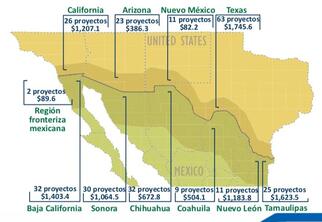
NADB targets US-Mexico border infrastructure projects with US$200mn program. The North American Development Bank (NADB) is seeking innovative health and environmental infrastructure projects within the US-Mexico border region to qualify for its approved US$200mn recovery program meant to mitigate the economic fallout from the coronavirus pandemic. Funds for the two-year program were made available to create a positive economic impact on both sides of the border, NADB managing director Calixto Mateos-Hanel told BNamericas. Projects can range from water and wastewater treatment plants to hospitals. They can also be public, private or a combination of both, and they do not necessarily need to be ready, just have a solid and feasible idea that can be financed by the bank, he said. "Usually, we have to take each project to the board of directors so it can be analyzed and approved. In this case, we're going to be able to develop projects according to how requests come to us, a macro program," Mateos said. So far, the bank has received at least three proposals from the Mexican side of the border. One involves the expansion of a... (read more)

Five advocacy organizations receive support to reduce youth incarceration. The National Juvenile Justice Network's COVID-19 Youth Justice Response Fund recently awarded $350,000 to five state-based organizations working to educate policymakers and media about the safety of young people in the justice system, a cause made more urgent by the spread of COVID-19 within facilities. The groups will run advocacy campaigns that make the case for reducing admissions of young people to juvenile justice facilities or accelerating their safe and supported release. "COVID-19 has added yet another danger to the long list of harms that young people face in residential institutions, and reinforces the need for states to reform juvenile justice policies and shield young people, families, communities and juvenile justice professionals from those harms right now," said Rob Geen, director of policy reform and advocacy for the Annie E. Casey Foundation, which supports the COVID-19 Youth Justice Response Fund. "States should use the dramatic reduction in confinement - accelerated by... (read more)
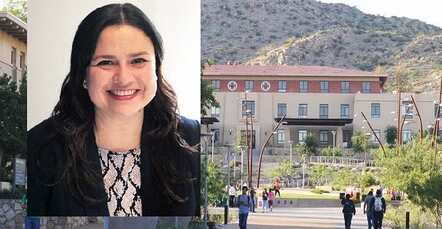
UTEP names Andrea Cortinas as Vice President and Chief of Staff. The University of Texas at El Paso announced today that El Paso native Andrea Cortinas will be promoted to the position of Vice President and Chief of Staff effective July 1, 2020. She will succeed Richard Adauto, who is retiring after 32 years of service to the University. "Andrea is a trusted advisor and thoughtful leader on campus," said Heather Wilson, President of UTEP. "She cares passionately about our mission and will serve the University well." Cortinas has served as Chief Legal Officer at UTEP since 2016. Before joining UTEP, Cortinas was an attorney in private practice in El Paso with expertise in employment law, civil litigation, education law, and advising executives on complex legal issues. She previously served as General Counsel at a regional company, where she also oversaw Risk Management, Human Resources, and Benefits. Cortinas earned her bachelor's degree in Political Science from The University of Texas at El Paso in 2002. A first-generation college graduate, Cortinas participated in... (read more)
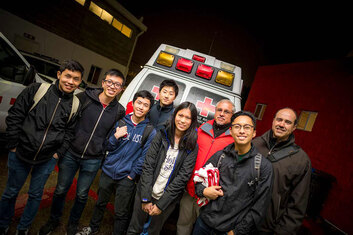
UC-San Diego professors, students create app to improve Tijuana's ambulance service. For the better part of a year, Tijuana's Red Cross has been using a mobile app developed by professors and students at the University of California San Diego. The application has created a faster, easier and more efficient way to dispatch ambulance crews to emergencies around Tijuana, a city of about 1.7 million people. Now, dispatchers can track ambulances through the app, know which ones are available and those already on a call. "We can dispatch, track and collect information and we can manage an ambulance better," said Carlos Vera, an engineering professor at UC San Diego. Vera also teaches medicine in Mexico and works for the Red Cross, which handles 95 percent of emergency calls in Tijuana. He has been part of a team working on the app for about four years. "We found out the most pressing needs seemed to be the ability to... (read more)
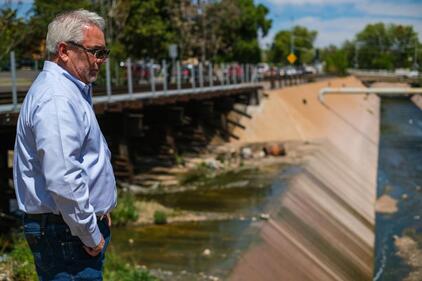
U.S. EPA awards $255,000 to advance environmental projects in the Arizona/Sonora border region. An additional $101,000 will be matched by the recipient organizations. The U.S. Environmental Protection Agency (EPA) today announced that it will award over $255,000 for environmental projects benefitting the U.S.-Mexico border region between Arizona and the Mexican state of Sonora. "Protecting the public health of our border communities with Mexico is a top priority of EPA, and these grants and matching funds will provide a safer and healthier work environment for the community and our state, tribal, and federal partners as we monitor changes in air and water quality," said EPA Administrator Andrew Wheeler. "Improving the environmental health of tribes across the country is a core EPA value, and the border region remains one of our main focuses." The awards are given through the agency's Border 2020: U.S.-Mexico Environmental Program. The recipient organizations will contribute an additional $101,000 to fund projects to: improve proper management of scrap vehicles and discarded electronics; build capacity on... (read more)
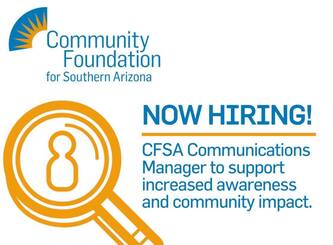
Employment - CFSA now hiring! The Community Foundation for Southern Arizona offers outstanding career opportunities for individuals interested in enhancing the lives of others in Southern Arizona and assisting donors in fulfilling their charitable wishes. CFSA is committed to fostering a supportive work environment that respects and appreciates diversity. Job opening: CFSA Communications Manager. The Community Foundation for Southern Arizona is looking for a Communications Manager to support increased brand awareness and community impact. The position is responsible for the management and execution of CFSA's annual marketing and communications plan, including paid advertising, earned media, digital marketing, and printed collateral. Click here to view the job description. Resumes received by June 29th will be assured consideration.
Published: June 11, 2020

The International Community Foundation (ICF) grants almost USD$3.5M for emergency relief in the US and six other countries. Since the beginning of March, ICF has granted out almost USD$3.5M and has funded over 60 local organizations based outside the US so far. This support has come from donor-advisors, family foundations, corporations, and individuals in both Mexico and the US. ICF has stewarded $1.5M in challenge grants, resulting in $3M in funds, anticipating at least another $1.5M in grants before the end of June. Funds have been invested in four primary categories: Emergency food relief - Mexico, Guatemala, Brazil, US, Barbuda; medical supplies (PPE) and equipment (ventilators, testing machines) - Mexico, Galapagos (Ecuador); operational and emergency support to nonprofits - Mexico, Guatemala, El Salvador, Barbuda, and migrant-specific issues - Mexico, US. Examples include: $30,000 for a mobile health clinic in Tijuana to visit the migrant shelters, assess the health needs and COVID-19 risk of the migrant families, and provide appropriate medical advice and treatment; $801,000 to Como Vamos La Paz for emergency food relief in Baja California Sur, Mexico to feed 96,000 families throughout the state who have recently lost work; $50,000 to Charles Darwin Foundation in the Galapagos to purchase two ventilators and provide hygiene and PPE supplies to local hospitals; and $75,000 to Red Turismo Sustentable y Desarrollo Social to create the "Te Invito A Comer" program, which will support small grocery stores and restaurants to provide food by delivery while quarantine continues in Baja California Sur.

Loo is elected to Arizona Community Foundation Board of Directors. The Arizona Community Foundation's Board of Directors recently announced that Leonardo Loo was elected to its board. ACF board members serve three-year terms, renewable up to two times. Mr. Loo serves as the managing partner at Quarles & Brady LLP's Phoenix office where he is a member of the firm's Business Law, Finance, and International Services Law Practice Groups. He practices in the areas of mergers and acquisitions, commercial financing, international transactions, securities, and general corporate law involving clients in a wide range of industries, the release said. Along with his leadership responsibilities at Quarles & Brady, the release said he serves on the board of directors for Chicanos Por La Causa, Inc. and is the general counsel for the Arizona Hispanic Chamber of Commerce. "Leonardo's extensive experience in the public and private sector, along with his passion for serving on numerous boards, make him a tremendous asset for the Arizona Community Foundation," said Steve Evans, chair of the ACF Board of Directors, in... (read more)

Scholarships available for local Mexican and Latino students. The Consulate General of Mexico in San Diego in partnership with the Metropolitan Area Advisory Committee on Anti-Poverty (MAAC) opened applications for the first-ever ColibríMX scholarship to help promote higher education for local Mexican American and Latino students. The Institute of Mexicans Abroad (IME) granted $36,000, and the goal is to raise $34,000 more to deliver grants of $1,000 to 70 local students, said Consul General Carlos González Gutiérrez. Applications are now open. Students can submit their 600-word essay through July 8. Award recipients will be announced on August 14. These scholarships were announced in December 2019, but due to the COVID-19 pandemic, the program will start receiving entries now. The ColibríMX scholarship, named after the colibrí or hummingbird, which "moves around just like the immigrant community" and represents hope and personal strength, said González Gutierrez. "Our hope... (read more)
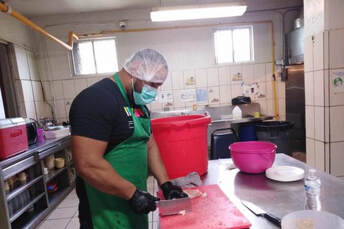
'We're not optional': Aid organizations at the border adapt to the pandemic. Patrick Murphy knew things were never going to be the same again when he closed the doors to his migrant shelter in Tijuana, Mexico, for the first time in the shelter's 32-year history. Casa del Migrante had taken in more than 260,000 migrants over the course of those years, everyone from single deportees to entire families seeking asylum. But in March, the coronavirus thrust shelters and migrants along the 2,000-mile border into uncharted waters when it began spreading across the U.S. and Latin America. Fearing an outbreak, Murphy chose to temporarily close the shelter and adapt onsite care for the 27 migrants living in their facilities that month. "The big, big risk in Tijuana is that somebody comes, and if they're sick, where do I send them? There is no option," he said. "The general hospital won't take them unless they're a certain level of sick, they have to be severely sick, so there is no structure here." Like the U.S., Mexico has seen cases of the virus skyrocket since March. While shelters like the Casa fear that their facilities could... (read more)

Border Report: Tech is making better use of Tijuana's ambulances. Baja California journalists defend one of their own, Imperial County has highest concentration of COVID cases in California and more in our biweekly roundup of border news. The coronavirus pandemic continues to hit Baja California - and particularly Mexicali and Tijuana - hard. Nearly 75 percent of beds with ventilators in Baja California are being used, and hospitals are trying to relieve the pressure through mobile morgues, which are refrigerated trailers, infobae reports. A researcher in Mexico has discovered that young people who contract COVID-19 in Baja California are dying at a rate 25 times higher than the same demographic just north of the border in San Diego County, KTSM reports. The same study discovered most of the young people who are dying live in border cities like Tijuana and had jobs or ties to foreign-owned assembly plants known as maquiladoras. As of Sunday, Tijuana had 2,335 confirmed cases and 643 deaths, according to Secretaría de Salud del Estado de Baja California. But Mexicali cases have surpassed Tijuana's in... (read more)

A cross-border approach to tackling COVID-19. UC San Diego researchers partner with experts in Mexico on medical, economic and social solutions during the pandemic. Located just 30 miles from the U.S.-Mexico border, the University of California San Diego is a critical partner in supporting a binational response to the COVID-19 pandemic. The crisis has spurred action among faculty, researchers and students at UC San Diego. Their partnership with Mexico ranges from developing best practices to treating severe cases requiring ventilators; devising new ways to manufacture personal protective equipment; opening dialogue about how the virus is impacting economies and underserved communities; and designing public health programming to slow the spread of the virus. This disease does not recognize borders, making it more important than ever to strengthen relationships between experts at UC San Diego and in Mexico to coordinate a rapid response," said UC San Diego Chancellor Pradeep K. Khosla. "Our university has mobilized to help slow the spread of the virus, fortify vulnerable... (read more)
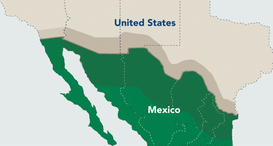
Rep. Escobar, Senator Rodriguez, NADB announce Covid-19 recovery program for El Paso and Border Communities. Congresswoman Veronica Escobar (TX-16), State Senator Jose Rodriguez (SD-29), and the North American Development Bank (NADB) announced a temporary financing program in response to the effects of the coronavirus pandemic. "As El Paso and border communities fight the devastating impacts of the coronavirus pandemic, it is critical to promote a bilateral health and economic response to speed and shape our recovery," Congresswoman Escobar shared. "For more than two decades, NADB has made innovative investments in our region and with this recovery program it is further contributing to strengthening our economy, advancing the well-being of border residents, and promoting sustainable development." The program, which was approved by Board of Directors of the NADB on May 22, 2020, will support projects that have both environmental benefits and direct positive impacts on the economy of El Paso and the rest of the U.S.-Mexico border region and the health and well-being of its residents. The program will provide as much as $200 million and... (read more)
Published: May 27, 2020
Strong Families Thriving Children Report.
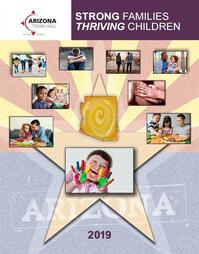
Since 1962, Arizona Town Hall has created solutions to complex problems by educating, engaging, connecting, and empowering Arizonans. Community Town Halls and Future Leaders Town Halls (events held for high school and college students) allow a greater number of Arizonans to experience positive civic engagement. These programs also incubate solutions for statewide issues and develop a grassroots network of informed citizens ready to work together to maximize Arizona's potential. To ensure informed discussion, Town Hall participants review background information developed by the Arizona Town Hall Research Committee. Participants at the statewide Town Hall consider the information in the background report as well as recommendations from the various Community and Future Leaders Town Halls. This publication is a summary of key points from the background report, the Community and Future Leaders Town Halls, and the report of recommendations developed at the Statewide Town Hall held November 14-16, 2019. According to the Annie E. Casey Foundation 2018 Kids Count profile, 24% of Arizona children... (read more)
New ASU collaboration with top Mexican universities unveiled. '

'Acceso ASU' program offers Spanish speakers more affordable options to complete degree. Spanish-speaking students in Arizona and across the United States will now have access to more affordable options to complete their degree through a new credit-transfer partnership between Arizona State University and four of Mexico's top universities, ASU officials announced May 19. "Acceso ASU" creates a transfer pathway for students to take classes with four of Mexico's leading universities - Universidad de Guadalajara (UdeG), Universidad Tecnológica de México (UNITEC), Universidad Tecmilenio and Tecnológico de Monterrey (ITESM) - and transfer those credits to ASU to complete their degree. "Acceso will enable more educational opportunities for 'Dreamers' and other Spanish-proficient students, helping to strengthen the economic competitiveness of the U.S. and Mexico," ASU President Michael M. Crow said. The new program is another example of ASU's efforts to scale educational access to all qualified students, including... (read more)
Nonprofit Sector Response to COVID-19.
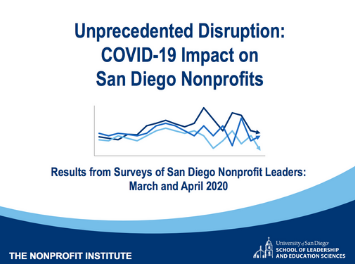
Nonprofit Sector Response to COVID-19. By Laura Deitrick, Tessa Tinkler, Emily Young, Colton C. Strawser, Connelly Meschen, Nallely Manriques, and Bob Beatty. In an initial effort to understand the impact of the COVID-19 pandemic on local nonprofits' ability to meet their community's needs, The University of San Diego's Nonprofit Institute issued a survey to nonprofit leaders on March 18, 2020. The aim of this report is to provide real-time data to government officials, foundations, and other decision-makers about the current economic conditions facing nonprofits and the need for immediate and long-term support in order to ensure the ongoing provision of critical services in the San Diego region. Nonprofit organizations are often on the frontlines of crisis and sometimes called "second responders," serving as a resource for individuals after emergency aid has been provided. As a result ofthe COVID-19 pandemic, many local nonprofits are experiencing increased demands for food, shelter and other basic necessities, yet have been hindered or completely cut off from responding due to school closures, stay at home orders, and social distancing. In San Diego County, one in ten employees works at a nonprofit, representing a total of... (read more)
Border communities hit hard by COVID-19 to get money for environmental projects.
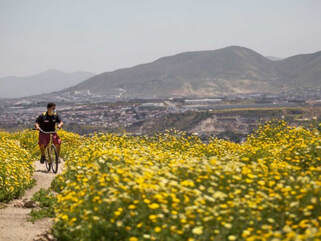
The North American Development Bank has approved $200 million for border communities economically devastated by the COVID-19 pandemic. The money will come from both the U.S and Mexican governments. Most of the funds are earmarked for environmental projects that have direct impacts on the economy along the U.S.-Mexico border. Some of the money is to be spent on health and well-being of border residents. The city of Mexicali, Baja California's capital, will get almost $7 million to finance a wastewater system replacing almost 40,000 feet of deteriorated pipelines and to rehabilitate three lift stations in the wastewater collection system. The current system is plagued with malfunctions spilling approximately 33.1 million gallons per day of uncontrolled wastewater that flows into the U.S via the New River. "The Mexicali project addresses a significant risk of failure in the wastewater collection system, reducing the risk of... (read more)
For international students, uncertainty includes not only when it ends, but also where they'll live.

For more than four years, Grecia Sanchez crossed the border into the U.S. along with tens of thousands of students and workers, starting her day long before the typical college student. "We all watch the sunrise together," said Sanchez, 23, a philosophy and multimedia journalism double major at the University of Texas at El Paso. "It's not the typical college experience, not the typical commute." Then the COVID-19 pandemic hit, undermining her sacrifice and leaving her life and that of most other international students in limbo. The coronavirus has forced universities to postpone, cancel or shift commencement to online virtual ceremonies. But for international students, it has also forced questions about their very future in the U.S. The U.S. Department of Homeland Security has informed universities that if they decide to continue holding classes fully online in the fall, it is unlikely international students will be permitted to... (read more)
Published: May 13, 2020
COVID-19 CaliBaja region: We are all in this together!

Join San Diego Grantmakers and other philanthropic funders on May 28 for a webinar of how some colleagues developed their response to the impacts of COVID-19 in this region and a shared discussion about how individuals and institutions can support nonprofit organizations in their response and those individuals who are most impacted -- low income families, health-compromised individuals, small businesses, and more. This call draws on that strength to connect us all and answer questions, and prepare us for a robust response now and in the months to come. California and Baja California have some of the highest numbers of COVID-19 cases of any state in their respective countries. The primary strategy to save lives during this pandemic has been isolation. At the border, this has meant restricting movement among our two countries, affecting both states negatively socially and economically. How can grantmakers support the CaliBaja region and its people move through this health and economic crisis? Speakers include: Amb. Carlos González Gutiérrez, Mexican Consul General, San Diego, Paola Avila, Vice President, International Business Affairs, San Diego Regional Chamber of Commerce, Marcela Merino, Executive Director & Dr. Esther Oviedo, Program Coordinator at Fronteras Unidas Pro Salud, Paulina Olvera Cáñez, Espacio Migrante, and Eliza Brennan, International Community Foundation.
Small businesses in crisis ignored again.
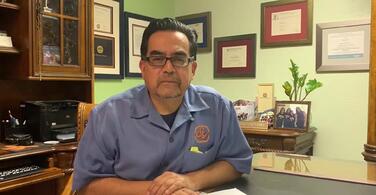
Small businesses are hurting. You know that, we know that. We've heard from you that Arizona small businesses were unfairly shut out of the initial round of federally backed loans intended to keep them operating and employees earning a paycheck. As numerous news media reported, too many banks instead loaned money to their favorite customers - long-established big businesses that could have survived without the federal response to the COVID-19 crisis. Small businesses are not in such a fortunate situation. CPLC Prestamos is a mission-driven division of CPLC. As a Community Development Financial Institution (CDFI) and a Community Development Entity (CDE), Prestamos is an SBA-approved lender with a proven track record for effectiveness and a vital avenue for Arizona small businesses that seek no- or low-interest loans. We applied to the Maricopa County Industrial Development Authority (IDA) for $10 million in capital that, with an average loan of $65,000 each, would have... (read more)
All Together NM Fund awarding $750K in grants.

The Santa Fe Community Foundation is the fund's administrator. The All Together NM Fund will award $750,000 for grants to help New Mexico's smallest businesses survive the COVID-19 pandemic. The funding will be divided among four New Mexico nonprofit organizations that will award and administer grants of up to $5,000 for businesses with five employees or fewer. "Business relief from the federal government has been scattered, and far too much of what was first available went to large businesses. Many micro businesses in New Mexico and elsewhere didn't get a fair shake," Gov. Michelle Lujan Grisham said. "So thank you to the All Together NM Fund for reaching out and reaching in to support as many micro businesses as we can. No doubt that's going to make an incredible difference," she said. The nonprofits that will administer the grants are: WESST, Rio Grande Community Development Corp, NM Community Capital and DreamSpring. "They were chosen because... (read more)
EPA provides grant funding to support environmental justice communities impacted by COVID-19. Deadline: June 30, 2020.
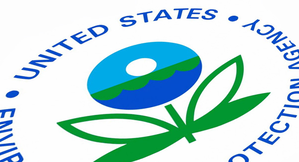
The U.S. Environmental Protection Agency (EPA) is working to improve the environment and public health conditions of low-income and minority communities through our daily efforts to ensure all Americans have clean air, safe water, and access to information to make decisions to protect personal and public health. In response to the COVID-19 public health emergency, EPA is making $1 million in grant funding available to states to help local environmental justice communities address COVID-19 concerns faced by low-income and minority communities. Through the State Environmental Justice Cooperative Agreement Program, EPA will provide funds to states, local governments, tribes and U.S. territories to work collaboratively with environmental justice communities to understand, promote and integrate approaches to provide meaningful and measurable improvements to public health and the environment. "Environmental justice grants aim to support public education, training, and emergency planning for communities across the country impacted by COVID-19, regardless of their zip code," said EPA Administrator Andrew Wheeler. "These grants are... (read more)
El Paso Matters founder Robert Moore a Pulitzer finalist.

Congratulations to El Paso Matters founder Robert Moore for being a finalist for a 2020 Pulitzer Prize in journalism. Moore was a key reporter for The Washington Post's coverage of the mass shootings in El Paso and Dayton, Ohio on August 3, 2019. The team was cited for its "incisive" coverage of the back-to-back shootings "that contextualized these events for a national audience," according to the Pulitzer Prize website. The Post was one of three finalists for the Pulitzer Prize for Breaking News. The Louisville Courier-Journal won the prestigious award. "I was privileged to help tell El Paso's story to the world in our darkest time," said Moore, the award-winning former El Paso Times editor who founded the nonprofit El Paso Matters in 2019. The El Paso Community Foundation is the fiscal sponsor of the digital news outlet, which has aggressively reported on the coronavirus pandemic's impacts in El Paso. "I can't tell you how proud we are to have... (read more)
Mothers in migration: A diversity of realities and experiences.
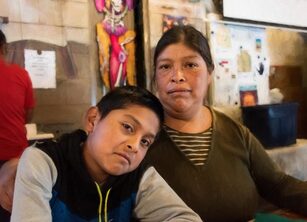
The Kino Border Initiative celebrates and honors the people in migration who are mothers. The configurations of families in migration are diverse-in many cases, mothers parent their children from the same geographical space, but due to economic realities, deportations, violence, and structures of injustice, it is not possible for all mothers to do so. In some cases, children are raised, loved, and cared for by extended family and community members. And some mothers have lost children-to violence, death, and wrongful imprisonment-and organize and advocate so that other mothers do not have to suffer such pain and loss. This article covers some of the familial configurations we see at the Comedor and along the border. We lament the injustices that force mothers and their children into difficult circumstances, whether they are together or geographically apart. We also honor the strength, resilience, and faith that all those who mother in the midst of... (read more)
The Coronavirus and Mexico - Opinion.

By Morgan Smith. "Pandemics and other unfortunate events won't do anything to us," Mexico's President, Andrés Manuel López Obrador (AMLO) stated on Sunday, March 22 in the southern state of Guerrero. He has been stubbornly resistant to the dangers of the coronavirus, continuing to appear in public and mingling with crowds. He has also failed to intervene with respect to other events that have clearly placed his people in danger. For example, on the weekend of March 14-15, his protégé, Mexico City's Mayor, Claudia Sheinbaum refused pleas to cancel the Vive Latino fiesta, a huge two-day rock music festival that attracted over 100,000 people. Isn't the danger from crowded situations now obvious to everyone? Look at the February 19 soccer game that is believed to have started the terrible spread of this virus in Italy, or the huge crowds that gathered, despite health warnings in cities like Madrid, Spain on March 8 for the International Women's Day, or the always-crowded daily life of New York City, or Mardi Gras. We are two countries with a common border 2,000 miles long that has been largely closed but will that... (read more)
New report from the ASU Lodestar Center details the dramatic impacts of COVID-19 on the Arizona nonprofit sector.
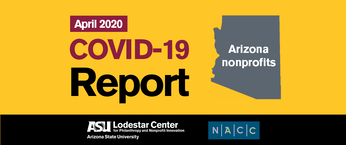
As unemployment soars and Arizonans cope with the ongoing impacts of the COVID-19 pandemic, many nonprofit organizations, from food pantries to shelter services, are needed more than ever. But those same organizations are struggling with disruptions of their own as donations decline and volunteers stay home. Other categories of nonprofits, including education, environment, and arts and culture, have seen their operations severely reduced or halted, with a real risk of organizations closing entirely. ASU´s Lodestar Center for Philanthropy and Nonprofit Innovation surveyed nearly 450 Arizona nonprofit organizations to show the disruption caused by the pandemic. The results are grim: Nearly 80% of Arizona nonprofits reported a reduction in their normal services; 11% of organizations are not operating at all; almost 40% of all arts and culture nonprofits are not currently operating; just under 20% of nonprofits say they won't... (read more)
Published: April 30, 2020
The Changing World of Latino Philanthropy with Ana Marie Argilagos and Sam Zamarripa.

In this episode of CaseyCast, host Lisa Hamilton welcomes two guests - Ana Marie Argilagos and Sam Zamarripa - who are leaders in the world of Latino philanthropy. Argilagos is the president and CEO of Hispanics in Philanthropy (HIP), an organization devoted to advancing Latino equity, leadership and voice across the Americas. Zamarripa, a former Georgia state senator, now runs a biotechnology firm and Spanish-language digital media company and serves on the Board of Trustees for both HIP and the Annie E. Casey Foundation. During the interview, Hamilton asks Argilagos and Zamarripa when they first intersected with philanthropy and where they think the field of Latino philanthropy is headed. Listeners will also learn about current priorities and challenges in Latino philanthropy and how the unique characteristics of Latino donors and communities play out in the philanthropic sector.
Call for nominations for the 34th annual Piñon Awards.

Santa Fe Community Foundation is accepting nominations through May 8, 2020 for the 34th annual Piñon Awards, which honor exemplary nonprofit organizations in Santa Fe and northern New Mexico. Nominations may come from any interested member of the community, including board members, volunteers, donors, past award recipients and employees of nonprofits. Those wishing to submit a nomination can click here for guidelines and a nomination form. Each year, the Santa Fe Community Foundation recognizes the extraordinary work of four area nonprofits with a Piñon Award - the only local award devoted exclusively to recognizing nonprofit organizations. Winners receive an unrestricted grant, public recognition in the media and at an awards ceremony, and a promotional video about the nonprofit which they can use in their own marketing. This year's ceremony, which is open to the public, will take place on Tuesday, November 4th, 2020 at La Fonda on the Plaza. Nominations will be accepted in four categories: Courageous Innovation Award, Policy Champion Award, Visionary Award, and Tried & True Award.
Impact of COVID-19 on Imperial County.
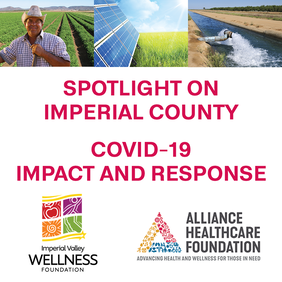
Imperial County is a highly productive agricultural area, providing $2 billion in vegetables, fruit, livestock, and other commodities annually. In fact, two-thirds of the vegetables consumed in the U.S. during the winter are grown in Imperial County. As of April 27, Imperial County was reporting 281 confirmed COVID-19 cases; 8 deaths; 67 recovered and 1,563 patients tested. Compared with other counties like San Diego, these numbers appear small. However, with a total county population of only 190,000 (83% Latinx) and a chronic level of health, economic and environmental challenges which exceed state averages, this rural, low-income community is struggling with the extra burden of COVID-19. Response to COVID-19. In early April, the Imperial Valley Wellness Foundation (IVWF), in partnership with Alliance Healthcare Foundation, California Wellness Foundation, California Health Care Foundation and The Center at Sierra Health Foundation, launched an immediate COVID-19 Response Fund for nonprofit organizations that primarily serve Imperial County. An overwhelming number of... (read more)
Pandemic, border crackdown curbs Catholics' aid to migrants.
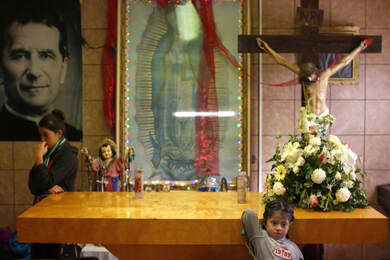
For years, Catholic-led, United States-based nonprofits have been at the forefront of efforts to support migrants and asylum-seekers along the Mexican border. Tough new border policies, coupled with the COVID-19 pandemic, have drastically changed their work, much of which now takes place in Mexico. The once heavy flow of undocumented border-crossers has dwindled as the Trump administration enforces a new virus-related ban on top of its Migration Protection Protocols that already had forced thousands of asylum-seekers to wait in Mexico. The virus outbreak has prompted one migrant support agency, the Kino Border Initiative, to temporarily close its office in Nogales, Ariz. But it is committed to maintaining operations across the border, where it aids asylum-seekers congregating in Nogales, Mexico, after being barred from the U.S. "There is some resistance to this ministry of migrants and refugees," said Jesuit priest Sean Carroll, who heads the agency. "But our sense of the common good doesn't... (read more)
EPA awards $255k in grants for environment, health on Arizona-Mexico border.

The Arizona-Sonora border region will receive over $255,000 to advance environmental projects, the U.S. Environmental Protection Agency announced last week. Recipient organizations will match with an additional $100,000. The funds will improve proper management of scrap vehicles and discarded electronics, increase sustainable storm water management with green infrastructure alternatives and build capacity on environmental health for the three border tribes. The funds come from the EPA's Border 2020: U.S.-Mexico Environmental Program, a binational effort to protect and improve public health and address environmental issues. "Protecting the public health of our border communities with Mexico is a top priority of EPA," EPA Administrator Andrew Wheeler said in an April 14 press release. "These grants and matching funds will provide a safer and healthier... (read more)
Published on April 16, 2020
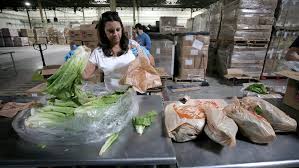
Jobless restaurant workers can get paid for shifts at El Pasoans Fighting Hunger Food Bank. Restaurant workers who lost their jobs due to closings sparked by the coronavirus can get paid for doing shifts for the El Pasoans Fighting Hunger Food Bank. The El Paso Community Foundation on Tuesday announced the Get Shift Done for El Paso initiative, which will provide pay of $10 an hour to hospitality workers left jobless by the pandemic. The program started April 4 with the first of 40 daily shifts. El Paso is the second city to roll out the initiative. The first one was launched by a Dallas business and community leaders with the support of various restaurant owners and nonprofit organizations. "Thanks to an incredible team in North Texas, we were able to adapt this innovative program," said Eric Pearson, president and CEO of the El Paso Community Foundation. "This helps hospitality workers - who represent 31% of unemployment claims in the area - fill... (read more)

The Orquesta de Baja California is closed, but we're keeping the music going. Mexico has officially reported far fewer coronavirus cases than the United States. To date, we have just more than 3,000 detected patients with the ailment, but the curve has been rising ever since the first cases appeared in the manner of other countries hit by the pandemic. Despite some contradictory information communicated by federal officials at the beginning of the crisis in this country, the state of Baja California - influenced in part by the growing number of cases of coronavirus in California - was quicker to implement strategies of social distancing than the rest of the country. The Orquesta de Baja California was one of the earliest music institutions to take action in confronting this new reality. Informed by the news coverage and by the opinion of respected epidemiologists, we postponed our... (read more)
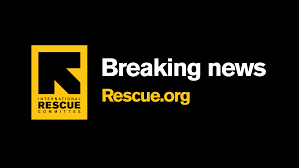
IRC launches Coronavirus response serving asylum seekers and vulnerable families at Mexico border. As Coronavirus cases surpass 5,000 in Mexico, the International Rescue Committee has launched, together with local authorities and civil society partners, a public health awareness and psychosocial support campaign for shelters at the Mexico-US border in Ciudad Juárez. The project will directly benefit 17 shelters hosting approximately 3,000 individuals and reach surrounding host communities -- indirectly benefiting an additional 10,000 people. The initiative includes sessions on the transmission of COVID-19, protective and preventive measures including the identification of at-risk groups, signs, and symptoms of COVID-19, where to access help and support, reinforcement of public health best practices, and... (read more)
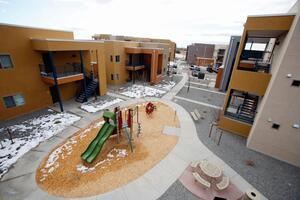
Grant boosts Santa Fe affordable housing coalition. Just a couple of weeks ago, Liberty Rose Adkins, 23, finally moved into her own apartment, a one-bedroom Santa Fe unit renting for $850 per month. She had been living in her mother's home, where she helped take care of her three younger siblings while working for $14 an hour at YouthWorks and interning at Guadalupe Credit Union. But bright prospects are not exactly on the horizon. "With trying to advance my life, it's been a huge struggle because all the necessary things are so expensive," Adkins said. "I'm not able to explore anything other than basic survival." Used to be, if you had a decent job, it wasn't that hard to find decent housing in Santa Fe. Nowadays, being a bank teller, a utility lineman, a police officer, a hospital worker or an office worker guarantees nothing. Let alone being one of the 23 percent of Santa Fe workers earning... (read more)
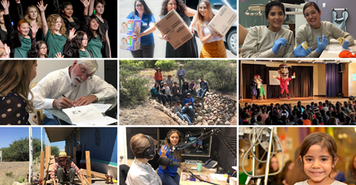
CFSA awards $2.1 million in grants to nonprofits. The Community Foundation for Southern Arizona (CFSA), in collaboration with donors and community partners, has granted over $2.1 million to nonprofit organizations providing immediate relief during the COVID-19 pandemic. The most recent round of grants includes $120,000 from CFSA's COVID-19 Response Funds, $720,000 in general operating grants through our 2020 CORE Grants, $5,500 to support members of the LGBTQ+ community, and $18,000 to support arts organizations in rural Arizona communities. This first round of grants from our COVID-19 Response Funds supports ten nonprofit organizations serving southern Arizona's most vulnerable community members; these grants will continue to be released on a rolling basis as fundraising continues throughout the outbreak and recovery phases of COVID-19. "We understand this crisis will have lasting effects on our community. The Community Foundation for Southern Arizona is... (read more)
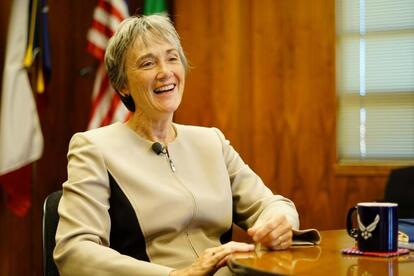
Heather Wilson appointed to National Science Board. UTEP President Heather Wilson has been selected to serve a six-year term on the National Science Board (NSB). Early March, in a White House press release, U.S. President Donald J. Trump announced his intent to appoint Wilson to the NSB for a position set to conclude May 10, 2026. The NSB, composed of 25 individuals selected by the president, works with the National Science Foundation to suggest and encourage research, education and budget priorities in science and engineering. The board also serves an advisory body to the president and Congress on policy matters related to science and engineering in the U.S. "I look forward to advancing science and engineering and helping to guide the National Science Foundation," Wilson said in a news release. "This is a great honor for me and for the State of Texas." Wilson arrived at UTEP at the beginning of... (read more)
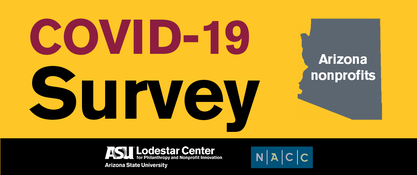
How is COVID-19 impacting Arizona nonprofits? The ASU Lodestar Center for Philanthropy and Nonprofit Innovation wants to better understand the greatest needs of Arizona's nonprofit sector during the COVID-19 Pandemic. We join with members of the Nonprofit Academic Centers Council (NACC), headquartered at Texas A&M University, and the author of this survey, the Nonprofit Management Institute at the University of San Diego, to invite your participation in a brief survey. The responses you provide here will inform government officials, funders, media, and other decision-makers. This survey will take 5-7 minutes to complete. All responses are confidential to the ASU Lodestar Center's research team. Results will be aggregated and contribute Arizona voices to a broader national conversation about COVID-19 and the nonprofit sector. This survey is designed to be taken by a senior leader in your nonprofit who has an overall understanding of your operations. If that is not you, please share this survey with an appropriate person at your organization.
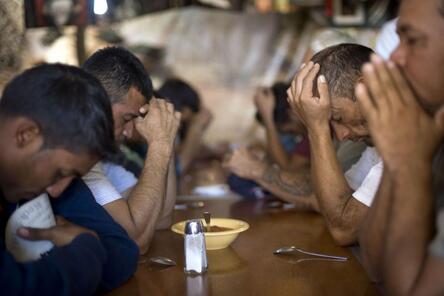
U.S.-Mexico border humanitarians scramble to curb coronavirus. Just last month, more than 400 gathered for the blessing of the Kino Border Initiative's new 18,000-square-foot building in Nogales, in the Mexican state of Sonora, just south of Arizona. Today, with the outbreak of Covid-19, things are much different. The Kino Border Initiative is a binational effort to serve migrants, educate the public and advocate for justice. Since 2009, part of its daily work has included providing food and a place to eat for migrants-those heading north, those recently deported from the United States and those seeking U.S. asylum. Kino workers are still serving food at their comedor, but the coronavirus has changed how they do it. "What we're trying to do is maintain a distance between migrants while they wait in line," Sean Carroll, S.J., the director of the Kino Border Initiative, told America. Families will enter together, receive their food and then... (read more)
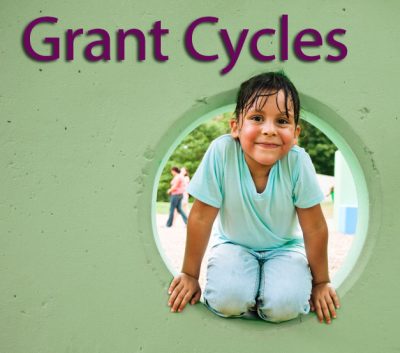
Con Alma Health Foundation invites nonprofits improving health to apply for grants. Con Alma Health Foundation invites nonprofits that improve health in New Mexico to apply for grants starting April 6 until 5 p.m. May 8. Last year Con Alma, the state's largest private foundation dedicated solely to health, awarded 42 grants to nonprofits in every region of New Mexico. Con Alma places a special focus on supporting culturally diverse and vulnerable populations as well as working toward health equity, when everyone has an equal chance at living a healthy life regardless of their income, ethnicity or zip code. Grant applicants need to select a fixed grant amount ranging from $7,500 to $20,000. Con Alma will consider three types of requests: Project support for a specific set of activities or particular goals within the organization's mission; general operating/core support to fund an organization's mission and scope of operations in their entirety; and technical assistance/capacity building to strengthen the nonprofit sector and expand or improve an organization's ability to carry out its mission effectively.





























